

Leaders of all backgrounds are reinventing themselves and, in doing so, bettering their companies and communities P136



Leaders of all backgrounds are reinventing themselves and, in doing so, bettering their companies and communities P136
When someone you care about is sick, really sick, you’ll do whatever it takes to make sure they get the best care. Life-saving care. Innovative care. And so do we.
With an unusually collaborative structure that allows doctors from different disciplines to work together to craft the treatment that’s uniquely right for you. With primary care physicians who never schedule appointments for less than 20 minutes so they can really get to know you. With world-renowned surgeons performing innovative techniques that are changing the way cancer is being treated.
For 100 years, Capital Health has gone to the ends of the earth for the people you care about when they’re sick. Because we know you wouldn’t do anything less.
Become a part of it today at CapitalHealth.org

 Mercer | Bucks | Burlington
Mercer | Bucks | Burlington
In recent years, we have seen businesses and leaders alike reinventing themselves to adapt to our changing world. Our feature section shines a light on such changes–specifically on the executives and companies that seek to transform with the explicit goal of supporting the Latino community.




14
A Giving Spirit
Populus Group Founder and President Bobby Herrera on leadership and serving with generosity
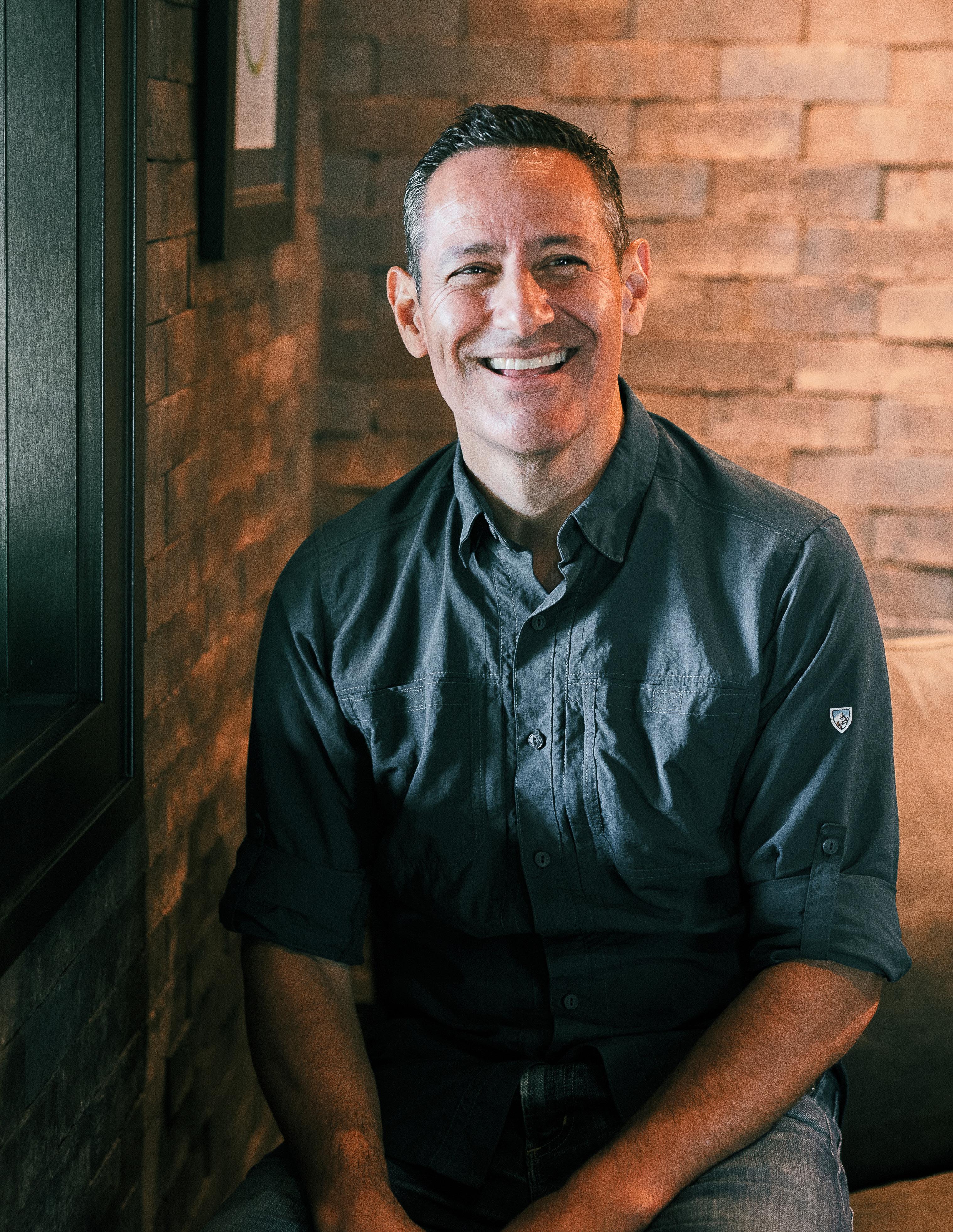
Vice President and Associate General Counsel Katie Fernandez enables Chobani’s mission of making nutritious food available for all
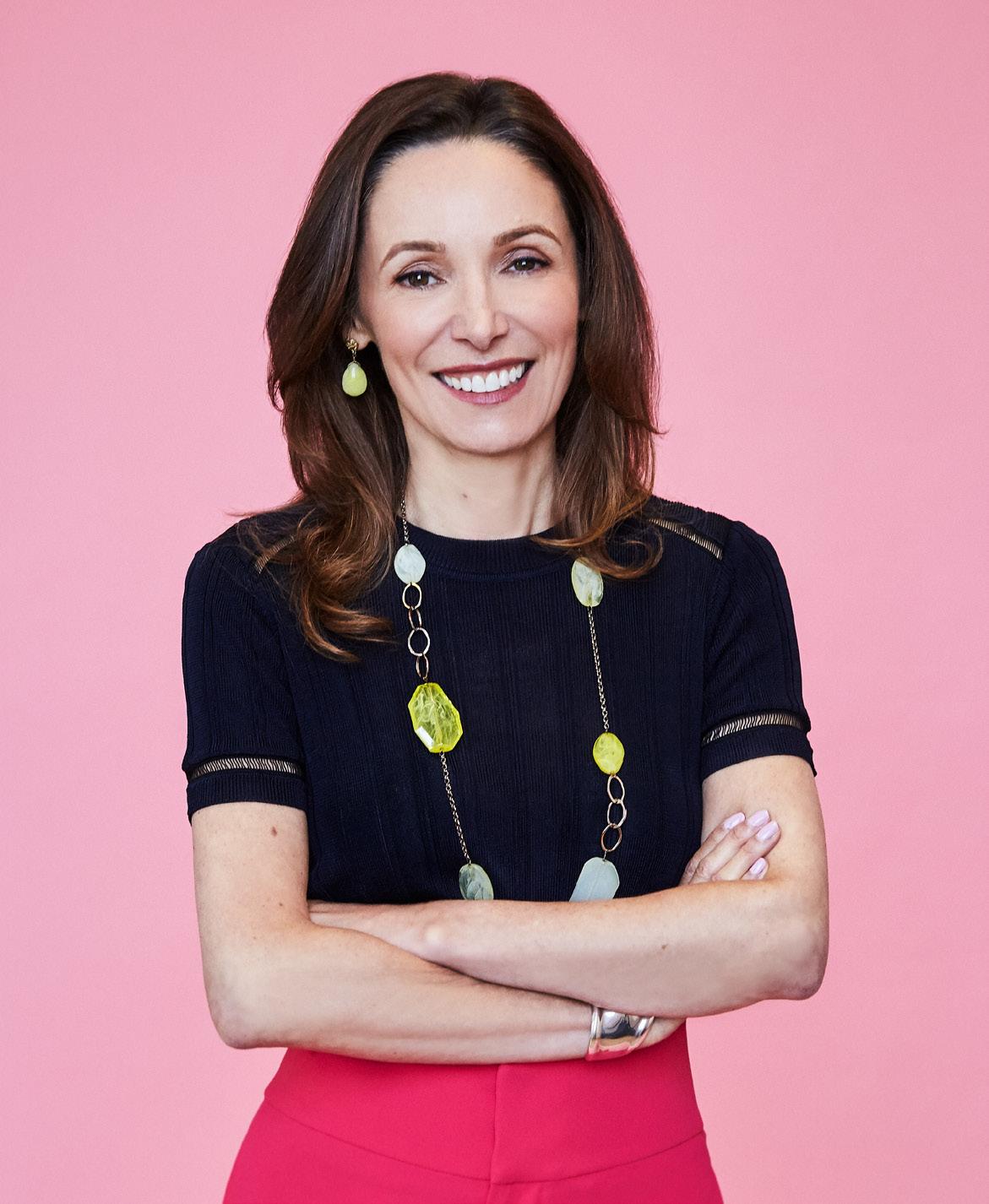
Rafael Villalobos is a lawyer, businessman, and hospital administrator—not to mention a powerlifter—and he’s fully dedicated to helping Capital Health's mission
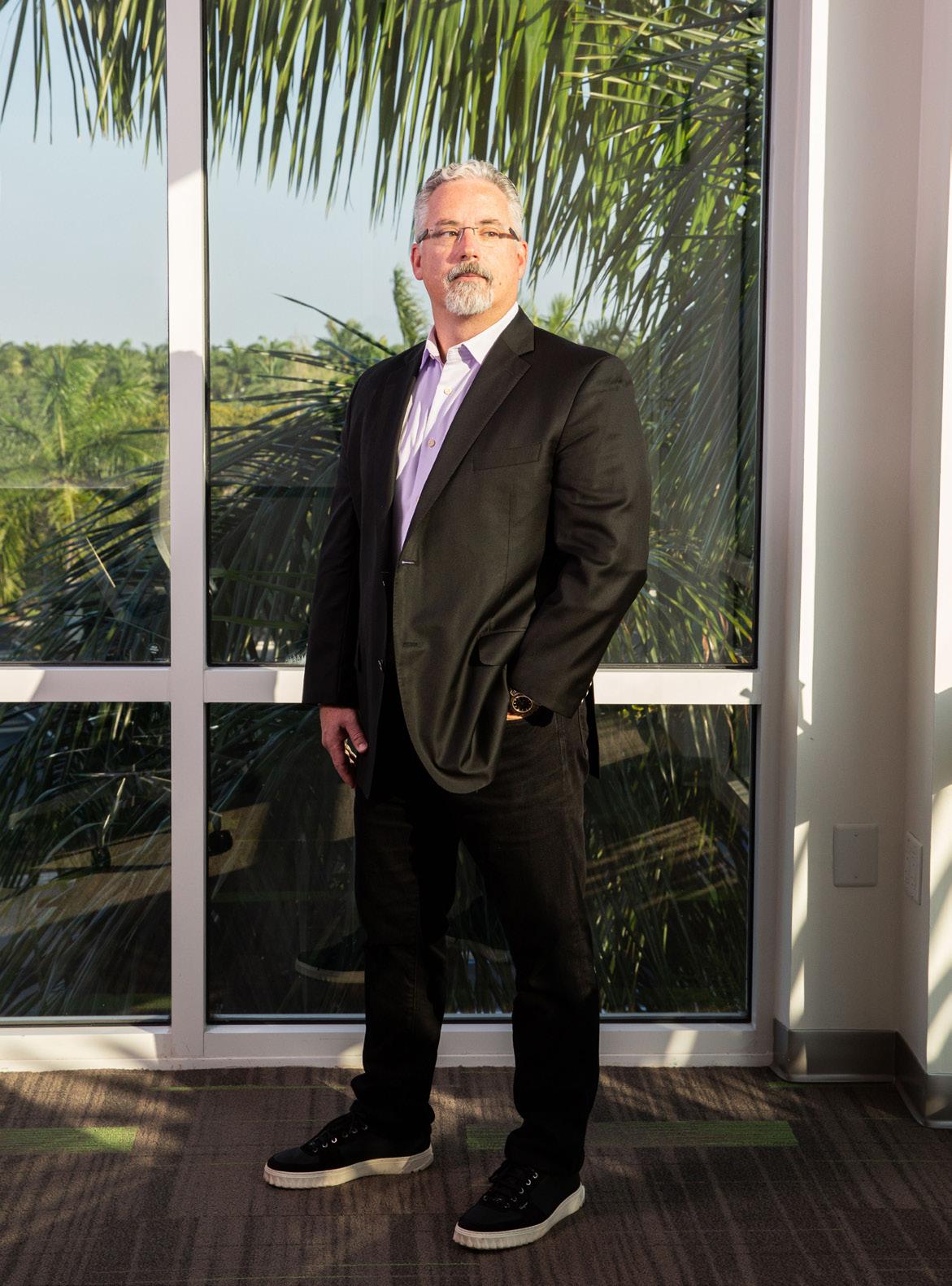
After building a fulfilling career in IT, UKG's CTO John Machado helps other minorities to do the same
As vice president of accounting, Afro-Latina trailblazer Rosaleen Pizarro makes a case for diversity in corporate finance and leads by example at BARK
Jose Castro rallies a high-performing team atop the Paramount mountain while helping fans connect to their content with innovative merchandise
Teresa Barreira discusses strengthening Publicis Sapient’s brand and explains how companies can take a datacentric approach
Jacqueline Aguilar has always sought out a place where she could use her background in business, tech, and law. Now she’s making a difference at Procter & Gamble.
IN THE PAST FEW YEARS, WE HAVE GRAPPLED with not one, not two, but an array of “once-in-alifetime” events. As I write this letter in the spring of 2022, the world is still reeling from the economic, social, and public health impacts of COVID-19. Yet even as we attempt to address that crisis, we must simultaneously reckon with rising global political tensions, a slowdown in the economy, the looming threat of both inflation and climate-related disasters, and ongoing uncertainty about the future of work.
Any one of these changes would be difficult to weather on their own. Together, they become a maelstrom. That is not to say that this storm is unnavigable. As a community, we are coming together to address these challenges and to adapt to the changes we seem to be encountering on a near monthly basis.
But some of us have taken it a step further. The disruptions we have experienced in recent years have emboldened many of us Latinos to chart a new path for ourselves: we have launched new business, changed careers, gone back to school, bought first homes, and started families.
Pedro A. Guerrero CEO of Guerrero Media Publisher of Hispanic ExecutiveOur Change for the Better issue is an opportunity to celebrate exactly those types of changes. More importantly, it is an opportunity to remind ourselves of the uniquely Latino qualities that enable our
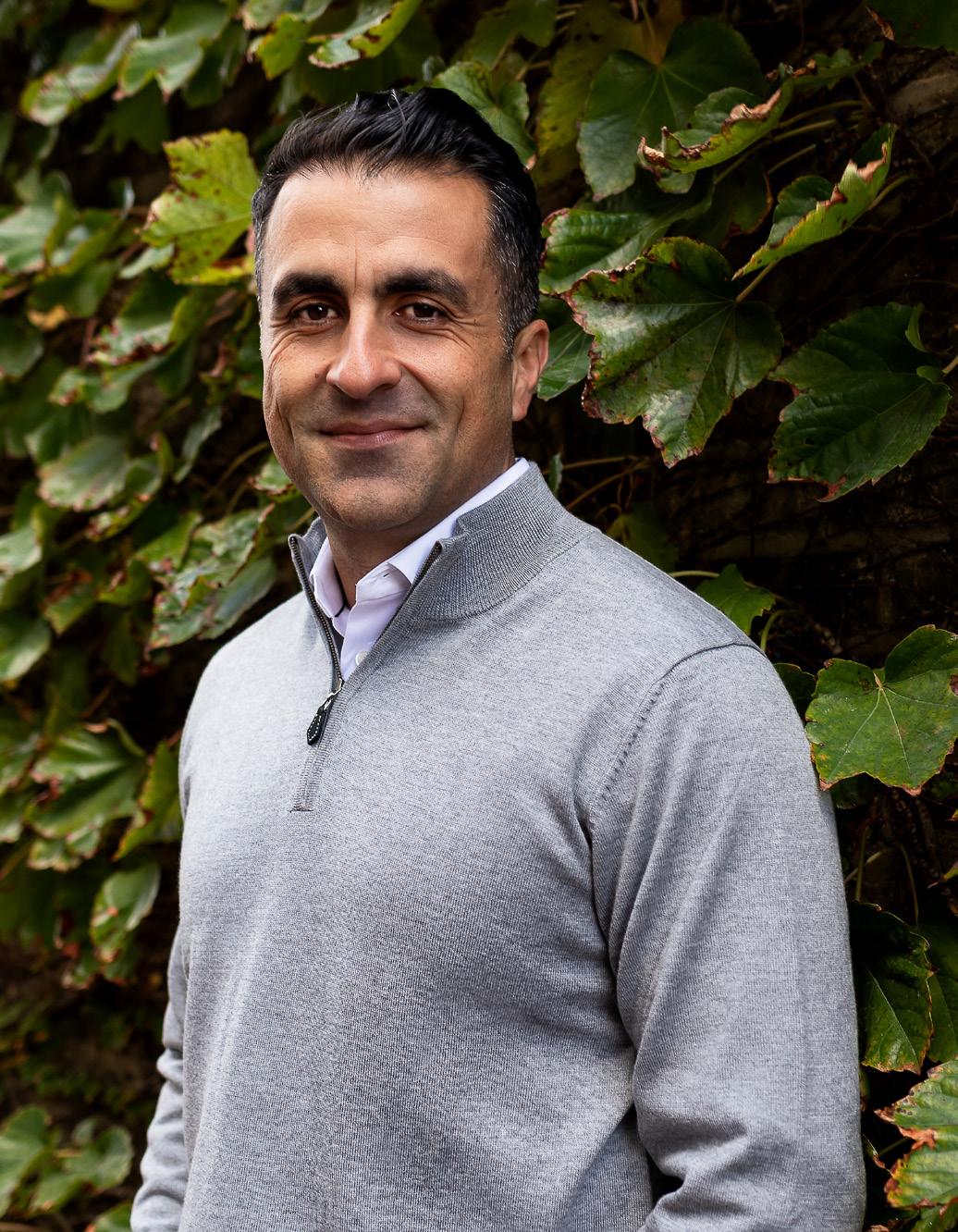
community to take action and reinvent in the face of adversity.
We Latinos come from a long line of changemakers. Whether it be our parents, our grandparents, or our great-great-grandparents, someone in our family, at some point, decided (or was forced) to leave their homeland in search of a better future. And their stories of monumental change have resonated in each one of us for generations.
Uprooting oneself is not the only kind of change we Latinos face, but it is the most common link connecting our community. Each one of us today, in some way or another, honors that legacy by championing the values that drove our elders and perhaps even ourselves forward.
And from talking to countless Latinos who share this common narrative, I note three such values. The first is conviction. At a time when many are losing faith in our systems, our institutions, and the very nature of the American Dream, leaders like Erik Cardenas (p.156) can imagine a future worth fighting for—and start building toward it resolutely.
The second is character. Character, which provides the confidence-of-self necessary to tolerate discomfort, is what allowed Guest Editor Keith Hernandez (p.138) to get back up after losing his father and start the business he had been dreaming of for years. Hernandez knew he might fail, knew he might not be able to make the impact he wanted, but he did it anyway.
The third, and perhaps more important, is courage. Without courage, Lisa Carrington Firmin (p.26) may not have been able to stand up to the systems of power and speak out about her experiences as a survivor of military sexual harassment and trauma.
But at the core of conviction, character, and courage is the fuel that ties them all together: love. Our love for our families, our communities, and our countries—both the United States and the countries we have left behind.
That love of country is what inspired us to dedicate a special section of our Change for the Better
issue to notable veteran executives. Bobby Herrera (p.14), Charlie Garcia (p.22), Michael Montelongo (p.18), and Lisa Carrington Firmin all enlisted in a career centered on change. They took a sacred oath to defend and preserve our freedom, and they paved the way for the next generation of Latino servicemen and women—now the fastest-growing population in the US military.
Those values—our higher ideals—are what gives us the strength to conquer the storm. But they are also what forces us to confront the fact that things cannot always remain as they are. And that is exactly the position we are in now.
The economic, social, political, and environmental crises we are facing are not going away overnight. And our communities are in need—in need of leaders who are willing to step up and make a better future.
You have read in the pages of this magazine and heard at our events that “there is no better time to be a Latino” because of our growing demographic numbers. Lately, I have been looking at it differently. Our innate values as Latinos—conviction, character, courage, and love for community—have primed us to lead. Our fractured society needs us, and that is both our opportunity and our honor. Let’s lead the way.
“The economic, social, political, and environmental crises we are facing are not going away overnight. And our communities are in need—in need of leaders who are willing to step up and make a better future.”
Masthead
Our artist-commissioned cover showcases the illustrations of Eugenia Mello, an illustrator and graphic designer from Buenos Aires living in New York City whose work has been recognized by the Society of Illustrators, American Illustration, the Art Director’s Club of New York, and featured in top publications including the New York Times. To see more of her work, visit eugeniamello.com.
Featured Contributor
Edra Soto is an interdisciplinary artist and codirector of the outdoor project space the Franklin. Her work has been presented at the Smart Museum, the Museum of Contemporary Photography, the Chicago Cultural Center, Albright-Knox Northland, and more.
Editorial Manager
Frannie Sprouls
Managing Editor
Michele Cantos Garcia
Editors
Jaylyn Bergner
Melaina K. de la Cruz
Sara Deeter
Brittany Farb Gruber
Julia Thiel
Staff Writers
Zach Baliva
Billy Yost
Contributors
Zachary Brown
Lucy Cavanagh
Delilah Dormouse
Will Grant
Frederick Jerant
Noah Johnson
Russ Klettke
Natalie Kochanov
Donald Liebenson
Keith Loria
Izzy Mokotoff
Andrew Tamarkin
Art Director
Elena Bragg
Senior Designer
CEO & Publisher
Pedro A. Guerrero
President, Group Publisher
Kyle Evangelista
Chief of Staff
Jaclyn Gaughan
Sales
Director, Sales

Justin Davidson
Stu Ziarnik
Manager, Onboarding Sales and Development
Hannah Tanchon
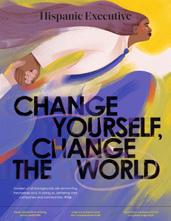
Lead Recruiter, Guerrero Search
James Ainscough
Senior Director, Corporate Partnerships & DEI Solutions


Krista Horbenko
Digital Product Manager
Aleksander Tomalski
Director, Talent Acquisition & Engagement
Haylee Himel
Talent Acquisition Managers
Josie Amidei
Jordyn Gauger
Hispanic Executive® is a registered trademark of Guerrero, LLC

Vince Cerasani
Designers
Anastasia Andronachi
Rebecca Kang
Arturo Magallanes
Senior Photo Editor
©2022 Guerrero, LLC. guerreromedia.com
1500 W. Carroll Ave., Suite 200 Chicago, IL 60607
Facebook: @hispanicexecutive

LinkedIn: @hispanic-executive
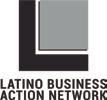
Twitter: @HispanicExecMag
Instagram: @hispanicexecmag
YouTube: bit.ly/youtubehemag
Sheila Barabad Sarmiento
Photo Editor & Staff Photographer
Cass Davis
Special Projects Editor
Sara Deeter
Creative Production Coordinator
Melaina K. de la Cruz
VP, Hispanic Division and Head of Audience & Engagement
Vianni Lubus
Director, Events
Jill Ortiz
Reprints
Reprinting of articles is prohibited without permission of Guerrero, LLC. Printed in China. For reprint information, contact Reprints & Circulation Director
Stacy Kraft at stacy@guerreromedia.com.
Industry Partners
Events & Marketing Manager
Ashley Parish
Communications Manager
Cristina Merrill
Associate Manager, Digital Marketing
Aliana Souder
Content & Advertising Managers
Shelley Berner
Shannon Borner
Allison Kolosick
Roman Magallanes
Luana Ortiz
Cindy Ramirez
Alejandro Vences
VP, Finance
David Martinez
Director, Circulation
Stacy Kraft
Staff Accountant
Natallia Kamenev
Senior Director, Client Operations
Cheyenne Eiswald
Senior Manager, Client Services
Rebekah Pappas
Manager, Client Services
Brooke Sackett
Director, Client Services–Corporate Partnerships
Taylor Frank
Office Manager and Administrative Assistant
Emiko Daniel
GISELA COLON’S ORGANIC minimalist structures are taking over the world. The LA-based, Puerto Rican artist's monoliths are intriguing, flawlessly made and visually mesmerizing.
In a male-dominated public art industry, her work defies expectations and trends, and stands on solid ground, while giving the experience of the sublime.
I had the pleasure of engaging in conversation with Colon to discuss her upbringing, work and career, and future goals.

Please tell us about your upbringing in Puerto Rico and what influenced you to pursue an artistic career.
My formative years in Puerto Rico were a mixture of experiential highs and lows where creating art and acquiring scientific knowledge coexisted with major life adversities. One of my first childhood memories was watching the moon landing, which led to my lifelong fascination with astronomy. As a teen, I also visited the Observatorio de Arecibo (until recently, the largest outer space telescope in the world). I studied the vastness of the cosmos and dreamt of becoming an astronaut. My father was a scientist (chemist) who worked for Puerto Rico’s government in the 1970s conducting air quality studies. He discovered that dust from the Sahara Desert reached Puerto Rico through
trade wind currents, providing me with an early understanding of planet Earth as an interconnected ecosystem. I also learned a love of gazing at the Earth from above from my maternal grandfather, a skilled cartographer. Both my grandmothers were scientists (one a phlebotomist and the other a pharmacist), and they taught me the wonders of the microscopic world. My Puerto Rican grandfather owned a hardware store in the 1950s in Bayamón: at his store, Ferretería Colón, I learned the value of industry and creative experimentation through tools and construction. Collectively, these eclectic formative experiences nurtured my deep connection to the scientific and cosmological realms.
My mother, a painter who appreciated art in all its forms, exposed me to art at a very early

age. From the age of four, applying oil impasto on wood, I painted landscapes, still lifes, and quotidian scenes of our island surroundings— nurturing rich connections to the Earth and natural biodiversity.
I lost my mother at the crucial age of twelve. Soon after, Huracán David hit Puerto Rico and my father’s government position was terminated, leading to complete financial distress and dire circumstances for an already dysfunctional family. My ensuing teenage years were filled with hunger, poverty, suffering, and violence. Madre Naturaleza (Mother Nature) became my steadfast source of power and strength. The plants, animals, trees, mountains, and all the nature around me provided me with survival and coping mechanisms. These painful experiences taught me to turn trauma, ugliness,
and despair into energy, beauty, and light, much like the natural world’s own process of regeneration. These lessons in transformation fundamentally shaped my life and became the overarching catalyst for my art practice.
What constituted the early developments of your work?
I started as a painter in childhood, spending many long hours creating oil paintings of sugarcane fields, tropical flowers, maracas, guiros, clay pots, ceramics, bohíos, rolling green country landscapes, the rain forest, and many other natural and quotidian subjects in Puerto Rico. I painted intermittently as a student at the University of Puerto Rico and during my twenties and thirties in Los Angeles. In my forties, I turned to sculpture, creating the work I am known for today.
Though I am in a sense a late bloomer, art has been in my life from the beginning. The rich moments that I spent painting with my mother taught me valuable life lessons: I became autodidactic. I learned that art was transcendental and had the power to transform reality. The lessons from my childhood in Puerto Rico carry through every aspect of my practice today.
When you’ve spoken about the intersection of art and science in your practice, you’ve emphasized the importance of time, place, and energy. What is essential for viewers to understand regarding these conceptual aspects of your practice?
We humans often forget that we are part of the universe at large—we are located on this precarious blue ball floating in space. Our existence is almost miraculous. My work attempts to bring into focus the unseen wonders of our existence. I want the viewer to feel the power of the transformative energy that surrounds us and to experience invisible phenomena of the natural world.
I am so impressed by your Monoliths series. How did it originate? Can you tell us about the various types of monoliths that you have created?
My first monolithic form emerged early in my practice in a painting titled Pinnacle (1996) that incarnated a mountain form inspired by El Yunque rain forest in Puerto Rico. The mountain form brought me a powerful source of strength and resilience, which I channeled into my early paintings and which ultimately became the fundamental form of my monoliths. I have created two kinds of monoliths: monumental land art sculptures composed of aerospace carbon fiber, and human-scale urethane monoliths that channel cosmic energies.


The monoliths originated from my desire to access universal connectivity between humans and to create an unspoken language of semiotic forms that we can all intuit. The monolithic form dates to prehistoric times when humans engaged the sacred realm through ancient cultural artifacts like totems and amulets. Archaeological structures from early civilization—such as Stonehenge, Native Taíno ceremonial stones, and even the Giza Pyramids—all employ a similar intuitive vocabulary that invokes a mystical world beyond Earth.
Your monoliths are intended to challenge the male-predominant minimalist canon. Can you expand on this subject? Are there any other female artists in this field that you identify with or admire?
Historically, minimalism has been dominated by white men, with very few women and no Latinx people. It’s an ivory tower lacking identity content. The select few women in this realm who I admire, like Ann Truitt and Mary Corse, had to create art that was devoid of gender identity to fit into the prescribed discourse of the time. My organic minimalism practice challenges and deconstructs this
Pinnacle, 1996, oil on canvas, 48x36x1.5 incheshermetic history, bringing a fresh view to this world. Both literally and conceptually, my art provides new life.
I gravitate toward creating singular, reductive forms because they feel atavistic and can serve apotropaic purposes. When applying principles of transformation and organicism, I imbue these singular forms with pulsating life force, creating a new universal language of humanized geometries.
You recently presented the work
Eternity Now (Ellipsoidal Dome Iridium Gold) as part of the exhibition Forever
Is Now at the Great Pyramids of Giza in Cairo, Egypt. Please tell us about this experience and how the physical site informed your work process.
Eternity Now is a Land Art project that presented a fantastic experience of time travel! I created a site-specific installation of a 30-footlong gold dome sculpture resembling a glowing sun. The sculpture comprised one part of Forever is Now, a historic international contemporary art exhibition on the 4,500-year-old UNESCO site of the Pyramids of Giza.

Created of aerospace-grade carbon fiber, the giant dome laid at the foot of the Sphinx and the Pyramids, activating a direct dialogue across time with its historic and cultural surroundings. The monumental golden sculpture paid tribute to Egypt’s legacy as a ‘cradle’ of ancient culture
and was informed by the astounding volumes of ancient Egyptian knowledge across astronomy, science, mythology, art, architecture, and sacred geometries. The installation’s formal geometric aspects embodied the mythical shape of the Sun God Ra’s glowing orb: the venerable chroma of gold is omnipresent in Egyptian symbolism and ritualism. Through semiotics and the embodiment of a universal geometric language, Eternity Now envisioned a future of humanistic solidarity, reconciliation, and unity.
Puerto Rican born, Edra Soto is an interdisciplinary artist and codirector of the outdoor project space the Franklin.
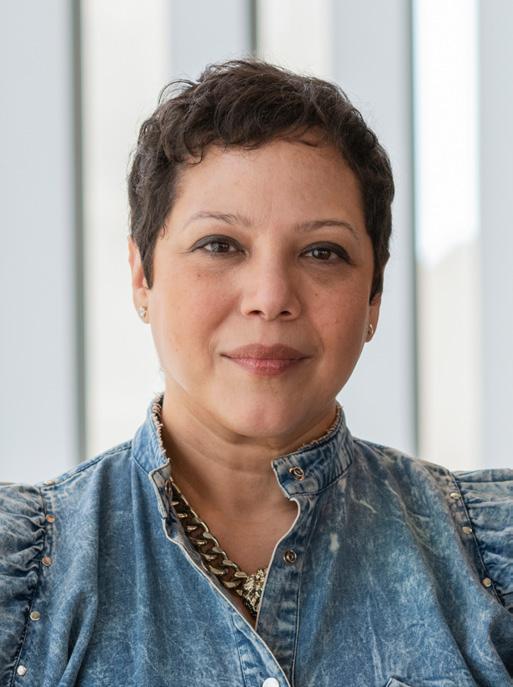
Recent venues presenting Soto’s work include Crystal Bridges Museum of American Art’s satellite, the Momentary (Arkansas); Albright-Knox Northland (New York); Chicago Cultural Center (Illinois); Smart Museum (Illinois); and the Museum of Contemporary Photography (Illinois).
Recently, Soto completed the public art commission titled Screenhouse, which is currently at Millennium Park in Chicago. Soto has attended residency programs at the Skowhegan School of Painting and Sculpture, Beta-
What future projects are you looking forward to?
I am always excited about the future! I am continuing my expansion into the realm of Land Art as part of the curated exhibition Godheads - Idols in Times of Crises this summer. I will embed a monumental work into Lustwarande, a baroque forest in Tilburg, The Netherlands.
Local, the Robert Rauschenberg Foundation Residency, the Headlands Center for the Arts, Project Row Houses, and Art Omi, among others. Soto was awarded the Efroymson Contemporary Arts Fellowship, the Illinois Arts Council Agency Fellowship, the inaugural Foundwork Artist Prize, and the Joan Mitchell Foundation Painters & Sculptors Grant, among others. Between 2019 and 2020, Soto exhibited and traveled to Brazil, Puerto Rico, and Cuba as part of the MacArthur Foundation’s International Connections Fund.
Soto holds an MFA from the School of the Art Institute of Chicago and a bachelor’s degree from Escuela de Artes Plásticas y Diseño de Puerto Rico.
It takes courage to lead in the military,butwedon’toftencelebrate the bravery and resilience required when veterans leave the military and reinvent themselves as a corporate leader. This section honors Latino veterans who have successfully made that transition and help those behind them.
14. Bobby Herrera, Populus Group 18. Michael Montelongo, Air Force 22. Charlie Garcia, R360 26 Lisa Carrington Firmin, Office of Veteran and Military Affairs at The University of Texas at San Antonio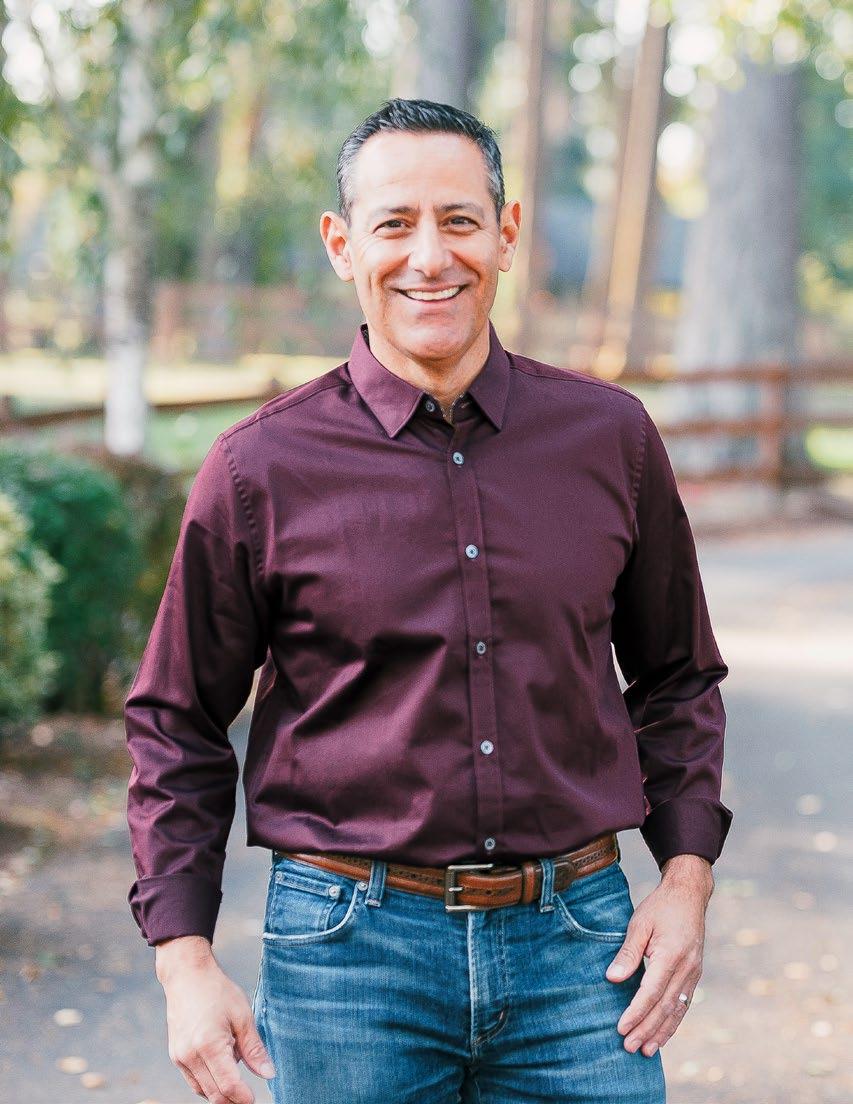
 BY BILLY YOST
BY BILLY YOST
with Hispanic Executive, Bobby Herrera steps away from his screen a few times and returns with mementos from all over his home office. His father’s Bracero identification and draft cards are framed together in the entryway. Herrera was able to live his father’s dream of military service, eventuating a sergeant rank in the US Army.
These mementos serve as a foundation for Herrera’s leadership journey: a successful stint in the Army, a quick succession of promotions in the corporate world (at one employer, he was promoted four times in less than four years), and the successful 2002 founding of employer services business Populus Group.
Herrera’s mementos showcase his ability to understand the importance of crucial
moments of his life and use them as fuel to serve others. One of those moments is the Bus Story.
He holds up to the camera a photo of himself and a man named Harry Teague. Teague is the genesis of the Bus Story, a moment so moving that it made its way into Herrera’s 2019 book The Gift of Struggle: Life-Changing Lessons About Leading. It’s a story his fellow “climbers” (teammates) at Populus Group have heard countless times. And he says they’ll hear it again.
When Herrera was seventeen, he and his younger brother Ed were on a trip home from a basketball game. They had grown accustomed to staying on the bus while the rest of
the team got off to eat dinner. Herrera has twelve siblings and his immigrant parents worked hard for their family, but money was always tight. That’s where Teague, the father of one of Herrera’s teammates, enters.
“Mr. Teague came on the bus and walked back to us and said something that I’ll remember forever,” Herrera recalls. “He said, ‘It would make me happy if you would allow me to buy you boys dinner, so that you can join the rest of the team. Nobody else has to know. All you have to do to thank me is to do the same thing for another great kid just like you.’”
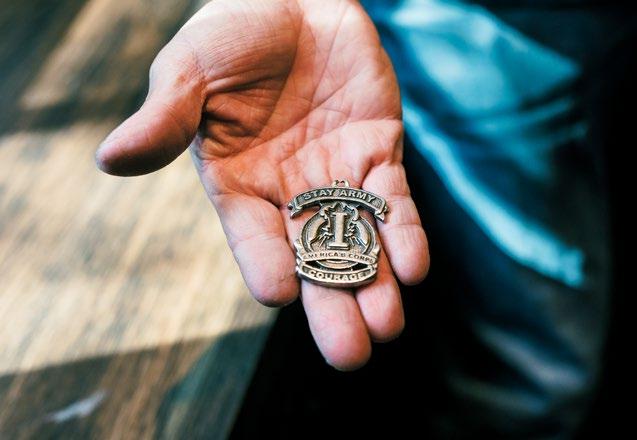
Herrera was able to reach back out to Teague to recount the story and tell him how much it meant to him. The photo of him with Teague in his office remains a tribute to a man who was able to help Herrera see just how impactful one person can be.
The Army provided Herrera the chance to pay his gift forward. While polishing his boots by flashlight just before midnight a few weeks into basic training, Herrera remembers listening to the groans and complaints of his fellow enlisted troops, knowing that their 4:30 a.m. alarm was coming sooner than later.
“It hit me all at once,” he recalls. “I had been waking up at five in the morning since I was in the third grade to work almost ten hours in the fields. I know blatant racism, and I know extreme modesty. Nothing that they can say or do to me here isn’t something I haven’t already experienced.”
That was the spark. Herrera motivated his own platoon by highlighting their own backgrounds, urging them forward with the knowledge that their own life experience could power them through their training. This approach would be the foundation of his leadership philosophy and book.
“DO YOU HAVE SOMETHING THAT REMINDS YOU EVERY DAY, THAT ACTS AS YOUR COMPASS FOR WHY YOU’RE DOING WHAT YOU DO?”A memento from Herrera’s time in the US Army.
The CEO remains close to veteran issues any way he can at Populus Group. “Veterans are an important part of our communities and workforce,” the company website reads. “We’re passionate about supporting veterans in and out of the office and we’re committed to giving back to veterans organizations throughout the year.”
Nearly twenty years in, Herrera feels like the best times at Populus Group are still ahead of the organization.
“I still feel like we’re kind of the big eleventh grader in high school,” Herrera says, laughing. “In the early years, I think we flunked at least a few times. Now, the dream here is to make lives better for kids and veterans. I want to do Good, with a capital G, for the people that are a part of my community.”
At Populus Group, culture isn’t just a work in progress. It seems more like an orchestra in
the middle of a challenging symphony. Every note may not be perfect, but the intent and skill on display is quite clear.
“Every climber here knows what this job is about,” Herrera says quietly but confidently. “We give more than we take. We speak from the heart. And we go off the beaten path. I want to do a lot of good in helping our climbers reach their summits, so their story is very important to mine.”
He recounts a woman approaching him after a storytelling presentation to some two hundred CEOs and asking him what he considers to be the most important attribute for a leader to have. It’s a difficult question, but Herrera answered with a caveat. “We had to agree that there wasn’t just one, but with that in mind, I think it’s easy,” Herrera recounts. “It’s generosity.”
Herrera’s insistence on generosity as a personal tenet is also easy to prove. Just ask any of his kids, aged thirteen, eleven, and nine.
When anyone comes to Herrera for advice, he asks them what their daily prayer is. “Do you have something that reminds you every day, that acts as your compass for why you’re doing what you do?” Herrera asks.
Any of his “three little coconuts,” as Herrera calls them, can rattle off a prayer from St. Ignatius Loyola:
Lord Jesus, teach me to be generous; teach me to serve you as you deserve, to give and not to count the cost, to fight and not to heed the wounds, to toil and not to seek for rest, to labor and not to seek reward, except that of knowing that I do your will.
This prayer helps Herrera remember to pass on the generosity of people like Harry Teague, who helped a young man reframe his beliefs about people and find himself through service. The grounding words for hard days remind Herrera that, ultimately, he has one goal: to give more than he takes.
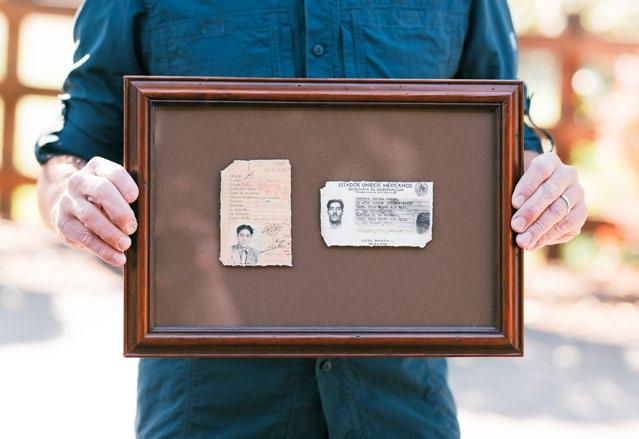
After more than two decades of military service, Michael Montelongo is helping other veterans share their perspectives through board work
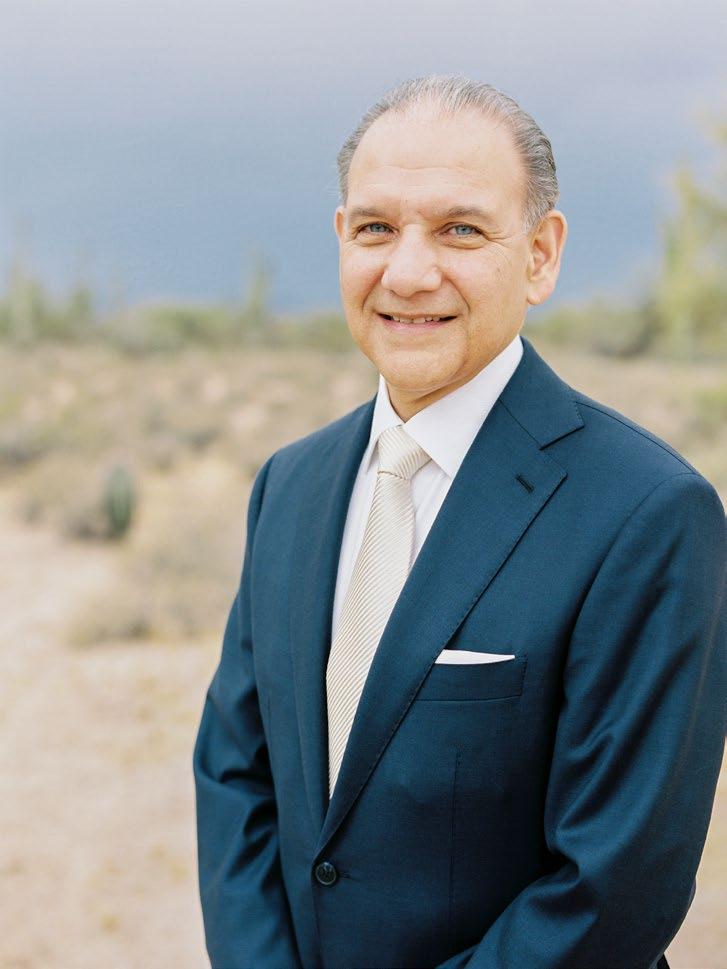
IN THE YEARS SINCE HIS CHILDHOOD IN THE PROJECTS OF New York’s Lower East Side, Michael Montelongo has accomplished more than most people would ever dream of. After graduating from West Point in 1977, he served a full career as a commissioned officer in the US Army. In addition to serving both in the US and overseas, he completed his Army Airborne and Ranger training, earned an MBA from Harvard Business School, and served as a US Senate Congressional Fellow before retiring from the military in 1997.
Then, in 2001, the George W. Bush administration appointed and the Senate confirmed Montelongo to be assistant secretary of the Air Force for financial management and comptroller—the Air Force chief financial officer. He was not only the first Latino to hold the position but also the most senior Hispanic official in the Air Force at the time.
Because Montelongo has served twice, he’s also had to manage the transition back to civilian life twice. According to a 2019 Pew Research Center Survey, nearly half of post-9/11 veterans said it was difficult to make that transition—a big increase from pre-9/11 veterans, among whom one in four reported difficulty. Montelongo, however, found his second experience with leaving the military easier than the first.
“The first time I took off my uniform and moved into this different life, it was much, much tougher than the second time around,” he recalls. “Coming back to service is almost instinctual; it’s built into your psyche. But going the other way, that can be a struggle. The work I do now is to bring the unique perspectives of Latinos and those who have served, those rich perspectives, to the boardroom to help make a difference.”
The career soldier, public official, corporate executive, and civic leader has spent almost two decades on the boards of numerous organizations. Part of his work involves training and mentoring executives and retiring military officers, particularly Latinos, who are looking at board service as a next step for their careers. In a sense, Montelongo’s service hasn’t ended; it’s just evolved.
In helping officers transition to the boardroom, Montelongo frames the change as an extension of duty. “You have potentially spent the better part of decades devoting your life to the nation’s national security,” he says. “Now, you’re helping protect the nation’s economic security. The reason I characterize it that way is because that devotion is deeply embedded in military folks, that deep service ethic.”
Matching a veteran to the right organization is like a dating game in some ways, Montelongo says. Veterans also must be ready to talk up their own accomplishments.
“I don’t even like to use the term, but it really comes to selling yourself,” Montelongo says. “In almost every way, it seems antithetical to someone who has served. You don’t beat your chest and show off. You don’t boast. If you thank someone for their service, they’ll likely just say ‘It’s my job.’ But companies are looking for a certain kind of person, and you need to be able to demonstrate that you might be that person.”
He suggests thinking of yourself as your own brand manager. A brand manager is responsible for selling an idea, a feeling, and a purpose to its customers—and that’s something you should do for yourself as well. While it may not come naturally to those who have served, it’s the first step to achieving more parity when it comes to representation in the boardroom.
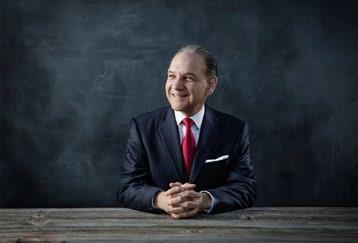
Learning to market oneself, Montelongo explains, is not a betrayal of the selflessness and core values one learns in the military. “You should cling to the values of purpose, ambition, humility, and self-awareness,” the executive says. “But you can live all of those while still understanding how you can commit those values to a new challenge.”
Montelongo also encourages veterans to tap into their professional networks. Often, simply making one’s circle aware of a goal can accomplish a great deal. “The people around you are not clairvoyant,” he notes. “If you let them know what you’re trying to do, my guess is that you will find them more than willing to help you achieve your goal.”
Montelongo’s own goals include accelerating the advancement on boards of Latino executives and senior-ranking veterans, especially since it’s an area where both groups are underrepresented. Latinos make up just 5 percent of the S&P 500 and just 3 percent of the Fortune 100.
“Our influence is so prevalent in so many sectors of our society: science, entertainment, sports, and business,” Montelongo says. “In the military, we’re the fastest-growing population, with 16 percent of our active-duty force. And sixty-one Hispanics have received the Congressional Medal of Honor, the nation’s highest award. There is still so much to be done.”
Despite his advice to others, Montelongo isn’t eager to discuss his own accomplishments—though there are plenty. His priority is paying it forward, particularly to those making the transition to civilian life. He wants to give back what he’s received.
“You should cling to the values of purpose, ambition, humility, and self-awareness. But you can live all of those while still understanding how you can commit those values to a new challenge.”
Charlie Garcia is proud to be American and served the country for years as a leader in the Air Force. He’s since built billion-dollar enterprises but has never quit serving the country that offered him the opportunity to do so.
transition to military life in America is centered on a well-known dichotomy: on the one hand, there is homelessness and crippling cases of post-traumatic stress disorder (PTSD). On the other, we see individuals gaining key leadership skills through their military service, leaders who are characterized by keen organization and discipline and who quickly find success. In fact, America’s economic success following the conclusion of World War II is often attributed to the application of military methodologies to business and manufacturing, led by returning heroes of that conflict.
Charlie Garcia’s life and career falls very much in the latter camp, even though he was born and served in a much later era. Now the founder and managing partner of R360, an invitation-only, values-based organization for persons of high net worth ($100-plus million), Garcia has been on an exceptional path of success from an early age. Raised in Panama, he spent his childhood summers in Florida and went on to become a graduate of the US Air Force Academy, with graduate degrees from Columbia Law School and the University of Oklahoma.
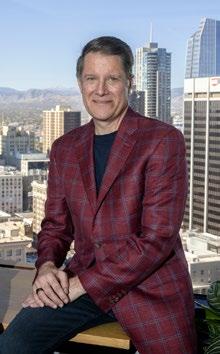
Those factors alone improved his odds of success following his discharge from the military. As the Pew Research Center reported in their 2011 report “The Difficult Transition from Military to Civilian Life,” individuals who graduate from college and become commissioned officers “are more likely to have an easy time readjusting to the post-military life than enlisted personnel and those who are high school graduates.”
Those Pew stats notwithstanding, it’s hard to assign the word “easy” to Garcia’s path from a military to civilian career. It seems no job intimidated him: he was one of only fourteen White House fellows—and the only Latino among them—during the Reagan and George H.W. Bush administrations. He has been a CEO of financial firms (includ-
ing Sterling Financial and Garcia Trujillo) and has served on boards and in other leadership capacities for organizations such as the Florida Board of Education, US Air Force Academy Board of Visitors, Winn Dixie Stores, Latino Advisory Council, Empowering Latino Leaders, Young President’s Organization, and Tendrel. For a few years, he was an adjunct professor at the MIT Sloan School of Business.
None of that was by happenstance. “When I was twenty-four years old, I read about the White House Fellow program,” Garcia says. “I studied it and dreamed about how to qualify.” He found the connections necessary to get the appointment, and during his time in DC he served as a special assistant to William J. Bennett, director of the country’s National Drug Control Strategy program. Twenty years later, Garcia wrote a book about the experience, Leadership Lessons of White House Fellows
While a large portion of his career has been outside of public service, Garcia has been bipartisan during the times that he has served in a public office, including in the 2000s when he served the George W. Bush and Barack Obama administrations. During that period, he advised on the integration of veterans into full-time
employment opportunities, working alongside Obama’s Secretary of Labor Hilda Solis from 2009 to 2013.
Programs that enable returning soldiers to find relevancy in the marketplace are a matter of life and death, Garcia suggests.
“There are Navy Seals who said they’d rather do another tour of Afghanistan than work in the private sector.”
He wants to change that, in part because veterans have so much to offer. “You have some enlisted men that are running something like $100 million or more operations,” he says.
“The skill set around that is incredible. I mean, imagine being a cyber [specialist] in the military. Those guys can get jobs right away in an industry that is growing by 30 percent per year.”
Garcia also sees hope in younger veterans.
“The millennial generation is purpose driven. They just want to get the job done. They want to work a four-day week because they want to have a balanced life. But if they must work seven days a week, they will. And they tend to be humble, not entitled.”
Described by one book reviewer as having a “George Plimpton-esque” career (Plimp-
ton was a writer, actor, and athlete who some regard as a twentieth-century version of a Renaissance man), Garcia has worked successfully in many capacities, including as a writer. He has both books and bylines to his name: his first publication was A Message from Garcia, published in 2003.
R360 was started in 2020, and the organization already has hundreds of members in the US and across the globe. But it’s also turning away some individuals who meet the wealth qualifications but don’t seem to understand the values proposition. “Wealth is about more than money,” Garcia advises.
Garcia sees a great future for military-trained Latinos in business, in entrepreneurialism, and in boardrooms. In part, it’s simply about numbers: “If you go back twenty years, 50 percent of the babies born in the US were Latino,” he says. “Now they’re in college and going into the military and are very patriotic. They like what this country has done for them. It’s what they do.”
And if Garcia is the model for that, it’s a type of patriotism and service that lasts a lifetime.
After a long period of silence, US Air Force veteran Colonel Lisa Carrington Firmin has written a book on military sexual trauma; she also serves at UTSA’s Office of Veteran and Military Affairs
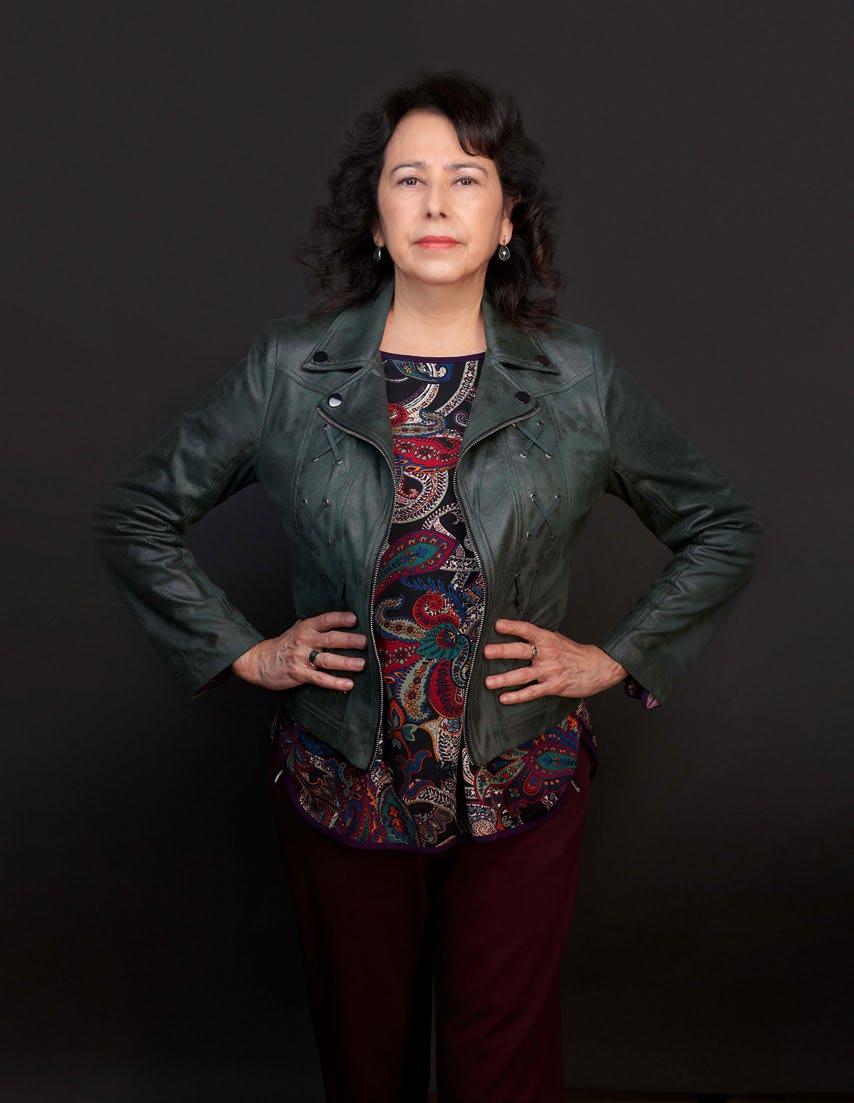 Lisa Carrington Firmin UTSA Military Liaison Office of Veteran and Military Affairs at The University of Texas at San Antonio MATT ROBERTS
Lisa Carrington Firmin UTSA Military Liaison Office of Veteran and Military Affairs at The University of Texas at San Antonio MATT ROBERTS
COLONEL LISA CARRINGTON FIRMIN
was the highest-ranking Latina in the US Air Force at the time of her retirement in 2010. Twelve years later, she released a book that sheds light on the military sexual trauma (MST) that she and others have experienced while serving their country.
Stories from the Front: Pain, Betrayal, and Resilience on the MST Battlefield includes testimony from fourteen veterans and active-duty service members who survived traumatic events, ranging from Vietnam to the present era. In addition to MST, the stories in the book include incidents of discrimination based on race/ethnicity, gender, and sexual orientation. Carrington Firmin hopes that the work will make an impact in the military community and beyond. “It may have taken me a long time to speak up, but I’m doing it now, and the world [will] hear the realities of what can accompany our service,” she explains. “If I can help one person, it will be worth it.”
Carrington Firmin is drawing on the same motivation that led her to enlist in 1980. “I love my country, and I want it to be better,” she says, adding that her desire is for the book to be a resource leaders can use to make service safe and “level the playing field” so all Americans can pursue equal opportunities regardless of race, gender, religion, or sexual orientation.
The retired colonel is second-generation military. Her father served in both the US Navy and the Air Force, the latter for more than twenty years. When he was a master sergeant in the Air Force at the end of his career, he suffered a massive stroke, and Carrington Firmin saw the true nature of camaraderie. “The military circled the wagons to take care of one of their own,” she recalls.
After she studied journalism in college, Carrington Firmin earned a commission in the Air Force to serve as an officer. Over the next thirty years, she’d hold twenty jobs and move seventeen times. She was a squadron commander, a deputy group commander, and a mission support group commander. In that role, she managed a $25 million budget and oversaw $3.7 billion in resources infrastructure. She then went into combat and led efforts to build a strategic airbase to receive weapons systems and equipment in Iraq’s densely populated Sunni Triangle.
Although she was a natural commander, Carrington Firmin was suffering in secret and had to overcome unseen obstacles to rise to the top levels of leadership. A training instructor
assaulted her at officer training school. As a twenty-one-year-old rookie in a system where only 18 percent of airmen were female and less than 2 percent of senior-ranking officers were women, Carrington Firmin had little recourse for seeking justice. She not only kept quiet about the assault but also buried it deeply, compartmentalizing to survive.
Nothing got easier as she advanced deeper into what was essentially a man’s world. Becoming the first female officer and first Latina in many of her units didn’t bring accolades—it brought resentment. Carrington Firmin faced frequent slurs, taunts, hazing, discrimination, and sexual harassment. At one point, the men in her squadron actually kept a running tally of the “points” they earned for
“It may have taken me a long time to speak up, but I’m doing it now, and the world [will] hear the realities of what can accompany our service.”
hazing her. The scoresheet was proudly taped to the wall, with a thick black line dividing the two sides of the posterboard: “Us” versus “Her.”
Reporting the harassment would have only made matters worse, and Carrington Firmin feared being kicked out of the Air Force in retaliation. She pretended it didn’t bother her and decided to prove herself through performance. “I baffled those who assaulted me with my excellence,” she says.
Carrington Firmin kept quiet until US Army specialist Vanessa Guillén was murdered in 2020, and the events unlocked her repressed memories. Guillen, who had been sexually harassed by a sergeant, knew that other complaints about the sergeant by women had been dismissed. By then Carrington Firmin had started therapy and was ready to share her own story.
“I can speak up now. I have credibility and maybe my voice will help people and the military understand the deeply personal side of military sexual trauma,” she says.
In 2010, Carrington Firmin joined the University of Texas at San Antonio (UTSA), where she established the Office of Veteran and Military Affairs, created the UTSA Top Scholar program, and also serves as a military liaison. Her efforts support the 5,251 students
affiliated with the military. Of that number, about 1,500 are veterans—24 percent women and 43 percent Latino.
In addition to her roles at the UTSA, Carrington Firmin is on the board of the Hispanic Veterans Leadership Alliance, a nonprofit organization looking to advance Latino representation across all levels of leadership in the US Armed Forces. While Hispanics make up 18 percent of the entire US population and 17 percent of all military members, the group accounts for just 8 percent of all officers and 1 percent (or 16 total) of generals and admirals.
The statistics on gender and ethnic diversity in the military don’t shock Carrington Firmin. She recalls being the first Latina some airmen in her initial unit had ever seen. She didn’t work for a female boss until her eighteenth year of service and has never worked for a Latino in the military or in higher education.
Carrington Firmin released Stories from the Front on April 22, 2022, the second anniversary of Guillén’s murder. Telling her own story has been both challenging and therapeutic. Watching the response has been rewarding.
“More people are stepping up to tell their own stories,” the author says. “It’s time. We can no longer stay silent.”
As Lisa Carrington Firmin first started to process and heal from her own military sexual trauma, writing— specifically poetry—became an important outlet. Although she wrote Invisible Veteran to express her frustration at feeling unseen as a female veteran, she says readers may substitute any underserved population for the word “woman” in the poem on p. 30.
Do you see me?
You look beyond me and speak as if I am not even here But I am standing right in front of you
Do you see me?
You acknowledge the male veteran next to me with your gratitude and respect But you ignore my service and sacrifice
Do you see me?
You assume I’m someone’s wife, daughter, sister, mother, or grandmother But I served too
Do you see me?
You revert to your default setting that only men are warriors But I am a combat veteran who is also a woman
Do you see me?
You downplay my contribution, unaware that women serve But my sacrifice and valor were equal to or greater than some men
Do you see me?
You force me to work at gaining your respect But haven’t I already earned that?
Do you see me?
You still fail to identify or recognize me, I wonder if it is deliberate or ignorance But my invisibility as a woman vet speaks volumes, are you listening?
When one’s work makes an impact in the community, it transcends employment and becomes a calling. These executives have answered their call.
32. Greg Vargas, Diligent 38. Andres Gonzalez, Froedtert Health 41. Michelle Dávila, Franklin Templeton 44. Evelyn Rios Ortiz, Zoetis 46. Jesse Cortez, McKesson 49. Fabricio Lopez, The Walt Disney Company 52. Javier Feliciano, Meritage Homes 54. Lizette Ibarra, Latina Chief 57. Angie Valdes, JBG SMITH Properties 60. Patricia Arzuaga, Kaiser Permanente 63. Stephen Cornejo Garcia, Allstate 66. Katie Fernandez, Chobani 72. Tony Muñoz, YES Prep Public Schools 76. Abby Figueroa, Atria Senior LivingIt’s about more than DEI. At Diligent, Greg Vargas is diving deep to innovate through initiatives related to DEII—diversity, equity, inclusion, and intersectionality.
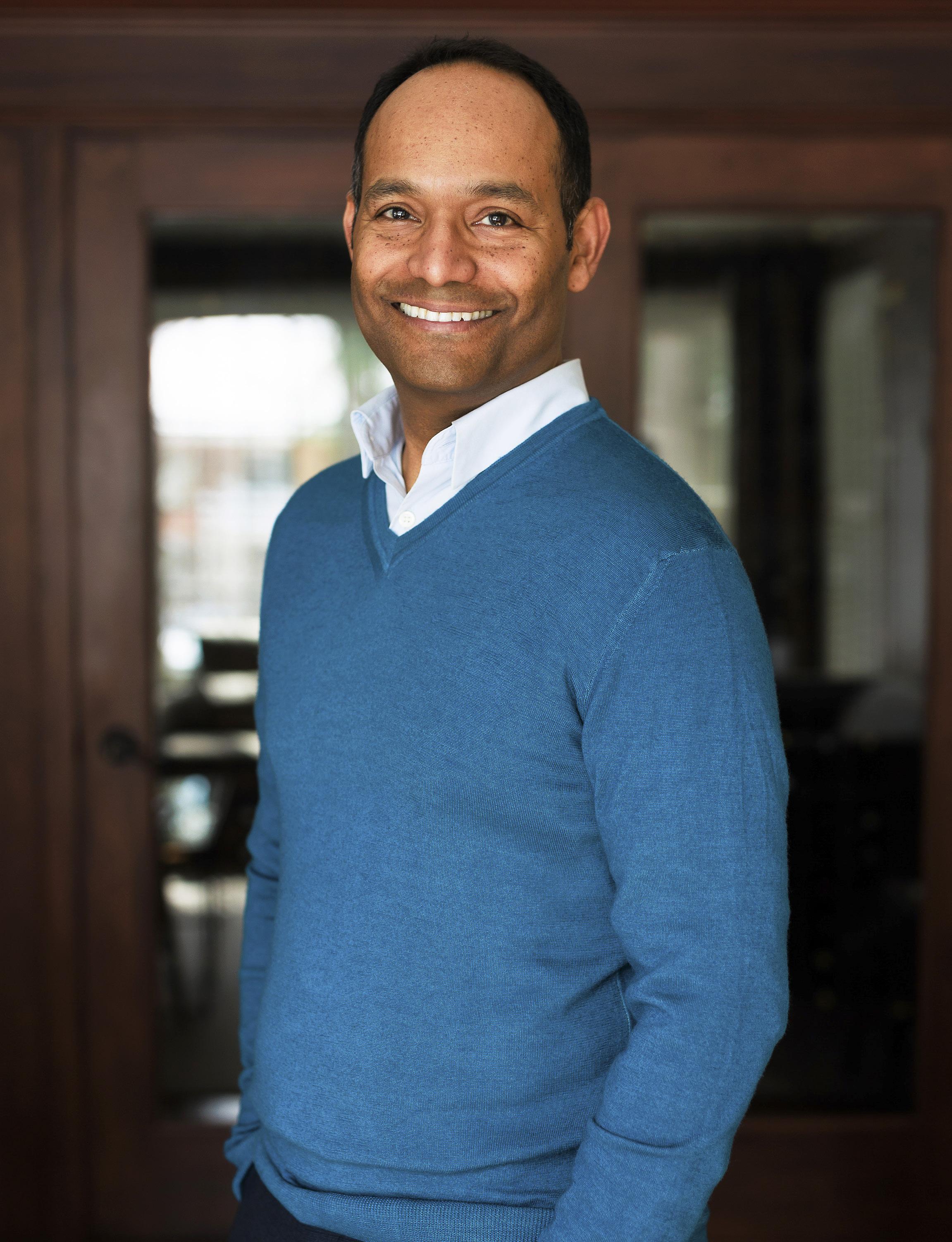
Vargas joined the growing organization in 2021 to coordinate all talent programs, including acquisition, development, and diversity. The sheer scale and potential of what Diligent is doing drew him to the role: the governance software-as-a-service (SaaS) company has twenty-five thousand customers and one million users worldwide and is committed to using its technology and influence to promote equitable and sustainable business practices.
These issues resonate deeply with Vargas. Growing up in a military family and constantly adapting to new schools and peer groups taught him to value the individual experiences and contributions of others. He later studied sociology, criminal justice, and human resources management at the George Washington University.
While there, Vargas served as a residence hall advisor and chaired a cross-cultural affairs program. The group existed to cultivate relationships, build community, advance empathy, and help students appreciate diversity and explore their own identities. Promoting on-campus events made Vargas more passionate about inclusion. “I saw how important it
was to give students a place to be heard and discuss challenging topics, and we all learned how to better interact with people from different backgrounds and experiences,” he says.
Vargas started his career as a recruiter and senior human resources business analyst at the International Monetary Fund, where he spent a decade targeting the world’s top PhD economists before guiding them through a two-year rotation.
After ten years of building expertise and experience, Vargas was looking for something new. He and his husband decided to embark on a new adventure and moved with their young daughter to San Francisco. Vargas shifted to the technology industry and never looked back.
By 2021, Vargas had finished successful stints at Google, Yahoo, Verizon, and Harry’s. But while he had managed teams of recruiters and implemented internal development programs at top companies, he longed for something more. “I wanted to land somewhere really purpose-driven and find a company with a mission I could really get behind,” the Diligent VP explains.
Vargas found that company in Diligent. Diligent leads in modern governance and its technology helps executives uphold commitments to issues like sustainability, community development, social responsibility, and, of course, diversity.
Early conversations with top leaders confirmed that Vargas had found the right place to call home. “Diligent wants to empower the most influential people in the world to make better decisions about that world, and that’s something I wanted to be a part of,” he says. Clients use Diligent’s solutions to create effective, sustainable, and equitable organizations, and the company must embody those very same principles.
That’s why Diligent hired Vargas, and the company was very intentional in creating his role. He’s not VP of DEI; rather, he manages DEII—diversity, equity, inclusion, and intersectionality. “The second I in my title is a signal that our leaders have done some deep thinking about these topics and about how these issues actually impact our employees,” Vargas says.
Intersectionality addresses how multiple categories of identity link and overlap to produce opportunities for discrimination. Vargas, who identifies as a gay Black Latino man, strives to consider the holistic employee to best support his Diligent colleagues in the workplace.
Shortly after his arrival, Vargas and his team revamped their recruiting process to create a structured interviewing experience
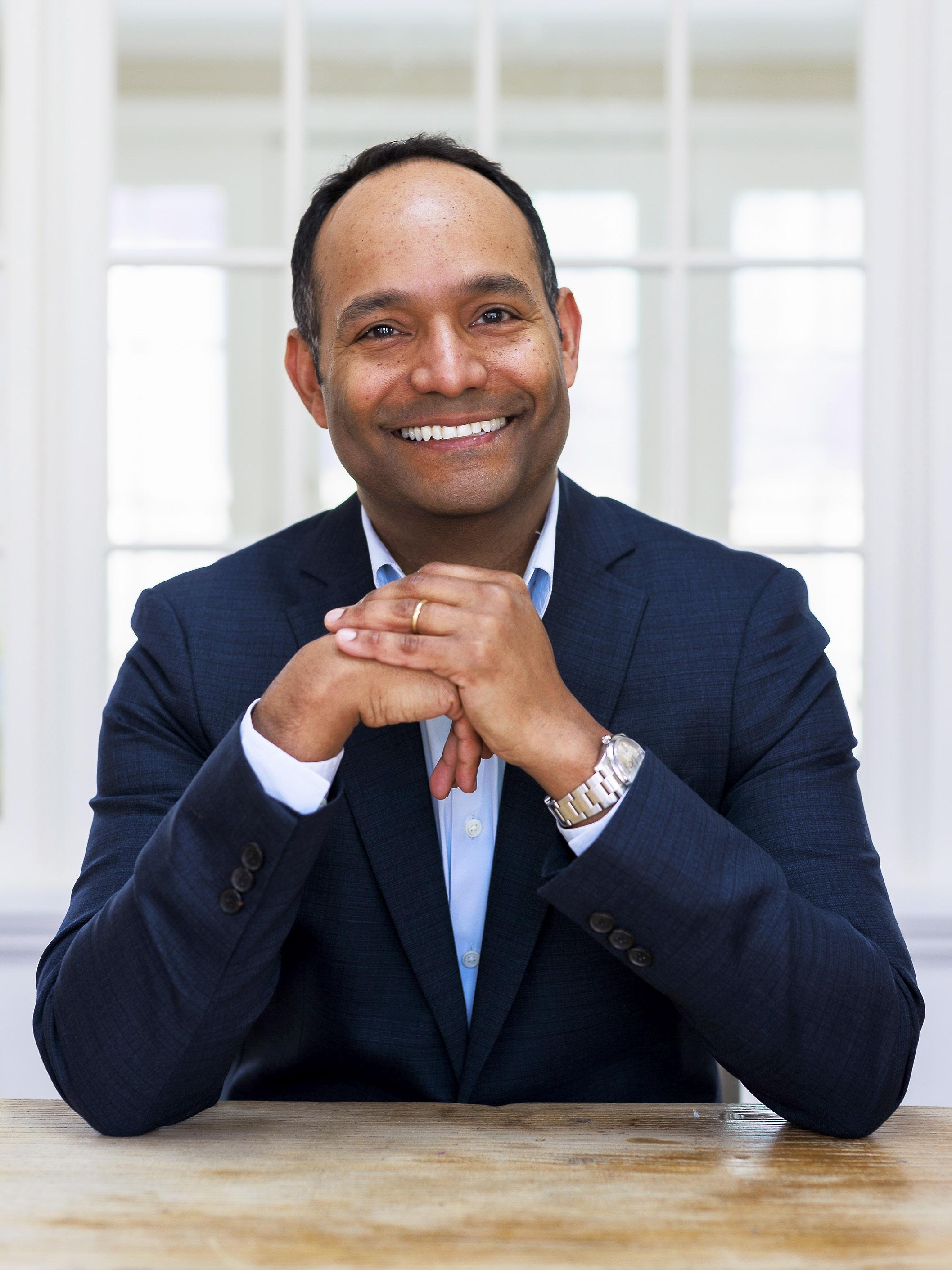
“I saw how important it was to give students a place to be heard and discuss challenging topics, and we all learned how to better interact with people from different backgrounds and experiences.”
Greg Vargas VP of Talent and Diversity, Equity, Inclusion & Intersectionality Diligent
ScaleUps are on the most di cult part of their journey: turning initial viability into exponential growth and long-term success. A decision can mean flight or free fall. That’s where a trusted partner comes in. For over 25 years we’ve partnered with the world’s leading software ScaleUps, providing the capital, operating guidance, and expansive network companies need to propel growth for the long term –and soar.
insightpartners.com


















































and introduced diversity training through a company called Paradigm. The blended learning platform gives corporate practitioners a way to deliver expert training on demand to increase participation. Topics include training on unconscious bias, allyship, inclusive hiring, and anti-racism.
Additionally, the number of employee resource groups is growing. Diligent now has programs for women in tech, Black employees, parents and caregivers, remote employees, members of the LGBTQ+ community, and other individuals with shared life experiences.
The work Vargas has done hasn’t gone unnoticed by his partners outside the company. “Greg’s commitment to DEII stands out among our more than 450 hiring partners,” says Rahim Fazal, CEO of SV Academy. “Our sales development representatives and customer success managers placed at Diligent have a rich path ahead, and we look forward to supporting Greg’s ever-expanding initiatives to further increase access and opportunities.”
Diligent provides SaaS solutions across governance, risk, compliance, and ESG. In 2020, the company launched its Modern Leadership program to help organizations build more diverse and inclusive boards and executive teams. As part of the program, Diligent curates a list of board-ready professionals they can connect with open seats. “Shareholder pressure is building, and companies that don’t live up to best practice or fall short will find out quickly that consumers care, and consumers vote with their wallets,” Vargas says.
The desire to push for improvement permeates all areas. Diligent encourages employees to give back to their communities,
and the company hosts a variety of volunteer events, including an annual day of service. Last year, Diligent partnered with about two dozen organizations, including Black Girls Code and the Alice Paul Institute. Like many employees, Vargas uses his time to support causes aligned with his own passions. He’s a board member at Impact Justice, a national research center advocating for juvenile and adult criminal justice reforms.
Today, the company is growing and pursuing important strategic initiatives. This year, Vargas will onboard hundreds of new people to join the company as he seeks to accommodate that growth. “It’s an exciting time to be here,” he says. “We have the chance to build a culture that will impact influential companies through diversity, and diverse thoughts improve performance.” Improved performance drives innovation, and innovation changes the world.

“The second I in my title is a signal that our leaders have done some deep thinking about these topics and about how these issues actually impact our employees.”
For Andres Gonzalez, health equity is an ongoing conversation between healthcare professionals and the communities they serve. His expertise in cultivating those relationships enables him to thrive as chief diversity officer at Froedtert Health.
BY ANDREW TAMARKINIF YOU EVER HAVE QUESTIONS ABOUT how to eradicate racism or advance health equity, call Andres Gonzalez for a strategy.
As vice president and chief diversity officer for Froedtert Health, Gonzalez brings intersectional expertise to his mission to close service gaps within the diverse communities the health network serves. Even in the wake of the COVID-19 pandemic, which has exposed and exacerbated historical health inequities, he was able to tackle healthcare-related crises head-on, working collaboratively within the organization and fortifying conscious partnerships within the community at large. “I was born to do this work,” Gonzalez says simply.
As a proud member of the Hispanic community, Gonzalez’s stake in these issues is personal. He was born in Puerto Rico and raised in inner-city Cleveland. His career was launched at two Latino-serving nonprofits, which stoked within him a passion for mission-driven work. His healthcare journey began when he was charged with
overseeing DEI (diversity, equity, and inclusion) efforts at the Cleveland Clinic, a multispecialty academic medical center. Later, he served as chief diversity officer for Baystate Health, an integrated healthcare system in Springfield, Massachusetts.
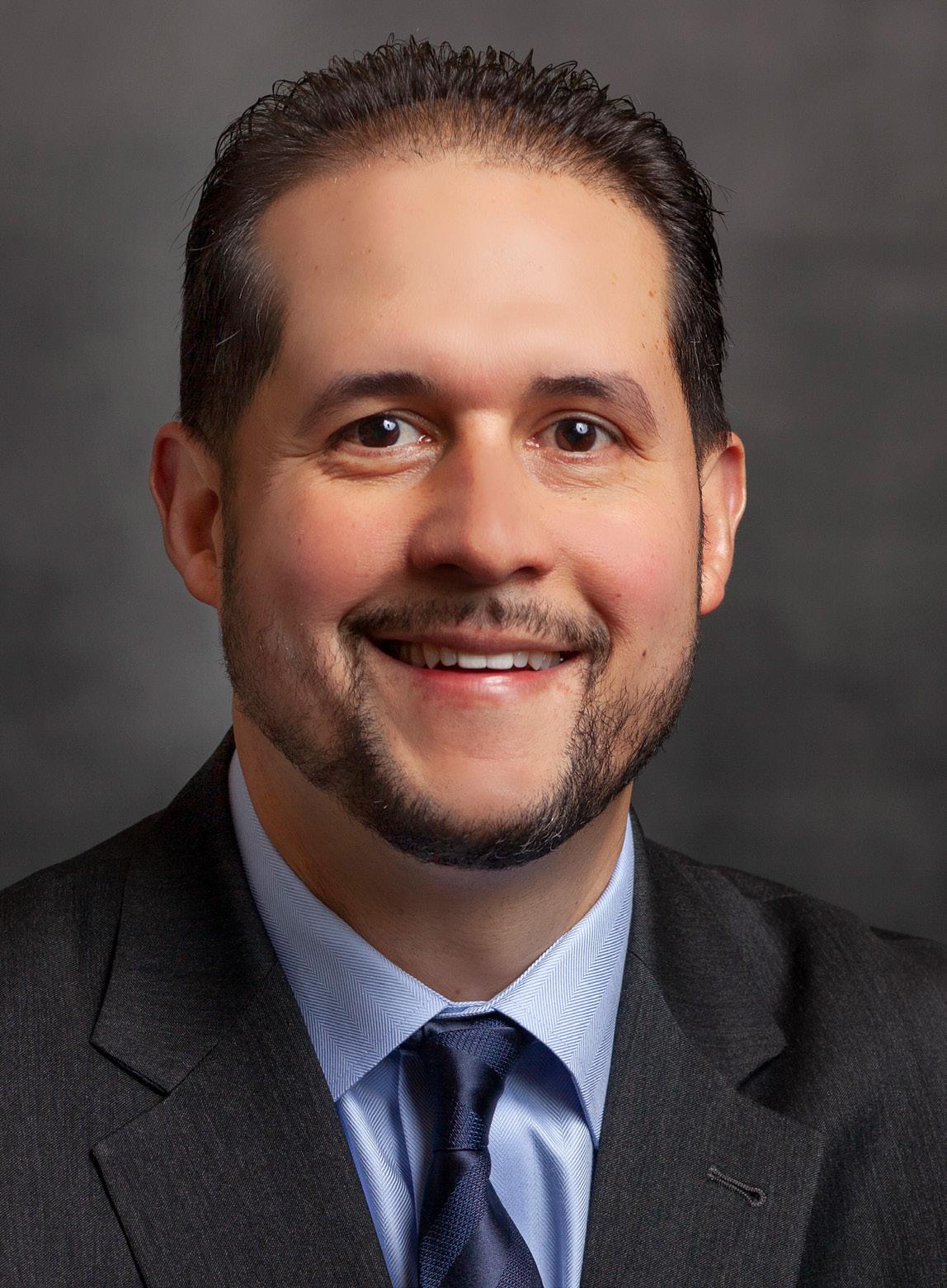
Six and a half years ago, Gonzalez relocated to Milwaukee, Wisconsin, to join Froedtert Health. “Mission-driven work is critical to me. A great equity, diversity, anti-racism, and inclusion strategy should support, amplify, and complement the organizational strategy,”
he says. “At Froedtert Health, there’s mission alignment: to advance the health of the people of the diverse communities we serve.”
Historically, healthcare systems have neglected to serve all communities equitably. But Froedtert Health recognizes its past and is working to equalize the patient experience through exceptional care, hands-on innovation, and discovery.
Gonzalez’s office has been charged with developing a holistic DEI strategy for the health network. This has included developing an ‘employee life cycle,’ working internally with business resource groups (BRGs) around anti-racism efforts, strengthening the supplier diversity strategy, and partnering with external leaders and ambassadors to broaden Froedtert Health’s organizational reach.
The employee life cycle assesses how the organization is attracting new talent in schools, universities, and within the communities that Froedtert Health serves; acclimating and onboarding that talent once they are hired; and developing and promoting them over time. “How do we show up as a workplace of choice?” Gonzalez asks. “We are looking at improving not only workforce diversity but also leadership diversity, which means providing professional development to our staff to ensure they become the leaders of tomorrow.”
Gonzalez works collaboratively with Froedtert Health’s five BRGs: the Hispanic/ Latino BRG, African American/Black BRG, military veteran BRG, women in leadership BRG, and the LGBTQ+ BRG. While these groups may represent specific interests, Gonzalez’s intersectional approach integrates their unique health disparities, thereby enabling him to drive a greater impact.
“Our BRGs have not only helped us increase engagement but also (and more importantly) that sense of belonging within Froedtert Health and the communities we serve.”
Gonzalez is also collaborating with the HR team to improve supplier diversity, zeroing in on companies in zip codes that have traditionally been left behind and then reaching out to them for Froedtert Health’s hiring and buying needs. By partnering with small businesses and minorityowned businesses, Froedtert Health is able to diversify its community network and contribute to the region’s economic vitality.

But the VP hasn’t stopped there. In 2021, Gonzalez and his team assisted with the implementation of a public service announcement (PSA) campaign to learn about what the community needs from Froedtert Health and how community members want to receive information from the organization. They learned that to have the most impact, PSAs shouldn’t be delivered by a clinical professional but by a trusted community leader.
Gonzalez listened and acted. His team partnered with Gee Smith—a barbershop owner serving the Black community—to provide health screenings in a mini-clinic set up inside the barbershop. Smith also helped spread the word to the community about the importance of getting vaccinated. After that, the VP and his team partnered with a retired executive director who is highly regarded in the Latino community, who delivered a PSA about vaccines in Spanish.
“We started seeing communities responding more effectively to that call to action and getting vaccinated,” Gonzalez says.
Gonzalez continues to engage with community leaders and ambassadors, emphasizing his commitment to accountability, transparency, and willingness to take feedback at every step of the way. Luckily for Froedtert Health, cultivating relationships is second nature for Gonzalez.


“At the end of the day, I’m part of a community,” Gonzalez says. “If we don’t leverage that community power, then we’re not going to be in a position of strength to address these issues that have plagued our communities for so many years.”
Gonzalez knows that the work isn’t done yet. But he’s fully committed to doing whatever it takes to serve his community, both through his work at Froedtert Health and beyond.

“At Froedtert Health, there’s mission alignment: to advance the health of the people of the diverse communities we serve.”
The professional association of choice that transforms your experience in the national healthcare leadership space.
“YOU NEVER WANT TO FINISH A RACE and think to yourself, ‘I should have run faster. I could have run faster, but I held back,’” says Michelle Dávila, senior associate general counsel and chief legal counsel in charge of the Americas at Franklin Templeton, a US-based, global asset management organization with offices in thirty countries and seventy years of investment experience. “You have to be a go-getter regardless of how you’re received. You just have to propel yourself into things that may not feel very comfortable for you.”
Dávila learned this lesson from her father, a Puerto Rican native who worked hard to support her family in the Bronx after he immi-
grated to the US. She watched him accept a job that, while paying less in the short term, would offer more opportunities for advancement in the long run. With a dearth of people who looked like her in high power positions, it was her father who showed the young Dávila early on what she could achieve.
Although she earned a spot at Harvard University, Dávila nearly declined to attend because the idea of an unmarried woman leaving the home was very foreign to her old-school family. “One person who kind of helped along the way was an admissions officer who was part Puerto Rican and Mexican,” recalls Dávila, adding that the woman’s
common background made her a trustworthy ally to the family. “She made my mother comfortable about the idea of me going away to college. She explained to her the opportunities, and how doors would open for me and what a positive experience it would be so that she understood it and signed the papers for me to live on campus.”
The culture shock at Harvard was massive for Dávila. Though she is pleased to see that the school has made large strides in diversity since her time there, Dávila was one of the very few people of color on the campus during her studies. She refused to be discouraged and instead was inspired to seek new outlets like
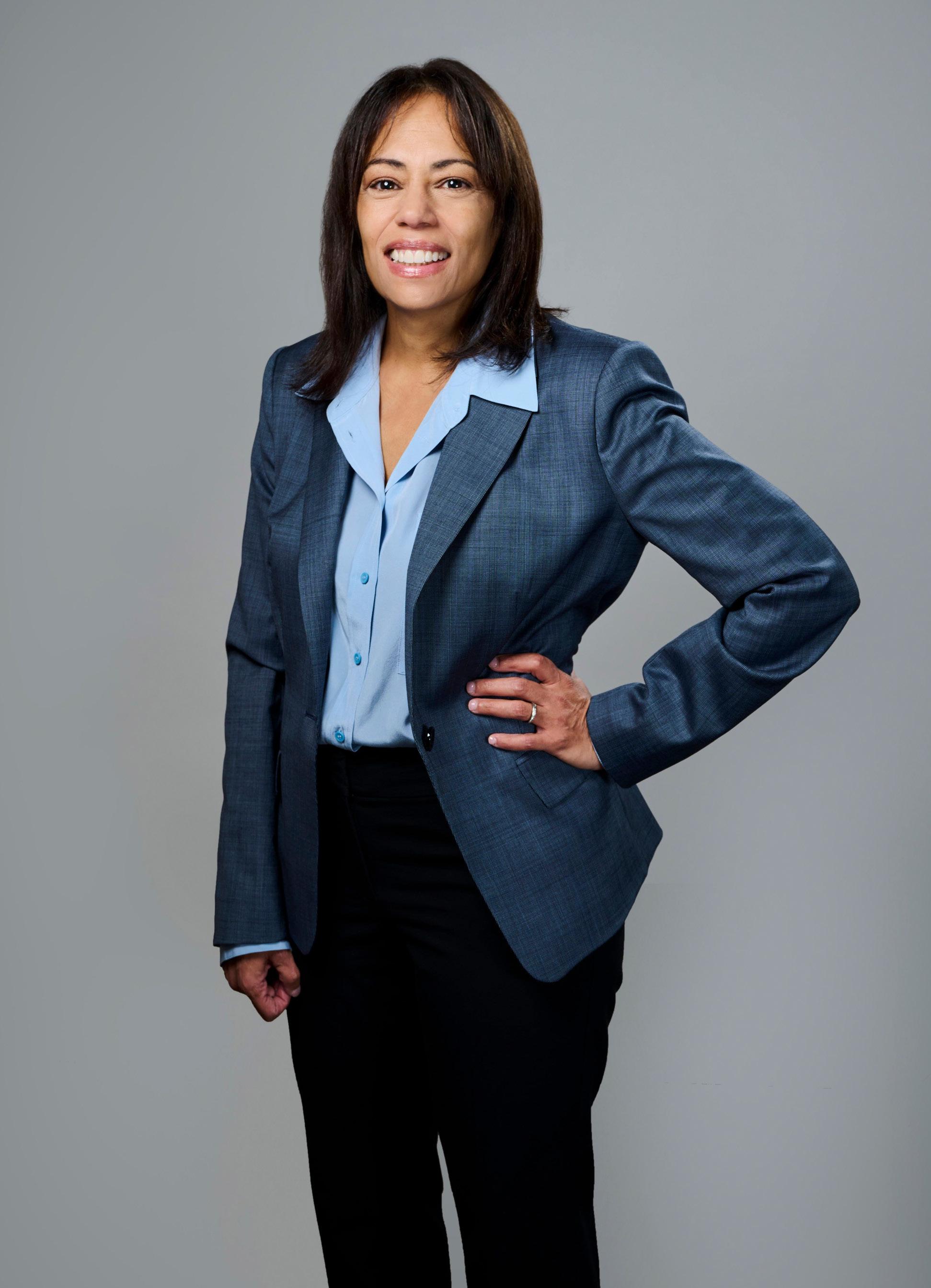
the Harvard Foundation for Intercultural and Race Relations. “It was there that I met some very important mentors in my life, like Dr. Allen Counter,” Dávila says. “It was a place to have those tough conversations very comfortably with like-minded people of all different races, and to learn because the school was all about those things: discussion and learning and exploring.”
Dávila went on to attend Columbia University for law school and then cut her teeth at Brown & Wood (now Sidley Austin). Throughout her career, she has had a wide variety of experiences both in-house and in law firms before coming to Franklin Templeton.
The senior associate general counsel emphasizes the power of finding mentors and allies for young professionals, particularly from underrepresented backgrounds. “I’ve had some tremendous bosses and role models, sometimes among people that I didn’t expect. I ended up getting a lot of support and allyship from somebody who was white, Republican, and conservative but appreciated my work ethic,” Dávila reflects. “It’s those people
who are willing to advocate for you and raise their hand for you and put you on assignments that really make the difference in your career.”
More than anything, Dávila believes that the way towards more Latinos in the executive suite is exposure. She points out that many Latinos are drawn to public service because they want to give back to their communities. While public service positions in law are an important vocation, she believes that occupying corporate roles gives young people examples of the heights to which they can aspire and effect change.
Dávila recalls a powerful moment when she crossed paths with a young business analyst who remembered her from a professional talk she gave at her high school in the Bronx. “When I gave that talk, I figured the students were just happy to get out of class but to see how it had an effect on her was truly humbling because I never had those role models, and certainly not in anyone who looked like me,” Dávila says. “If you see it, you can be it. You never know who your story will resonate with and whose future you can impact.”
HOLA
At Franklin Templeton, Michelle Dávila feeds her passion for driving change within her environment. She is the executive cosponsor of HOLA, an employee resource group that seeks to facilitate both the professional and personal growth of its Latino employees and allies. The group also helps provide cultural understanding and awareness for employees who work with clients and partners in Latin America. It helps drive concrete and practical change when it comes to diversity and inclusion, particularly in hiring.
“If we want to move the dial on the numbers, we’ve got to change how we recruit,” Dávila asserts. “We’ve been getting that on board and formalizing our efforts, which has been a really satisfying project in my career.”
“You never know who your story will resonate with and whose future you can impact.”
ALTHOUGH ZOETIS TRACES ITS ROOTS back to rural Indiana, where Pfizer opened a research facility in 1952, the world’s largest animal health company has been on a new journey since 2013. That’s when Zoetis spun out from its parent company, celebrated its IPO, and in doing so, formed its own culture, identity, and values.
With Juan Ramon Alaix as its original CEO, Zoetis put a focus on diversity, equity, and inclusion (DEI) from the very start. And when executive team member Kristin Peck took the reins as CEO in 2020, DEI became an even greater focus through expanded commitments to accelerating inclusion, equity, and more diverse representation across the company.
After coming to an understanding of the state of diversity at Zoetis and formalizing plans, the company—composed of 12,300 colleagues across forty-five countries— developed aspirations to make Zoetis and the animal health industry more inclusive, including a goal to increase diverse representation within Zoetis by the end of 2025. In line with these aspirations, veteran employee Evelyn Rios Ortiz stepped in as chief talent and DEI officer to formalize and strengthen Zoetis’ long-standing commitments to the important practices.
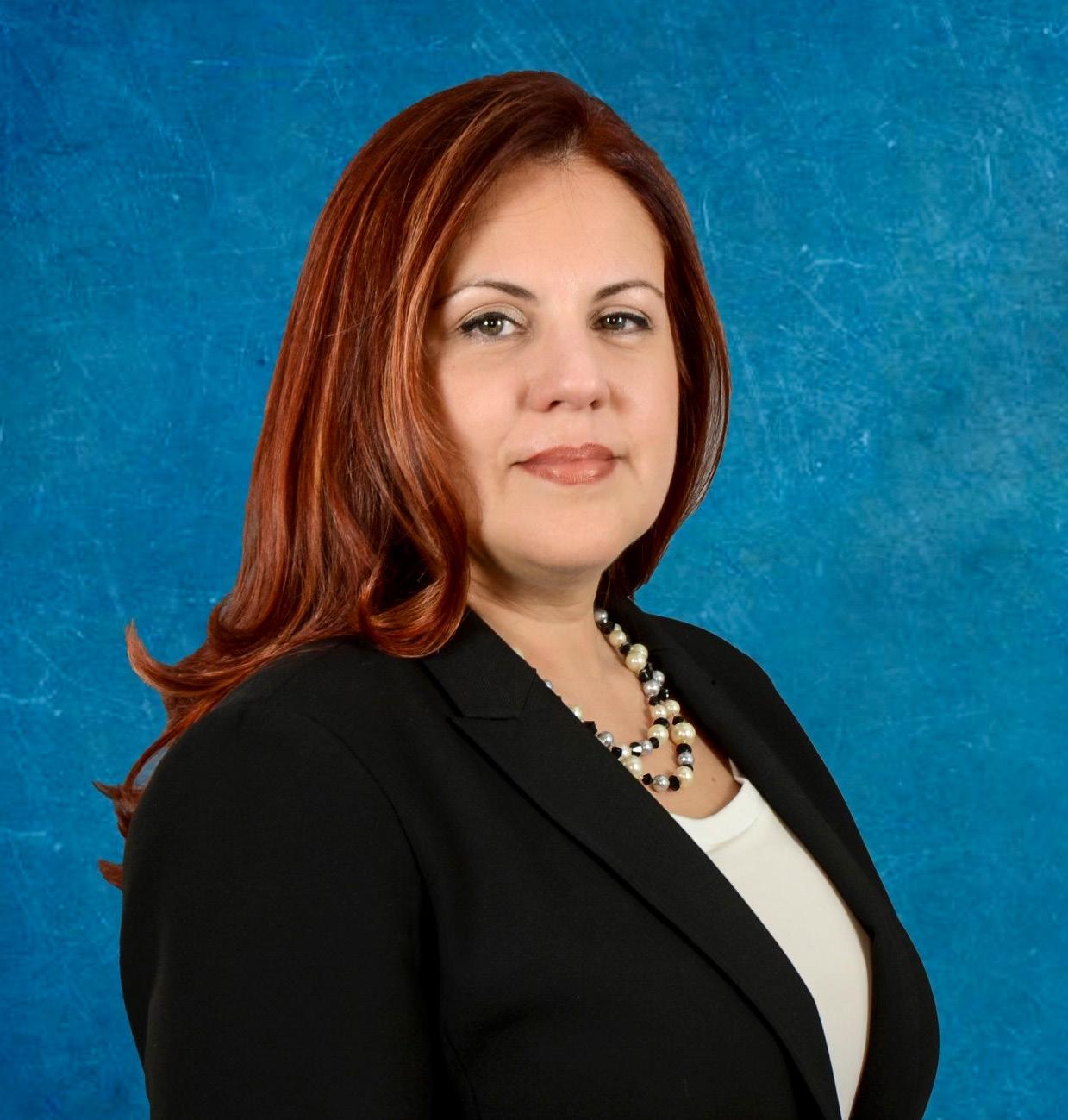
Evelyn Rios Ortiz drives change and looks to make an impact as chief talent, diversity, equity, and inclusion officer at Zoetis
Ortiz grew up in New Jersey as part of an immigrant family from Puerto Rico. She started working at age fifteen to pay her way through Rutgers as a first-generation college student, and eventually landed an internship at UPS—a position that opened her eyes to the world of human resources. When her recruiting team was asked to find new sources for potential candidates, she connected with community organizations and Hispanic populations around Newark. Suddenly, she realized someone in her role could change their community. “I was able to go to underrepresented people as part of a major employer and offer them career opportunities,” she says. “That’s when I really saw how I could make an impact in HR.”
Upon graduation, Ortiz stayed with UPS before accepting a generalist role with Lucent, and later T-Mobile. In 2007, she moved to Wolters Kluwer to align business needs with human resources as a divisional director of human resources.
In 2013, Ortiz came to Zoetis. Two years later, just months after receiving a promotion to a senior director role, she faced a personal crossroads that continues to shape her leadership philosophy. Namely, Ortiz was diagnosed with breast cancer.
With help and support from her personal and professional families, Ortiz went
on medical leave for five months and then returned to work in a phased way to accommodate three months of radiation therapy. She later returned in an expanded role to oversee talent. The compassion Zoetis executives showed her resonates with her to this day, and COVID has only brought those kinds of personal issues further to the forefront. “Everyone has to navigate challenges and obligations in their own lives, and supportive leaders can do a lot to make a difference in the culture here,” she says.
Since raising her hand to lead Zoetis’ global DEI efforts, Ortiz has worked to embed DEI practices and principles into everything the company does. Her team has grown from three to seven associates, and together it has built a strategy around the four Cs of community, culture, colleagues, and career. It introduced the new program and trained all global employees in just four months. “We moved fast and made this a priority to make sure everyone understands what we are doing,” Ortiz says. “DEI is more than just a program. It’s closely aligned to our core beliefs and our everyday activities.”
Additionally, Ortiz’s team launched new colleague-resources groups built around shared interests and experiences. Employees can participate in groups aimed at those who identify as African American, Latinx, over
fifty years old, early career, Asian, LGBTQ+, differently abled, or neurodiverse. Partnerships with groups like INROADS and MANNRS help Zoetis build early career pipelines to further increase representation.
As millions of workers quit their jobs in what has been dubbed the Great Resignation, DEI is becoming a differentiator at Zoetis, and Ortiz says her dual role is key. “Having one person [to lead] talent and DEI is what really helps us move the needle,” she says. “It ensures diversity, equity, and inclusion are intentionally embedded at the very core of who we are and what we do.” Zoetis has increased diversity on its executive team and board while building its pipeline and identifying diverse talent to develop into middle management positions.
And Ortiz is playing a pivotal role in driving ownership and accountability when it comes to Zoetis achieving its DEI aspirations. By 2025, Zoetis aims to increase the global representation of women (director level and above) from 32 to 40 percent, increase overall representation among people of color in the US from 21 to 25 percent, and take Black and Latino US representation up 1 percent each. Ortiz knows her work will help Zoetis reach those marks. “We’re on a journey,” she says. “This is a start, and there is work to be done, but what we’re doing together is making a real impact.”
“I was able to go to underrepresented people as part of a major employer and offer them career opportunities.
That’s when I really saw how I could make an impact in HR.”
IN HIS EIGHTEEN-PLUS YEARS IN healthcare consulting and HR, Jesse Cortez has consistently kept one foot in talent strategy and another in the realm of diversity, equity, and inclusion (DEI). “Throughout my career, there’s been a gravitational pull toward highly complex and transformational organizations,” Cortez says. “I’ve been committed to helping those companies further their missions through those two channels.”
As McKesson’s vice president of DEI, Cortez is playing a leading role in helping the company sustain a more inclusive environment across the business as well as its communities. Aligned with McKesson’s purpose to advance health outcomes for all, Cortez is an empowering leader who adapts to new challenges, promotes transparency, and seeks feedback.
Cortez was born in Chicago to Mexican immigrants and moved to Dallas as a kid. There, he went to school and “cut his teeth in healthcare consulting” early on, which ultimately led him to McKesson, a diversified healthcare services leader dedicated to advancing health outcomes for patients everywhere. McKesson partners with biopharma
companies, care providers, pharmacies, manufacturers, governments, and others to deliver insights, products, and services to help make quality care more accessible and affordable. Those efforts include a partnership with the US government as a centralized distributor of the COVID-19 vaccines. “When you’re involved in this type of work, it’s not a job—it’s a lifestyle,” Cortez says. “It’s how you approach your own life and the circle of individuals around you.”
When Cortez sat down for an interview with McKesson, it was his personal passion for DEI that set him apart. “McKesson was in a transformative stage, with a new CEO dedicated to company culture, new HR leadership, and the upcoming arrival of a chief impact officer,” Cortez remembers. “The team was crafting a new vision, and it was an exciting time for the company as a whole.”
Cortez initially came on board as senior director of executive talent and diversity to help McKesson develop an impactful talent strategy, and he used a wide lens to uncover talent: it didn’t matter what candidates looked like, sounded like, or where they came from. “The company strives to advance health
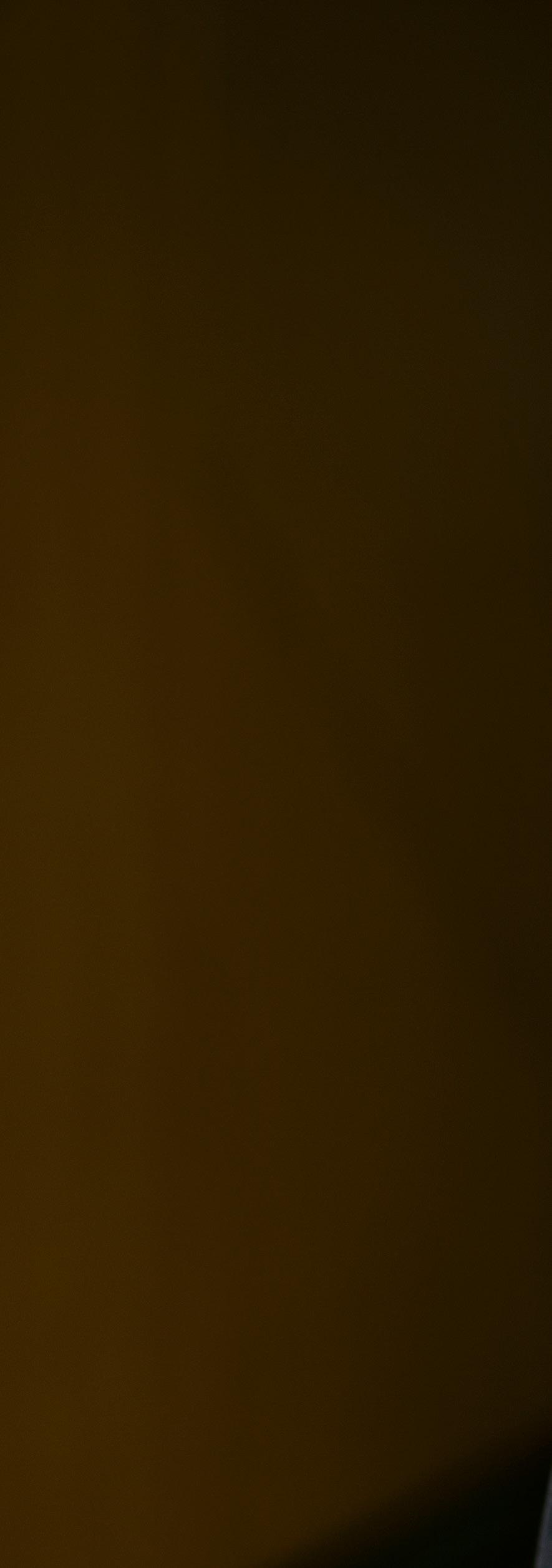
outcomes for all,” he says. “That really resonated with the way I live my life: making sure we’re creating opportunities for others and advancing the way they live and work.”
As an impact-driven organization that touches virtually every aspect of health, McKesson’s mission is to improve care in every setting—one product, one partner, one patient at a time. Cortez identifies with this
McKesson’s
Jesse Cortez is an empowering leader whose transparency and adaptability have ushered in a more inclusive company culture with a winning mentality
himself; it’s inspired the way he builds and leads a team. He strives “to make a difference,” he says, “to carry the work that others have done, and to leave a lasting impression on those who are yet to come.”
Early in his career, Cortez didn’t always feel like he could bring his whole self to work. “There was this expectation that you fit into the culture and hold back [parts of
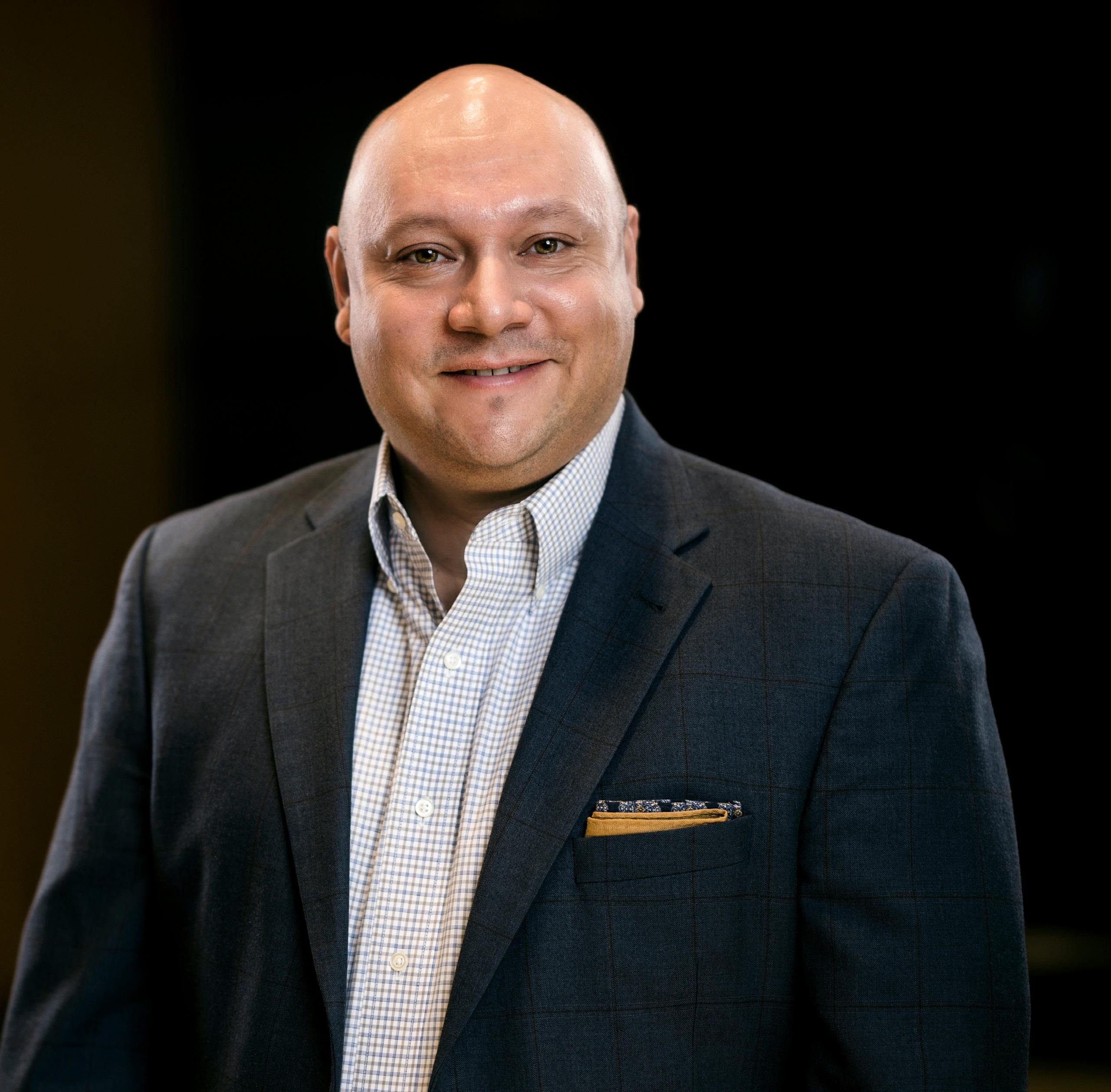
“I’ve always felt the sense of responsibility to leave a role, company, or community in a better place than how I found it.”
Jesse Cortez serves on the boards of several nonprofits, including the Hispanic IT Executive Council (HITEC) and the HITEC Foundation, both of which are focused on “building a pipeline of Hispanic technology talent from the classroom to the boardroom.”
He was recognized in 2014, 2015, and 2016 as one of HITEC’s executives for exceptional achievements and for his contributions within IT.
yourself] that may not necessarily be accepted at work; it’s this whole notion of feeling like you belong,” he remarks. “At some point, you embrace who you are, and it’s easier at work when you do. But you also need an environment that welcomes you. That’s where the magic flourishes.”
Since being promoted to VP of DEI, Cortez’s work has revolved around three pillars: culture, talent, and marketplace awareness. His team invests in employee resource groups, offers training to minimize biases, elevates DEI branding in the marketplace, and delivers dynamic diversity data insights captured through workforce analytics. Cortez especially enjoys connecting with people during Days of Understanding, intimate company sessions where employees are welcome to share success stories and offer feedback.
“When you think about belonging, it’s a really hard thing to measure,” Cortez explains, “so we’ve got to constantly look across the enterprise and at multiple [factors] to ensure we’re continuing to drive the right outcomes.”
And McKesson continues to show progress within the DEI space. Early this year, the company was recognized by the Human Rights Campaign as a Best Place to Work for LGBTQ+ equality. Last summer, it was also named a Best Place to Work by the Disability Equality Index. Additionally, McKesson continues to grow its employee resource groups. In 2021, McKesson introduced a new Native and Indigenous Tribes employee resource group that celebrates Native and Indigenous culture and embraces diversity by educating, connecting, and empowering McKesson employees.
Cortez’s empowering leadership style is guided by the principle of legacy, authentic-
ity, and investment in one another. He carries forward the legacies of those who have guided his career—family, mentors, sponsors—in the actions and decisions he makes daily. “I’ve always felt the sense of responsibility to leave a role, company, or community in a better place than how I found it,” he says.
For the VP, being authentic is key. Though difficult at times, “being truly you” as a leader will inspire employees to do the same, he says, thereby fostering an unobstructed environment better prepared for collaboration and collectively driven by a winning mentality.
McKesson employees invest in one another, and divergent perspectives that enrich the whole team’s experience on the job are brought to the table. In this way, employees unlock their greatest potential, connect with corporate values, and contribute to a purpose that transcends office walls.
Cortez views challenges as opportunities to adapt. In facing unconscious bias in the workplace early in his career, he pulled from his experiences. And most recently, in responding to the remote work model incited by COVID-19, he has found new ways to interact. Even when he doesn’t have an answer, he considers the skills and perspectives of his carefully selected team. “Ensuring transparency and being able to seek feedback fuels your ability to adapt in this agile, nimble way,” he says.
Internally, the work of DEI creates a “ripple effect” across the enterprise, serving as “connective tissue” between departments and among employees, Cortez notes. By externally connecting with the talent market in certain “pockets of diversity”—Latinos in technology, for example—McKesson elevates its influence and amplifies the conversation around representation.
FABRICIO LOPEZ WANTED TO BECOME a lawyer in the United States. He’d attained his Licenciatura (a bachelor’s degree) in his native Ecuador, where he met his wife; the couple then moved to her hometown of Los Angeles. He found a job in the legal field thanks to the preparation he received at UCLA Extension’s Paralegal Training Program, worked to perfect his English skills, and applied to law school. That’s when he got some bad news. American universities wouldn’t accept his foreign degree. Lopez faced a choice: he could attend an unaccredited law school or start his academic career a second time.
Although the decision delayed his professional goals by three years and added a new financial burden, Lopez obtained his college degree, enrolled at Loyola Law School, and attended classes at night while he worked during the day.
Today, Lopez is principal counsel of immigration and child labor law for the Walt Disney Company, where he’s worked for nearly twenty-five years. While being required
to attend college a second time was frustrating at the time, Lopez says it set him on the right path. “Going back to college made me a better lawyer because I had access to a wellrounded US education I wouldn’t have otherwise received,” he explains. Lopez gained critical thinking skills, learned how to communicate more effectively in his second language, made important professional connections, and ultimately passed the California bar exam.
Lopez was already working as a paralegal at Disney, supporting lawyers who were drafting immigration cases and advising on those matters. But with his law degree in hand, he was ready for a promotion. In 2004, he became a corporate immigration attorney and started advising his own clients across the famed entertainment company’s broad operations in video games, IT, TV and film production, new media, theme parks, cruise line, retail, theater, comics, internet, finance, and marketing.
Disney, of course, is known for making dreams come alive on stage and screen, and
Lopez enjoys his job because he’s helping the company achieve its business goals and foreign nationals turn their own dreams into a reality. He’s involved anytime someone in the enterprise needs help hiring a person who needs a work visa. He also assists and advises regarding employment-eligibility verification and child labor laws.
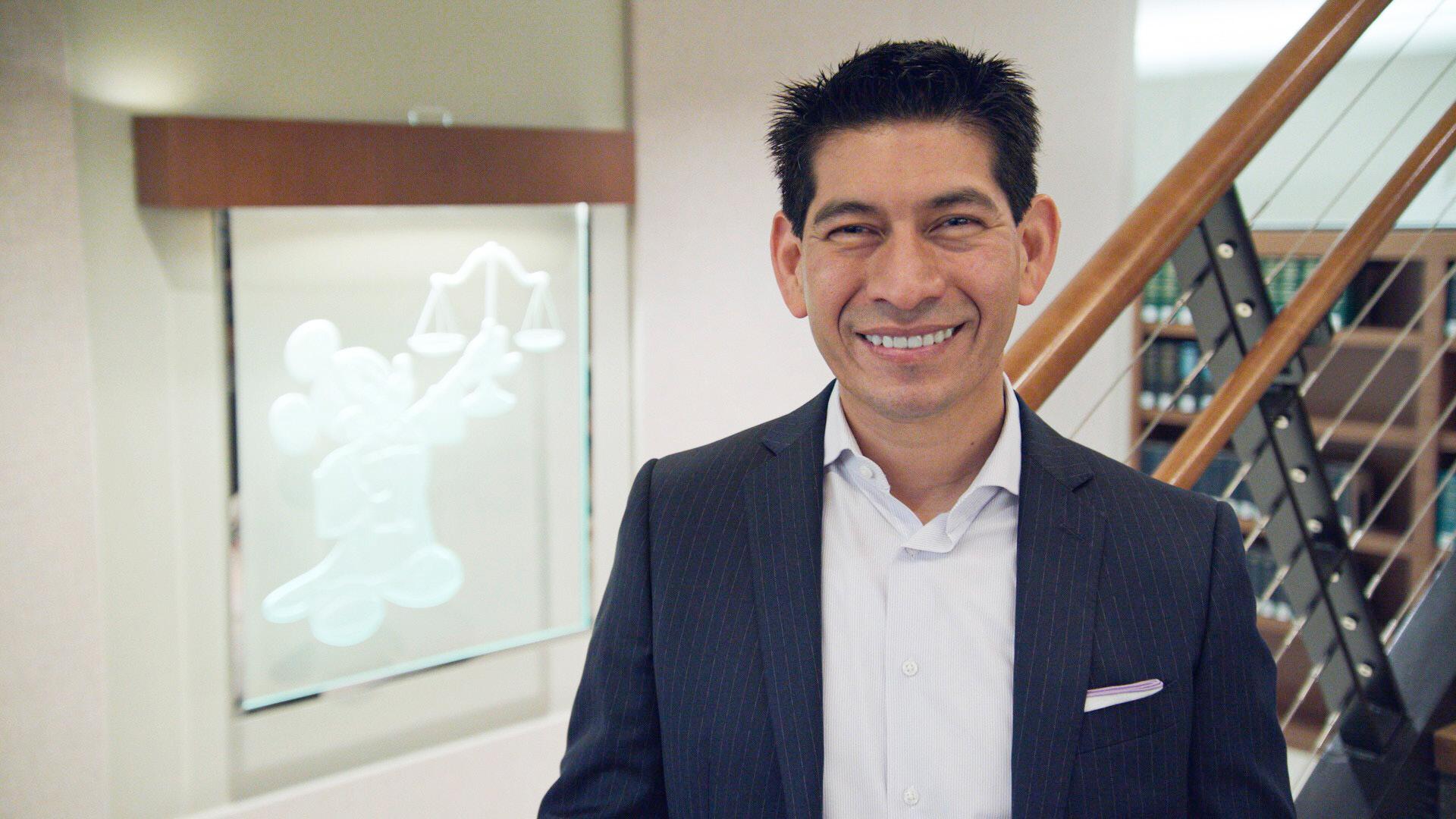
While Lopez’s own immigration experience was a positive one, he knows others face considerable challenges. That’s given him empathy he draws on today. “Coming to live or work in a new country is stressful because the process is complicated and in some cases, there are bad actors who try to take advantage of foreign nationals,” he says. “I help people navigate the system and overcome obstacles along the way.”
It takes patience, compassion, and understanding. In 2012, Lopez was promoted to his current principal counsel role and started developing immigration strategies to help the company hire foreign talent. As he got more deeply involved with US immigration, he started hearing horror stories of injustices and the suffering of vulnerable foreign nationals, particularly unrepresented children. That motivated him to work as an unpaid advocate, and Lopez now cochairs an internal pro bono immigration program at Disney and volunteers for several organizations, including Kids in Need of Defense (KIND) and Public Counsel.
The work is especially fulfilling. “I love what I do at Disney and am thankful that they are supportive of their lawyers doing pro
bono work because it’s another way we can make a difference in people’s lives,” he says. During law school, Lopez helped a woman from Honduras gain legal status. She needed to stay to take care of her child, a special needs US citizen, and Lopez’s work allowed the family to remain intact.
Lopez is finding more ways to use his background, skills, experience, and knowledge. He is an adjunct professor at Loyola Law School and an instructor at UCLA Extension, where he teaches his own US Business Immigration Law curriculum. It was the advice of a mentor (along with the wisdom of a supportive wife) that sent Lopez back to school. As he meets and interacts with students today, Lopez stresses three things that have been important in his own career:
mentoring, networking, and giving back. He helped Loyola and a former student create the Loyola Immigrant Justice Clinic, which provides representation to those unable to find immigration legal services elsewhere.
It’s Lopez’s platform at a well-known company like Disney and distinguished academic institutions such as UCLA Extension and Loyola Law School that’s helped him do so much in the legal and immigration communities. He cochaired Disney’s diversity and inclusion group, Disney Lawyers of Color, and while he encourages minorities to work in NGO and service fields, he also stresses the importance of representation in the legal and corporate worlds. “Latinos often face pressure to use their legal degrees only in public or nonprofit organizations, but it’s OK to choose a path to a big firm or company and then use your voice, influence, and resources to create opportunities for others and give back,” he says.
COVID-19 created both challenges and opportunities for Disney. Lopez helped numerous Disney productions and businesses continue to operate during the pandemic and recently helped the company reopen The Lion King on Broadway. He’s listed in the playbill and also has a credit in the theatre production of Frozen. Lopez appreciates the recognition, but says the real joy comes when he helps the company’s creators and employees accomplish their goals and dreams.
UCLA Extension offers thousands of courses to help you expand your skills, explore new opportunities, or pursue a passion. Take a course in accounting and finance, advanced leadership, legal programs, PostMBA program, and more.
Interested in teaching a course? We are always looking for dynamic, qualified instructors who share the same passion for learning as we do.
“Going back to college made me a better lawyer because I had access to a well-rounded US education I wouldn’t have otherwise received.”
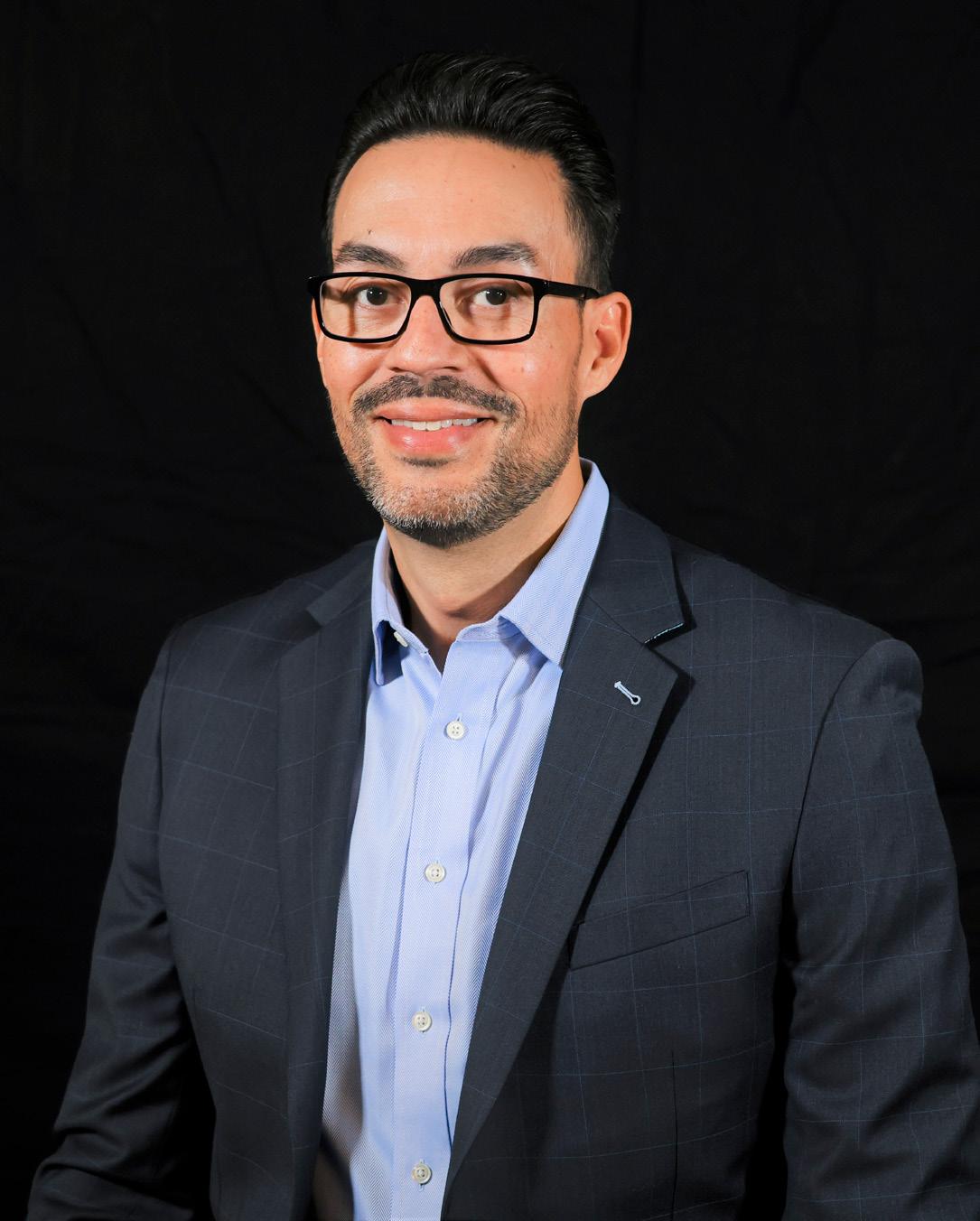 BY NATALIE KOCHANOV
BY NATALIE KOCHANOV
THE CULTURE AT MERITAGE HOMES REVOLVES around belonging and support. That’s never mattered more than it did at the onset of the COVID-19 pandemic.
“When the pandemic began, most other public homebuilders conducted layoffs of various sizes and scales,” explains Javier Feliciano, executive vice president and chief people officer at Meritage. “One thing that we’re really proud of is that we did not lay anybody off in the early stages of the pandemic or throughout it. We put our people first.”
The decision not to lay off employees set Meritage up for success as the demand for new homes increased. More importantly, though, the decision reflects the company’s six core values: Start with the Heart, Integrity Above All Else, Develop to Empower, Think Strategically, Build Value, and Play to Win. Feliciano helped establish this set of values several years ago, and today he remains committed to what they stand for.
Javier Feliciano EVP and Chief People Officer Meritage HomesFeliciano joined Meritage in late 2015, at a time when the company’s brand promise had recently been refreshed. He saw an opportunity for a corresponding values refresh that would align with the brand promise (“Life. Built. Better.”), both internally and externally. “We previously had a set of ten guiding values,”
he says. “Those guiding values had so much good content, but they were very long and difficult to remember. We knew that our values would be much more impactful if they were simplified.”
With that aim in mind, Feliciano connected with the executive team and leaders throughout the company to gain support for this initiative and ensure the commitment to seeing it through. Many of the same leaders went on to shape the values by sharing their on-the-job experiences. “The development of our core values was a collaborative effort from the start. For example, our division presidents were adamant that we include a core value about developing our people,” Feliciano says. “It was pretty cool to see our field leadership group step up to drive a core value that’s often owned by human resources.”
Since their introduction, the six current values have seen widespread adoption by Meritage employees. The values have also reinforced the company’s culture, which is as caring and supportive as it is fast-paced and contribution-driven. “Our organization has a strong competitive drive, and we strive for excellence in everything that we do,” Feliciano says. “We’ve been around for about thirtyseven years, and we have many employees who have been with us for more than twenty. I believe that’s a testament to the respect and appreciation the team shows one another.”
Meritage has continued to embody that culture amid the challenges of COVID. As the leader of people operations and internal communications at the company, Feliciano felt a personal responsibility to provide employees with trustworthy information, while leaving space for them to make their own decisions. To that end, he guided the efforts to bring in an infectious disease physician to answer employee questions, and he facilitated the collection and distribution of testimonials from vaccinated leaders and employees across Meritage to encourage hesi-
tant team members to voluntarily vaccinate. The company also added a monetary incentive for employees to get COVID vaccines and more paid time off to ensure employees could remain safe.
Beyond taking steps to keep everyone at the company safe, Feliciano focused on identifying new ways for employees to engage in professional development during COVID. “In 2021, we fully leaned into the virtual learning environment and conducted several virtual events for our people leaders as well as several all-company events. We encouraged every individual on the team to embrace their role as a leader and grow their career in the way that felt most meaningful and authentic to them,” he says. “For me personally, that means continuing to learn, continuing to be curious, and continuing to develop the necessary skills to support and serve others as the best version of myself.”
As he moves closer to that best version, Feliciano plans to ensure that the company’s core values keep pace. Now that onceaspirational values have become reality, updated aspirations will need to rise to take their place.
“More recently, we’ve been looking at our core values through the lens of diversity, equity, and inclusion (DEI) and examining the ways we can further embed DEI principles in the values and behavioral anchors we’ve created,” Feliciano says. “We’ve been on this amazing growth trajectory as an organization for some time, and we’re going to continue to focus on that growth, which is fueled by our very strong business strategy and organizational culture.”
DEI will be a guiding force in Meritage’s future growth in more ways than one. “As we continue to evolve and grow into new markets, we want to continue to reach a diverse set of customers,” Feliciano explains. Nodding again to the company’s core values, he adds, “I want people to understand who we are and what we stand for.”
“One thing that we’re really proud of is that we did not lay anybody off in the early stages of the pandemic or throughout it. We put our people first.”
Lizette Ibarra, founder and CEO of Latina Chief, saw a lack of representation of women and Latinos in management positions. Her company’s mission is to help correct that imbalance.
IT’S OFTEN SAID THAT A KEY TO SUCCESS IS “Find a hole . . . and fill it.” After more than twenty years working in HR and talent management, Lizette Ibarra faced a hard truth: Latinx people are underrepresented in executive roles, despite being a growing demographic.
But Ibarra didn’t simply grumble about the situation; she did something about it. Ibarra is the founder and chief empowerment officer of Latina Chief, an executive recruiting and placement firm that she founded in 2021.
Her journey began with her childhood in Guadalajara, Mexico. “I grew up in a large extended family,” Ibarra says. “My grandfather was raised in California but moved back to Mexico, and I was very close to him.” Ibarra recalls that he had an eclectic personal library, and she began reading about human behavior when she was eight or nine years old, becoming fascinated by how the brain works and why people behave the way they do.
Her first career plan, in fact, involved studying psychology or psychiatry. Instead, the now founder earned a degree in industrial relations at ITESO, Universidad Jesuita de Guadalajara, followed by a master’s degree in neurolinguistic programming from the Instituto de Programacion Neurolinguistica.
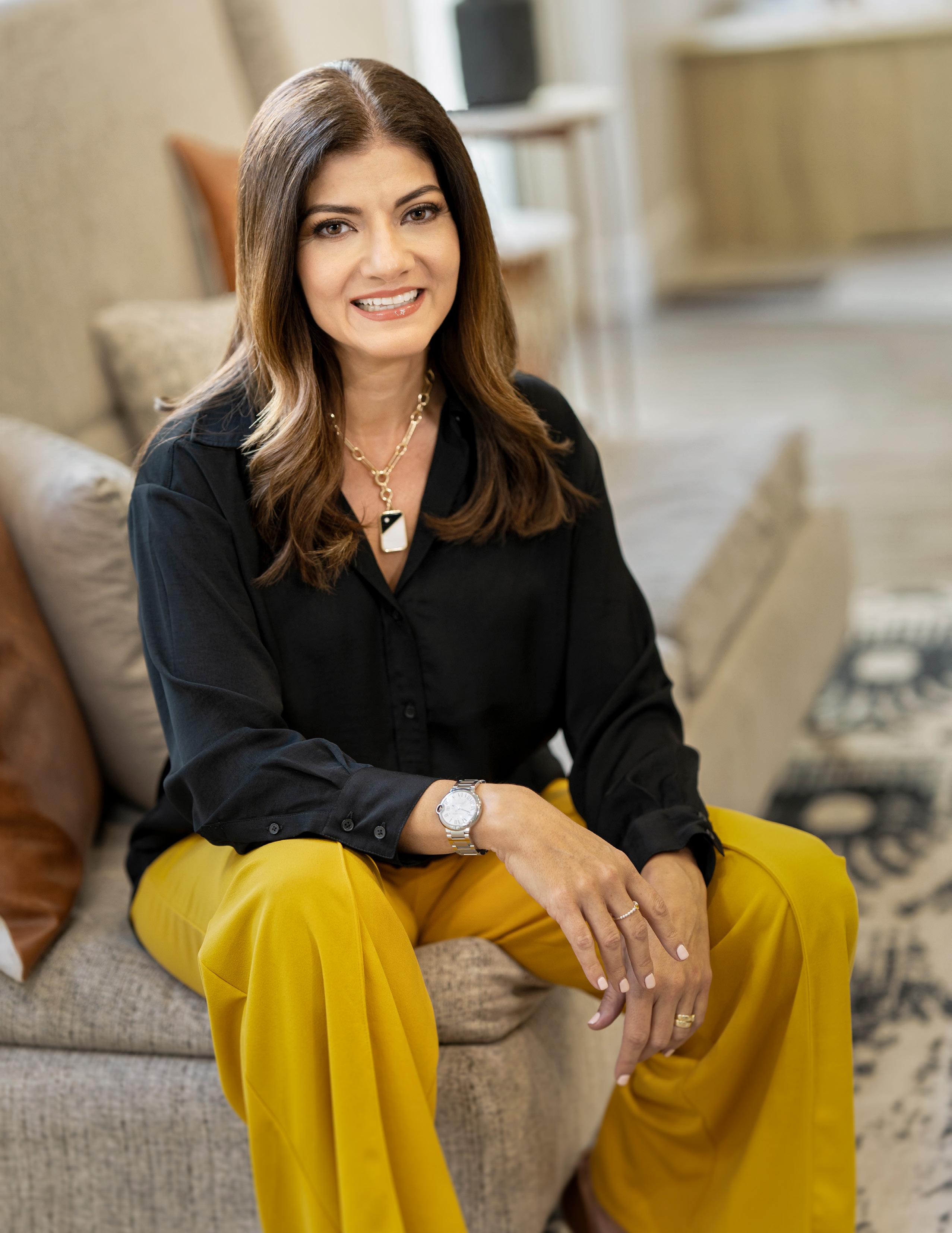
Ibarra entered the corporate world as a talent acquisition manager for Eastman Kodak in Guadalajara (the company’s headquarters for its Latin American operations), where she led the staffing and training strategy of the 5,500-employee facility. Subsequently, she served as HR manager for Johnson & Johnson’s medical devices manufacturing facility in the Monterrey area and as managing director for Mexico of the QualiFind Group, a boutique headhunter that had actually recruited Ibarra for her role at J&J.
She then launched her own firm, Bleumind Executive Search, a boutique firm that operated in Mexico and the US Hispanic markets. “I’d always been an entrepreneur at heart, so starting my own company was a no-brainer,” she says. “My goal was to build my team around women who had left corporate careers to be moms or wives and then wanted to come back. There were many talented women in that situation, and corporations didn’t go out of their way to hire
them. I hired them and created a successful search firm that helped many organizations find the right talent for high-specialty roles.”
After ten years as an entrepreneur, Ibarra returned to the corporate world as the first Latina partner at global search firm DHR International. Her involvement there in diversity, equity, and inclusion efforts led her to create Latina Chief—precisely because of the lack of diversity she saw in the workforce.
“Hispanics in the US account for 19.2 percent of the population, and there is roughly a 4 percent representation in executive ranks in corporate America and less than 3 percent in the board room. It’s not that Latino talent is lacking,” she explains, “but that qualified Latino candidates are simply overlooked in the recruiting and hiring process.”
Latina Chief intends to change that situation dramatically by working closely with Latino associations across the US, spanning many sectors. “We work with companies that truly want to diversify their workforce, and not just play the ‘tokenism game,’” she says.
In keeping with its mission to increase workplace diversity, Latina Chief has a broad client base. While some executive search firms concentrate on a specific industry, Ibarra estimates that 60 to 70 percent of her company’s business is in the industrial, consumer, retail, and technology sectors. “We’ve also been approached by a major pharmaceutical company that was tired of seeing the ‘same old names’ every time they engaged in a search,” she says. “They came to us for a fresh perspective.”
Likewise, Latina Chief’s targets span all levels of management. Ibarra herself oversees the search process for C-suite executives, general managers, board members, and executive-level staff. In her career, she has led more than 170 executive-level searches and helped place more than 2,500 professionals.
The company’s Latina Chief Rising division focuses on placing directors and managers, as well as individual contributors. That effort is steered by president Alejandro Romo, who has nearly a quarter century of experience in recruitment and designing, implementing, and executing world-class DEI initiatives and practices.
Ibarra points out that 80 percent of her business comes from repeat clients: “They know we will deliver what we promise, and that we’ll be honest in our dealings with them,” she says. “Latino demographics are trending upward, and companies that don’t get ahead of the game will be missing many opportunities for growth.”
Ibarra is also an avid tennis player, a sport that helps keep her mind, body, and soul in shape. “It’s the only time that I stop thinking about the business, my family, and everything else in my life,” she says. “I must stay super-focused on the game, because of you take your eye off the ball, you’ll lose it.
“It’s much like dealing with my clients; I need to keep an eye on all the little details.”
“It’s not that Latino talent is lacking, but that qualified Latino candidates are simply overlooked in the recruiting and hiring process.”
ANGIE VALDES UNDERSTANDS THE world through its tangible aspects. And in her role as the chief accounting officer at JBG SMITH Properties—an S&P 400 company that owns, operates, and develops properties in and around Washington, DC—she helps her organization achieve real, concrete results every day (pun intended).
“I like the fact that I can drive by a property, show it to my friends, and say we created that; this is our building,” Valdes says. “I enjoy real estate because you watch something from when it was a hole in the ground, and you get to see it grow. It just makes sense to me.”
This fondness for the physicality of a space stems from Valdes’s childhood. Growing up in a two-bedroom apartment with six other family members, the chief accounting officer had no choice but to be literally
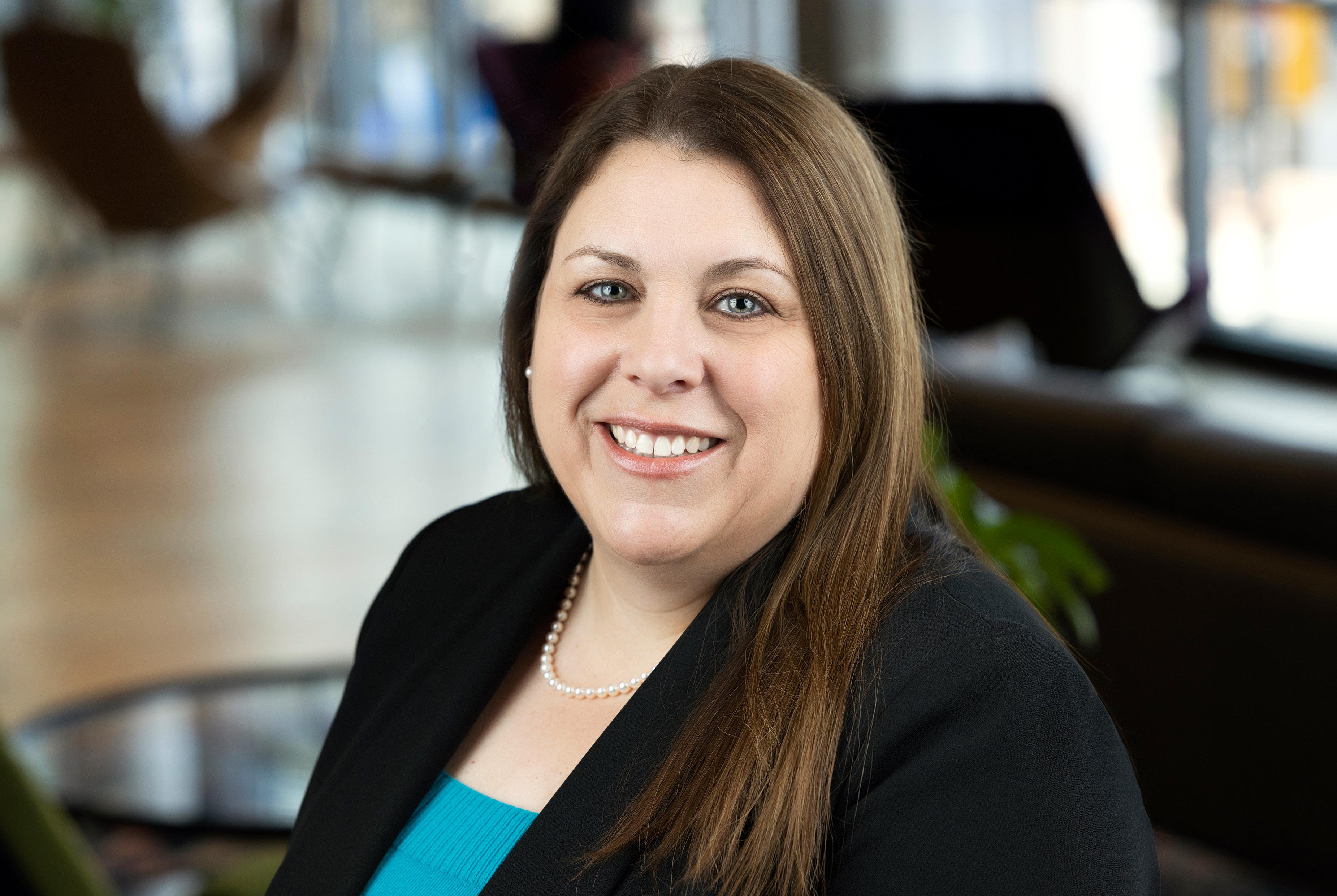
close to her parents, siblings, grandparents, and neighbors at almost all hours of the day. But these circumstances worked in Valdes’s favor in surprising ways—she reminisces about bonding with her grandmother, and eating dinner and attending sleepovers with her neighbor-turned-aunt down the hall.
The physical realities of Valdes’s childhood apartment enabled her to form meaningful relationships with those who surrounded her, as well as create a deep connection with her hometown of Hialeah, Florida.
It feels poetic in a way: Valdes’s family and broader community built her up, encour-
aging her to attend the University of Miami and pursue a career in accounting. Today, the chief accounting officer is the builder herself. She actively helps JBG SMITH create properties from the ground up, providing their hands-on team with valuable financial insight. Equipped with this information, JBG SMITH can be intentional and strategic when its team builds spaces, cognizant in its efforts to foster a sense of community amongst those who live, work, and relax in its properties.
Valdes’s lived experiences allow her to recognize how consequential a space can
really be. Thus, she is committed to JBG SMITH’s mission of creating value by developing and managing sustainable, vibrant places where people thrive. “We create the type of community that you would want to live in,” she says. “We’re very focused on the customer experience right from the beginning. It’s all about really engaging with the customer and providing the experience and amenities that they’re going to enjoy.”
Though Valdes is now a powerhouse in her field, her rise to the top was not without its challenges. Like many other Hispanic women, Valdes says she suffered from imposter syndrome early in her career. Though her education, career trajectory, and personal accomplishments clearly qualified her for high-level accounting positions, she still felt unworthy when stacked up against her white, male counterparts.
On the day before Valdes interviewed for her current role at JBG SMITH, she confided in her husband that she felt inadequate when comparing her résumé to that of other
executives at the company. “‘A bunch of them went to Ivy League schools, and I’m just this little girl from Hialeah,’” Valdes recalls telling him. “I kept wondering whether or not I deserved a seat at the table.”
Her husband responded to her feelings of self-doubt with heartfelt encouragement. “He said to me, ‘You know more about what you do than any of them,’” Valdes remembers. “‘You deserve to be there. None of them can do your job the way you can.’”
The chief accounting officer attests that this single interaction revolutionized her understanding of intrinsic love and confidence. She knows that self-assurance is critical to success; it enables you to take smart risks and venture outside of your comfort zone, and also changes the lens through which others perceive you. Valdes also recognizes that support systems are critical to building up a person’s sense of worth. Personally, she notes, her own support system takes shape as a composite of her work and home lives.
It was through her professional network that Valdes was made aware of the opening for her position at JBG SMITH. And now, she turns to her colleagues and peers at other companies for advice when dealing with issues at work. On the flip side, she places great emphasis on making workplace relationships meaningful to retain the connections. “Networking is never a chore. I just love getting to know people,” Valdes says. “I have a very deep network of people starting from my early days because I keep in touch with people. I even had people from my first accounting job at my fiftieth birthday party.”
In honor of those individuals’ support of her, Valdes is unflagging in her efforts to instill a sense of confidence and worth into those in her network. Whether it’s through frequent trips home to Florida to spend time with family or trivia happy hours and surprises for her staff, Valdes ensures that those around her know they are valued. She knows it takes a village to build one.
“I like the fact that I can drive by a property, show it to my friends, and say we created that; this is our building. I enjoy real estate because you watch something from when it was a hole in the ground, and you get to see it grow. It just makes sense to me.”
Patricia Arzuaga got support from others on her path to healthcare law. Kaiser’s senior counsel is now finding new ways to give back.
BY ZACH BALIVANOW A LONGTIME RESIDENT OF PRINCE George’s County, Maryland, Patricia Arzuaga grew up in the Bronx, where she learned her most important lessons by observing the adults in her life. Both of her parents were in labor unions and worked hard to support their three children. Teachers at her school invested in their students. Families at her church supported one another and reached out to those in need. Those experiences gave Arzuaga the principles and values that guide her today in her work as senior counsel at Kaiser Permanente.
While the New York public school system presented challenges for Latinos and other minorities, Arzuaga found a scholarship program that sent her to a private high school
nearby. When she got accepted to Yale, support from her father’s union helped pay for her education. She landed a job as a paralegal and later enrolled at Harvard Law School.
The young Latina from the Bronx entered Harvard with hope and gratitude, determined to make the most of her unique opportunity. “I knew I had been given a lot in life,” she says. “And the good influences in my life taught me that we all have an obligation to work hard and use the gifts we’ve been given to help other people.”
That’s exactly what she set out to do. Upon graduation, Arzuaga started her career in public service at the Justice Department, where she defended federal agencies against civil lawsuits. She received excellent training and learned what it takes to be a strong litigator.
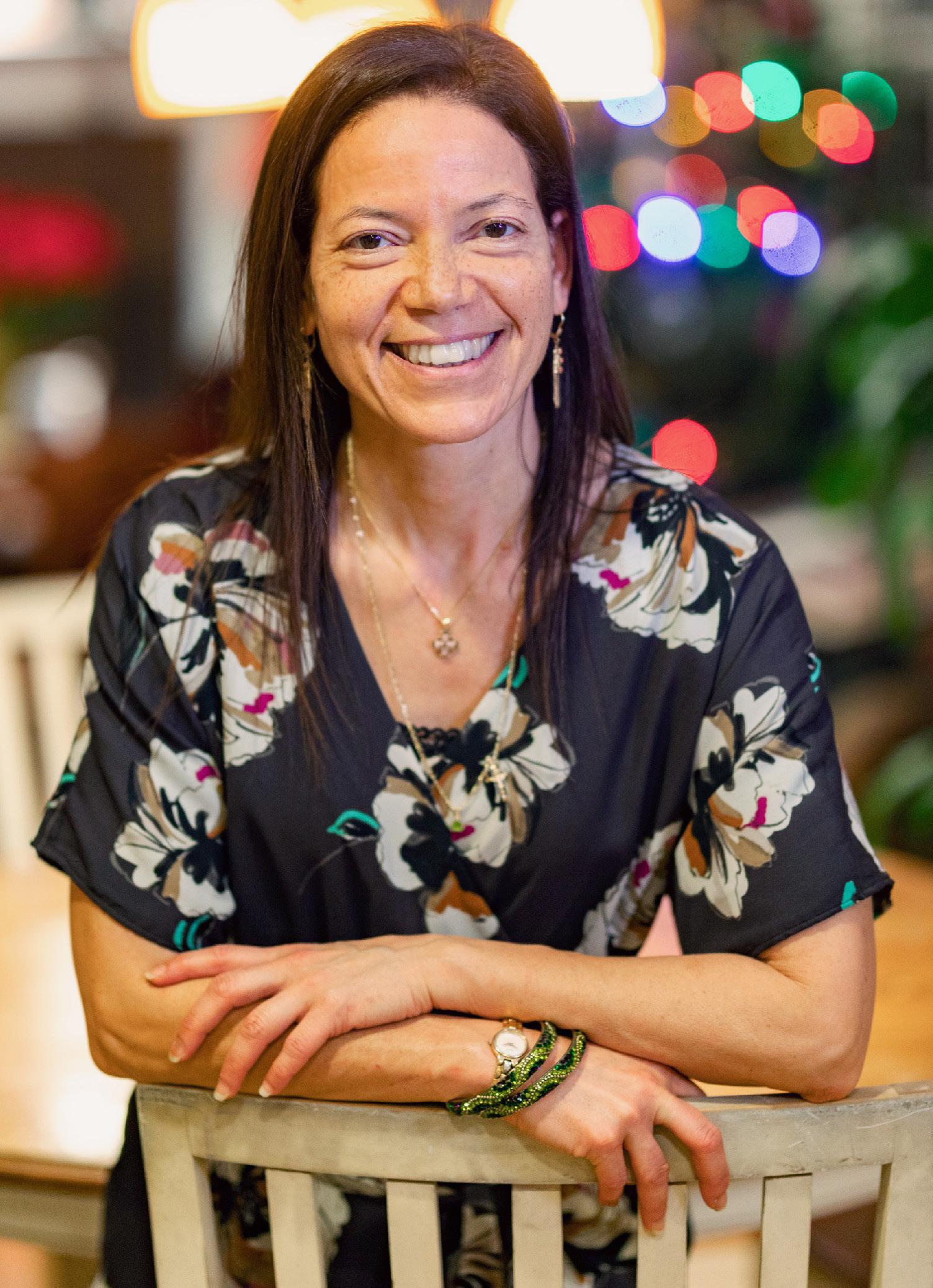
However, the experience left her longing for something more. “I’m curious by nature, and I love digging in on specific issues,” she says. Arzuaga wanted the opportunity to develop a deeper subject-matter expertise in a specific field.
That desire stayed in Arzuaga’s mind as she sought out new cases and assignments, and before long, she found herself working on her first Medicaid fraud case. When that case was over, she handled a similar matter, and as she dug into the nuanced issues and regulations, Arzuaga realized she’d found her niche in healthcare law.
Arzuaga spent the next portion of her career taking positions where she could explore her new interest and make an impact while refining her skills and her knowledge of how to provide access to and pay for healthcare services in the US. She worked on the first set of federal healthcare reform rules at the Department of Labor, lobbied on behalf of Blue Cross Blue Shield plans, and later drafted member documents for employer-based health plan clients at a large law firm.
All of these positions helped Arzuaga understand what has become one of the nation’s most complex fields. She wanted to leverage that expertise to help guide strategy for one client, which led to her taking a role on the legal team at Kaiser Permanente.
With eleven million members and two hundred thousand employees, Kaiser Permanente is the nation’s leading nonprofit health plan. Arzuaga serves as the organization’s lead regulatory lawyer for its mid-Atlantic region and advises executive leadership in setting strategy for delivering high quality, affordable health care for Kaiser’s members and in improving the health of the communities that Kaiser serves. Her work impacts the company and its customers alike as Kaiser continually enhances services to ensure group purchasers and individual plan members understand how their plans work to help people take care of their health.
During her fifteen years at Kaiser, Arzuaga has looked for ways to give back and support her colleagues. Through the Kaiser Permanente legal department’s diversity, equity, and inclusion (DEI) program, she has mentored other staff, and worked with her colleagues to support a robust internship program that partners with colleges and schools to provide professional opportunities to a diverse range of students. Through this program, the department has created incentives that encourage outside law firms to diversify their teams and to increase professional opportunities and development of minority, female, and veteran-owned vendors.
For Arzuaga, these efforts also extend outside of the workplace and into the community. “I have a huge passion for giving back to the Latino community that did so much to put me on the path that I followed in my professional life,” Arzuaga says.
She serves on community nonprofit boards, including the Latin American Youth Center, an organization that provides educational, workforce development, housing, and
health and wellness services to over four thousand kids and families at youth centers and other sites in Maryland and the District of Columbia. She is also the current chair of the Board of Trustees of Luminis Health Doctors Community Health Center, which just received a Certificate of Need to build a new behavioral health facility and plans to submit another to expand obstetrics and gynecology services.
“Not only is Patricia an essential member of Kaiser’s legal team, but her expertise and passion for giving back make her an invaluable part of the Luminis Health System Board of Trustees,” says Rene LaVigne, CEO of Iron Bow Technologies.
All the work that Arzuaga does aims to improve equity in the delivery of healthcare and remove barriers to treatment to give more individuals access to healthcare. “We’re helping people have access to the services they need to live life to the fullest,” she says. It’s another way she’s living out her lifelong mission to apply her skills in the service of others.
“The good influences in my life taught me that we all have an obligation to work hard and use the gifts we’ve been given to help other people.”
UNDERSTANDING AND APPRECIATING different kinds of people and perspectives is a skill Stephen Cornejo Garcia has been developing all his life. It makes him uniquely qualified for his role as director of inclusive diversity and equity at Allstate, one of the nation’s largest publicly held personal lines insurers. There, Cornejo Garcia develops and executes strategies that ensure diversity, equity, and inclusion (DEI) are integral parts of the company’s operations, from the people Allstate hires to the processes that the company uses to drive results.
Cornejo Garcia’s philosophy is the same in and outside of work: no matter what situation he’s in, he strives to stay curious, avoid generalizations, and get to know people at an individual level.
“It doesn’t matter who you are; you have your own unique lived experience,” he says. “My approach to life is to get to know people at that level. If I meet someone new, I don’t make assumptions about them. Even though I may be challenged by my own unconscious
biases, I try to take it to the next level and be conscious about knowing them beyond what I might be seeing with my eyes.”
That’s also why, when Cornejo Garcia thinks of diversity as it relates to Allstate, he thinks of “diversity of all types.”
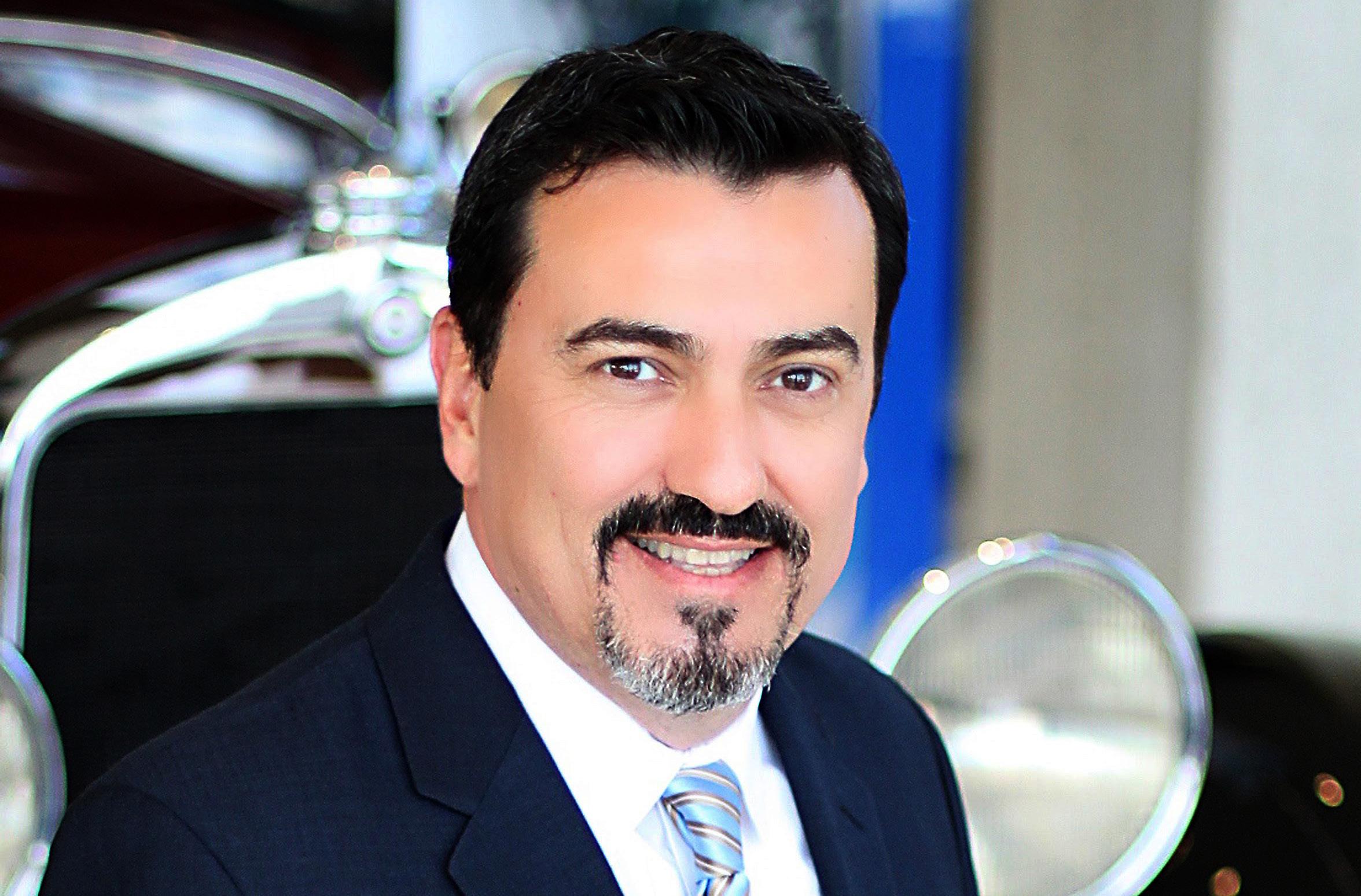
“Diversity is every unique dimension about our background and experience that’s important to us,” he explains. “Equity is ensuring the fair treatment of all people and also removing barriers that have prevented some communities from that fair and just treatment. Inclusion is the way we bring it all together. We have to ensure everyone has a sense of belonging and is empowered to bring their voice forward and be their best self.”
This powerful mentality was born out of Cornejo Garcia’s upbringing in Berwyn, Illinois, a suburb just west of Chicago. He was the product of a Mexican American father and an Irish German mother, who began dating in a time when there weren’t many mixed-race couples. He was also raised in a neighborhood where there weren’t many Latinos or people of color and where he and his family experienced racism and discrimination. Nevertheless, Cornejo Garcia credits his upbringing with teaching him valuable lessons and helping him build the skills he’s utilized throughout his life—particularly in his current role.
“It has really served me well in terms of understanding different perspectives, as well
“If I meet someone new, I don’t make assumptions about them.”
as how to work with different people and how to get curious about different cultures and experiences,” he remarks.
It was that same curiosity about other cultures that inspired Cornejo Garcia, a first-generation college student, to study abroad in Paris. The experience expanded his worldview, he says, and helped him learn how to navigate cultural differences.
After graduating, Cornejo Garcia landed a consulting job at Gans, Gans & Associates. For the first time, he had an opportunity to travel as a professional and to get to know different workplace cultures. After two years there, he moved to Arthur Andersen, one of the biggest consulting firms in the world. This marked Cornejo Garcia’s transition into organizational development work, and as he continued on that path, his cross-cultural competencies continued to strengthen.
In 2002, a former colleague told Cornejo Garcia about a job opening at Allstate, and he joined in 2003. In his tenure at Allstate, he has served in a number of key roles in many areas of the business, including learning and organizational effectiveness, technology and operations, and agency sales and service.
These experiences served as a great foundation for the most recent chapter of Cornejo Garcia’s professional life, which has seen him serve Allstate as the director of inclusive diversity and equity. In this role, he has helped the company develop its DEI strategy, define organizational priorities, develop team and organizational capabilities, and expand the scope of DEI support to geographic locations outside the US and within the company’s affiliate organizations.
But to Cornejo Garcia, his biggest accomplishment is not the programs that he has helped enhance or the initiatives he has established. His greatest achievement, he says, is the role his team has played in helping Allstate navigate and address critical issues such as systemic racism, social inequity, and unconscious bias. As he puts it, “We are proudly supporting one of the company’s core values.”
Outside of his work at Allstate, Stephen Cornejo Garcia is actively involved with professional and civic organizations such as Women Unlimited, ALPFA (Association of Latino Professionals For America), HACE (Hispanic Alliance for Career Enhancement), the Organizational Development Network, and the Conference Board Diversity & Inclusion Leadership Council. He serves on the boards of DisabilityIn: Chicagoland and Mujeres Latinas en Accion, a social service agency that empowers Latinas by providing services that reflect their values and culture. He is also a Fellow of Leadership Greater Chicago, the region’s premier civic leadership organization.
Katie Fernandez enables Chobani’s mission of making nutritious food available for all
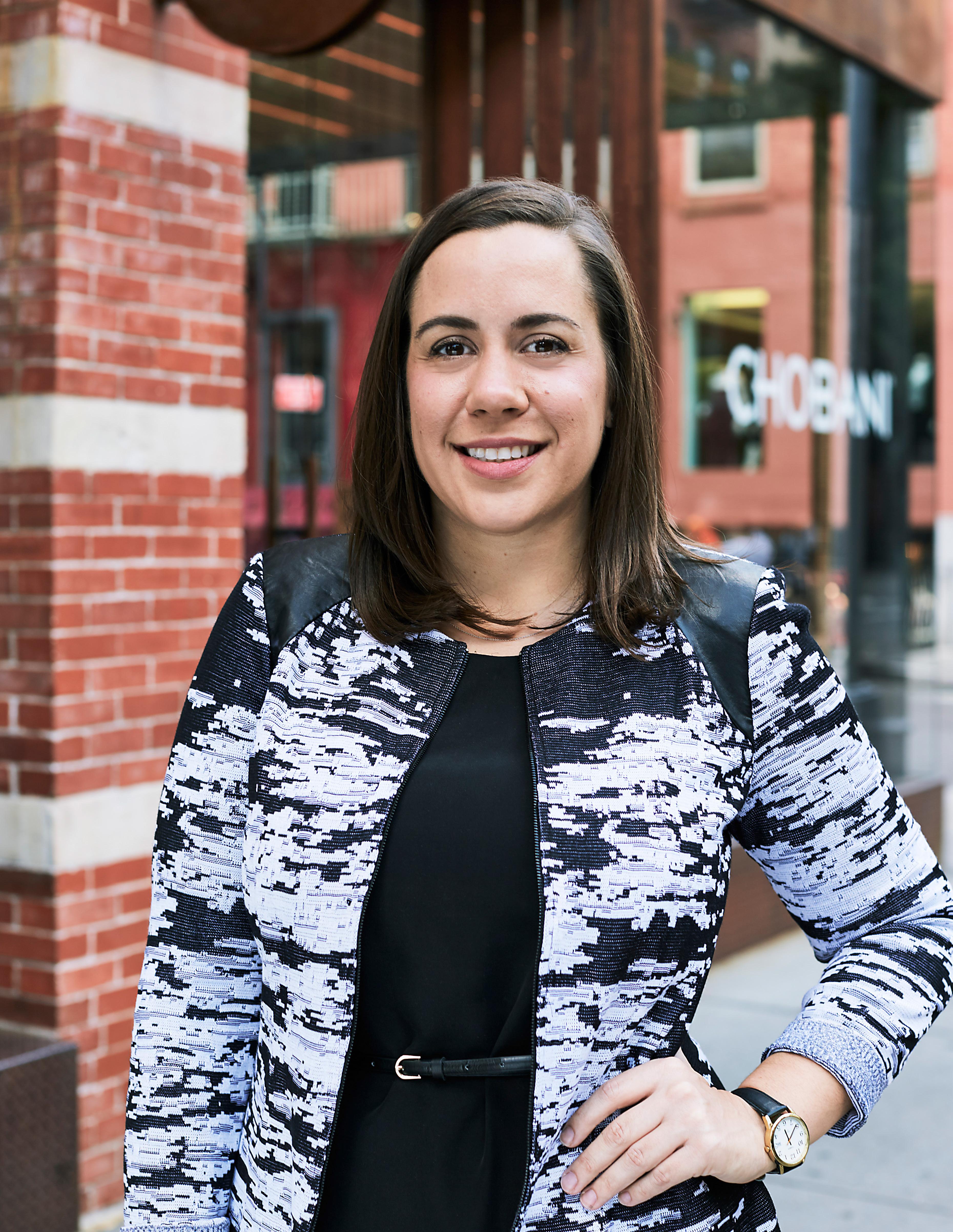 Katie Fernandez
VP and Associate General Counsel
Katie Fernandez
VP and Associate General Counsel
The vice president and associate general counsel (AGC) at Chobani hasn’t ever been a lone operator: she’s had a twin sister by her side since before she can remember, and the two successful executives have pushed and supported each other for their entire personal and professional lives. The sisters currently live just a few blocks from each other in Brooklyn.
“I really think it had a significant impact on who I am and how I lead,” Fernandez says of her twin. “I know that you really can’t accomplish as much by yourself as much as you can with the support of others. And coming from a close family, I learned how every decision that you make impacts more than just yourself.”
That conscious leadership and team focus make the attorney a perfect fit at Chobani, where she has spent the last six years. The company’s mission of making nutritious and high-quality food available for more people, its commitment to providing refugees with employment opportunities, and its fundamental grounding in making the world a better place are perfectly aligned with its mission-driven AGC.
Fernandez says Chobani’s mission is her North Star, and as she continues to take on new responsibilities like supporting the company’s impact team (the team responsible for the company’s environmental, social, and governance (ESG) goals), the complexities of those challenges are made a little easier by the fact that Fernandez knows that doing the right thing is always top of mind for her team and her company.
The lawyer’s passion for her employer extends beyond just her six years in-house. Chobani was one of the first companies that helped Fernandez feel like she hadn’t made a huge career mistake when she took her first legal job as a litigator at a big New York City law firm.
“I graduated from law school in 2009 during one of the biggest economic downturns in history. My firm represented banks in residential mortgage-backed securities cases, which is about as depressing as it sounds,” she remembers with a laugh. “I was the first person in my family to go to law school. I paid my way and took out obscene amounts

We are proud of Katie’s many accomplishments as a legal leader and her well-deserved recognition by Hispanic Executive. And we are honored to partner with as its trusted counsel.
 © 2022 Morrison & Foerster LLP
© 2022 Morrison & Foerster LLP
of money in loans, which left me feeling somewhat trapped—and this just wasn’t what I had envisioned my career would look like.”
Fernandez caught a brief respite from the bank work, doing just enough outside counsel work for Chobani to know that the company was something special. The experience pushed her to seek out more food clients and may have saved her career in law, she says.
When Chobani ran an ad campaign that called out its biggest competitors, litigation followed, and Fernandez knew it might be the perfect time to go in-house. She reached out to Chobani and said she’d love to handle the case, from inside the company. That was six years ago, and the attorney hasn’t looked back.
Fernandez says her daily work is anchored by a broader belief at Chobani: good food is a right, not a privilege. “Our mission is to democratize good food and to not make it untouchable for those who aren’t wealthy,” the AGC explains. “Accessibility and affordability without sacrificing quality are essential for us, and that really motivates me.”
A colleague of Fernandez attests to her embodiment of this passion. “Katie is an exceptional lawyer dedicated to supporting Chobani’s vision to make nutritious food accessible to all and fighting for integrity in the food industry,” says Jamie Levitt, managing partner at Morrison & Foerster LLP. “She leads by example, thoughtfully guiding her teams through complex legal and business issues with impeccable judgment and a steady hand.”
Food has always been an important part of Fernandez’s life. Her Cuban father was the family cook, and she says the important connection between culture, food, and
community is vital in helping address issues like food deserts and other areas where finding healthy food is far harder than it should be.
In her legal role, that means helping enable Chobani to be as forward-thinking as it can be in finding new ways to enable its mission. “Chobani is quite entrepreneurial, and I think we attract people who have that spirit, myself included,” Fernandez says. “It’s not necessarily what you’d expect from a lawyer; typically, we like rules and defined terms and things to fit in a box. But that just doesn’t work here, and it makes my job far more interesting and fun.”
Fernandez has been instrumental in supporting activist, philanthropist, and Chobani Founder Hamdi Ulukaya as he continues his efforts to aid refugees in any way that he and his company can. Fernandez says she has worked on countless charitable projects
“We want to find tangible ways of helping people, and for refugees that means committing to ways that help them find legal, decent work.”
at Chobani, including Chobani’s partnership with nonprofit (and Ulukaya-founded) Tent Partnership for Refugees, a network of over two hundred member companies committed to integrating refugees in their host communities.
Last year, the AGC proudly led Chobani’s partnership with Tent’s new consumer-facing initiative, UNSTUCK: through that partnership, the Chobani x UNSTUCK mango and cream Greek yogurt—made with fruit from suppliers committed to hiring refugees—was launched. Fernandez is excited to be working with Chobani and Tent on an additional UNSTUCK offering later this year.
“We’re dreaming really big here about what we might be able to accomplish,”
Fernandez says. “We want to find tangible ways of helping people, and for refugees that means committing to ways that help them find legal, decent work.”
The AGC is also helping Chobani hold itself accountable for its ESG goals. While its products are nutritious, the company wants to make sure that they are made sustainably.
Fernandez says it’s a time-consuming process but a worthy investment, because the company wants to truly lead in the space and avoid what might be seen as a growing trend of “green-washing,” conveying the false impression that products are more environmentally sound than they actually are. Chobani’s committed to making a positive environmental impact, but the team knows that’s not something that happens overnight.
Fortunately for Chobani, time seems to be on its side when it comes to the commitment from its AGC. Fernandez says she has found her dream job, a mission that matters, and a culture that’s committed to doing the right thing.
YES PREP, A PUBLIC CHARTER SCHOOL system in Houston, has come a long way— and so has its chief talent officer, Tony Muñoz. YES Prep originated in 1995 as a one-room after-school program. Today, it has more than twenty campuses and has helped more than seventeen thousand students from underserved communities.
YES Prep’s mission is to redress inequalities in education, a goal that hits close to home for Muñoz. He grew up with ten siblings in Blue Town, Texas, a povertystricken area close enough to the Mexican border that from his home he could see the wall. “We didn’t have running water,” he recalls. “It wasn’t until the 1990s that sewers were installed and we no longer had to dig a hole for an outhouse.”
His parents were immigrants from Michoacan, Mexico, who had both left school after the third grade. “They couldn’t help me with my homework,” Muñoz says. “But my mother would say, ‘Go learn. No one can take that away from you.’”
Muñoz would become the first in his family to earn a college degree. Upon gradua-
tion, he entered the education sector. He saw it as “an opportunity to change generational poverty for kids who grew up like me,” he says.
Muñoz’s sense of social justice developed early. He was a migrant farm worker between the ages of nine and seventeen, an experience that opened his eyes to how much the treatment of employees matters. “My family traveled every summer from the Rio Grande Valley to Ohio and Michigan,” he says. “We picked cucumbers, tomatoes, strawberries, and cherries. As a kid I could see some things that weren’t right: the wages we were paid, the conditions we lived in. When we would go up north, we stayed in migrant camps, which were basically one-room shacks. I remember one time we were out picking strawberries in Michigan, and a plane dropped pesticides on the crops while we were working.”
His first job was as a school social worker for the Harlandale Independent School District. He subsequently coordinated parent involvement for the Grand Prairie public school system prior to joining Dallas ISD, where he spent twelve years working on talent development and acquisition.
Muñoz then moved into the private sector, working in HR for four years at Marriott. “I loved the work,” he says. “But I never felt I was making the impact I was meant to make.”
This was brought home to him when he interviewed an applicant for a dishwasher position. “I knew this kid,” he recalls. “He was twenty years old, the same age as my son, who was attending the University of Houston. They attended the same elementary and middle school, but once they got to high school, parents were given a choice. His parents left him in the failing high school, while we put our son in a science and engineering magnet school because I knew the system. I was reminded that too many kids who grew up like me don’t go on to realize their potential because their parents didn’t know any better. I needed to take my talents back to school systems.”
Muñoz has been with YES Prep for a year and a half. As chief talent officer, he’s charged with the three R’s: recruit, retain, and reward. “I find creative ways to reward and recognize our staff’s highest performers while also honoring the commitment of all employees,”
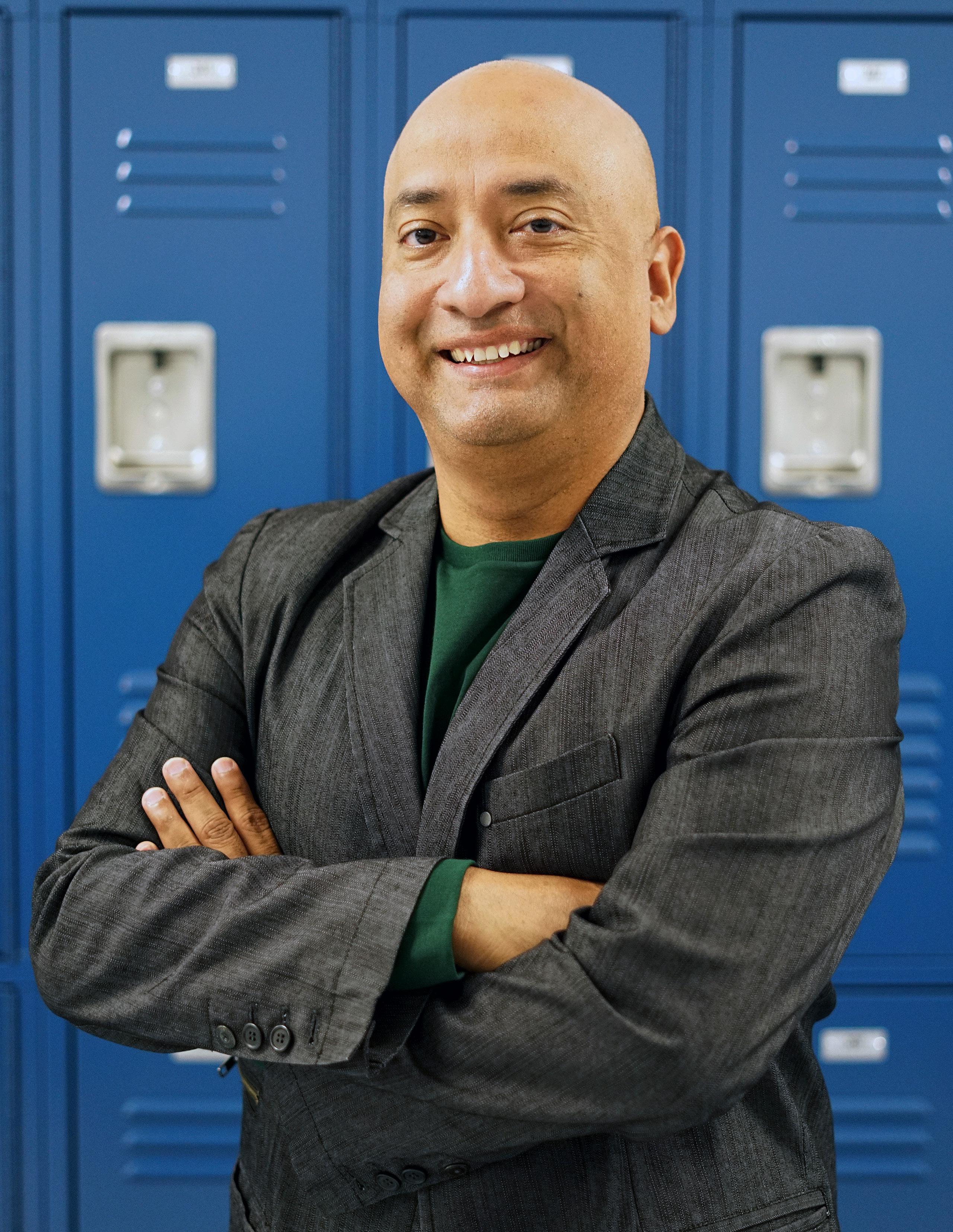
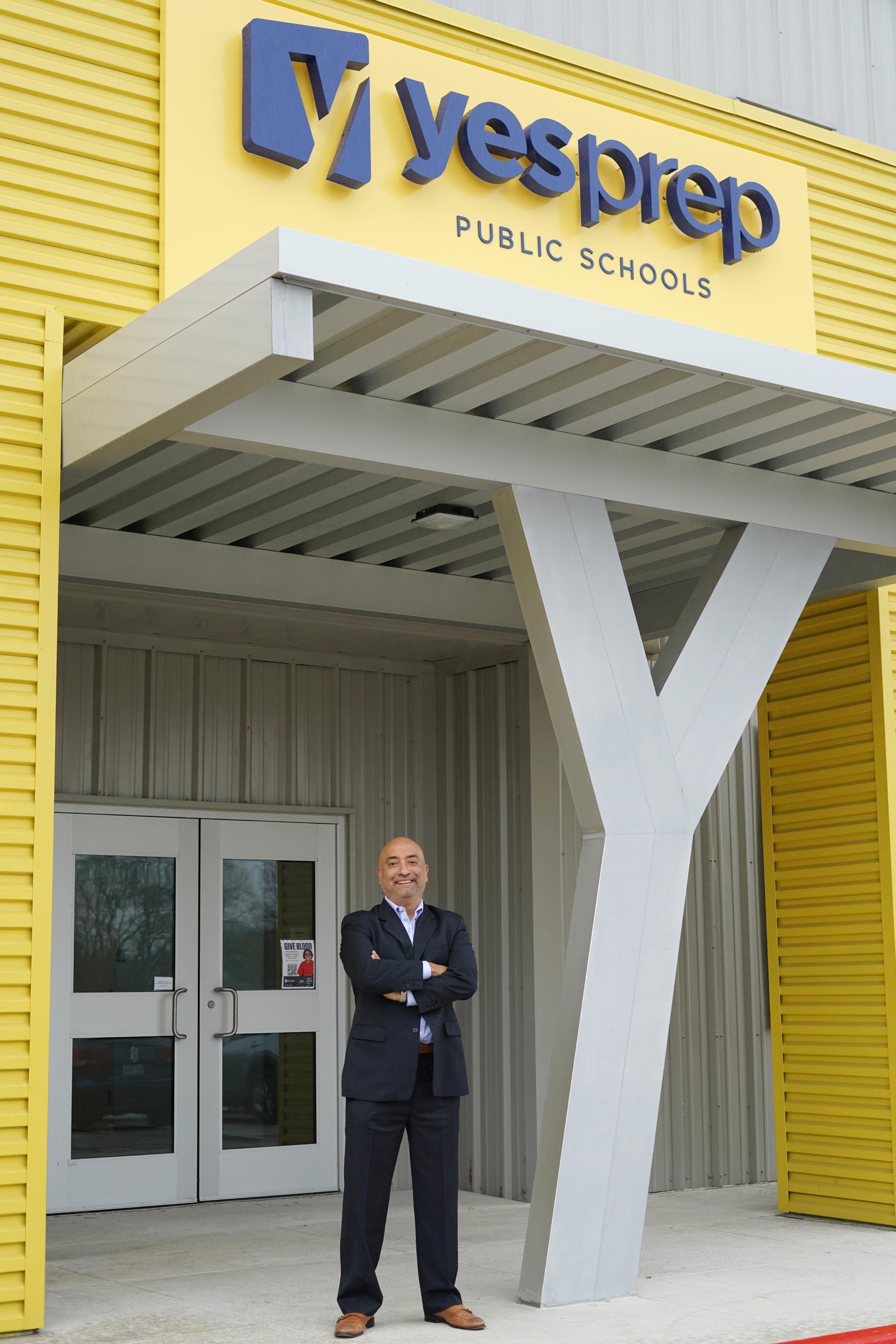
he says. “I think of HR as the conscience of the organization. How are we treating our employees? Are we living out our core values? That’s the lens through which I see everything I do.”



The challenges he faced when he joined the company were immediate. First, the pandemic forced YES Prep to go virtual and required that Muñoz seek out educators with the unique skill set to teach virtually.
“I’m looking for two things when recruiting educators: grit and grace,” he says. “That means in part that if they deliver a lesson plan that doesn’t engage the students, they’ve got to have the grace and the grit to try again.”
Another initiative he is driving is freeing YES Prep from Texas’ staterun health benefits co-op. “By legislative action, nearly every school system had to participate,” he says. “The benefits are terrible and the premiums high. It was not working for us. This past year, school districts were given a one-time out. I’ve signed a proposal that will offer better benefits and lower premiums. My focus has been on the mental health of our educators, and the new proposal doubles the amount of free counseling sessions.”
Three years ago, YES Prep began to adopt a more holistic approach to educating students from Houston’s underserved communities. The focus was initially on grades six to twelve, Muñoz says, but they realized a lot of the incoming kids were two or three grade levels behind. “We would get them at sixth grade, but they were reading at second- to third-grade level. We had a conviction that we should be doing more, and our founder and the board launched campuses to give elementary students equal opportunities. Our philosophy is simple: rather than looking at students from a deficit way of thinking, we ask what strengths they have. What can we build on?”
One thing that won’t change is the system’s local focus: Muñoz takes pride in YES Prep’s commitment to the community. “We are committed to Houston,” he says.










“Too many kids who grew up like me don’t go on to realize their potential because their parents didn’t know any better.”
A calling to serve others led Abby Figueroa away from her career as an accountant. Now, she’s helping Atria Senior Living build strong communities where residents can thrive.
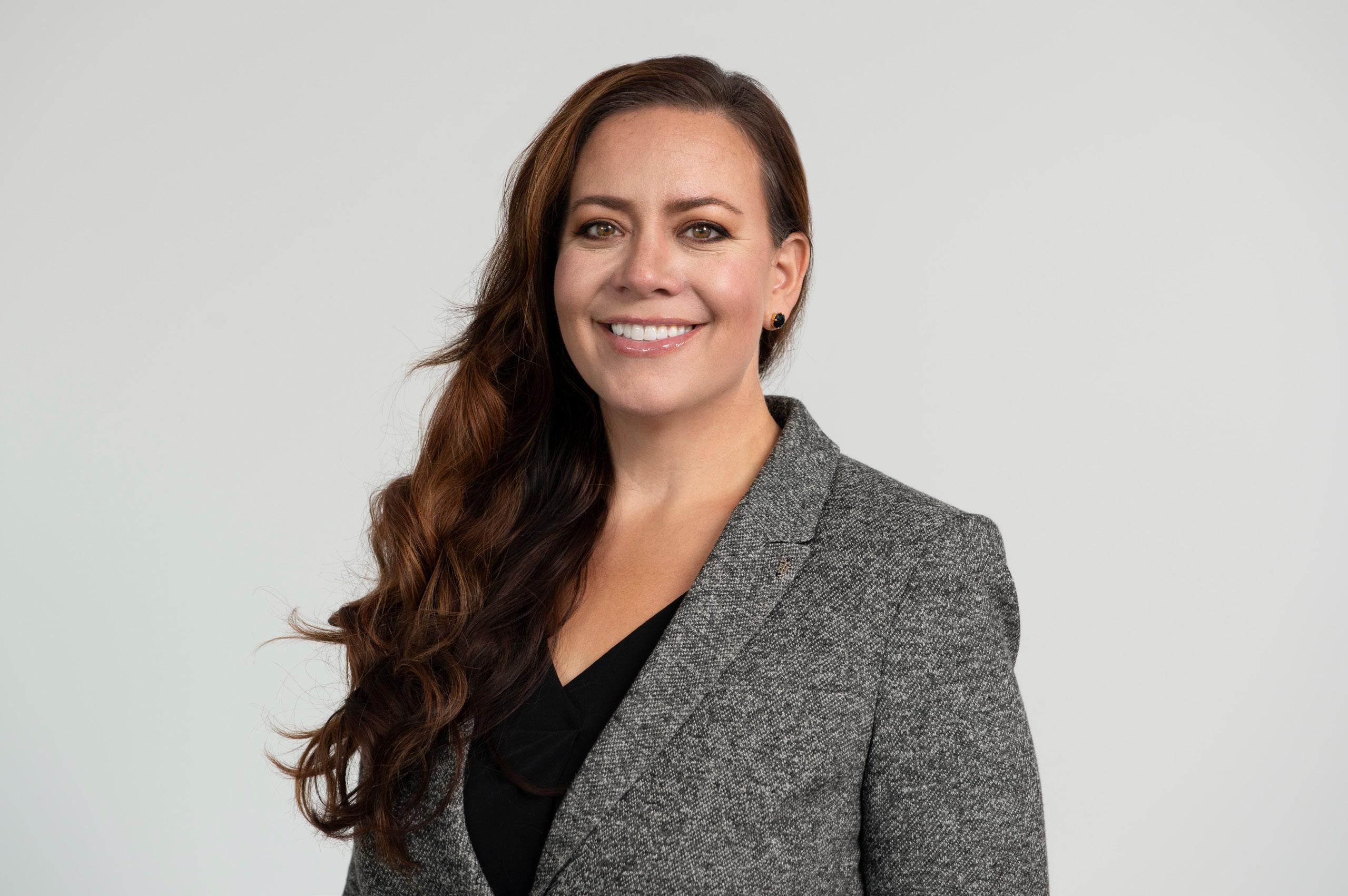
ABBY FIGUEROA WAS TWO YEARS INTO her entry-level job as an accountant at an energy holding company. The young finance grad sat surrounded by ledgers, invoices, spreadsheets, receipts, and bank statements. She analyzed data, KPIs, and metrics all day every day, and although she loved the math, she soon realized something was missing— the human element.
Life circumstances took Figueroa from New Mexico to Kentucky, and she took the opportunity to make a clean break and find something new. She started looking for the chance to apply her skills in a different, more people-focused industry. “Math is great, but I wanted to use math to help mission-driven people achieve more than pure business objectives,” she explains. “I wanted to make a difference in people’s lives.”
This decision was motivated in part by Figueroa’s parents. Her father came to the US from Mexico as a teenager and worked two jobs while going to night school to learn English. He followed his own passion by running an auto body repair shop. Her mother also attended night school to earn a nursing degree. “My parents showed me that you should be passionate about the work you do,” she says, “and that if you don’t have that passion, you should never stop looking for it.”
Figueroa found her passion in an unlikely place—the senior living industry. When she interviewed with Atria Senior Living—a top operator of independent, assisted, and supportive living communities with more than 430 sites in forty-five states and seven Canadian provinces—she noticed right away that something was different about Atria. Its leadership team really seemed to care about its residents and their families. To Atria, the forty-five thousand seniors it serves are
more than just numbers or clients. They are valued members of a community who need a chance to contribute, live, and thrive in their new environment.
It was a mission and vision Figueroa could get behind. She started as a staff accountant and quickly noticed how she could apply accounting and finance to not only support Atria’s communities from a business perspective but also give her colleagues the tools they needed to provide meaningful experiences and interactions for their residents.
“Senior living may not be top of mind for many aspiring professionals, but once people are in this industry, they can’t imagine working anywhere else.”
Through perseverance and exemplary leadership, Abby Figueroa, Senior Vice President of Functional Operations, helps Atria continuously serve residents and their families.
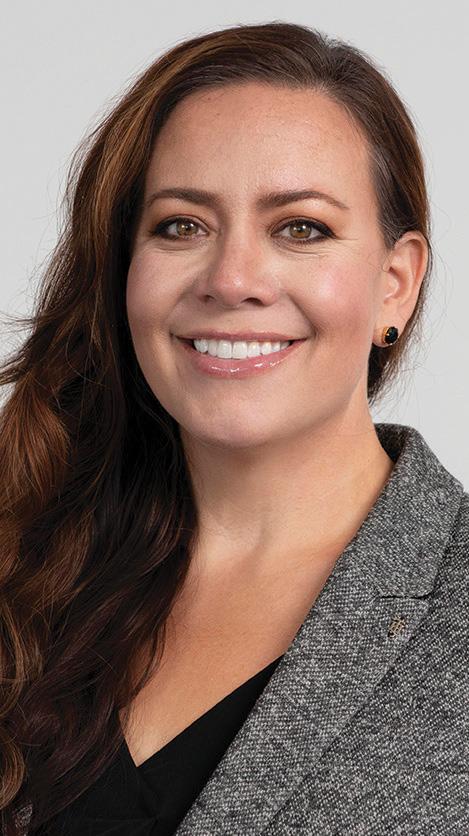
On behalf of more than 16,000 employees and more than 45,000 older adults who choose to call Atria home, thank you for your meaningful contributions.
Atria, Figueroa explains, has an entire program dedicated to helping its seniors find meaningful ways to live out the next phase of their lives. The Next Chapter initiative is a collaborative effort that brings in spokespeople like Billie Jean King who can help give Atria residents the opportunity to find and pursue new interests “with energy and optimism.” Figueroa has seen seniors discover talents in creative writing, music, watercolors, and other areas.
Figueroa was two years into her tenure with Atria and thriving when she found out that her own mother had developed some health problems. Figueroa needed to return to New Mexico to be with her family, and Atria supported her—and offered her a role as a community business director. The move took Figueroa out of the corporate office and into a community where she could work directly with residents and colleagues. She split her time evenly between managing the community’s finances and helping families, residents, and frontline employees.
Mentors later helped Figueroa step into roles of increasing responsibility and leadership, and with every step she took, her conviction that she was in the right place grew stronger. “Senior living may not be top of mind for many aspiring professionals, but once people are in this industry, they can’t imagine working anywhere else,” she says.
Figueroa has now been with Atria for fifteen years. She’s back in the company’s headquarters as the senior vice president of functional operations, in which role she helps provide strategic direction to create, implement, and support the programs that help Atria’s seniors “live their best lives.”
Along with her constant focus on supporting the residents of Atria’s various communities, the SVP has made workplace culture a priority. Each team Figueroa leads emphasizes diversity—and that goes beyond race, ethnicity, and age to include professional backgrounds. By uniting people from a variety of industries, she’s created teams that can approach things differently and help Atria stand out from its competitors. Those teams are working in turn to promote diversity and inclusion within each individual Atria facility.
Although Figueroa is back at Atria’s corporate headquarters, her favorite moments come when she gets the chance to visit a community and interact with its residents. When she sees seniors trying new experiences, meeting new people, and living a new life, she knows she’s in the right place. She’s making an impact, but that impact goes both ways. “It’s inspiring to watch our residents do what they do,” she says. “We’re here to serve them, but we’re learning from them too.”
Atria Senior Living Is Proud to Recognize Abby Figueroa
What is the secret to successful leadership? The impressive executives share their strategies that engage both the mind and the heart.
80. Claudia Torres Yañez, SunPower Corporation 86. Daniel Gandarilla, Atrium Health 94. Rafael Villalobos, Capital Health 100. Andrea Becerra Prado, Entravision Communications 103. Paula Pabón Smith, Kentucky Farm Bureau Mutual Insurance Company 106. Milagros Concepcion, Rochester Institute of Technology 112. Mark A. Hernandez, Charter Communications 116. John Machado, UKG 122. Rafael Gonzalez, Aultman Hospital 125. Nelson DaCunha, Otis Elevator Company 128. Luis Machado, TopBuild Corp. 134. Juan Cruz, Vedder PriceClaudia Torres Yañez was on the fast-track to financial leadership when she decided to embrace her enthusiasm for HR. Her intersectional expertise has since enabled her to see SunPower Corporation through a complex spin-off experience.
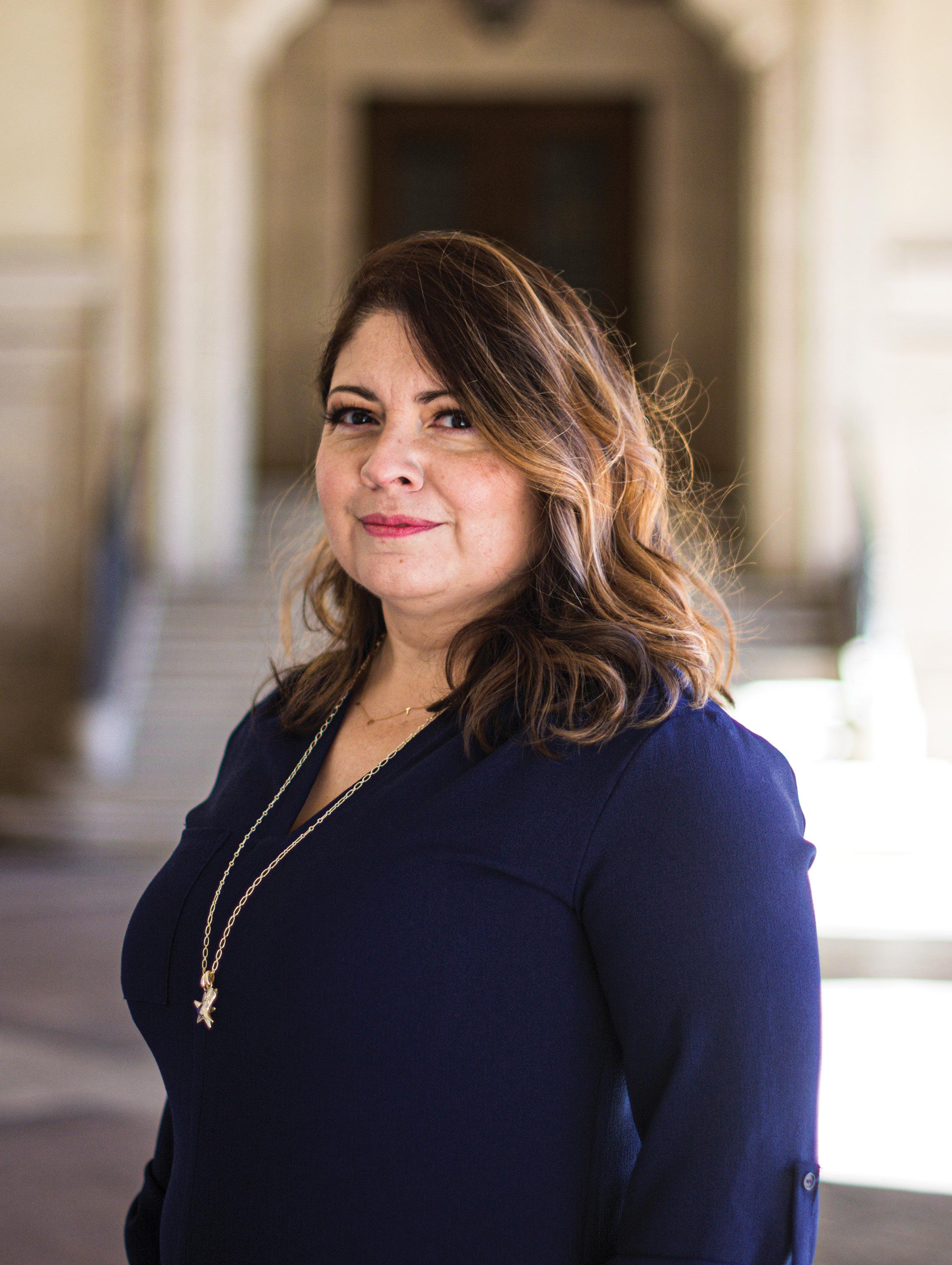
Perhaps she’d continue to work in accounting, she thought, or maybe transition to tax or auditing. One day, she might even become a CFO. But Torres Yañez had been introduced to human resources early on in her career and couldn’t ignore her passion for the field—she took a risk, decided to switch gears, and hasn’t looked back since.
Torres Yañez began her career as a financial analyst intern at Motorola in Austin, Texas. She transitioned to a full-time role after graduating from college and continued to move up the ranks, gaining experience in a variety of corporate finance-driven departments.
In addition to completing her master’s, Torres Yañez built up a robust skill set enabling her to pursue senior leadership positions in finance and accounting. Still, she kept thinking about what it would be like to work on the people side of the business. She helped lead a summer internship program as a junior analyst at Motorola, and her enjoyment of that experience—and her apprecia-
tion of its impact—kept coming back to her. She made a decision.
“I started dabbling in that area by raising my hand to work on projects in that domain,” Torres Yañez recalls. “And it turned out to be perfect, because as I learned more about compensation, specifically the executives’ comp, I was able to see how a lot of programs, such as bonuses and incentives, are tied to financial metrics.”
Soon after that, Torrez Yañez began considering an official career shift. She knew that it would be a major risk to switch gears towards human resources (HR) at this point in her career, but after discussions with trusted mentors, she decided to take the plunge when a vacancy appeared in the HR department of Freescale Semiconductor, the semiconductor segment divested by Motorola.
Torres Yañez quickly adapted to the needs of her new role. “I found that you’ve got to have knowledge about the financials, but you also need to be able to make them
When Claudia Torres Yañez graduated from the McCombs School of Business at the University of Texas at Austin with a master’s in accounting, she expected her career to take her down the public accounting route.
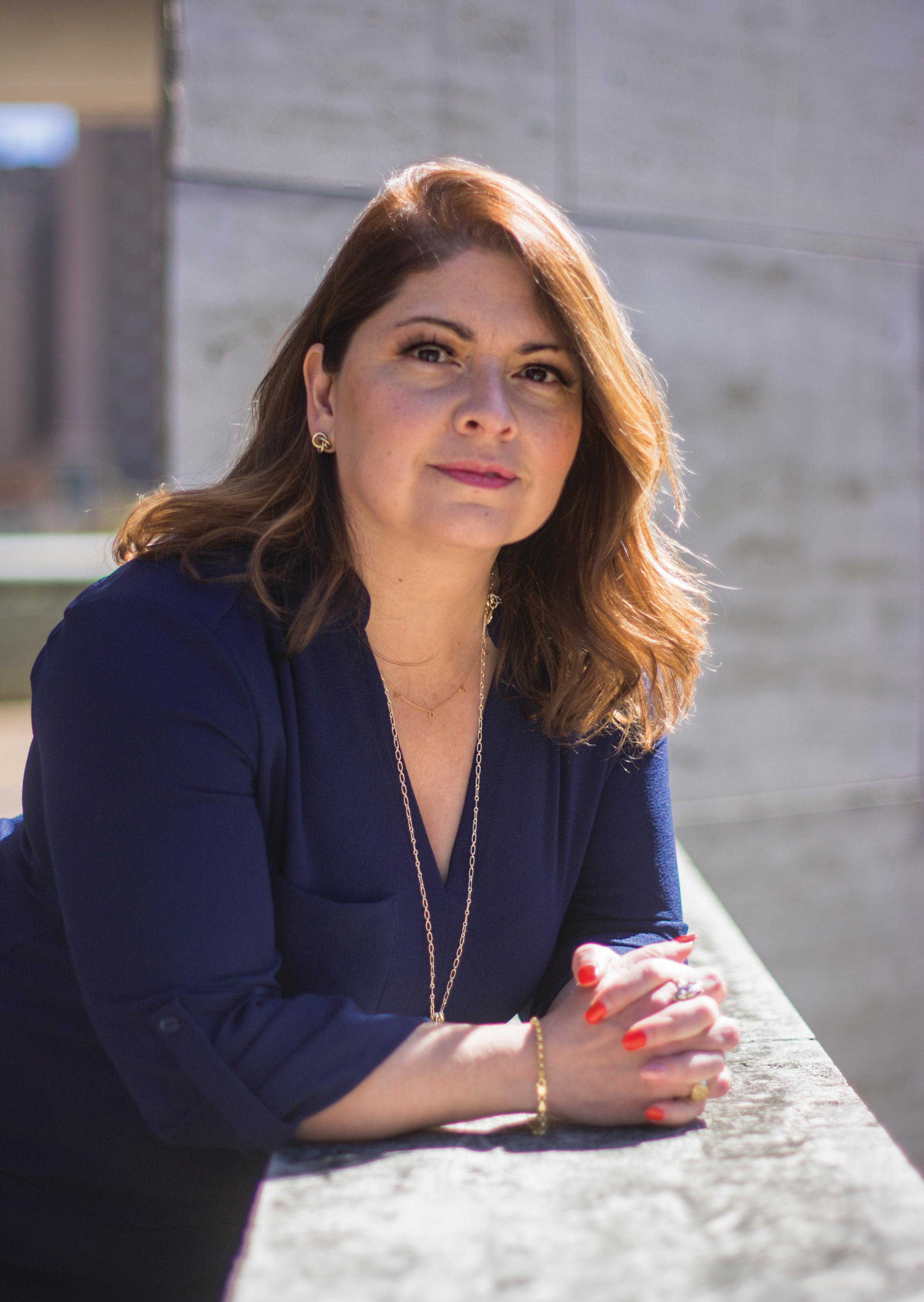
understandable for everyone from the average employee all the way up to the top executives,” she explains. “It’s having the understanding of the substance, but then also being able to communicate it in an easy and understandable way.”
In 2013, six years after she had begun working as an executive compensation manager at Freescale Semiconductor, Torres Yañez was approached by a recruiter for SunPower Corporation, a distributed solar and storage company that offers all-in-one solutions to a global client base. During the interview process, she discovered that the company could offer her something that she had been yearning for—the chance to present her work directly to the executive board and be in the room where decisions are made.
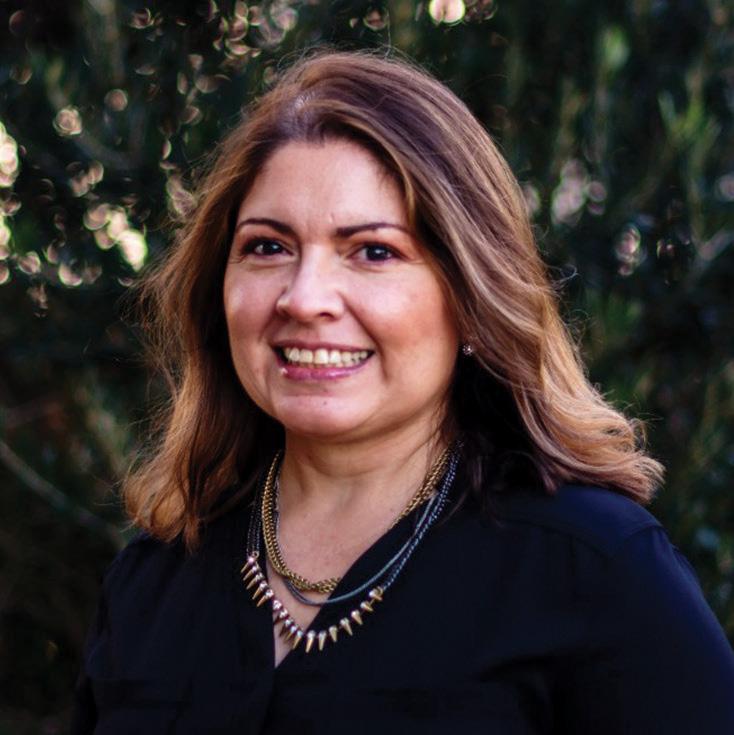
“I wasn’t hearing the conversations of the board members in those meetings,” Torres Yañez explains. “I would get a debrief, but it wasn’t the same. I knew I was missing something that could maybe make my work better in the future. So, I asked SunPower if I would be able to present my work myself, and they said they could make that happen.”
Torres Yañez joined SunPower in July 2013 as the senior manager of executive compensation and long-term incentives
“I found that you’ve got to have knowledge about the financials, but you also need to be able to make them understandable for everyone from the average employee all the way up to the top executives.”
and is now the senior director of executive compensation. Her intersectional expertise in finance and HR recently played a crucial part in SunPower’s successful spin-off of its manufacturing assets, which reorganized as a new company called Maxeon Solar Technologies.
The spin-off represented a significant restructuring of both companies and required thoughtful communication, as well as an intentional redesign of employee programs. Those efforts were made even more complicated by the fact that many employees at SunPower and Maxeon were located outside the United States.
“In order to guide employees through these changes, I prepared and delivered special training sessions to explain how company bonus and equity programs would be affected by the unique spin-out event,” the senior director explains. “In addition to training sessions, I helped develop FAQs and worked with outside experts to deliver country tax summaries so employees would understand what they could expect as a result of what we were doing.”
Torres Yañez also assisted with the onboarding of the chief human resources officer for the newly formed manufacturing company, which would be headquartered in Singapore. She shared her knowledge and experience with existing programs and policies that employees had been accustomed to at SunPower with the CHRO and helped the newly formed Maxeon team strike out on their own in creating programs that would work best for Maxeon down the line.
The spin-off was an extremely delicate process, but successful in the end—thanks in no small part to Torres Yañez, who has learned over the years to stay resilient in the face of unexpected challenges.
“On paper, my career journey may appear like it has been easy and smooth. The reality is that there have been plenty of challenges along the way, both personal and professional,” she says. “I have been fortunate to have had people in my corner—colleagues, managers, mentors—who invested their time and attention in me. That helped me get through challenges big and small, and I have learned to embrace challenges when they come, knowing ‘this too shall pass.’”
At Semler Brossy, we are broadening the collective thinking through wisdom, experience, and deep analytics. We don’t settle for a ‘middle-of-the-road’ approach. Clients choose us for our partnership, thorough thinking, and creative solutions. We take off where others finish, helping clients address the most pressing issues in compensation and governance.

Atrium Health has grown steadily over the past eight decades, and Daniel Gandarilla’s role is to unite systems, structures, and people to help the health system bring quality care to new regions
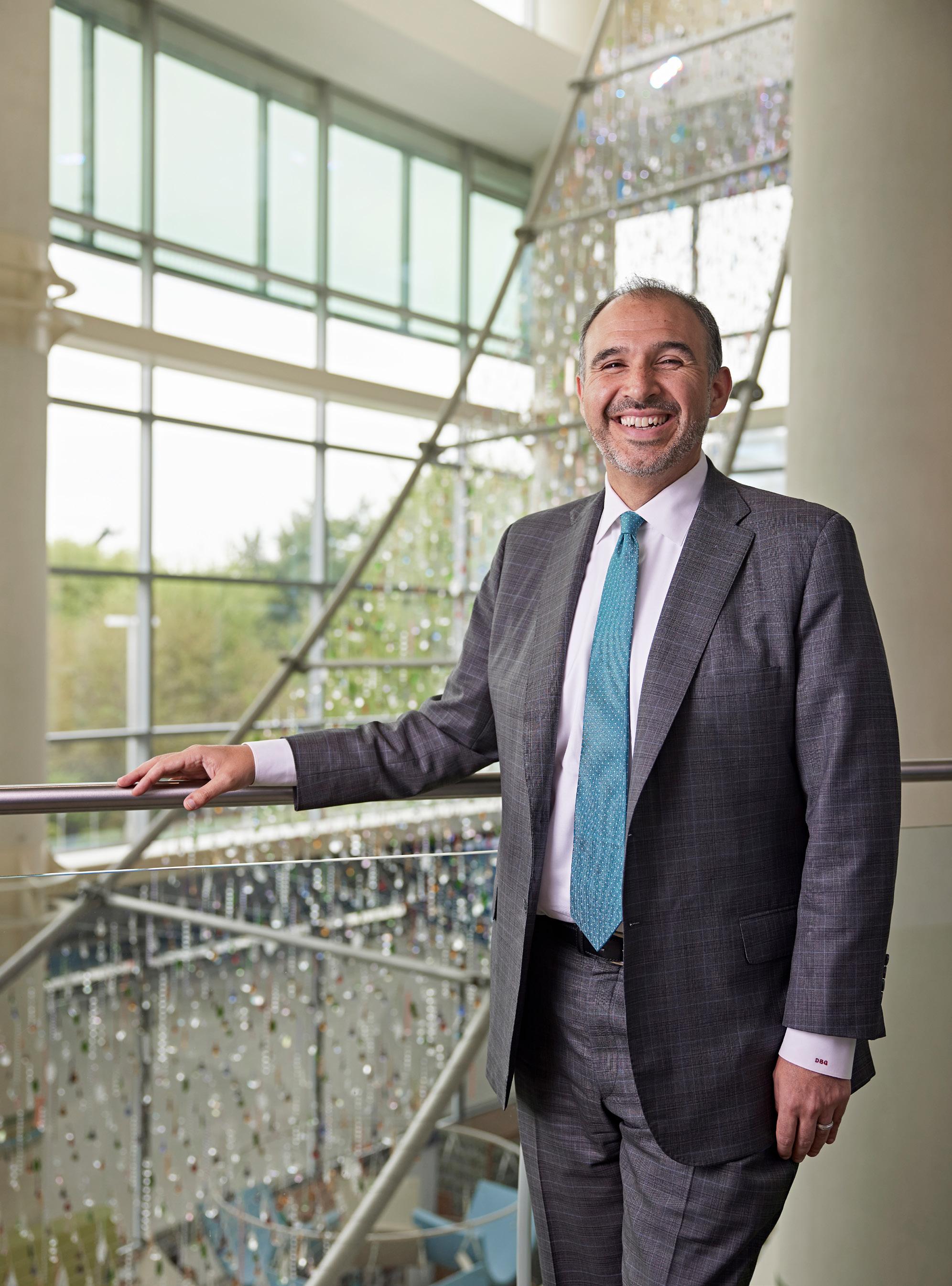

received its first patients in 1940 as World War II raged in Europe. More than eighty years later, the stand-alone facility has grown into an integrated nonprofit health system known as Atrium Health. Although much has changed as the system has grown, its mission and vision remain the same: to bring high-quality care to everyone in the greater Charlotte region.
Daniel Gandarilla, Atrium Health’s senior vice president and chief talent officer, came to Atrium Health in 2020 to help its leaders fulfill that mission by strengthening corporate culture and building an effective workforce. While there’s plenty of work to be done, Gandarilla says the health system’s strong foundation attracted him to the role. “We want to be national leaders in care, and we’re committed to improving health outcomes for all,” he explains. “Those two
words—‘for all’—are very intentional and important to what we do, and they drive our strategy.”
In order to build strong teams that can provide the best care, Gandarilla knows he needs to, as he puts it, “get everyone moving in the same direction.” Fortunately, that’s something he’s spent his entire life doing, even before he started working in healthcare.
He’s worked as a resident assistant, tutor, teacher, and coach. After five years as a high school social studies teacher, Gandarilla realized that he wanted to expand his influence. “I was preparing young people and sending them out into the world, only to watch as they encountered barriers they needed assistance to overcome,” he says. Although he already held a master’s degree from Stanford, the realization motivated him to pursue an MBA from Texas Christian University. Gandarilla intended to launch a charter school or
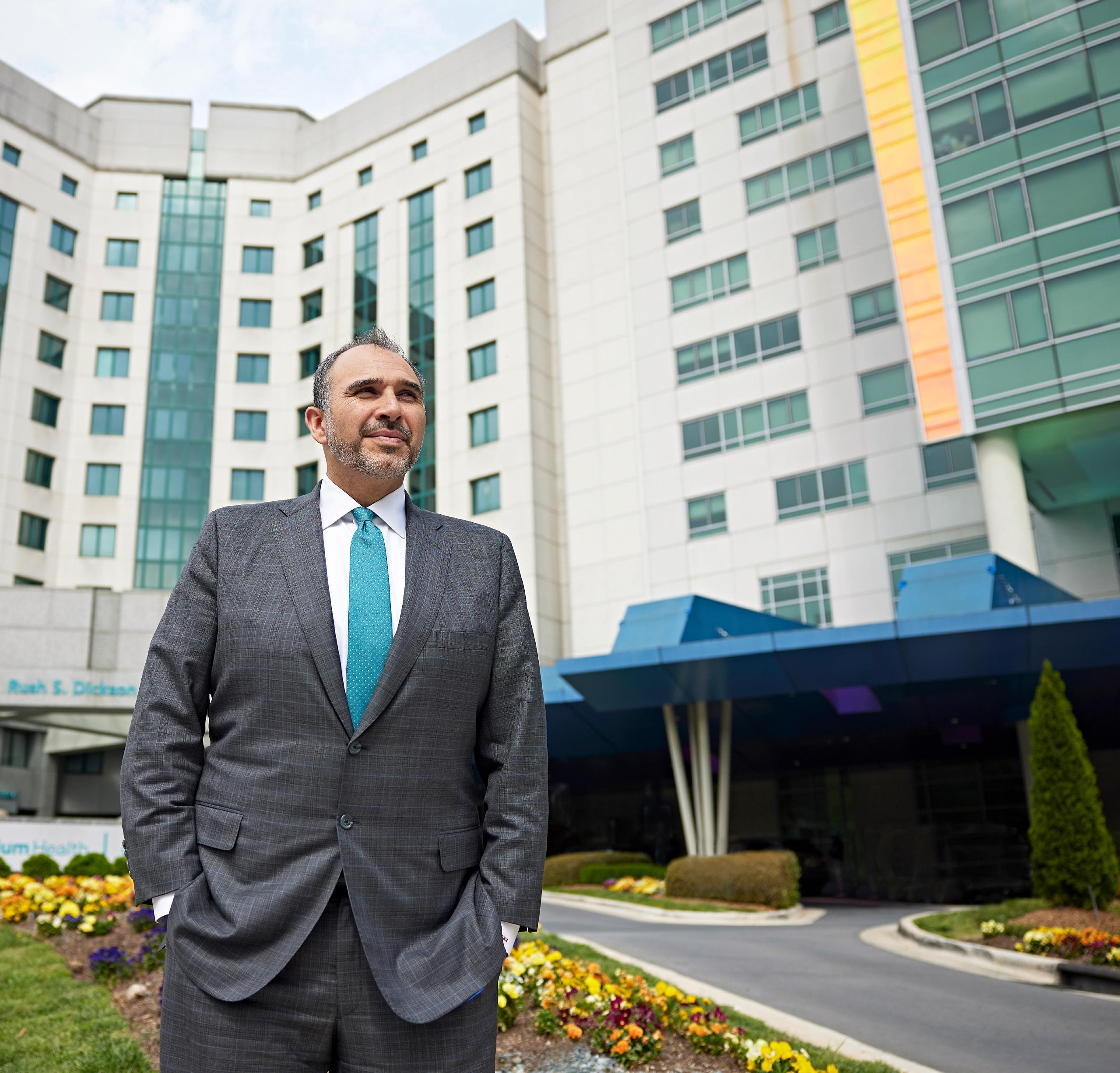
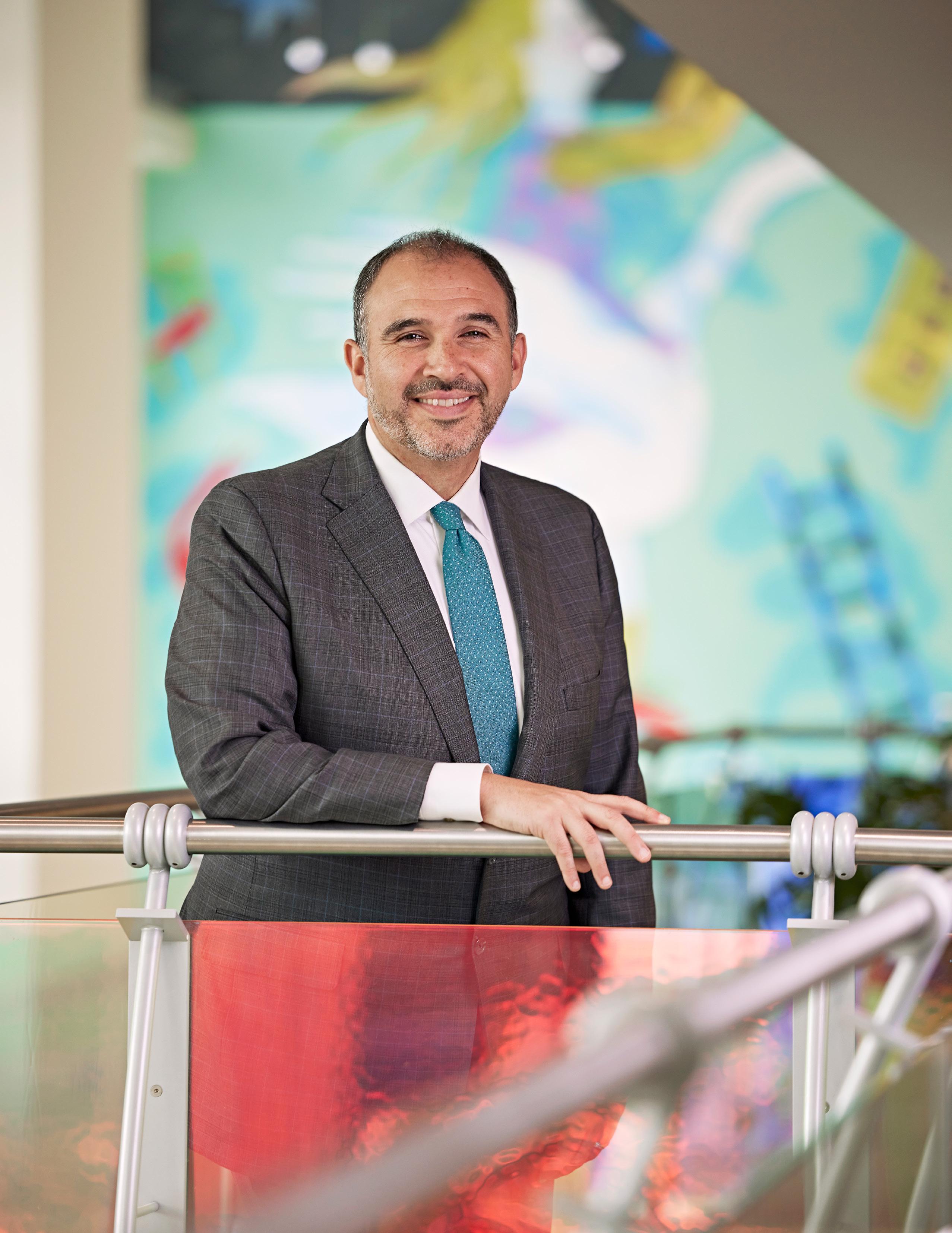
start a nonprofit to help students find new career paths, but pivoted when he discovered human resources as a way to provide those same opportunities.
In 2012, Gandarilla joined Texas Health Resources to manage learning and organizational development, including a virtual career center. While there, he worked his way up to the role of chief learning officer. The eight years he spent at the organization focused his passion on people and creating strong employee experiences in the healthcare industry.
These experiences helped prepare Gandarilla to step into his latest position during an important era. By his arrival in 2020, Atrium Health (previously known as Carolinas HealthCare System) comprised forty hospitals and 1,400 care locations staffed by 70,000 employees, 3,700 physicians, and nearly 2,000 nurses.
Additionally, Atrium Health has formed high-profile “strategic combinations” to
expand its reach. A partnership with Atrium Health Wake Forest Baptist and Wake Forest University School of Medicine has created one of the nation’s largest academic health systems, while similar partnerships with Atrium Health Navicent and Atrium Health Floyd expand care to patients in Georgia and parts of Alabama.
Gandarilla is implementing the necessary leadership and organizational development strategies to unite all of the systems. “Forming strategic combinations gives us the opportunity to do things in better and more efficient ways as we leverage our strengths and discover the best practices we can carry forward through these relationships,” he says.
As Atrium Health expands and evolves, Gandarilla recognizes the chance to create opportunities for two populations: patients and employees, particularly those coming from underserved communities. Administrators will pour hundreds of millions of dollars into these strategic combinations to enhance care, skills, facilities, equipment, and technology over the next several years. At the same time, Gandarilla and team are helping those from underserved communities to discover pathways into the organization and find their way to economic mobility and a stable career.
One way he will accomplish that goal is through enhancing a career development center that launched in 2019. The center gives teammates and leaders the chance to learn about official development programs and access educational resources and other materials.
“This is a focus for us because we want to onboard great talent, and we want the people who are already here to understand that they can get the training and certifications they desire to advance in their careers without having to leave the organization,” Gandarilla says.
“We want to be national leaders in care, and we’re committed to improving health outcomes for all. Those two words—‘for all’—are very intentional and important to what we do, and they drive our strategy.”
The center also is home to Atrium Health’s Rise to Success initiative, a program helping qualified high school graduates pursue associate degrees in healthcare fields from regional community colleagues as they seek employment at one of the system’s facilities. Atrium Health matches each participant with a career coach and pays for books, tuition, and other expenses.
These efforts are just some of the ways Gandarilla and his colleagues are helping Atrium Health win the war for talent. They’re also creating the right benefits, compensation, and rewards packages. Across-theboard wage increases plus incentive plans for its workers totaled more than $180 million last year. Increasing its minimum wage again this year represents an additional $25 million investment. In the past ten years, the health system has more than doubled its minimum wage. Atrium Health also has increased nursing pay by 17.5 percent in recent months.
In today’s hybrid work environment, employee engagement is more important
than ever before. After leading a listening exercise, Gandarilla, his team, and HR colleagues introduced new culture commitments and huddle guides leaders can use to increase interactions and drive meaningful conversations. Some leaders connect with their teammates through remote “breakfast club” huddles or even virtual cooking demonstrations.
While these smaller events foster camaraderie and promote culture, one annual event unites employees like nothing else can.
It’s the yearly Atrium Health Has Talent contest, which started in 2004 and helps celebrate the diversity, talent, and creativity within Atrium Health. Participants take to the stage to showcase their abilities in music, poetry, dance, and more.
Last year’s winner was Tia Jackson, a referral coordinator at the Women’s Center for Pelvic Health, who sang “All I Ask” by Adele. In the televised finale (viewed more than 10,000 times on YouTube), Jackson shares why the experience is important to
her. “Music is powerful because it’s therapeutic,” she says. “It feels good knowing that when I sing it touches people . . . this opportunity makes me feel Atrium Health proud, because we’re still able to touch lives with our gifts outside of our normal work area.”
An engaged workforce is critical as Atrium Health has emerged as one of the leading systems in virtual care delivery. Gandarilla wants to train 750 new employees for new career paths in 2022 and 2,000 total trainees by the end of 2025.
As they look ahead, they’ll work with key partners to create pathways to the roles of the future. In March 2022, Atrium Health and Wexford Science & Technology announced plans to become part of a new “The Pearl” innovation district, with Wake Forest University School of Medicine as an anchor tenant. “There are a lot of exciting developments happening,” Gandarilla says. “And we have the right people strategies in place to serve this region well into the future.”
“Forming strategic combinations gives us the opportunity to do things in better and more efficient ways as we leverage our strengths and discover the best practices we can carry forward through these relationships.”









Rafael Villalobos is a lawyer, businessman, and hospital administrator—not to mention a powerlifter—and he’s fully dedicated to helping Capital Health fulfill its mission in New Jersey
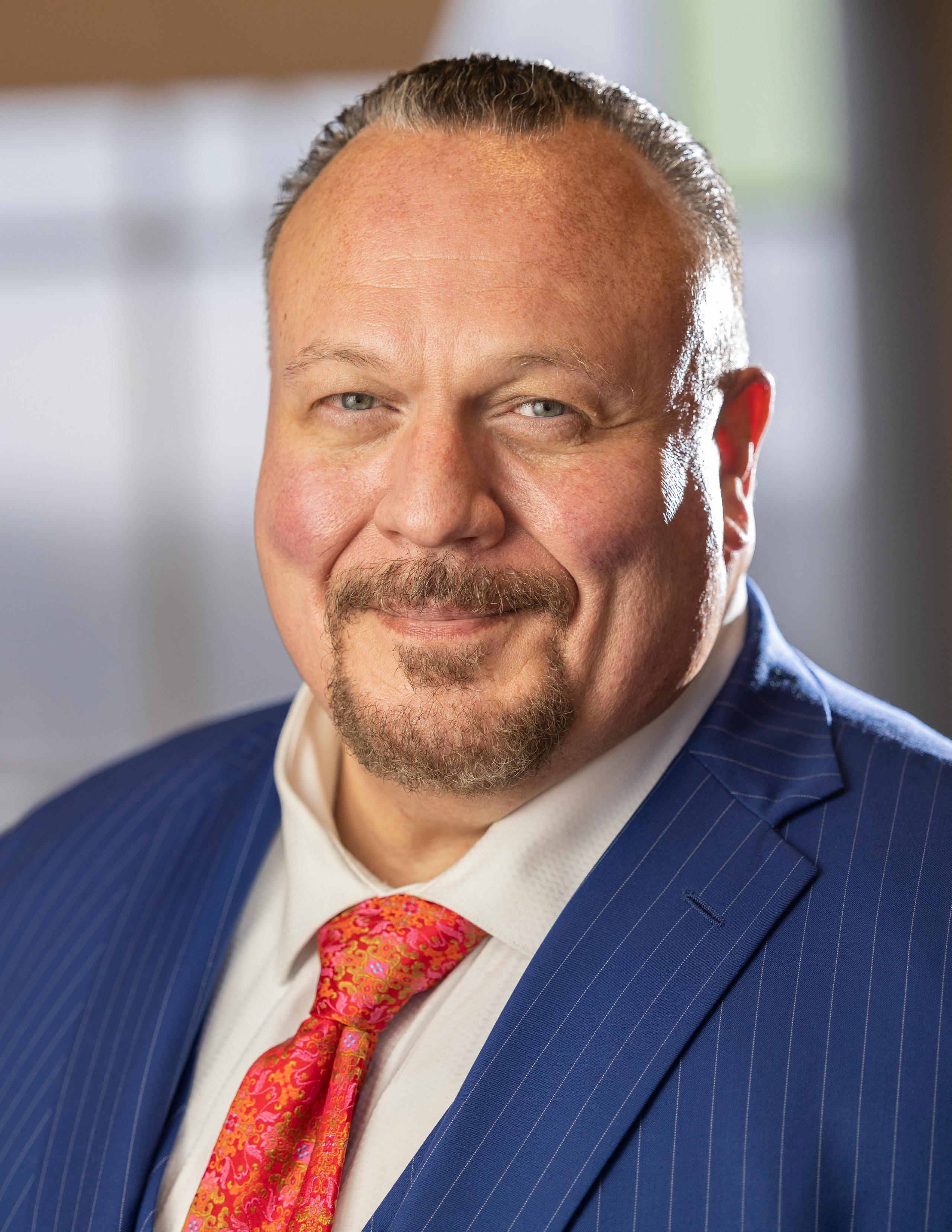
The show, of course, was Miami Vice, and the action-packed premiere loaded with car bombs, Drug Enforcement Administration agents, and undercover criminals captured the attention of one high school student named Rafael Villalobos.
The next fall, Villalobos was taking general courses at American University and longing for an adventure of his own. He had considered a career in philosophy, but worried about potentially long, quiet days spent walking around in robes and sandals. When his roommate landed an internship at the US Attorney’s Office, Villalobos invited himself along. He interviewed agents about homicide investigations and talked to prosecutors about Jamaican drug posses, and as Villalobos left the federal courthouse, he decided to study the American justice system and continue on to law school.
Villalobos started his career at a risk management company and later got into medical malpractice defense. Along the way, he discovered an interest in bodybuilding, powerlifting, and strongman training.
As he started working out more to increase his deadlift pull, the young professional realized he could also go through rigorous mental training to condition his mind for bigger things. He committed to both workout and study routines, entered private practice, took on medical malpractice cases, and eventually argued before the Pennsylvania Superior Court.
By 2005, Villalobos was defending the region’s largest hospitals and health systems in high-level catastrophic loss cases, and in 2006, he kicked off a decade as Aria Health System’s chief legal counsel. The man who once left philosophy for law school reinvented himself again—this time as a hospital administrator. Villalobos also earned an executive MBA with a concentration in healthcare, and in 2020, he joined Capital Health Systems as deputy general counsel of litigation and enterprise risk management.
The role offers Villalobos the unique chance to combine his interests and expertise in healthcare, risk management, business, and law. “Everything I do is designed to protect

On September 16, 1984, millions of people watched as a Colombian drug dealer hopped onto a seaplane to escape from Crockett and Tubbs.
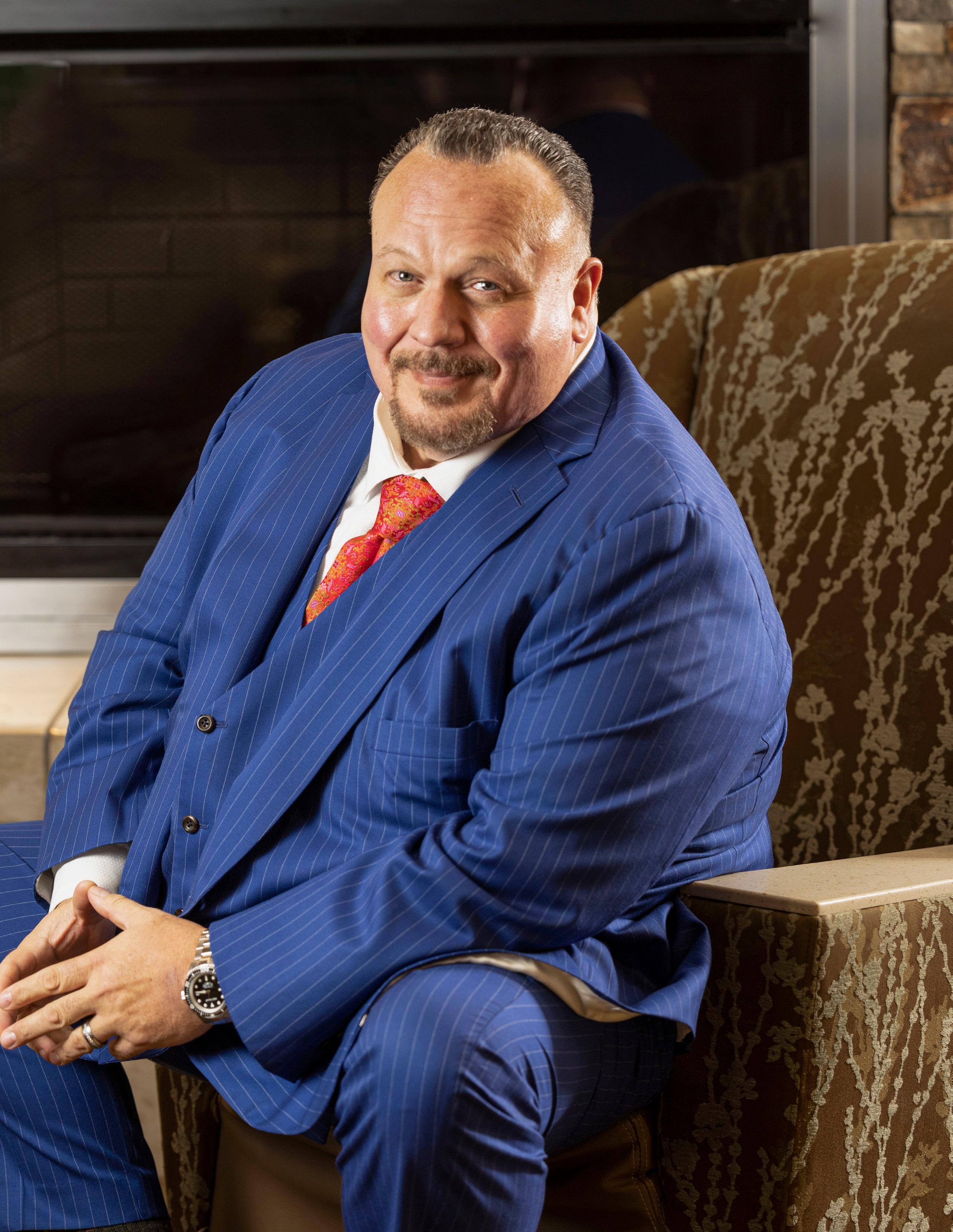 Rafael Villalobos Deputy General Counsel of Litigation & Risk Management Capital Health
Rafael Villalobos Deputy General Counsel of Litigation & Risk Management Capital Health
O’Hagan Meyer provides practical and innovative litigation and advisory services to clients across a wide range of matters. With over 150 attorneys across the country, our attorneys are dedicated to achieving the best possible results for our clients. We understand that clients want e ective and e cient solutions to their legal problems –and that is what we deliver every day.





Exceptional Client Service.

ALEXANDRIA, VA | BOSTON, MA
CHARLOTTE, NC | CHICAGO, IL
DETROIT, MI | HERMOSA BEACH, CA
LOS ANGELES, CA | ORANGE COUNTY, CA
PHILADELPHIA, PA | PRINCETON, NJ
RICHMOND, VA | SAN FRANCISCO, CA
WASHINGTON DC | WILMINGTON, DE

www.ohaganmeyer.com

the house,” he says. “I am entirely focused on defending this institution to make sure this is a safe place for patients, employees, visitors, and family members.”
Capital Health’s mission is to improve the health and well-being of the populations its clinicians serve at Regional Medical Center in Trenton, New Jersey, and Capital Health Medical Center—Hopewell, and at various outpatient and specialty care facilities across the region. Villalobos has launched numerous projects to support that mission, including an important workplace violence initiative built to address increasing incidents of threats and physical abuse directed towards care providers. Employees will receive mandatory de-escalation and “handle with care” training, and the comprehensive program will introduce signage, metal detectors, panic buttons, call boxes, and weapons amnesty boxes to numerous locations systemwide.
As deputy general counsel, Villalobos is responsible for litigation and enterprise risk management issues. He works closely with the hospital’s board of directors and senior executive team to assess risk and create strategies to address challenges related to the ongoing COVID-19 pandemic, labor shortage, supply chain problems, and other challenges. He also drafts internal policies and negotiates contracts. Villalobos likes the variety and enjoys finding new ways to contribute.
“There’s a huge value in having a general practitioner with expertise in the context of healthcare embedded in an actual hospital,” he explains. “We can all collaborate in deep ways and my team is no longer dependent upon legal advice from an outside advisor who parachutes in during a crisis, who has never worked in healthcare and doesn’t understand the culture or competing interests.”
“We have to train doctors to go beyond the math and science when peoples’ lives are on the line. People come to Capital Health when they are injured or sick or scared, and we serve them well when we take the time to show that we really care about them as people.”
Proudly joins Hispanic Executive in recognizing Rafael Villalobos for his 30+ years as a health system litigator and his exceptional services and dedication to employees and patients
When Villalobos was a litigator, he gained valuable experience in health law and professional liability cases, often advocating for hospitals and handling allegations of physician misconduct. Now, he’s drawing on lessons learned as a trial lawyer to help educate residents, nurses, administrators, and staff at Capital Health.

He once interviewed a plaintiff whose husband had a bad prognosis after a multiorgan transplant. When Villalobos asked for documents related to the patient’s care, her lawyer produced a small notebook with a page divided into two columns. Column A was a list of people she wanted to sue and column B was people she did not want to sue. Villalobos inquired about what got someone into column B and learned that it was reserved for doctors and administrators who had taken the time to show respect and empathy.
“We have to train doctors to go beyond the math and science when people’s lives are on the line,” Villalobos explains. “People come to Capital Health when they are injured or sick or scared, and we serve them well when we take the time to show that we really care about them as people.”
By imparting these lessons, Villalobos is doing his part to ensure Capital Health can continue to lead the way in research, care, quality, and safety—and the system is making headlines in all of those areas. For example, Dr. Navid Redjal, director of neurosurgical oncology at Capital Health’s Center for Neuro-Oncology, partnered with his counterparts in other systems to develop new guidelines for metastatic brain tumor treatment.
In February, Capital Health became one of just thirty-four organizations to receive the American Nurses Credentialing Center’s Magnet Recognition for the fifth time, and earlier this year, the organization announced plans to acquire St. Francis Medical Center. The move will help the nonprofit health care system extend high quality care to its urban and suburban communities.
Villalobos celebrated when he heard the news, because he knows he’s played a role in making it all possible. “My colleagues on the front lines are here to bring services, outreach programs, crisis response programs, and medical and social care to the community,” he says. “We are here and we stand by the people of Trenton no matter what.”
 Granite GRC: “An experienced attorney and business executive with great skill and judgment, Rafael’s leadership in healthcare administration and the law has brought significant and lasting success to the organizations he’s served. Heathcare providers looking for insightful, effective advice and representation need look no further than the desk of Rafael Villalobos.” –Jeffrey Miller, JD Director-in-Charge
Elliott Greenleaf PC congratulates Rafael Villalobos for his recognition as a true leader in the healthcare arena for Capital Health System Inc. and his continuing professional advancement and successes inspirating minorities in both the business and legal world. Elliott Greenleaf proudly continues to partner with Rafael and Capital Health.
Granite GRC: “An experienced attorney and business executive with great skill and judgment, Rafael’s leadership in healthcare administration and the law has brought significant and lasting success to the organizations he’s served. Heathcare providers looking for insightful, effective advice and representation need look no further than the desk of Rafael Villalobos.” –Jeffrey Miller, JD Director-in-Charge
Elliott Greenleaf PC congratulates Rafael Villalobos for his recognition as a true leader in the healthcare arena for Capital Health System Inc. and his continuing professional advancement and successes inspirating minorities in both the business and legal world. Elliott Greenleaf proudly continues to partner with Rafael and Capital Health.
ANDREA BECERRA PRADO’S MOTHER
was the promotions director for two Spanishformat radio stations in the Bay Area and would often bring her daughter to on-site “remotes,” promotional tie-ins with businesses or events that would broadcast live on-air. The young Prado would hand out promotional items, blow up balloons, and watch relatively unknown artists like Ricky Martin and Enrique Iglesias (who’ve since become a little more popular) perform.
“I really grew up in radio,” Prado remembers. “I was eleven or twelve [when I got] my first exposure to the broadcast business.”
Prado now serves as national operations director for Entravision Communications, owner of dozens of radio and television stations across the US and other media interests all over the globe. She’s been part of the organization for over twenty years, initially hired on as an admin answering phones and
receiving promoters around the office. The business may be in her blood, but Prado has succeeded at Entravision by learning every part of the business and by managing to thrive in an industry that can be as tough as they come.
Name a job in radio and Prado has done it. She’s helped the company expand its format and markets. She has nurtured and cultivated on-air talent, like Erazno y la Chokolata, Las Super 20 Countdown Show, El Show de Piolin, and Carla Soto (aka “La Plebe”). Prado has overseen the company’s NFL Sunday Night Football broadcasts and helped refresh and redefine struggling local markets into top performers.
And, maybe most importantly, Prado organized the first annual radiothon with the Children’s Miracle Network, now known as “Un Millón Para Los Niños” (One Million for the Children), which has gone on to become
Andrea Becerra Prado has grown up at Entravision, and her efforts there have helped raise millions for the Children’s Miracle Network
the most successful Spanish-language radiothon in US history with over $26 million raised for children’s hospitals across the United States.
“The radiothon is particularly important to our community because it’s so important for our audience to understand that Children’s Miracle Network doesn’t turn anyone away based on their inability to pay or their immigration status,” Prado explains. “People in the Hispanic community can be afraid to seek help for their children because of these issues, and this is an organization in our communities that is working to help everyone they can, regardless of their citizenship.”
As Entravision has expanded its reach beyond Spanish-language programming, Prado’s personal touch also has helped struggling stations reach a new level of potential. Take McAllen, Texas-market classic rock station KFRQ, or adult contemporary station KVLY. Those stations had been struggling for years, and Prado was asked to revitalize their brands—during the pandemic, no less.
“It was a matter of tightening up the playlists, reimagining the station brand, and working with our on-air talent,” Prado says of the effort. “We’ve taken those stations to the top five in the market, the number one in the female demographic for adult contemporary, and the number one in the classic rock demo. I’m really excited about what this expanded opportunity has allowed me to take on.”
Prado’s all-encompassing role has meant she has had to ask lots of questions and put herself on the line. It’s something she stresses is imperative for younger female professionals to be willing to do. “You can’t let the fear of failure or taking a risk stop you from asking questions,” Prado advises. “Don’t worry about being wrong. Ask the questions, talk with people, and do your research.”
The national director also says that adversity will always be a part of the journey. Prado moved frequently growing up, and her parents
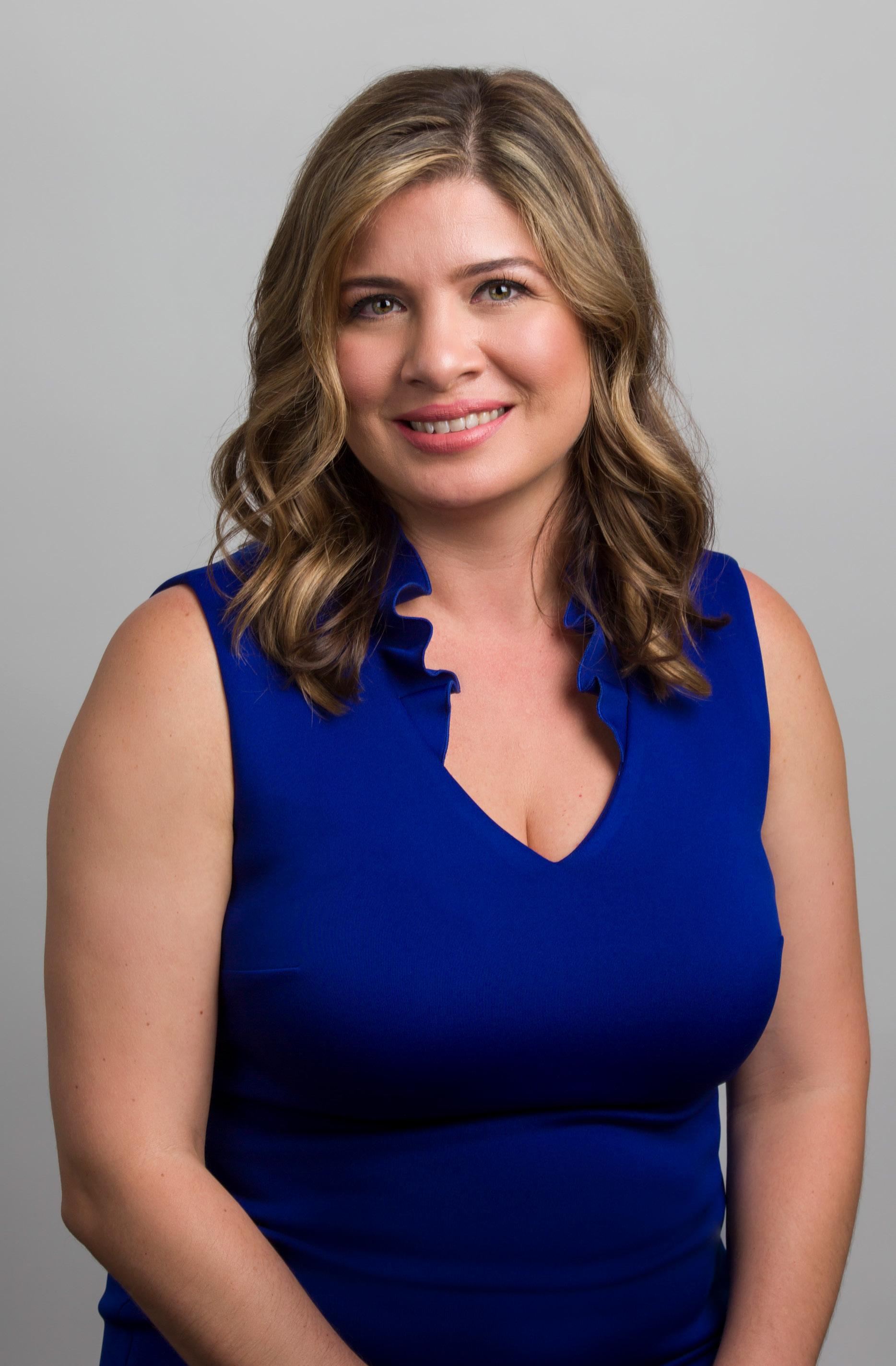
split up when she was just a child. But as she looks back, she says she now understands that it’s how a person deals with difficulty that ultimately defines them.
“Working in radio means you’re going to deal with a lot of highs and a lot of lows,” Prado explains. “Whether it’s making it through difficult economic periods or the cutbacks we’ve had to make because of COVID, it can be incredibly hard to deal with losing people that have meant so much to your organization. But you also learn how to deal with those challenging times and help those people land on their feet.”
As Entravision continues to evolve, Prado’s helping her team lead the way. The company has acquired new digital extensions outside of the US, like the recent deal with Cisneros Interactive in Latin America and South Africanheadquartered 365 Digital.

“I get to be part of that growth, which is incredibly exciting,” Prado says. “There are the little things, too. Yesterday we had a TikTok training for all of our talent, as we’re helping them to understand they’re not just DJs anymore— they’re influencers.”
There’s no consideration too small for Prado. That’s what is most evident about an executive who has literally grown up in the business. It doesn’t matter if it’s the latest online trend or the more overarching nuts and bolts of the broadcast industry. Prado’s already doing the research and planning the next move.
“It was a matter of tightening up the playlists, reimagining the station brand, and working with our on-air talent.”
Hispanic Executive
WE ALL KNOW SOMEONE WHO IS SO focused on a single area that they lose sight of the big picture. Paula Pabón Smith isn’t one of those people.
That’s a huge benefit to her work as senior counsel for governmental affairs for the Kentucky Farm Bureau Mutual Insurance Company. As a “legislative agent,” Smith primarily interacts with the legislative branch in Kentucky, but she has extensive experience working in all three government branches: judicial, legislative, and executive.
The cogs and gears of government have fascinated her for decades. “People can be intimidated by the democratic process— how laws are passed, how elections work, for example. But I’ve always been interested in it,” says Smith, who was elected to student
council in high school and went on to study political science.
Smith, who has siblings, was the first in her immediate family to go to college. Her Panamanian father became a tradesman after nine years in the military, and her mother, first and foremost a homemaker, worked retail jobs to help put Smith and her siblings through Catholic high school. Smith earned scholarships to attend the University of Louisville and as an undergrad, she represented the College of Arts and Science in the university’s student senate. During law school, she served as a senate representative.
She began her legal career as a staff attorney with the Kentucky Court of Appeals in 1994. “It was a great starting job,” she says, “because it exposed me to the entire judicial
process. I screened all appellate motions from the entire state, worked with the judges, and offered advice on appellate processes and procedures.”
Then she spent nearly five years as in-house legal counsel for the Kentucky Legislative Ethics Commission. Smith notes that although many states maintain peer ethics procedures for its legislature, Kentucky was one of the first to codify ethics regulations. “I advised the members of the commission that reviewed and enforced all aspects of the newly enacted ethics laws, and that exposed me to the legislative process,” she says.
Smith added her executive branch experience as a prosecuting attorney for the Kentucky Board of Nursing. “Much of my work involved consumer protection,” she
explains. “We regulated all nursing licenses, conducted administrative hearings on discipline charges, but also worked to reinstate nurses that had been discharged for substance abuse or other professional practice reasons.”
Since 2008, Smith has served the Kentucky Farm Bureau Mutual Insurance Company as a legislative agent—aka “lobbyist”—at the state capitol. “The term ‘legislative agent’ was introduced when the ethics law was passed,” she explains. While the term “lobbyist” can conjure images of people that pressure legislators on behalf of their clients, Smith’s function is quite different.
“I represent the company in Frankfort during the legislative sessions,” she says, “mainly to help educate lawmakers about bills that could impact the company and other matters that might impact the property/casualty insurance industry as a whole—not just

the Farm Bureau. I’m also there on behalf of Kentucky Farm Bureau’s 1.3 million-plus policyholders. Farm Bureau is unique in that our policyholders are members. So, I’m also looking out for the interests of our members— Kentucky insurance customers.”
When a session is over, Smith reviews new laws, and then works internally with the company’s various business groups to implement those laws. “We might see changes in our operating procedures, or new regulations that require additional reporting to our state regulator. For example, recent laws addressing corporate governance have become a big topic across the industry, as well,” Smith says.
Her position has been focused on reforming insurance laws to mitigate various forms of fraud. In 2012, she fought for legislation to curb “storm-chasers”—dishonest roofers that swarm after major storms and rip off
distraught homeowners. In 2015, her target was healthcare providers that actively pursued and solicited auto accident victims.
But her biggest victory came in 2021, with the passage of a massive vehicle-towing reform bill. “Unscrupulous towing and storage services were repeatedly overcharging while providing no transparency,” she says. “With the passage of this bill, it is anticipated that it will help reduce the incidence of fraud and lower claims cost payments for towing and storage fees.”
Her cross-pollinated career path serves her well. “There is a lot of overlap between law and government, especially in the governmental affairs arena,” Smith says. “So, it’s beneficial to understand various perspectives. It helps me explain and distinguish the various sides of an issue better. And, because I understand the process, I’ve learned you have to ‘read what’s not there’ in proposed bills and anticipate future challenges.”
Smith and her four-attorney team collaborate with a strong focus on teamwork—a perspective she formed early in her career. “I’m fortunate to have always worked in a team setting, whether governmental or in-house. And I’ve learned that building relationships is essential,” she says. “When you’re able to work well with others, you’re more successful.”
She notes that she regularly consults with subject-matter experts on her team. “Especially in my legislative agent role,” she adds. “I can’t go to Frankfort relying only on my own knowledge and expertise.”
Former House Speaker Thomas P. “Tip” O’Neill famously said, “All politics is local.” Smith agrees with that sentiment. “If you want to get involved in government, start by talking with your local legislators,” she explains. “Get to know them and their positions and start building relationships. They’ll serve you well after.
“And always keep your mind open to any opportunity you find,” she adds. “It can help you to hone skills, and to find what you’re really good at.”

Government Affairs Counsel, Kentucky Farm Bureau Insurance
A dedicated leader, collaborative partner, and tireless advocate
Home, auto, and business insurers know the value of diverse teams for best serving our policyholders and communities. That’s why our industry is making investments to expand diversity, equity, and inclusion initiatives as part of our long-term commitment to championing social equity & advancing consumer fairness.
Learn more at www. apci.org/dei
“APCIA congratulates Paula on this well-deserved, special recognition. Throughout her career, Paula has brought the insurance industry and legislators together in support of a strong insurance market in Kentucky. Her work has benefited Kentucky consumers and we are proud to be a partner in her efforts.”Milagros Concepcion held her first job at RIT when she was only a student. More than two decades later, she is a proven leader creating transformational change that benefits the university’s latest generation.
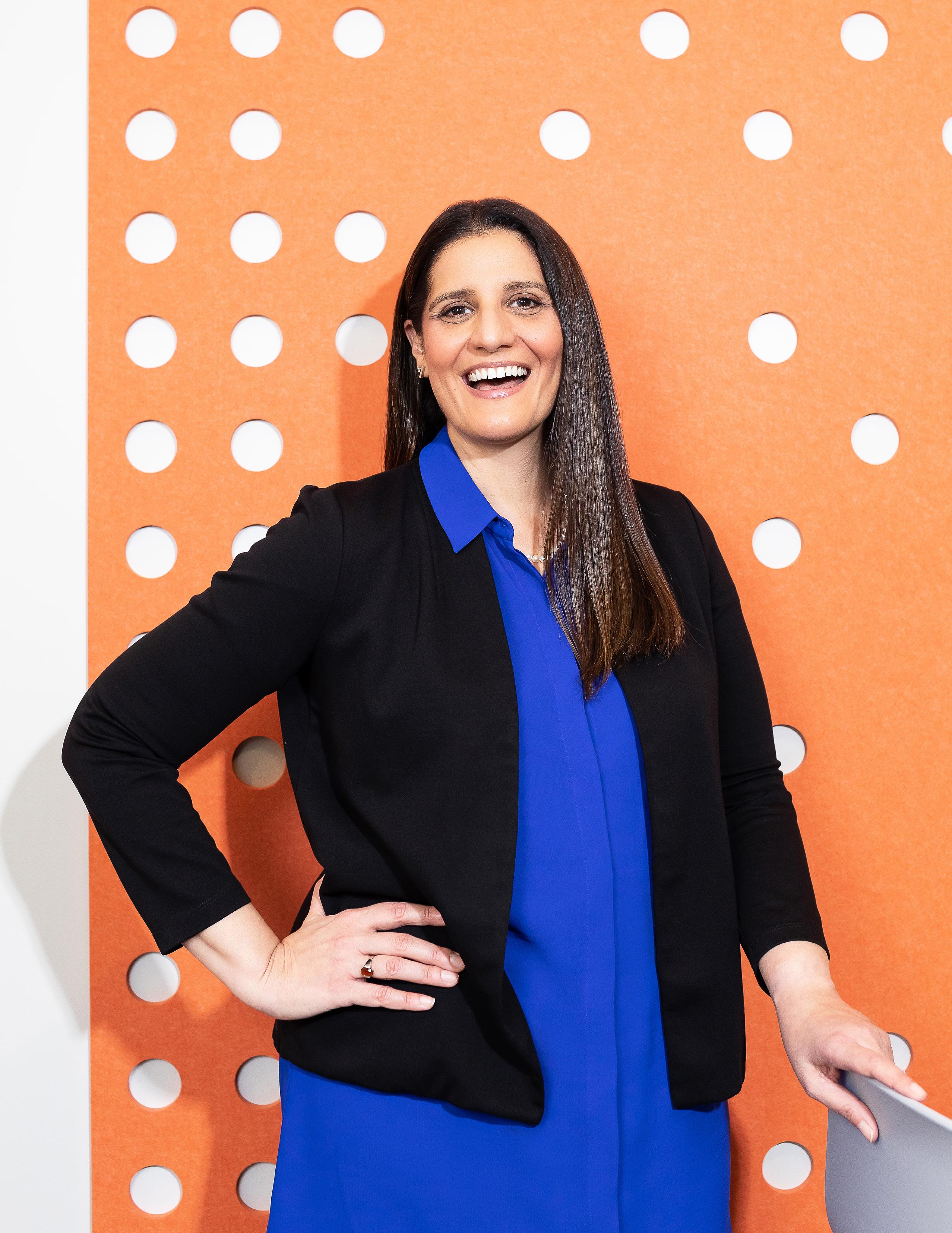
A native of Puerto Rico, Concepcion encountered a new world at college. “I came to RIT sight unseen,” Concepcion says. “I had never seen the school, I had never visited, and I was the first person in my family to go to college.”

Concepcion’s earliest job at RIT bears little resemblance to her current one. As a new student not yet confident speaking English, she looked for on-campus employment that wouldn’t require a lot of talking. “I ended up getting a job as a student custodian,” she says. “From 5:00 a.m. to 10:00 a.m., four days a week, I cleaned the locker rooms in the cafeteria and mopped the floors.”
After successfully balancing her studies and her job, Concepcion graduated from the RIT undergraduate economics program. She then spent several years in the financial services industry at Citibank Student Loans,
before moving to a for-profit organization. But her heart was elsewhere. “I really wanted to get back to higher education,” she explains. “I’m very passionate about higher education, because I wouldn’t be where I am today without it. It opened so many doors for me.”
With her own experience in mind, Concepcion looked to RIT as an employer of choice. She came back to the university as a gift accountant and went on to hold progressively broader roles, including that of financial analyst in Saunders College of Business, assistant director and director of sponsored programs accounting, assistant, and associate controller. Today, Concepcion serves as associate vice president, controller, and assistant treasurer in the finance and administration organization, which manages one of the largest private universities in the country with over two billion dollars in assets.
After more than twenty years as an employee of Rochester Institute of Technology (RIT), Milagros Concepcion knows the university inside out. Back when she first arrived on campus as an undergraduate student, however, it was a different story.
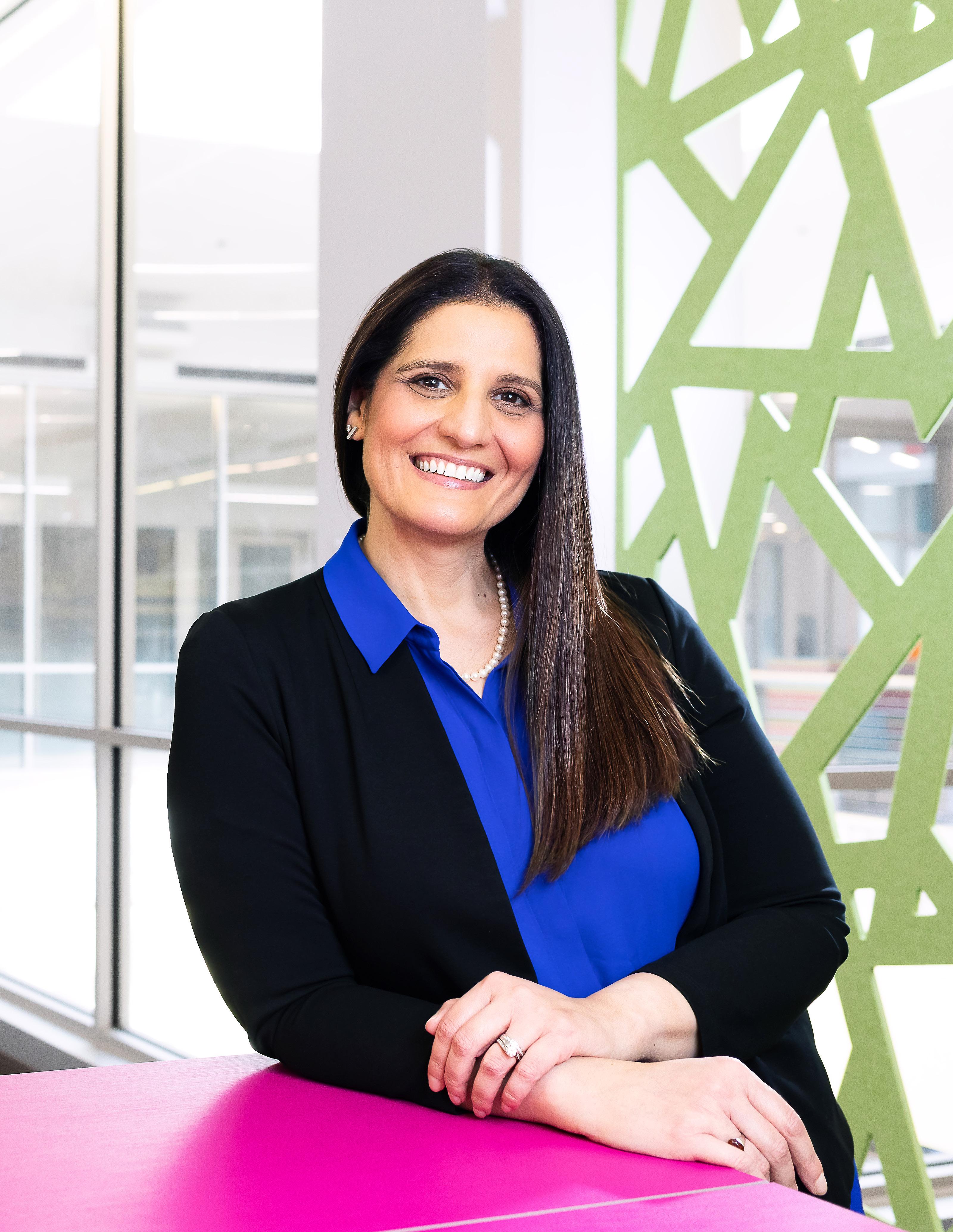
“It’s been a long and really rewarding journey. RIT is a wonderful place to work, and perhaps what I love the most about it is the students and its mission,” Concepcion says. “We get to work directly with a lot of students in the controller’s office. They’re vibrant, energetic, and full of great ideas.”
Concepcion’s career has been enhanced by an ability to foster connections across employee and student communities. Nearly eighteen months into her new role, her emphasis on collaboration has allowed her
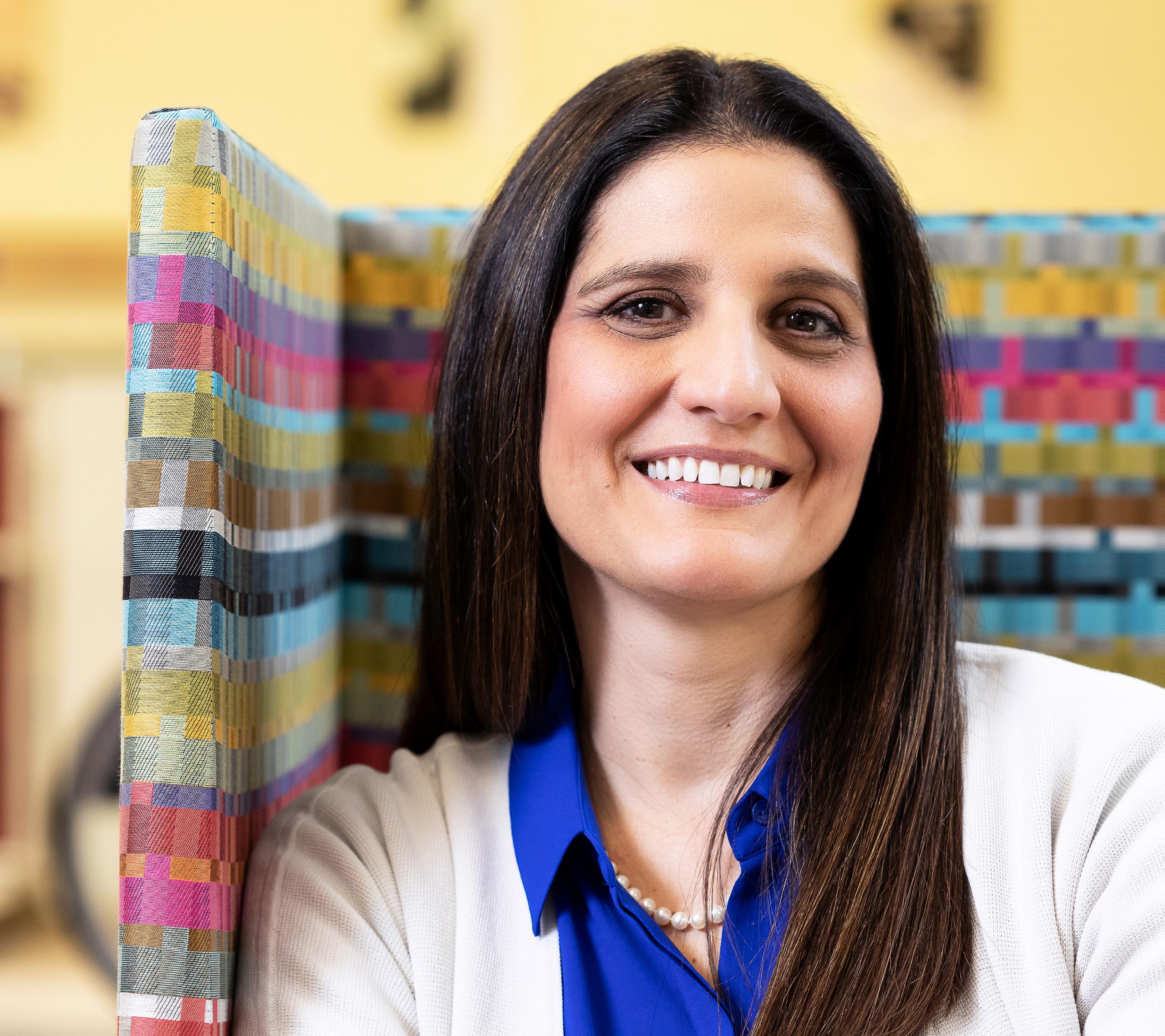
to make significant headway, particularly through a pair of recent projects designed to enhance the student experience and modernize university operations.
Concepcion tries to channel the students’ enthusiasm and hope for the future in her day-to-day controller activities and special initiatives alike. She shares the students’ passion for technology, which drives her to challenge and improve existing processes. For instance, in her latest project, she shifted the university’s brick-and-mortar bookstore to
the digital realm through a partnership with a new virtual bookstore platform.
“Across the country, students are no longer purchasing their books as before, because the cost is so high. They are ordering their books online, or not at all, in an effort to search for a reduced price and a more convenient format and delivery,” Concepcion elaborates. “Our goal for this project is to decrease the cost of ownership for all course materials to the lowest amount possible. That’s a huge win for our students.”
In a second project, Concepcion transitioned the RIT student refund process to a digital disbursement model. “Students rely on financial aid refunds to cover a number of costs, such as books, rent, and food. Surprisingly, prior to this project, only half of our students signed-up for direct deposit. The rest would have to wait for a paper check and those who are unbanked would have to use check cashing services to access their money.” The transition to digital disbursements has been incredibly successful.
“Now, all students receive a text message and an email notifying them that they have the ability to receive their refund through a variety of digital options. Our percentage of conversion to digital disbursements has been between 88 and 90 percent,” Concepcion says. “Our ultimate goal, and what we are striving for, is that 90 percent of our students will be able to access their funds within thirty minutes of receiving their notification and we are on target to get there.”
Concepcion focused on customer cost and convenience in both projects, each of which she views as entrepreneurial in nature and highly impactful in scope. “We’ve changed the way we do things to deliver great value to our students, while streamlining operations,” she emphasizes. “We’re all about the students. They are what keep this place going, so any
investment to serve our customers is really an investment in the university.”
A strong proponent of collaboration within and beyond higher education, Concepcion dedicates herself to forging bonds with her fellow Puerto Ricans, as well. “I stay in touch by learning from and connecting with others in the diaspora,” she confirms. “I also support Latinx candidates in the US who are running for office and are committed to advocating for Puerto Rico.”
In the wake of Hurricane Maria in 2017, Concepcion led a delivery of relief supplies to her childhood neighborhood and later organized multiple holiday toy drives to spread hope in Puerto Rico’s hardest-hit areas. With much of her family still living on the island, she is well aware of the substantial economic and political challenges Puerto Rico faces—an understanding that motivates her to remain engaged.
“It’s a hard thing to live between two worlds, one that is so privileged and one that is so impoverished,” Concepcion admits. “I’m very proud to be from Puerto Rico, it is my identity and truly who I am. I am dedicated to working alongside Puerto Ricans in the island and the mainland for Puerto Rico to achieve the economic progress that our resilient people have worked for, against many odds, and the brighter opportunity-filled future that we so richly deserve.”

“I’m very passionate about higher education because I wouldn’t be where I am today without it. It opened so many doors for me.”
EACH
two goals: First, he looks to help someone. Second, he wants to learn something new. The veteran attorney has been practicing law for more than twenty-five years, but he’s still focused on growing and developing.
The simple practice helps keep Hernandez fulfilled in his role as a vice president and assistant general counsel at broadband giant Charter Communications. “If you want to be successful, you should strive to be a little bit better every day, and the best way to do that is to help clients and learn something new,” he says.
Learn and help: by now, it’s become something of a mantra. Hernandez first developed the habit as a young attorney at Putney Twombly, where he spent most of his long career.
Hernandez always has made it a point to seek new opportunities. Born in New York to a Puerto Rican father and Sicilian mother
and the youngest of six children, he was the only child who attended law school. First at the Dickinson School of Law at Penn State, then Fordham University. Hernandez started his career at a small law firm with offices in Brooklyn Heights, Garden City, and Washington, DC.
Like other new hires, he had to rotate through all company offices. Unlike many of the other new hires, he didn’t have a car. The long commutes tested the young lawyer’s commitment and proved his determination. Hernandez recalls walking to the subway, catching a subway to the train, transferring to a bus, and walking the remainder of the way to the office just to show up and get his entry-level experience in the firm’s labor and employment and commercial litigation groups.
The trying era proved valuable as Hernandez gained experience and interacted with partners representing large clients, including
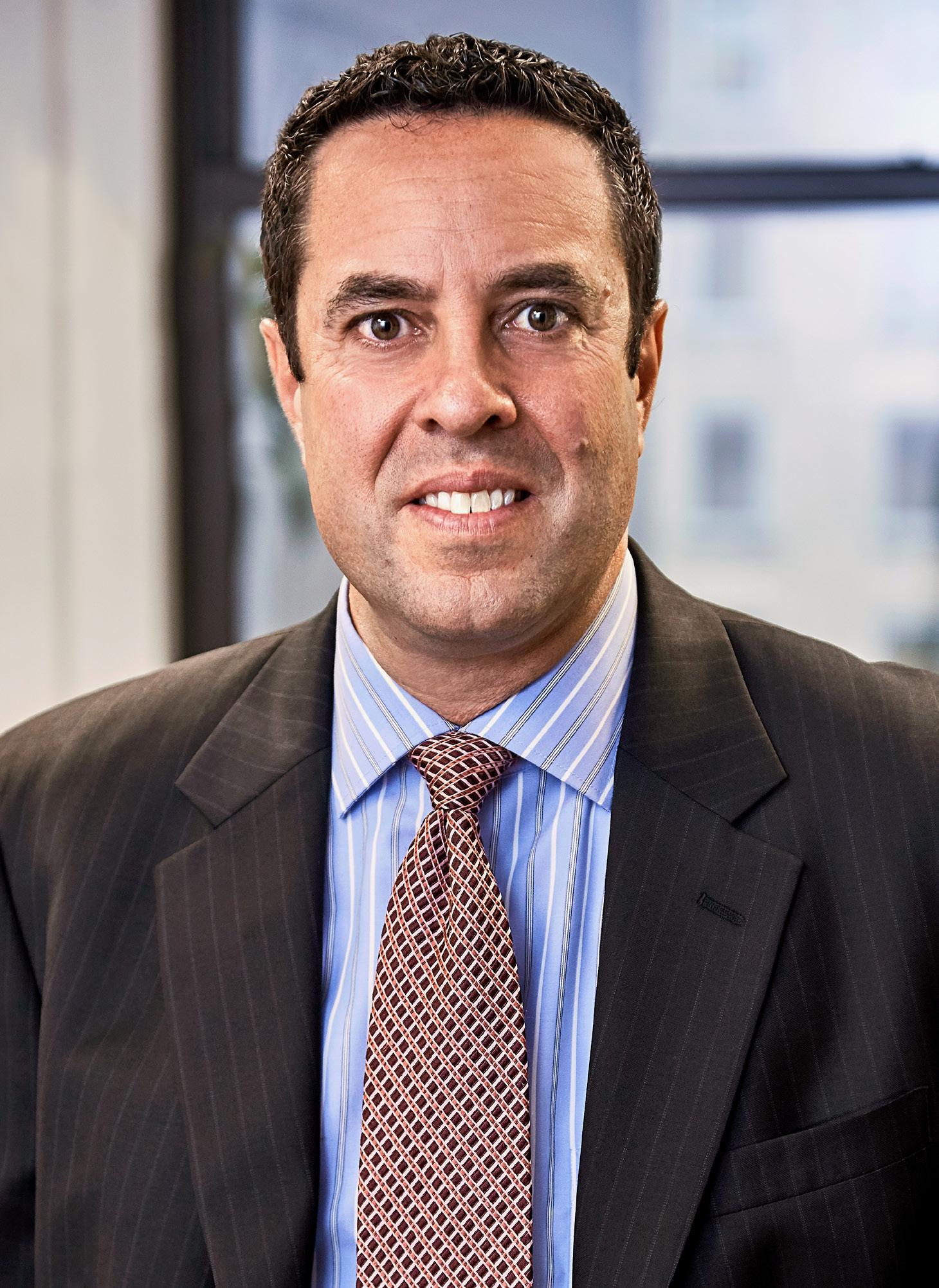
Mark A. Hernandez VP and Assistant General Counsel Charter Communications
“If you want to be successful, you should strive to be a little bit better every day, and the best way to do that is to help clients and learn something new.”
a local village. When the village needed a prosecutor to manage traffic and code violations after hours, Hernandez volunteered. “Night court wasn’t glamorous, but it gave me the rare opportunity to try small cases as a new attorney and it prepared me to take the next step in my career,” he explains.
When some partners left to join Putney Twombly in 1996, Hernandez decided to join them. He ended up staying for nearly twenty-five years.
Within two years, Hernandez had been dubbed a “rising star” and was trying his own cases. Along the way, he picked up the creed of “learn and help” by watching and listening to the Putney Twombly partners he wanted to emulate. Hernandez started focusing exclusively on labor and employment, made partner after nine years, and became an equity partner in 2018.
In 2021, Hernandez left his firm and joined Charter Communications for the opportunity to leverage his deep skills and reinvent himself as an effective in-house
lawyer. To do so, he would have to keep assisting others and learning new things each and every day.
“Partners at law firms are actually running a small business, so I felt well prepared on both the legal and business sides, but new corporate lawyers always have to learn the culture and accept that they’ll be encountering different protocols and procedures for the first time,” he says.
Charter Communications is a publicly traded Fortune 70 company with ninety-three thousand employees. Hernandez provides daily counsel to many business units regarding corporate activities and employee issues. He also monitors outside counsel on litigation matters and serves on a robust employment team of skilled attorneys, paralegals, managers, and other support staff.
The company recently announced that it is offering a minimum starting wage of $20 an hour, including target commissions for all employees, and is hiring hundreds of customer service employees and filling other positions
“There are so many opportunities to collaborate, learn, and be just a little bit better each day.”
across its forty-one-state footprint. Hernandez is advising on some of these activities and working with top executives on executing their strategic vision.




This year, Hernandez is dedicating himself to learning even more about his new company. “I have found Charter to be a collaborative environment, which fosters creative solutions and pragmatic decision-making,” he explains “There are so many opportunities to collaborate, learn, and be just a little bit better each day.”
Kabat Chapman & Ozmer LLP, a boutique employment and commercial litigation law firm with offices in Atlanta and Los Angeles, provides the personal attention of a small firm with the expertise and resources of a much larger firm. From its national platform, KCO represents Fortune 500 companies in matters ranging from class action defense to individual employment and complex commercial disputes. The attorneys at KCO successfully have defended clients in 200plus class, collective, and representative action lawsuits, with only one case surviving certification.


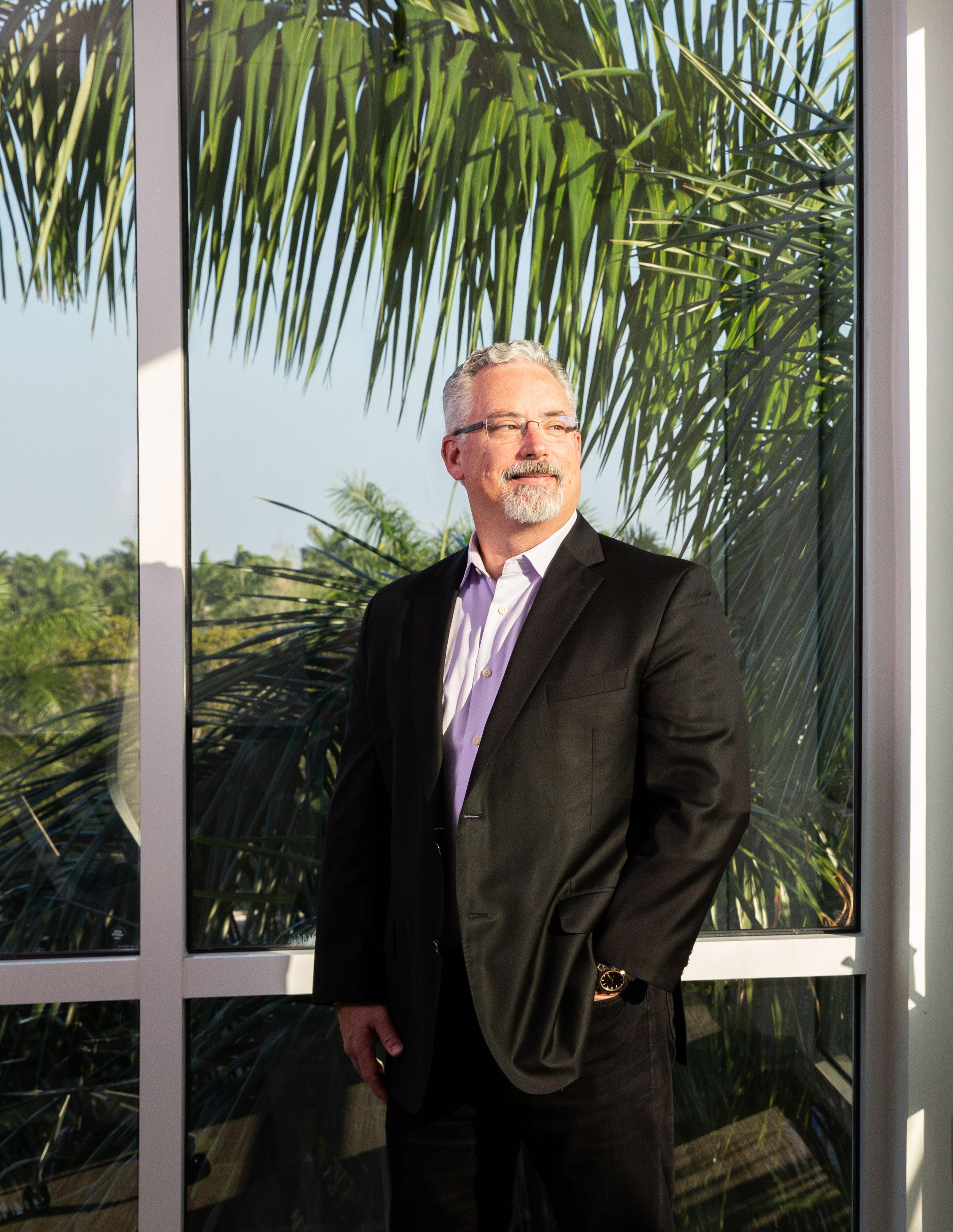

Soon after they join his company, UKG, they become part of a team of hands-on technologists building and implementing the company’s cloud-based payroll and workforce management services, like UKG Pro.
If Machado is not in his Weston, Florida office, he can often be found speaking to elementary and high school students in groups and seminars promoting careers in STEM. He places a special emphasis on reaching female and minority students—two demographics that often express an early interest in the tech only to pursue other avenues when they encounter limited opportunities or access later in life. “People in technology roles are still about 70 percent male and at least 50 percent white, and the numbers are lower among leaders,” he says. “Increasing representation matters, and we need to do what we can to create a more complete pool of candidates who come in the door.”
The veteran information technology (IT) leader cares about these issues, because they’ve played a role in his own experience. He was studying psychology at the University of Connecticut when a group of young technologists opened his eyes to the possibilities in an emerging field. During a summer internship at a mental health facility, Machado grew bored with his assigned work and made friends with members of a tech team, who were busy digitizing patient records and transitioning the hospital to a new computer system.
“The manager of the team was just twenty years old, yet he was talking to the CEO and leading a large project that had a real impact on patient care and the business at the same time,” Machado recalls. By the end of the summer, he’d decided to change majors and pursue a computer science degree.
When Machado graduated and started consulting, he found that his being a Latino in
IT was an advantage in South Florida, where many companies have their regional headquarters for operations in Latin America. He began modernizing systems and structures for those companies, and eventually landed a job as director of communications and information security for companies owned by prominent entrepreneur and philanthropist Phillp Frost.
Working for Frost, a serial business creator with deep connections throughout Florida, helped Machado step into leadership roles and stay connected to his community. “I learned that I didn’t have to move to Silicon Valley or another bigger market,” he explains. “I realized I could build a career in tech in South Florida and still make an impact on the world around me.”
In 2007, Machado joined UKG (then known as Ultimate Software) to rebuild its technology infrastructure. The company
Nearly one-third of John Machado’s new hires come from career colleges or high schools.
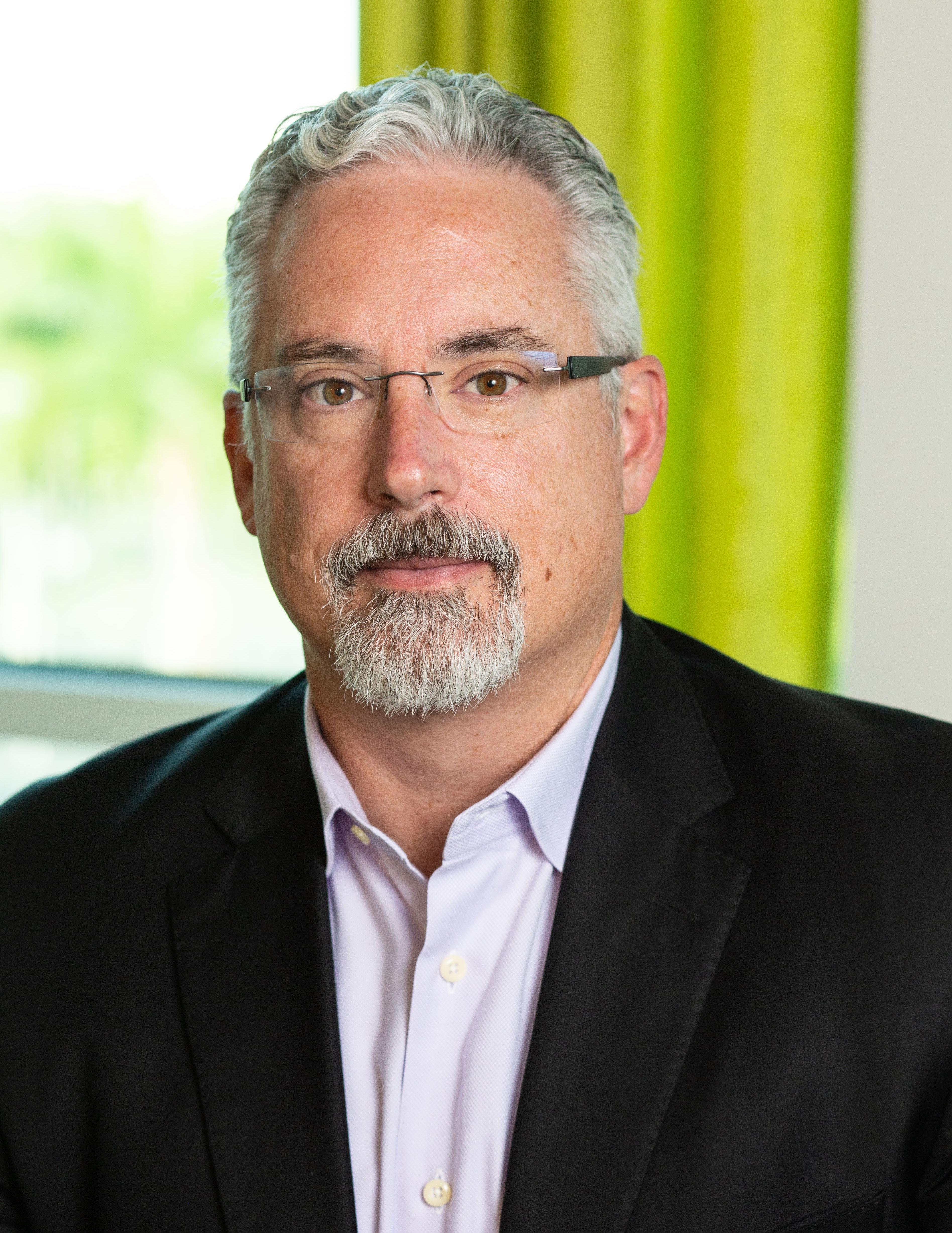
creates HR and payroll software systems, and both the work and corporate culture resonated with Machado. “We take care of our people, so they take care of our customers, and that takes care of our shareholders,” he says. That strong vision and culture continues to drive UKG, and Machado has spent the last fifteen years building the products and services that empower clients to fulfill their own missions.
Along the way, Machado has found opportunities to build in features that promote diversity, inclusion, and equity. The company’s development teams can now leverage artificial intelligence to create software that will help hiring managers normalize biases that come into the hiring process based on language or gender. Simply removing phrases like “coding ninja” in job descriptions can attract more female candidates. UKG also can generate reports that examine diversity and show whether pay is equitable across race and gender.
As chief technology officer, Machado owns the engineering and cloud teams that build the technologies that power everything the UKG customers buy. In the past six years, those teams have brought five products to market, allowing UKG to offer customers more ways to support their employees.
Post-pandemic, UKG is rolling out a new initiative called the Connected Workforce to ensure its solutions work across all devices and locations. Since the features encourage
employees to stay engaged at work, user experience is more important than ever before. Machado says that diverse users require diverse product teams. “Our people have to look like our users,” he explains.
As the line between home and work blurs, software has to adapt. Those on Machado’s teams are shadowing users and implementing eye-tracking software to see what grabs their attention before designing, iterating, testing, and redesigning new solutions. It’s a process with which Machado is familiar—he’s spent more than two decades helping companies leverage the power of technology to drive outcomes.
At this stage in his career, Machado continues to do what he can to encourage young people to consider a career in tech. He currently is on the board of governors at the Alan B. Levan Nova Southeastern University Broward Center of Innovation, a community designed to offer incubator programs, technology certificates, networking events, workshops, seminars, and other opportunities.
The headlines are full of young people showcasing their technology innovations. They are using their skills to advance cancer treatments, build new devices, and reduce carbon emissions. That’s what inspires Machado to usher them into professional careers— he knows that together, they can continue to make an impact.
“Increasing representation matters, and we need to do what we can to create a more complete pool of candidates who come in the door.”
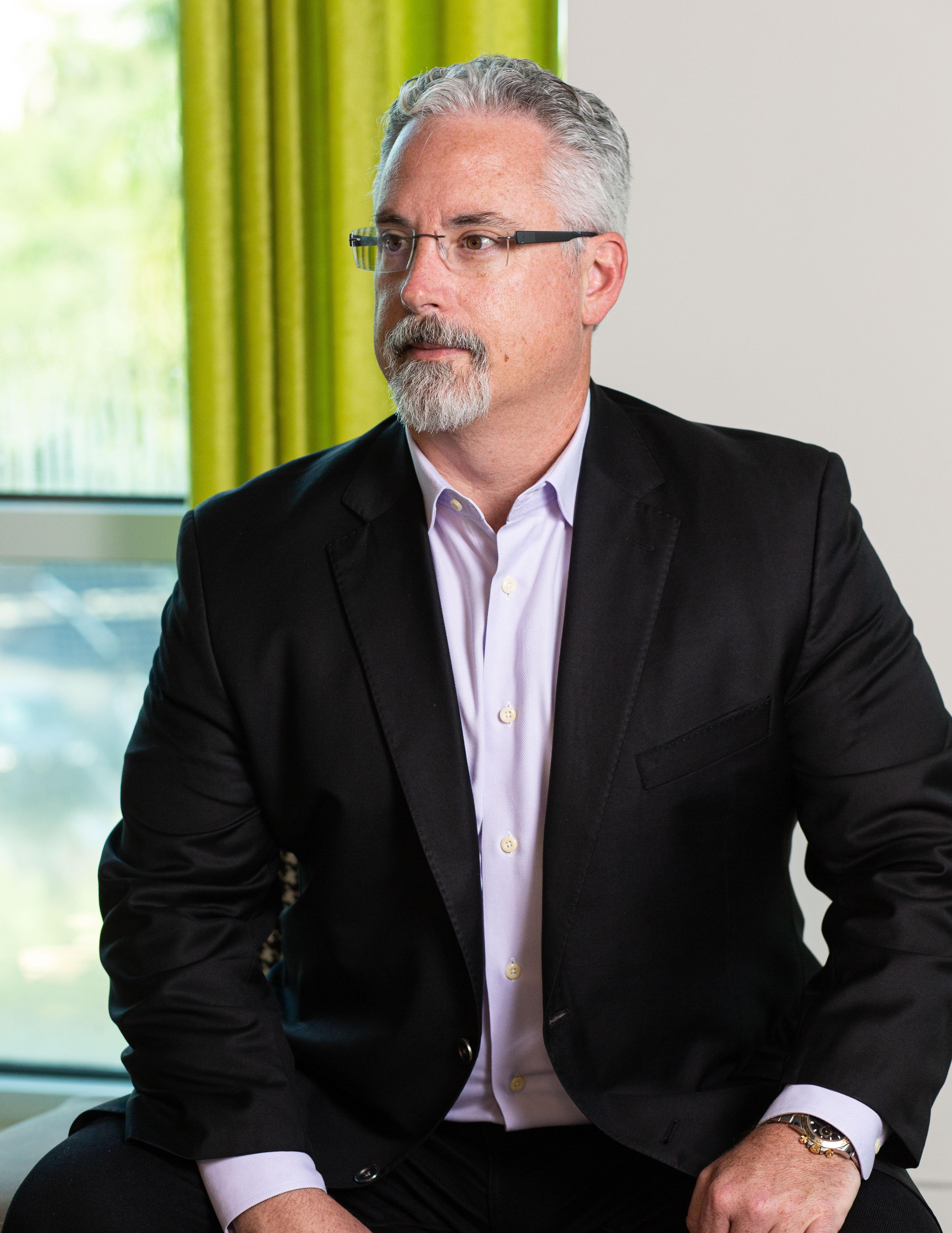
Rafael Gonzalez reflects on how both he and Aultman Hospital have led the Canton, Ohio community toward improved health and comfort
But patient testimonials emphasize that Aultman still offers a personalized healthcare experience—due in part to the fact that the hospital has spent decades going out and serving the community, ingraining itself within the Canton, Ohio community and becoming a trusted source of healthcare amongst locals.
“We are your neighbors, friends, and family,” reads Aultman’s website. “We’ve got you.”
Aultman Hospital always has striven to keep its staff united and patients connected with their loved ones. But as the COVID-19 pandemic forced the country into a new, remote reality, the path toward that mission became unclear. It’s due to the dedication and hard work of Aultman staff members, like Chief Technology Officer Rafael Gonzalez, that the hospital was able to fulfill its
mission and ensure that the Canton community overcame COVID-induced roadblocks.
Under Gonzalez’s supervision, the Aultman staff connected over one thousand remote, nonclinical workers by assembling three hundred virtual desktops, and Aultman Hospital also renovated mobile workstations to allow for virtual visitation and video conferencing between patients and their loved ones.
“Getting the back-end processes ready to support that many users, in a matter of weeks, was quite stressful, but our team worked around the clock to make it happen,” Gonzalez said in a May 2020 interview with AP News. “Several of our key technology partners also have stepped up to the plate, and for that we are eternally grateful.”
Aultman Hospital provides optimal care with a close-to-home touch.
The Ohio-based organization is home to over seven thousand employees and holds approximately one thousand beds, making it Stark County’s largest provider of healthcare services.
These efforts prepared Gonzalez and the rest of the Aultman team to tackle the construction and renovation of the $28 million Timken Family Cancer Center. The new cancer center, which broke ground in the spring of 2021, consolidated all of Aultman’s cancer services in one location, including 13,270 square feet of restored, existing space and a 45,000 square-foot addition.

This new space means that Aultman will be even better positioned to serve the Canton community. In a 2021 article published by Canton Repository, four-time cancer survivor Barbara Bennett said that the “capable, caring teams . . . made the cancer journey less frightening and more tolerable. My heart is full of the will to survive, of pride, gratitude, and hope. But today, my heart is mostly full of joy. Joy for our community, for what the Timken Family Cancer means as a combination of ideas, technology, and compassion.”
Designed with patients and staff in mind, the Timken Family Cancer Center features a central entrance and patient drop-off area, navigational support to guide patients and caregivers through the hospital, redesigned care areas built around privacy and patient experiences, family respite areas, and a healing garden aimed to provide wellness and support for patients and their loved ones.
Janice Cooper, an Aultman employee herself diagnosed with breast cancer, feels grateful and optimistic about her healthcare journey, noting that “[her] care at Aultman and soon the Timken Family Cancer Center will help me continue to live my life for my family,” according to the Aultman website. “God has graced me to be able to continue my journey on this earth. The gift that this community is being given is unbelievable. The generosity of everyone who has donated to help this vision become a reality does not go unnoticed.”
Fujifilm’s Synapse® Enterprise Imaging portfolio breaks down the barriers between technologies and teams across departments within healthcare organizations to empower real-time clinical collaboration. Experience how Fujifilm’s innovative technologies allow providers to see the whole patient immediately, so they can treat the whole patient.


IT TAKES A LOT OF WORK TO MOVE PEOPLE and the team at Otis Elevator Company knows just how much. The company builds, installs, and operates stairs and escalators. Users who encounter their devices every day may take them for granted, but complex Otis machinery has been transforming the world since the company got its start nearly 175 years ago.
The Connecticut-based company takes its name from Elisha Otis, who invented the elevator safety brake. Without his work, the modern high rise—and the modern city—never would have been possible.
That set the tone for the inventions Otis employees have continued to create. Over the years, company engineers developed new methods, designs, and technologies that have led to automatic elevators, steel belts, and double-deck units.
A strong legal team protects the company as researchers and engineers pursue new breakthroughs. Nelson DaCunha, senior counsel for IP, completed an undergraduate program in computer science and an MBA in IT management before finishing law school. That training helps him manage registration, clearance, and enforcement activities for the company’s global trademark portfolio.
The IP team works with employees in twenty-six engineering centers and eleven test towers around the world. Together, they are building upon a strong reputation and adding to a growing legacy.

With elevators and products, there is only one direction to go as new technologies emerge: up. “I envision a future where I simply walk up to a building, it recognizes who I am from biometrics, it knows that I work on the thirtieth floor, and it points me to the specific elevator car automatically,” executive vice president and chief digital officer Neil Green says on the company website.
Products like the Compass 360 destination management system are a step toward making that vision a reality. Compass 360 uses SmartGrouping technology to reduce wait and travel times. It interfaces with building security systems and features responsive touch screens with RFID and Bluetooth optionality for card readers. Teams at Otis can even program Compass 360 units to meet specific requirements like VIP Mode, which gives certain passengers an express ride to their destination.
With 70,000 employees, $14.3 billion in net sales, and 2.1 million customers units worldwide, Otis is at the forefront of digital technology. Leading corporations, top municipalities, and others turn to the organization for critical projects like the Panama Metro, where it supplied hundreds of escalators and elevators that take passengers to train platforms in Central America’s first metro system.
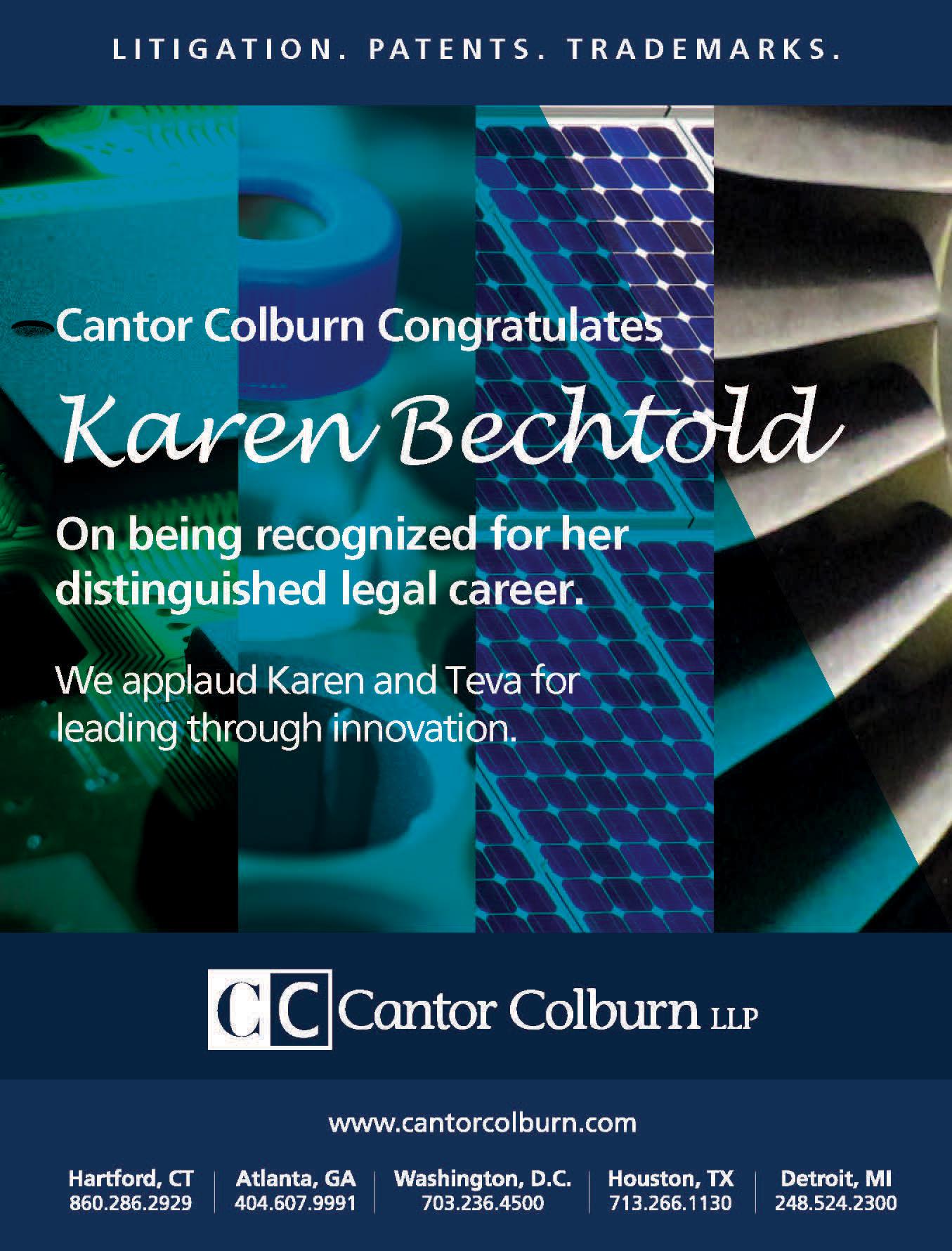

Now the iconic company is getting into something new: service robots. Leaders have announced Otis Integrated Dispatch, a cloud-based API solution allowing clients to integrate service robots and elevators. While limited mobility once prevented service robots from being widely adopted, they can now take the elevator. Deployed autonomous assistants communicate with Otis elevators over an encrypted system and select a door that opens and closes in sync with the robot’s travel speed. The robot then enters an elevator to move through a hospital, hotel, business, or warehouse to make a delivery.
It’s just one of many ways Otis is pushing industry limits. The company is thinking about urban air mobility, taking steps to address airflow and inclusive mobility, and leveraging robotics to create the best passenger experience possible. People and cities are changing. As they do, Otis remains dedicated to changing the way people move.


 BY NATALIE KOCHANOV
BY NATALIE KOCHANOV
At TopBuild, Luis Machado flexes his M&A muscles, while embracing the informal, collaborative company culture
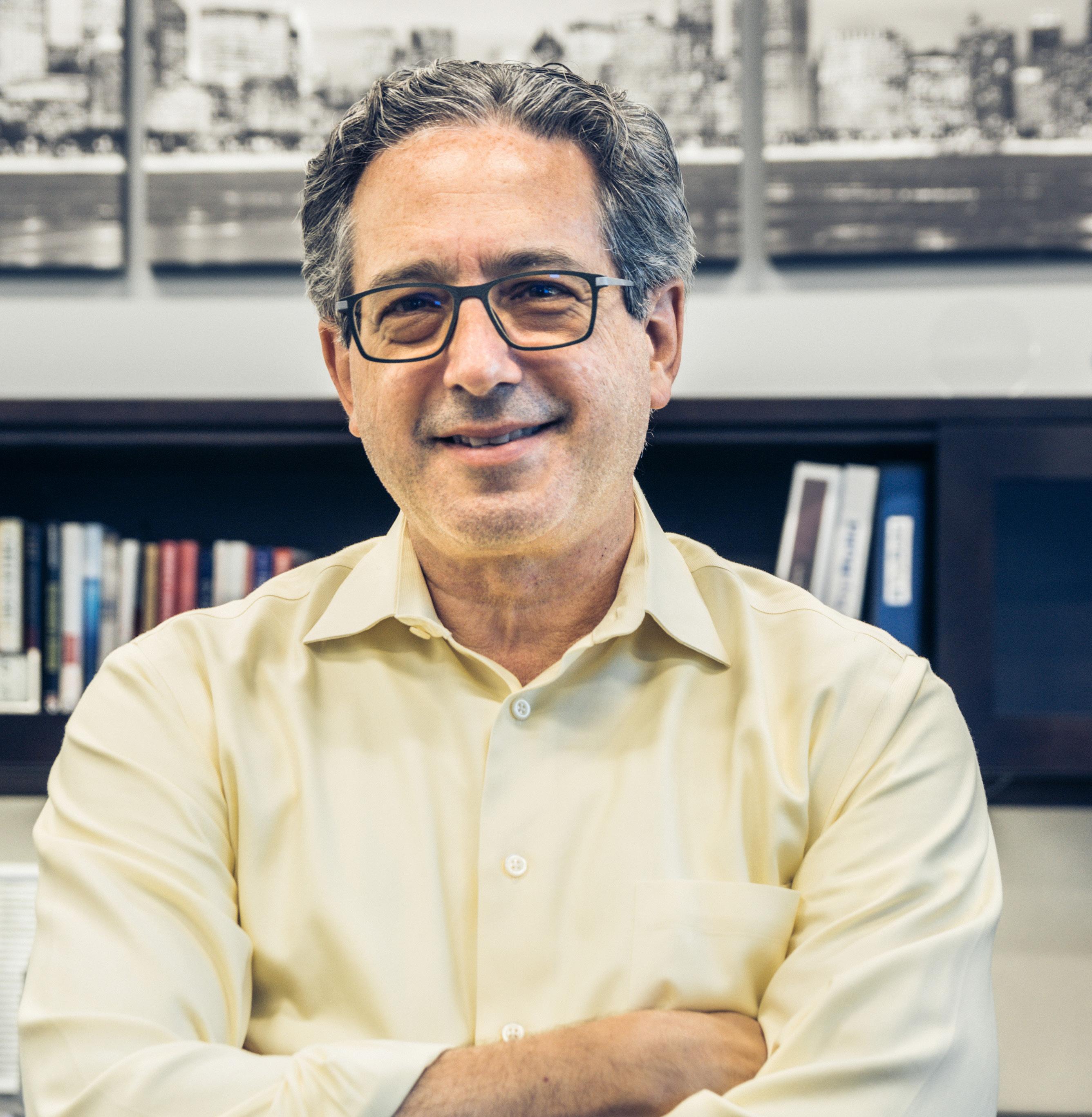
EVERY CHRISTMAS EVE, LUIS MACHADO
cooks a big Cuban dinner—roast pork, black beans and rice, plantains, and more—for his family, friends, and neighbors. “We’ve done it for twenty years, and I’m very proud of the fact that when you ask my children what their favorite holiday is, they don’t say Christmas,” Machado says. “They say Christmas Eve.”
Having grown up in a tight-knit household himself, Machado always has emphasized the importance of family and community to his children. In the same spirit, he welcomes with open arms the dozens of guests who attend the annual dinner, whether he’s known them for years or they’re meeting for the first time.
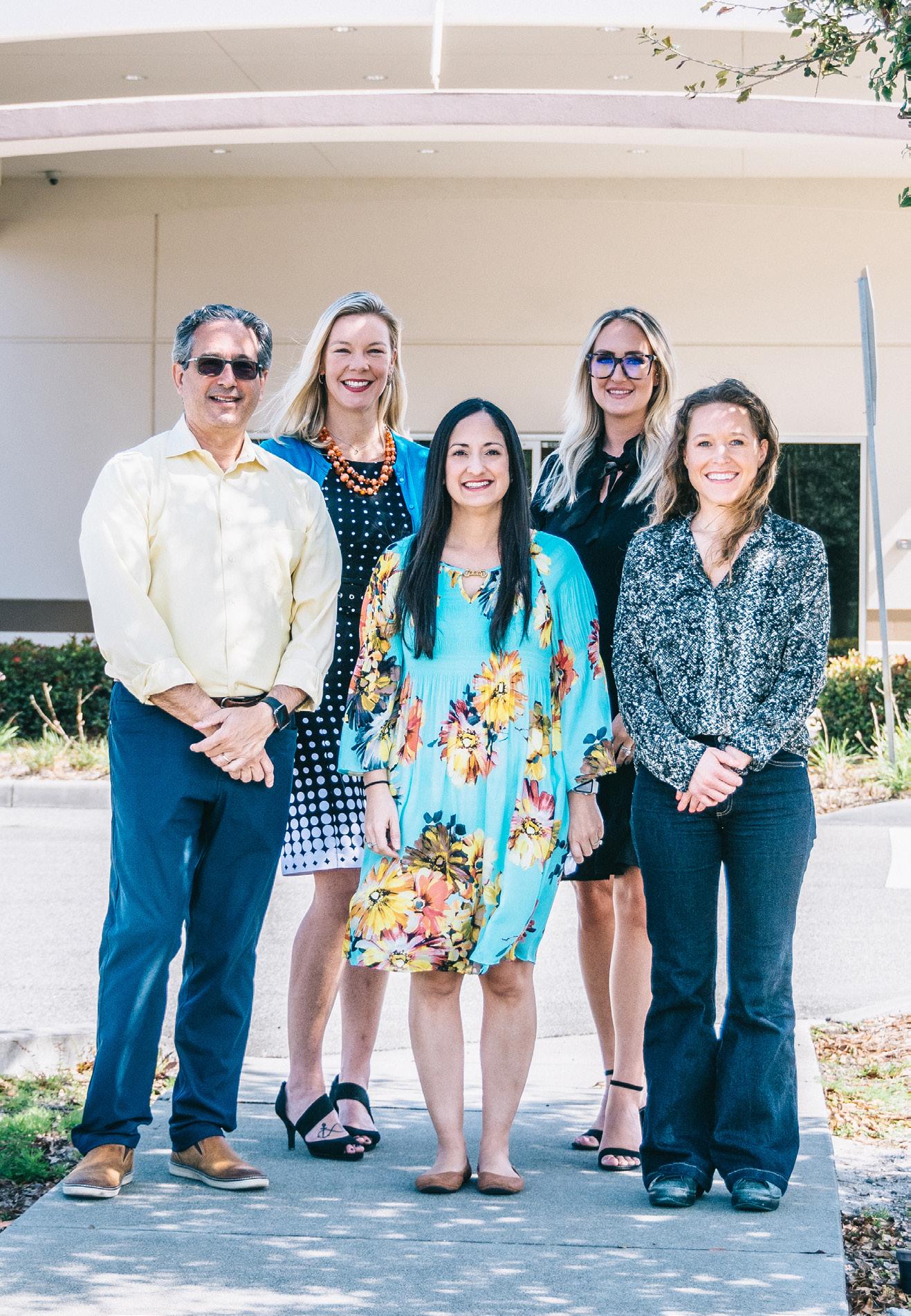
It’s only fitting that Machado has landed at a company with an informal culture and level of camaraderie in keeping with his own values. TopBuild Corp., the insulation and building materials installer and distributor, where he serves as vice president, general counsel, and secretary, boasts a corporate environment centered around collaboration and open communication. Since joining the company in August 2020, Machado has dedicated himself to reinforcing this culture, as well as TopBuild’s deep commitment to safety, through his cross-functional legal leadership.
Before coming on board at TopBuild, Machado gained valuable experience advising organizations across a range of industries. “I’ve been in manufacturing, automotive supply, retail, chemicals, and food, and before that, I represented law firm clients in a lot of different areas,” he explains. “So, I’ve seen enough to know that although different industries do things different ways, they do many things the same way.”
Machado’s prior roles also taught him the importance of surrounding himself with the right people for the task at hand, giving them the necessary resources to succeed, and empowering them to do so. “If you tell someone that you know they can do something even though they themselves may doubt it, they really try hard,” he says. “I honestly believe that if you trust people, they tend to step up.”
There have been plenty of chances for Machado and his team to step up at TopBuild, which has undergone significant growth in recent years. The company’s expansion has allowed Machado to return to his first love as an

“The entire company feels like a team, and we’re all focused on the work of taking care of our customers, doing the right thing, and making sure our people are safe.”
attorney: mergers and acquisitions (M&A). “Buying and selling companies is the stuff that I really enjoy. It’s one of those practices that gets in your blood, and once it does, you’re hooked. You always think of yourself as a deal lawyer,” he explains. “At this company, I’ve been able to use my background and my skill set in overseeing, on the legal side, a number of acquisitions, including fairly substantial ones.”
TopBuild has acquired eleven companies in the past year alone and has increased its number of physical locations by around 30 percent during Machado’s time there. Machado has direct oversight of each transaction on the legal side, and he maintains regular touchpoints with the M&A team to support them throughout the sourcing, negotiation, and integration processes.
Beyond M&A, Machado facilitates TopBuild’s annual meeting and reporting, addresses any operational and supply issues that may arise, and monitors regulatory and economic trends that could impact the business in the future. He also leads the organization’s environmental, social, and governance (ESG) function. “As a public company, we’re very much engaged in ESG, and we’re in the process of putting together our fourth company sustainability report. Being in the construction industry, environmental questions abound, but we’re in a really good place because our business is about improving energy usage for our customers by providing well-insulated buildings and homes,” he says.
Along with ESG, safety is another primary area of focus for TopBuild––and another area that falls under Machado’s purview. “The way we describe it across the organization is that safety is personal. Every person in our organization is directly responsible to each other for safety, and that’s from our CEO and board of directors on down,” he says. “We just reported in our 10-K that we had our best safety year ever. We’re very proud of that, but we’re also very clear that the only safety incident metric that is a real goal is zero.”
To that end, all senior leaders at TopBuild receive the previous day’s incident report every morning, and a designated safety team coordinates training, testing, and incident reporting and prevention efforts.
The company-wide emphasis on safety is just one part of a broader culture of collaboration, openness, and inclusion. “People often talk about company culture as an aspirational thing, not a reality. But in this case,
we’re on your team.
it is the reality,” Machado says. “The entire company feels like a team, and we’re all focused on the work of taking care of our customers, doing the right thing, and making sure our people are safe.”

The culture at TopBuild fosters strong connections among team members that make Machado’s job as a leader of multiple functions that much easier. Still, he strives to remain available and receptive to his team, whether they’re coming to him with good or bad news, and he takes care to align his actions to his words.
Moving forward, Machado hopes to propel both his team members and TopBuild to the next level. “This company has a terrific runway ahead of it. We have a lot of white space still to grow into, either through M&A or organically, and we’re looking at continuing that trajectory,” he says. “And for myself, I would be very happy if this were my last job and I were ultimately to retire from here.”
When he does retire, Machado plans to spend as much time as possible with his family and loved ones. Until then, he’ll keep doing the next best thing: cultivating the close ties that allow TopBuild to thrive.
PERKINS COIE is proud to partner with TopBuild and Luis Machado and to recognize Luis Machado’s extraordinary contributions to the company’s success.
“We just reported in our 10-K that we had our best safety year ever. We’re very proud of that, but we’re also very clear that the only safety incident metric that is a real goal is zero.”
Law firms increasingly are turning to in-house financial leaders to help steer the business toward success. Vedder Price’s Juan Cruz is mobilizing expansion and modernizing operations at one of the top firms in the country.
BY WILL GRANTACCORDING TO A STUDY BY COLLIERS International, a professional services firm based in Canada, it has become the norm for large law firms to seek their own in-house financial professionals. More than 70 percent of the two hundred largest law firms in the United States currently employ a chief financial officer, and that shoots up to 85 percent when one looks at the top one hundred firms.
“Lawyers tend not to be good at business and even worse when it comes to financial issues,” Michael McCready, the managing partner of McCready Law, told the ABA Journal for an article about Colliers’ study. “A CFO should be considered a necessity, not a luxury.”
Depending on the size of their firm, a CFO often is asked to provide financial reporting, handle cash management and

banking activities, oversee capital allocation, and help evaluate potential opportunities for the business. Employing a financial mind in-house allows firms to pursue more data-driven decisions, especially when CFOs are willing to invest in technology to aid their efforts.
Chicago-based Vedder Price, one of the top two hundred-ranked firms in the US, has entrusted those responsibilities to Juan Cruz since 2018. He joined the firm as senior manager of financial planning, analysis, and strategic projects in 2016 and was promoted to his current role as CFO just two years later.
Priorto Vedder Price, Cruz spent more than eleven years at Dentons, one of the largest law firms in the world, where he served as both director of financial planning and analysis, as well as manager of financial reporting
and analysis. While at Dentons, Cruz also earned his MBA from the Charles H. Kellstadt Graduate School of Business at DePaul University, where he graduated with distinction.
Today, Cruz boasts nearly twenty years of experience in the finance industry, which includes strategic growth, pricing structures, process improvements, key reporting, operational accounting, and finance management. At Vedder Price, the CFO oversees an accounting team, a financial planning and analysis team, a collections team, and an analytics team.




Cruz currently is working on several initiatives designed to streamline processes and help bring Vedder Price into the twenty-first century, including the implementation of cuttingedge technologies within the accounting team, a paperless initiative, and a two-and-a-half-year project centered on replacing the firm’s accounting and billing system.
Even as the CFO builds out his team and launches new initiatives, Vedder Price itself continues to expand into new markets and new regions both in the US and abroad. Cruz’s goal
is to make sure his team can handle any challenge that arises as a result of that growth. Given his experience in the industry, Cruz likely has encountered those challenges before and is always willing to step in should his team need support. However, he tries to stay out of their way and let them learn how to overcome those challenges on their own.
Cruz focuses on that same willingness to learn when hiring new team members. The CFO says he’s always looking for someone both ready to learn and capable of challenging others to learn—in other words, someone with a new perspective or outlook. The CFO himself is always willing to engage in a conversation that might help broaden his own perspective, and he works to ensure that his team has the diversity of experience and opinion necessary to challenge his expectations and ideas.
With such a dynamic team in place, Cruz says he will never be bored in his role as CFO. He also seeks out new experiences outside the office, indulging his love of travel whenever he can. A family man at heart, Cruz says his family and culture drive what he does every day.
Iridium Technology is a global firm specifically focused on business intelligence, profitability, timekeeping, and financial management for legal and professional services firms. Iridium has more than 300 law firm clients globally, ranging from 40 to 2000+ timekeepers. Iridium’s mission is to help firms improve processes and maximize profitability. Iridium “lives and breathes” business intelligence and financial analytics for law firms every hour of every day.

www.iridium-technology.com
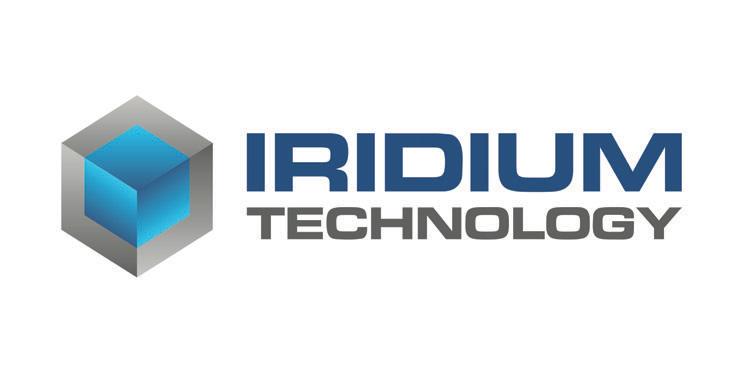

YOU DESERVE BETTER BI AND FINANCIAL ANALYTICS
Explore our broad footprint of products designed to help solve problems and streamline processes in your law firm.








IN 2018, KEITH HERNANDEZ DECIDED to make a change: he left his corporate career in marketing, advertising, and revenue strategy and fulfilled his lifelong dream of entrepreneurship by starting his own company, Launch Angle.
Launch Angle’s multicultural, multidisciplinary teams provide expert advice and solutions to individuals and companies looking to revamp their operations, launch new products, and transform their teams. In short, the company helps business leaders who are in the exact same place Hernandez was in four years ago. Leaders who are ready “for that next breakthrough moment,” as Launch Angle puts it on their website.
Hernandez is now very familiar with the concept of change, having not only grown his own business but also seen and supported countless others as they start off on a new path of their own. The cofounder and partner spoke with Hispanic Executive about what it takes to make that kind of change, his commitment to empowering Latinos, and how like-minded leaders can drive change for the Latino community while realizing their own dreams of entrepreneurship.


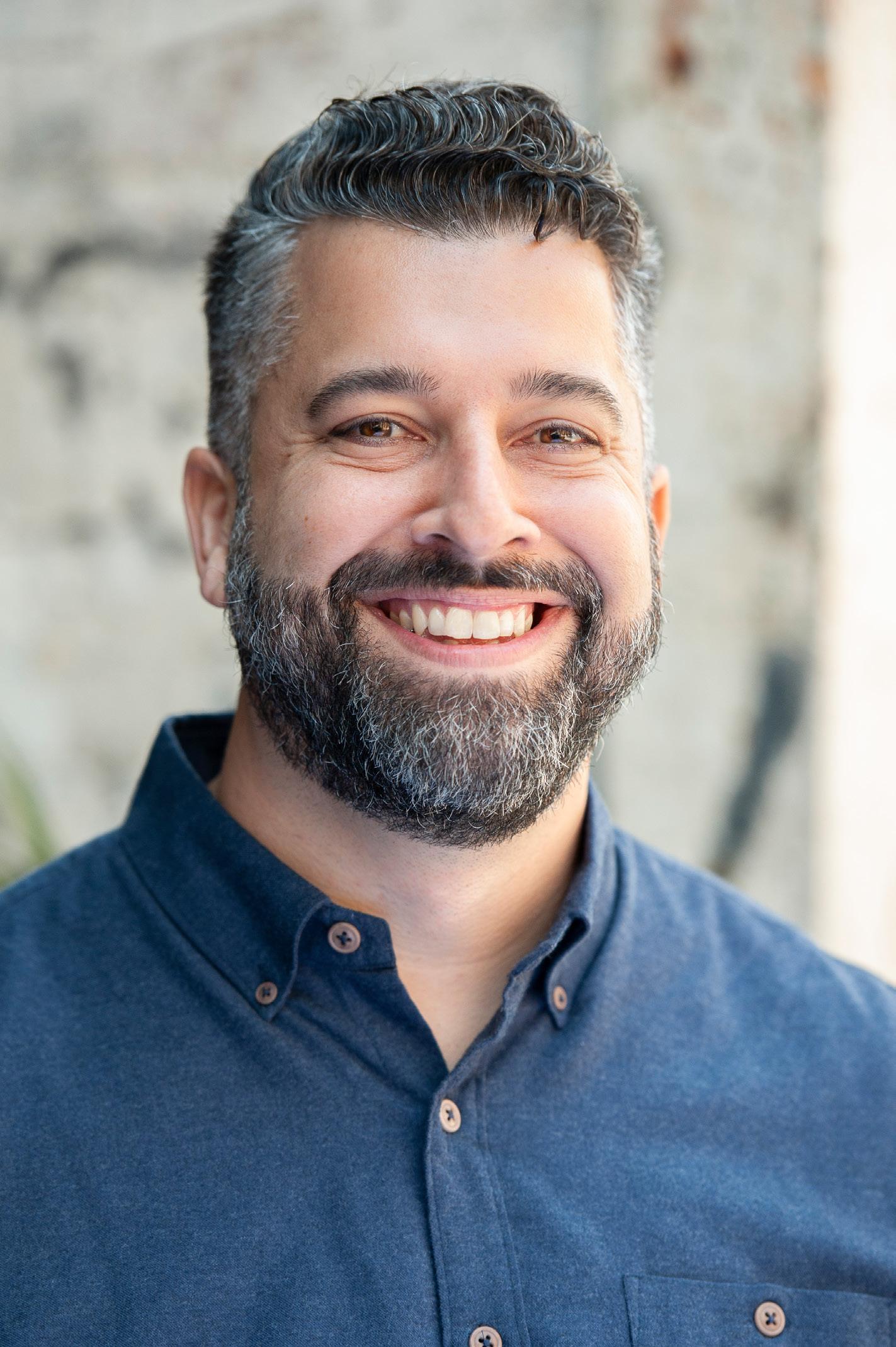
Can you tell us a bit about your journey as a corporate leader? What are some of your proudest achievements from your previous roles?
I see my career as a series of calculated risks, and myself as someone with a penchant for supporting great creative companies. I studied creative writing and English literature in college and thought I would do something on the editorial side of magazines or newspapers. But like so many kids fresh out of college with an English degree, I ended up bartending. While bartending near Wrigley Field in Chicago, I met an advertising salesperson for the Onion newspaper. We struck a bond, and he helped me get an editorial internship that eventually led to my first full-time role on the advertising side of the business.
My journey as a corporate leader started when I was at BuzzFeed , where I had a great manager, Andy Wiedlin, who led with a humble confidence while also helping his team stretch beyond their comfort zone. I instantly identified with that type of leadership: it opened my eyes to the fact that you don’t have to be a tough or mean boss to get the best out of people. You can challenge your team and help them continue to grow with empathy, support, and maybe just a little gentle ribbing to get them to crack a smile.
In 2014, I was an individual seller on BuzzFeed ’s East Coast team and noticed that we had a large audience outside of the United States, particularly in Canada and the UK. Andy taught us to create opportunity instead of waiting for it, so I raised my hand and said I wanted to investigate whether we could set up shop internationally. He embraced the
idea, and we were off to the races. Identifying and opening business offices in Canada, the UK, Australia, Brazil, and Mexico is one of the proudest moments of my career, mainly because of the jobs it created abroad and the career growth opportunities it created for our people. I was also extremely proud of the team we put together; it was a diverse group working across multiple countries, a true reflection of our international footprint.
I’d love to hear more about Launch Angle. What motivated you to start the company, and how has it grown and evolved since then?
I had just left Bleacher Report after AT&T bought WarnerMedia and, honestly, I just wasn’t ready to go back full-time anywhere. I was burned out.
If you ever grabbed a beer with me after work, you almost certainly would have been bored to tears by my proclamations on how I wanted to start my own company. For years, though, I had excuses. Let me just save enough money. After this next promotion. When my daughter is a little older. It took a tragic event in my life to help me realize I should bet on myself. In 2017, my father—who was living in Puerto Rico—passed away in between Hurricanes Irma and Maria. Much of the story is fuzzy, but I do know that he was taking medication and as a result of the power outages, flooding, and impending storm, he couldn’t get his medication. His death was preventable—he was a victim of climate change and Puerto Rico’s crumbling infrastructure.
It took me a few months before I was able to get down to Puerto Rico because the island
was still without power, but while I was there picking up his remains, I realized I needed to stop making excuses and just do the things I wanted to. I did not want to be near the end of my life regretting that I never took a chance on building a company. Even if it failed miserably, at least I could say that I tried.
Launch Angle started as a consultancy. There were many things I had implemented at Bleacher Report that other companies wanted to do, like building branded content studios, evolving their sales team, and building new revenue streams. Before COVID-19, we were a team of six, and a lot of our focus was on brand strategy, research, and developing insights to help our clients navigate their next breakthrough moment. Our clients were in the travel, dining, sports, and live events industries, so you can imagine the hard time we had in 2020. Our focus then was to just stay alive, and I am proud to say that we did.
During that time I also developed the concept for our podcast, the Changeup. Many people were leaving their big corporate jobs, taking a risk, and starting their own thing. The media called it the Great Resignation, but I saw it more as the Great Realization: people were realizing that life is not infinite, that this horrible moment in our history might weirdly be the best time to start a business and take a chance. I was fascinated by what motivated people from diverse backgrounds to make that kind of change, so I started to interview them. It’s been one of the most rewarding parts of our work at Launch Angle, listening to these powerful stories, learning about these phenomenal people, and sharing it with the world.
Launch Angle puts a strong focus on multicultural teams and perspectives. How have you been able to advance the Latino community and/or support individual Latino professionals through your work at Launch Angle?

It’s important to me that people see Latinos as a powerful force for good in the corporate world. We know that there are many great programs for young Latinos to learn about the
business world and find mentors, and we are also seeing great strides happen as companies work to develop diverse boards and bring in Latinos for C-suite positions.
However, there is massive hole at the mid-career mark for Latinos. So much focus is on entry-level positions and the C-suite that not a lot is done for directors, vice presidents, and senior vice presidents. We realized there is an opportunity to help strong leaders navigate the often-tricky world of corporate
leadership: we have partnered with Management Leadership for Tomorrow and developed a mentorship program where we work with about a dozen senior leaders, all Black and Latino/a, to help build their professional brand and grow their professional acumen. It’s funny calling it a “mentorship” program because the people I work with are way smarter than me, and super accomplished. It’s really about offering them a strong partner in figuring out how they can evolve and take the next

“Younger employees don’t want platitudes, they want action. Show employees that you are taking the necessary internal steps to provide more opportunities for career growth, and you will see a stronger bond with your team.”
steps in their career. Some are writing books, others are starting their own company. It’s been a fun experience, and a great reminder that we all need someone to bounce ideas off of outside our company.
A little less officially, I have been very deliberate about having a diverse set of people on our podcast, the Changeup, especially people from Latino and US Hispanic backgrounds. It’s important for me to help share their stories, as less than 2 percent of venture capital-funded businesses are Latino-owned. I want to inspire other Latinos who might think there are too many hurdles to building their company and provide them with a real-life road map to entrepreneurship.
Even less officially, I get asked for help with hiring a lot, and I always make sure to include a diverse list of people. As you get more senior, recommendations from others become essential to your ability to secure roles. Because Latinos currently make up such a small percentage of senior leadership roles, we are not getting recommended at the same rate. I have become very intentional about recommending Latinos for senior roles.
You’ve worked with a lot of entrepreneurs through your work at Launch Angle. What advice would you give to executives who are considering striking out on their own and launching their own company or organization?
As Nike says, “Just Do It.” There will never be the perfect moment or the best time in your career, and even if there were, you would never know it. If your idea gives you energy and keeps you excited and connected, don’t ignore that. Follow your energy. It will keep you going during the darkest days and will be the guiding light as you grow.
Be open to the evolution of your business. We started as a sports consultancy but have now gotten into producing podcasts and newsletters, building advertising sales teams, and developing career mentorship opportunities. If we had stuck with the first concept, we would have missed out on some of the most fun and interesting opportunities we now have.
Give yourself time. Some of the most successful founders I have learned from said they committed to their concept for two years. You can always go back to the corporate world and find a full-time job, so give the project a chance to succeed.
Commit to the endeavor. As Ron Swanson from Parks and Recreation said, “Never half-ass two things. Whole-ass one thing.” If you don’t give your company 100 percent of your focus and commitment, it will never reach 100 percent of its potential.
Ask for help. It might be lonely starting your own thing, but there are thousands of people out there in the same boat. Seek out that community, find people who are also first-time founders, and talk through some of the issues and hurdles you are seeing. You will find that many people are going through similar struggles, and by talking through them together, you can find solutions.
Appreciate your family. One of the most integral parts of building a business is getting the emotional and physical support of your family, whether that’s your spouse, your parents, your kids, cousins, or uncles. The founders I know who are both successful and happy are the ones who have a strong bond with their family. They talked about the business openly with their family before starting it, agreed on how it would change their lives, and made a commitment together to making the project a reality. Your family doesn’t have to work at your company, but their support and understanding are invaluable. You can’t go it alone.
How can mission-oriented entrepreneurs best ensure that their commitment to the Latino community is ingrained in their business from day one?
Hire, retain, and promote. Latinos make up 18 percent of the US population and are also the fastest-growing segment of the population. Pretty soon, we will be the new majority. Unfortunately, when you look across leadership positions at public (and private) companies, Latino leaders are in the low single digits in terms of representation.
This is not a pipeline problem: there are great leaders out there who are just not being given a chance because so many companies only focus on the first element. They put together big initiatives and big HR incentives to hire a diverse team—which is great. But that’s about changing the numbers, not changing the culture.
You need to put an equal amount of resources and commitment into making sure that you are promoting Latinos from within, that you are challenging them with new opportunities, and that you are retaining the best talent. The most common reason people leave a job is because they feel they aren’t properly valued (they might have been passed up for a promotion, excluded from key meetings, or any number of other things). Once you hire someone, be deliberate with them about how you are going to help grow their career and the options they have to develop into a leader at your company.
What do you think is the most common thing that holds people back from starting their own company, switching industries, or making some other significant professional change? What is the solution?
Being good at what they are currently doing. Often, our own success limits what we end up doing. Many would-be founders have told me that they will start their own thing if they don’t get the big promotion. Three months later, I check in, and guess what? They got the promotion! Fantastic, but is that what they really wanted? Were they looking for a good excuse to leave and instead got sucked back in? Often, our own success impedes our dreams.
High-performers also tend to hate failure. I struggled with this for a long time, and it made me resistant to a lot of new challenges. When we get good at something, we eventually get compensated really well for it, and so failing becomes even riskier.
Two years ago, I took up volunteering as a firefighter in my town. When I walked in that
first day, I knew literally nothing. My whole corporate career had been built on my expertise and my decades of work, but at the firehouse I was a rookie who needed someone to show me everything. But I was curious. And humble. I kept an open mind and embraced being an apprentice. And I have found that having an extracurricular area where I am a novice and can openly learn has given me more courage to take calculated risks with my business and to learn new skill sets.
I recommend that everyone find something—whether it’s a hobby, a sport, or volunteer work—new to learn. Embrace being bad at it. Don’t worry about becoming the best, just go and learn from someone else. The experience is humbling, but you will find your mind working in different ways. (Learning how to extricate a victim from a car accident doesn’t directly help me in the business world, but if I can learn how to do that, I am pretty sure I can learn whatever new social app the kids are talking about.)
Individual leaders alone cannot enact the changes the Latino community needs. What changes can companies make right now to their operations or strategies to make a real difference for diverse leaders and communities?
Again—hire, retain, and promote. It’s so important it’s worth saying twice. Hire across all company levels, not just entry-level positions. Make a commitment to the people you hire and show them why you want them to be part of the company’s future. Show them paths to grow, teach them about how they can learn new skills, and explain how they can move into different company departments. Set up mentorship programs that have real commitment from the leadership team. Walk the walk; don’t just use diversity as a marketing campaign. I get so annoyed when I see big companies announce initiatives that treat diversity as charity. They offer skills training to entry-level candidates or donate to an underprivileged community—which are both great things—but they ignore the talent already inside their walls. Younger employees don’t want platitudes, they want action. Show employees that you are taking the necessary internal steps to provide more opportunities for career growth, and you will see a stronger bond with your team.

“It’s important to me that people see Latinos as a powerful force for good in the corporate world.”
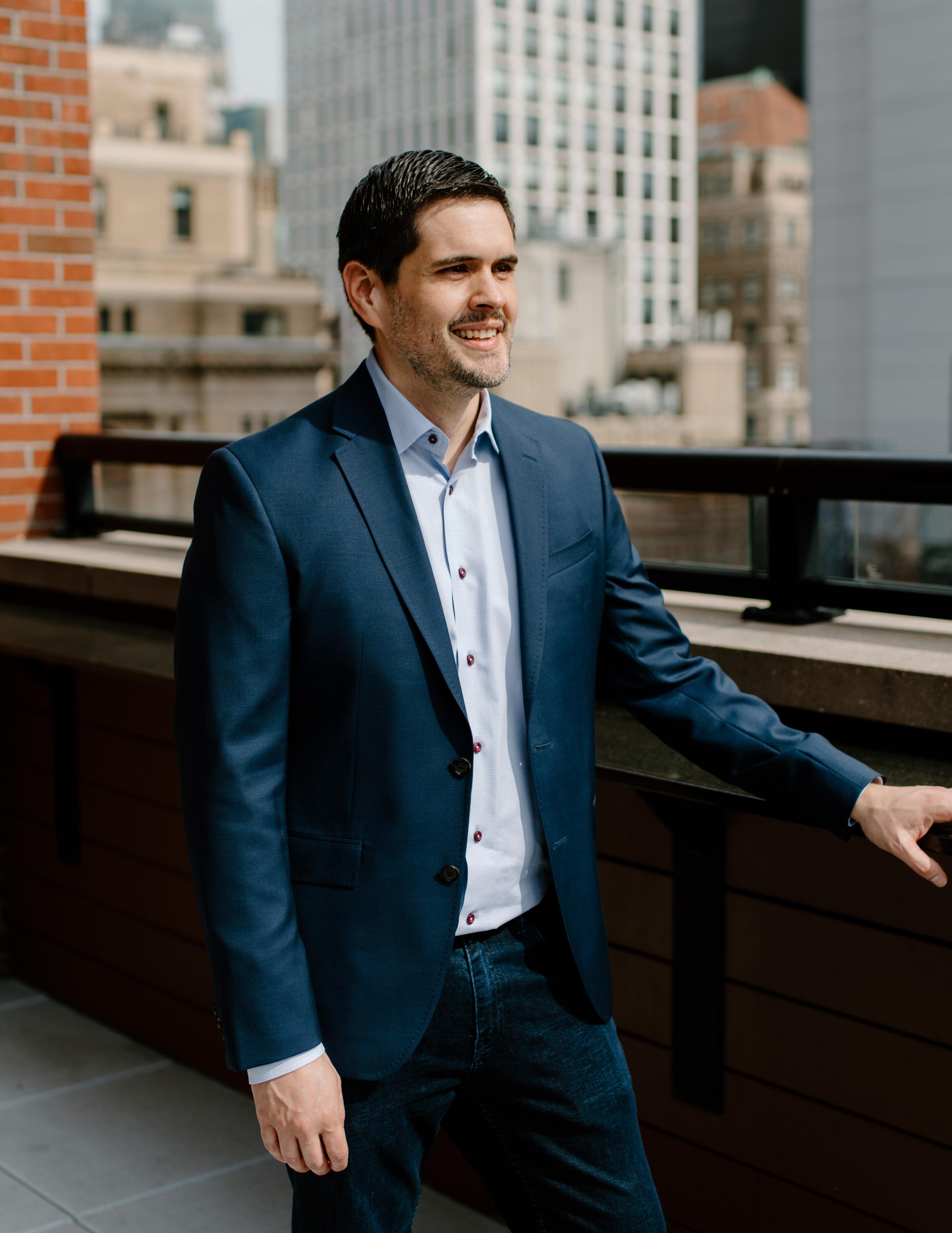

With Lalo, a curated digital scrapbook, Founder Juan Medina is helping people celebrate the lives of their departed loved ones
JUAN MEDINA STOOD AT HIS FATHER’S GRAVE SITE as the pain of loss rushed over him again. It had been more than fifteen years since they’d been together, but for some reason, the grief felt more acute than before. Maybe it was the ongoing pandemic, his high-stress job, the civil unrest facing the country, or the challenges of family life. When his wife asked him to tell a story about his dad, Medina hesitated. For the first time, he couldn’t recall a favorite joke, story, or memory. That’s when the idea for Lalo was born.
Lalo is a new, private online space where friends and family members can share memories of their dearly departed. Medina sees the project, named after his father, as a media-rich digital scrapbook. “Lalo can be a repository of everything we want to remember and share about those we love,” he says. “It’s a special place to collect favorite recipes or photos or important inside jokes we can share to help us remember as time moves forward.”
For Medina, Lalo is more than a daring side hustle or an ambitious start-up. Although his parents are Bolivian and Colombian, Medina was born in Brazil. He studied economics and Latin American studies at the University of Delaware, before completing an MBA at the University of Chicago Booth School of Business. He eventually settled in Seattle and started a career in tech that took him to Amazon, where he led big retail categories in health care and home retail for nearly ten years.
But after a decade, the corporate grind was taking a toll. Medina took a leave of absence to focus on his mental and physical health. He prioritized diet, exercise, and time with his family. As he did so, his professional goals shifted.
“I wanted to find that sweet spot where my passions aligned, and where I could use tech to solve a problem or innovate in a new way,” he explains. Medina started thinking about social media, tech, online tools, and preserving memories after the death of a loved one. The intersection of these ideas pushed Lalo to the forefront of his mind.
Medina reached out to some friends and former colleagues to assemble a core team of engineers and illustrators that formed a small beta version of Lalo. “Almost everyone I recruited has experienced the loss of a parent, and that forms a bond that helps us understand the customer we are building for,” he says.
As they discussed what they would want in an app, privacy emerged as a top concern. Medina and his new colleagues wanted to build in the best features of wellknown social media platforms, while “removing some of the negativity and toxicity that can happen online.” That compelled designers to enable private content published only to small groups of approved users. The beta launched in November of 2021 and targeted a full release in the spring of 2022. Medina says he’ll eventually charge a subscription fee for an ad-free experience.
Experts in grief and loss say remembrance acknowledges the reality of death, while helping the living share an experience and receive the support they need. Medina believes Lalo can play an important role in the process by acting as a sacred space for users to curate, share, and preserve voicemails, video clips, and other
content. His team also writes prompts and offers tools to help in the storytelling process.
Medina is currently exploring Lalo’s full potential and thinking through other opportunities, such as merchandise, access to grief counseling, and uses for pets. He’s also testing pilot programs with school counselors to use Lalo with students who have experienced community tragedy or the loss of a teacher.
Lalo’s team encourages users to explore creative ways of sharing their special memories. In a blog post at lalo.app, Allison Grinberg-Funes writes about how
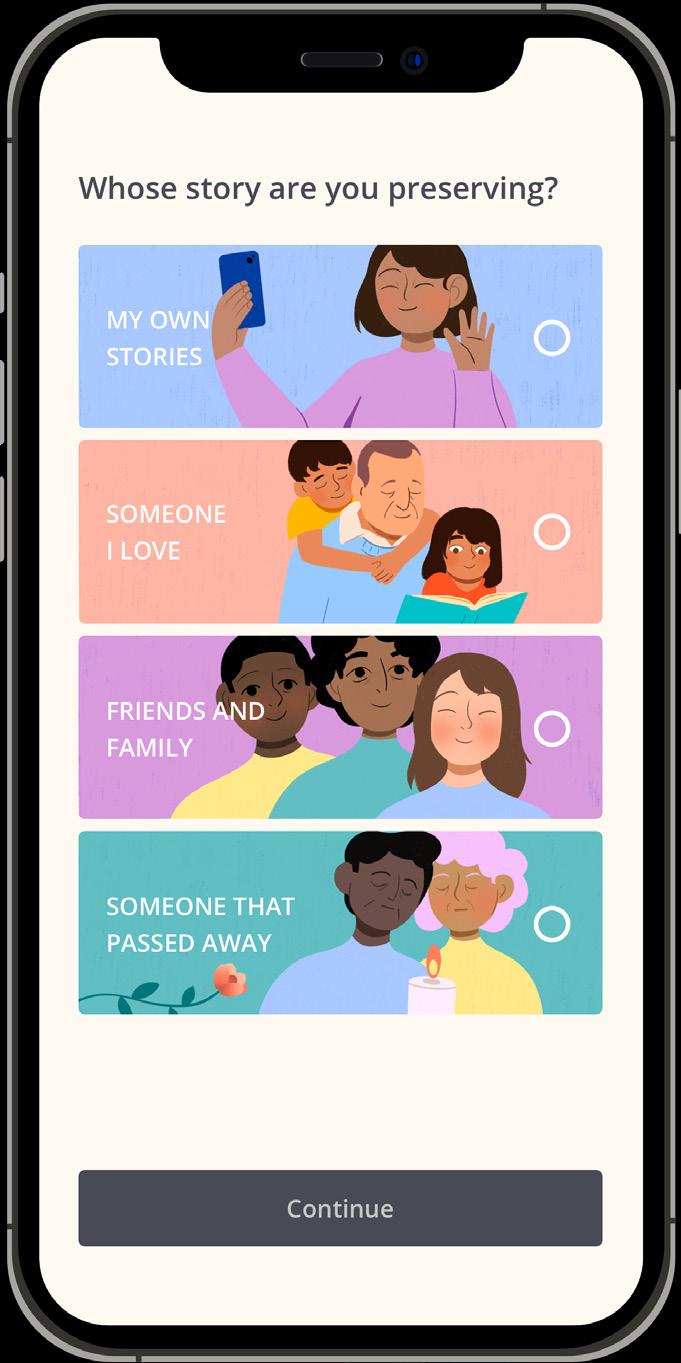
“Loss is universal. Sadly, during the past two years we have collectively suffered more loss and tragedy than we ever imagined possible. Juan Medina’s beautiful and empathetic company allows us to take solace in the ability to share what we loved about our loved ones. It’s no surprise the app has taken off with a community that respects its elders, passes down recipes for generations, and strives to keep those bonds strong with their native country. For this moment in time, we need more people like Medina humanizing technology and using it to connect us rather than separate us.”
technology can do more than gather photos and videos. “Lalo makes it simple and fun to document your memories and share them,” she says. That was part of Medina’s goal—he wanted to give users an easy way to keep their memories alive, no matter how much time and distance may separate them.
The app may have special significance to the immigrant community, which is growing and already totals nearly 15 percent of America’s population. Lalo can preserve music, recipes, customs, language, and other elements of importance to passing down traditions and culture. More generally, the demographics of the country are changing; we’re getting older faster. The category of people sixty-five and older will grow by 40 percent over the next twenty years, and Medina is ready to bring Lalo to a bigger audience to help people celebrate lives well-lived.
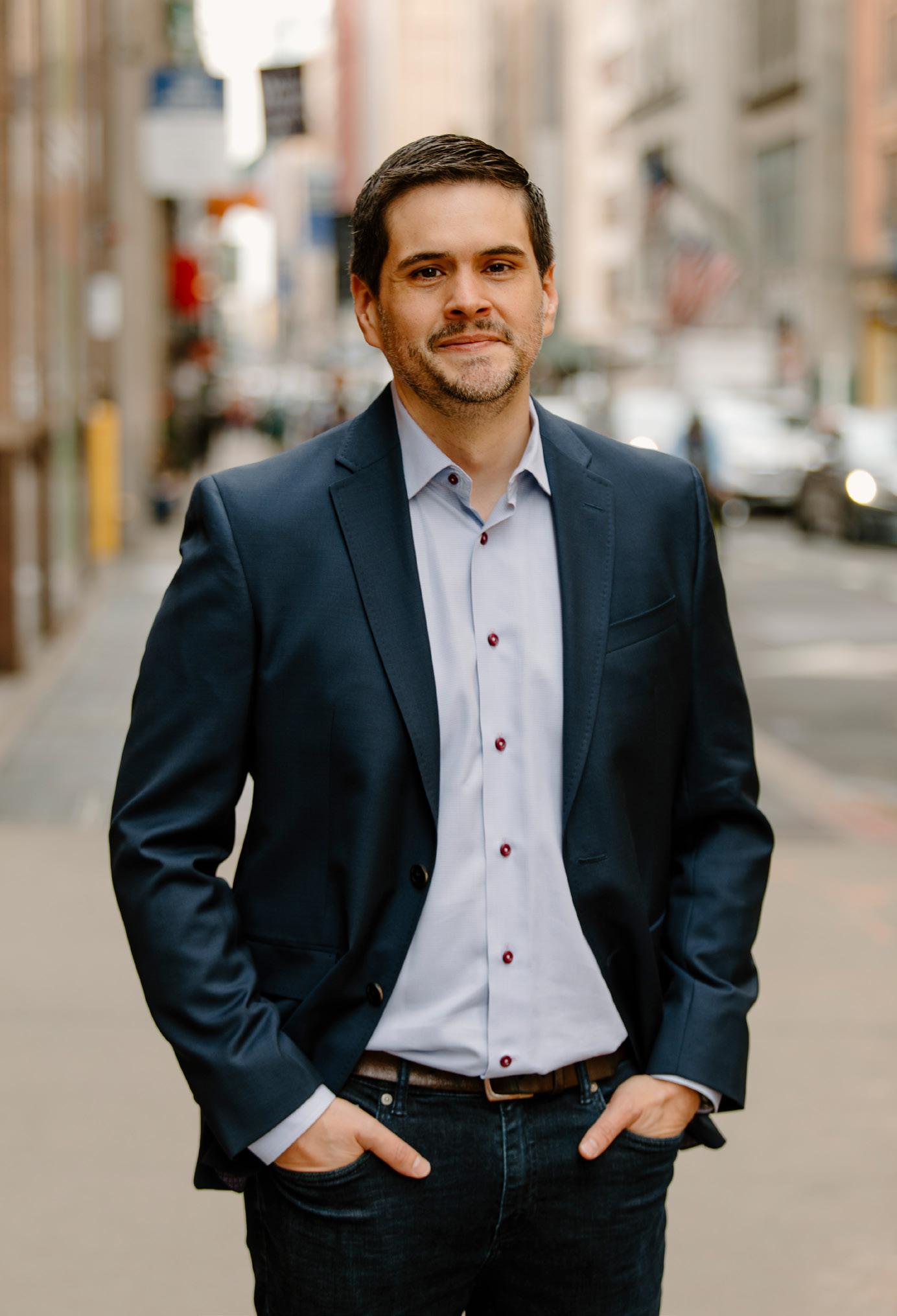

“Lalo can be a repository of everything we want to remember and share about those we love. It’s a special place to collect favorite recipes or photos or important inside jokes we can share to help us remember as time moves forward.”
THOUGHTSFROM THE GUEST
EDITOR—Keith Hernandez, Launch Angle
Sonoro cofounder Camila Victoriano leverages her journalism savvy to uplift Latinx creators and tell stories with global audience appeal
 BY NATALIE KOCHANOV
BY NATALIE KOCHANOV


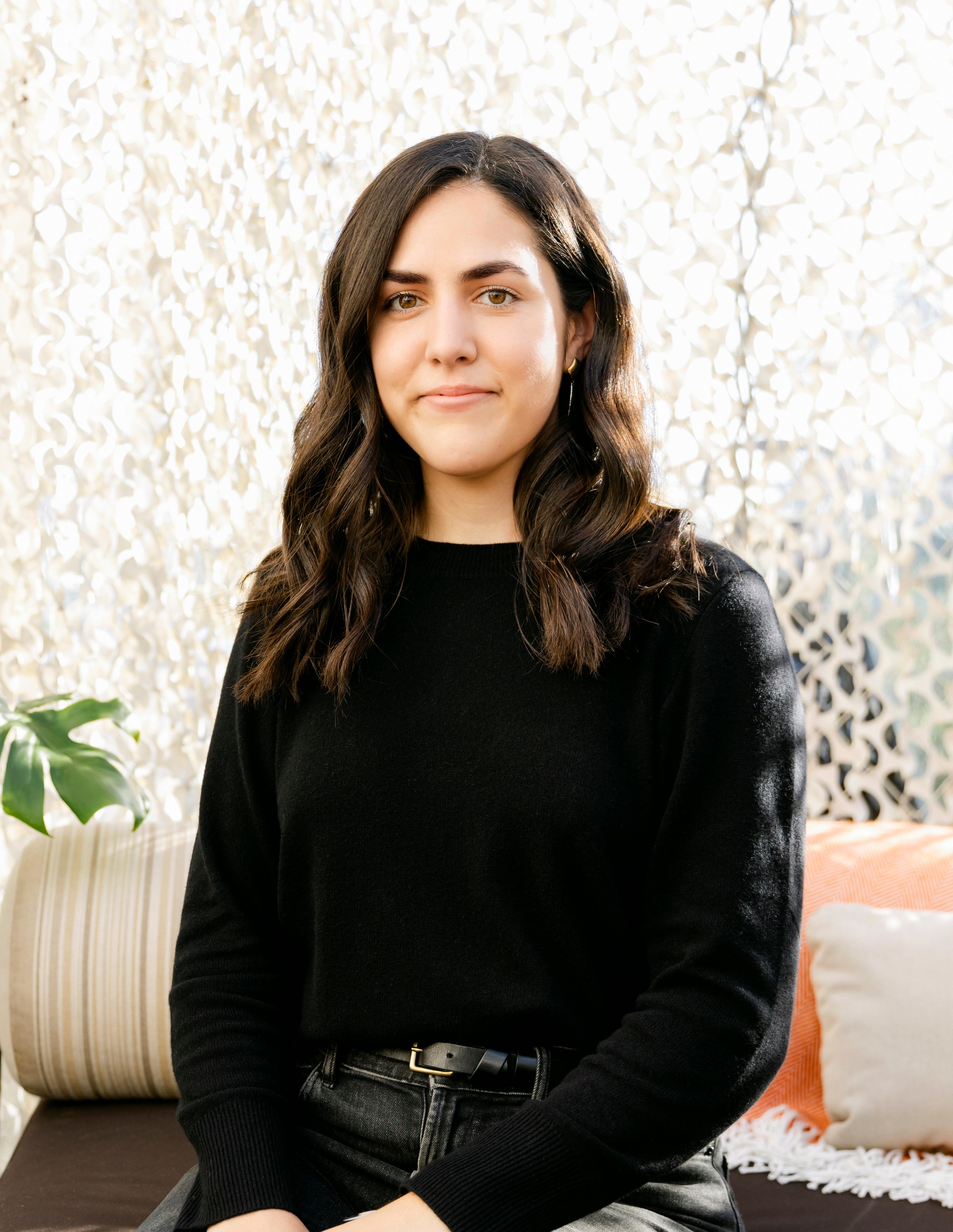 Camila Victoriano
Cofounder and Head of Partnerships Sonoro
Camila Victoriano
Cofounder and Head of Partnerships Sonoro
CAMILA VICTORIANO HAS ALWAYS embraced her Peruvian and Chilean heritage.
“I was born and raised in Miami, Florida, a very unapologetically Latino city. I was really fortunate to grow up in a community where I saw myself all the time,” Victoriano says. “Once I left Miami to go to college, it was a very different experience.”
While studying English literature at Harvard, Victoriano realized how special Miami is. Ever since, she has looked for opportunities to reconnect with and serve the Latinx community in Miami and beyond. In 2020, she took this endeavor to the next level by cofounding Sonoro, a media company as unapologetically Latinx as the city she grew up in. The company quickly found an audience for its content, which seeks to break new ground through its storytelling while empowering creators and listeners alike.
Victoriano’s first job out of college was at the Los Angeles Times. As a member of the business development team, she focused on identifying avenues through which the legacy media organization could increase its digital media footprint. “I was exploring food platforms, event series, documentaries—things like that,” the cofounder says. “And in that exploration, I came upon audio and podcasting as this great medium to naturally extend journalism into.”
Victoriano had a chance to test those waters in 2017, when she contributed to the launch of Dirty John, a hit podcast subsequently adapted for television. She then turned her attention to the Times audio division, which functioned as an embedded startup. Her experience building out that division paved the way for her to strike out on her own
a few years later, with fellow Sonoro cofounders Joshua Weinstein and Gerónimo Ávila.
More than the general allure of an entrepreneurial venture, Victoriano saw in Sonoro a chance to have a tangible impact on the Latinx community in the US and globally— and on the media and entertainment industry at large. “Sonoro’s vision is to reinvent what it means to be a media company,” she explains. “Everything that we are creating and producing starts in audio, which allows us to quickly and efficiently test out ideas and experiment with new types of stories and characters. The other huge piece of it, of course, is the focus on the Latino community. For us, that means everything we create is made by Latinos.”
Victoriano points out that the Latinx community has often been framed as a niche market, despite the community’s significant size and rate of consumption. The Sonoro team, itself entirely Latinx and bicultural, caters to and empowers this very group of people that has been historically underserved by the so-called mainstream media.
In the beginning, Sonoro focused on Latin American creators and audiences, producing most of its content in Spanish. Victoriano, who serves as the company’s head of partnerships, highlights the fiction podcast Toxicomanía: El Experimento Mexicano as an early Spanish-language success. “It was based on the true story of a Mexican doctor in the 1940s who worked with the president at the time to legalize all drugs in the country for six months,” she elaborates. “From a mission standpoint, it was such an incredible story because it flips the script of the typical media narrative around Latinos—and in particular, Mexicans—and drugs completely on its head.”
“The future of US pop culture is being built by people like Camila Victoriano. For so long, the path to getting a show green-lit was set in stone, and it started by appeasing a small set of executives who would take what they considered to be the safe bet—also known as white people stories—and overlook the diversity of our country. What Victoriano and the Sonoro team are doing is flipping that model on its head, getting amazing creative out into the world by leveraging the audio medium first and proving that creative built by Latinos has universal appeal. Victoriano is showing the world that when you invest in and empower diverse groups, you can create award-winning and audience-pleasing work.”
—Keith Hernandez, Launch AngleThe podcast topped Mexico’s fiction charts and climbed to the US’s number two spot, speaking to the show’s broad audience appeal and resonance. Sonoro’s more recent English-language programming has been similarly well-received. For instance, its series Tejana —starring Latina actor Stephanie Beatriz as a Texas Ranger and released in partnership with Spanish-language television network Telemundo (Tejana was only produced in English)—won Best Fiction Podcast at the 2022 Ambie Awards.
THOUGHTS FROM THE GUEST EDITORFor Victoriano, Tejana and Toxicomanía exemplify how Sonoro strives to reach different types of Latinx audiences, whether they speak Spanish, English, or both. “In the Latino community around the world and especially in the US, many of those in younger generations—myself included—speak English as their first or only language,” she says. “So it’s really important for us to continue to produce shows both in English and in Spanish, sometimes at the same time.”
In the months and years to come, Sonoro will be doing exactly that. “Here in the US, we’ll be launching a lot more series in English or in English and Spanish, which I think will be a critical next phase for us in our growth,” says Victoriano. “We built the number one independent podcast network in Latin America, and this year is really about extending that success into the US and around the globe.”
With a slate of exciting partnerships and shows on the horizon, Victoriano is eager for Sonoro’s listeners and creators to experience all that is in store, as the company continues to live up to its promise of Latinx empowerment and industry change.
“What I hope for our community of creators is for them finally to get their due. We’re helping them bring their stories to life, first in audio and hopefully then in TV and film,” Victoriano says. “A big part of our mission when we started out was to be the partner of choice, whether for media companies, podcasters, talent, or creators. We want to be the home where all of those folks feel that their creativity is being taken seriously, and we want them to feel that Sonoro is the best facilitator to reach a global Latino audience.”

“Sonoro’s vision is to reinvent what it means to be a media company. Everything that we are creating and producing starts in audio, which allows us quickly and efficiently to test out ideas and experiment with new types of stories and characters. The other huge piece of it, of course, is the focus on the Latino community. For us, that means everything we create is made by Latinos.
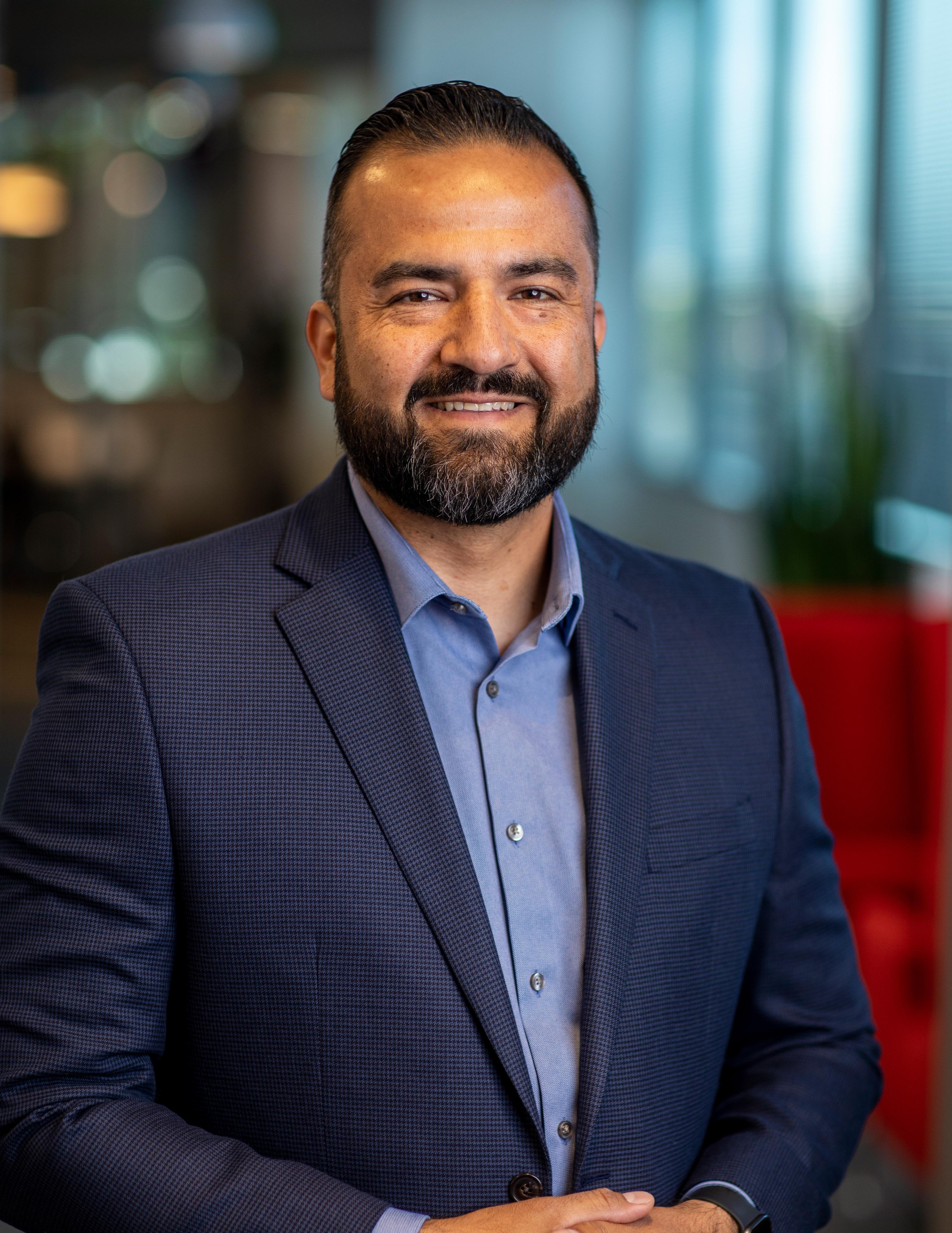

 BY BILLY YOST
BY BILLY YOST
this is one of the last people with whom you’d start a casual bar fight.
“In many ways, I’ve always felt like a bit of a walking contradiction,” Galvez says early on. The young man who made some bad choices while growing up in a particularly dicey gang neighborhood in San Jose, California, would ultimately build out a security career—and he’d somehow do it in reverse.
Fifteen years into his security career after executive-level experiences with some of the biggest names in tech, Galvez became a sworn reserve police officer in Soledad, California. He was primarily committed to working with younger versions of himself that he could hopefully encourage (or scare if necessary) onto the right path, and maybe even into the security and cybersecurity fields that need all the talent they can get.
While Galvez always wanted to be a police officer, he dealt with the additional pressure of being surrounded with security experts and feeling like the odd man out.
“I’d walk into rooms and be the only Latino in a sea of middle-aged professionals who had retired from law enforcement or other similar careers,” Galvez remembers.
“I just didn’t fit in, and I think that imposter syndrome made me overcompensate

Galvez weaponized those feelings of unjustified inadequacy in staggering ways to, as he puts it, “earn those gray hairs that I now want to get rid of.”
Even now, the VP and father of three has a full slate of college credits that he’s pursuing in the evening. He’s already amassed a boatload of accreditations in security and risk management, executive development, cybersecurity, and a few others, but the lifelong learner and avid reader has made his natural curiosity an asset.
Now, Galvez wants to help more Latinos feel more comfortable in a job sector that desperately needs their intuition, their work ethic, and their talent.
“I don’t want other people to have to feel like I did,” the VP says, frankly. “I want them to walk into a room and see other folks that look like them. In any underrepresented demographic, unless you see others in roles that you’re striving for, it’s going to seem impossible.”
Galvez is currently working with internal partners at Oportun now to create more mechanisms, metrics, and organizations to reach out to underutilized talent, particularly in Latin America. For the VP, the Bureau of Labor Statistics and other indicators highlighting the lack of Latinos in security and cybersecurity leadership positions is a call to action.
“Carlos Galvez’s journey and insatiable curiosity are unique, but his journey [still] has many similarities to that of other Latinos in the United States. For many of us, the career path we forge is the first of its kind—not only in our families but also in our communities. The work Galvez is doing to not only excel at his job but share his expertise with others is one of the most important things we can do for our community. Opening up doors for people starting up and showing them that we can sit and participate in powerful, decision-making rooms develops intergenerational strength and opportunity.”
—Keith Hernandez, Launch AngleSoon he will launch the Association of Latino Security Professional, a nonprofit to help increase representation in security leadership roles.
Galvez’s success is also a testament to the power of reframing one’s narrative.
“I used to look at having started from the bottom as a bad thing,” he explains. “I was that security guard in the polyester uniform who had some things he had to overcome in his early life to get on the right path. But now I’m able to see it as more of an asset, and I think so many people can relate to that journey.”
That early journey included his family relying on public assistance. Galvez’s parents, immigrants from Mexico, worked seasonal jobs and hustled to put food on the table doing whatever they could to earn money.
That upbringing is what brought Galvez to Oportun, where the mission seems to matter more than any other employer he’s worked for in the past.
“My former role was at a fantastic organization, but I couldn’t shake the feeling that we were just focused on the instant gratification aspect of our culture,” Galvez says. “In contrast, I can’t imagine the positive impact Oportun would have had on our family growing up, had they been around. I think I’ve found where I want to stay for the rest of my corporate career.”
Galvez’s visibility at Oportun is essential for those hoping to build out their own
careers, but it’s his people-first leadership that earns him his success. He says his approach may seem confrontational initially, but he’d like to explain.
“The way I try to live that people-first mindset comes down to accountability,” Galvez says. “And when your manager tells you that they’re going to hold you accountable, it has such a negative connotation. But it’s imperative to understand that accountability is a two-way street. I’m not going to let you skate by, and I expect the same.
“I’ve learned that true accountability means you’re never going to be taken off guard by an assessment,” he continues. “It’s about
transparency and growing together from failures and mistakes.”
Growing as a leader and a person isn’t optional for Galvez. His interests run the gamut: from cybersecurity to politics, and even to the Mitch Rapp book series. Despite his accomplishments, Galvez is most intent on finishing his undergrad degree—if only to give his fifteen-year-old son one less arrow in his argumentative quiver.
“I always had to tell people I went to the School of Hard Knocks,” Galvez says. “I wished I had that opportunity after I left high school, but I’m doing it now to live the expectations I have for my children.”
“I don’t want other people to have to feel like I did. I want them to walk into a room and see other folks that look like them.”

GROWING UP IN INNER-CITY HOUSTON as a son of immigrant parents, Erik Cardenas had a firsthand look at the effects that limited healthcare access has on a community. That informed his career path in the industry as he climbed the corporate ladder.
Then, four years ago, Cardenas joined Amazon on a project that is now known as Amazon Care: it was designed to improve the patient experience, and Cardenas made important contributions that made care for Amazon employees and their families easier and more convenient, but he felt that it was time for the Latino community to have its own solution. He decided to strike out on his own to cofound Zócalo Health.
“I realized there was a need and an opportunity to create something that is truly built for the Latino community,” he remembers. “There’s a lot of data that suggest that when a patient gets to engage and establish a partnership with a healthcare provider who looks likes them and shares the same cultures and values, the patient’s outcomes improve.”
The team at Zócalo Health is devoted to creating a relationship-based experience, rather than transactional, that is focused on prevention, primary care, behavioral health,
As cofounder and CEO of Zócalo Health, Erik Cardenas is dedicated to improving access to quality healthcare for the Latino community
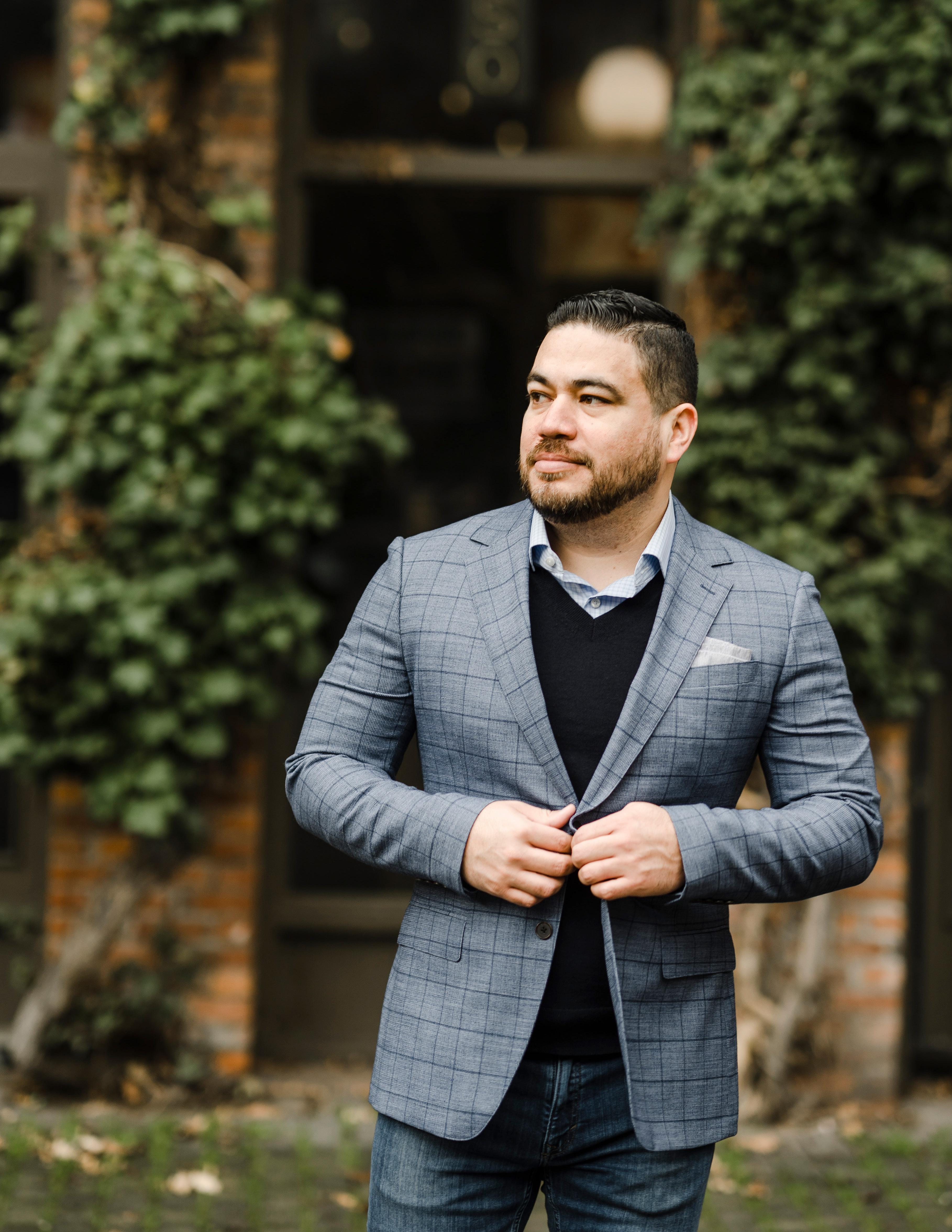
and traditional practices that work together to support a patient’s overall wellness.
“We promote wellness that goes beyond the absence of illness and fosters physical, mental, social, and spiritual strength within our families and communities. Our hope is that by providing this experience, we get to provide an exceptional service that not only improves our Latino community’s health but also brings much-needed focus to holistic care,” Cardenas says.
Zócalo Health will launch services virtually in 2022 with the goal of adding in-person care within Latino communities in the near future. Patients will have access to same-day healthcare appointments with Latino providers as well as navigation services to connect them with the right information and resources to achieve optimal health.
“Zócalo Health is a brand that will be providing healthcare services that are culturally competent and holistic,” says the CEO. As he explains, this means more than just finding doctors to address urgent care needs. It also means encouraging clients to form relationships with doctors.
“I think a lot of people in our community don’t understand the importance of establishing care with a primary care physician,” says Cardenas. “Instead of just connecting you with a doctor, we connect you with a promotor de salud, a community health worker. That’s someone who has a lot of shared experiences with our patients and can help navigate them through the often-confusing healthcare system, provide education, or connect them to other relevant resources to promote their well-being.”
This is how doctors and patients build trust, a trust that a lot of people in the Latino community aren’t used to. It also helps address social as well as healthcare needs.
“The fact that some people in the Latino community have to make trade-offs between paying the mortgage or paying for a prescription is something that can be very difficult,”
“Unfortunately, for so many Latinos (especially first-generation immigrants), healthcare is seen as a burden and not a right. We, especially Latino men, are taught at an early age to be stoic and hide our pain. When I was in Puerto Rico visiting family after Hurricane Maria, I met so many people who risked their lives because they didn’t want to get treated for hypertension or because they wanted to let their medication go without refilling.
“Erik Cardenas’s work is not only helping to provide access to community health workers in much-needed areas but is also opening up an important dialogue in our community about the foundational human services we all deserve.”
THOUGHTS FROM THE GUEST EDITOR—Keith Hernandez, Launch Angle
“The fact that some people in the Latino community have to make trade-offs between paying the mortgage or paying for a prescription is something that can be very difficult. We’re going to connect people with resources in the community that can help make those decisions less difficult.”
he adds. “We’re going to connect people with resources in the community that can help make those decisions less difficult.”
Cardenas also notes the limited access to convenient primary care in Latino communities; the average wait time just to get an appointment ranges from one to two weeks.
“When you look at predominately Latino zip codes, you see a stark difference in the ratio of primary care providers to the

number of residents,” he explains. “We see a ratio of one primary care physician for about every five thousand to six thousand residents. That means access is limited, at least within their community, and what they resort to is lower-value options like emergency rooms. Or they can forgo care altogether, and something that was preventable becomes a chronic condition, and then it becomes a real burden for them, their family, and the healthcare
system. So, our goal is to educate, build trust, and give people a place where they feel like part of a community.”
Educating Latino people is another one of Zócalo Health’s key goals. Cardenas adds that when many people begin new jobs that offer insurance plans, they often choose the option with the lowest premiums without realizing those plans come with deductibles upwards of $5,000 to $7,000.
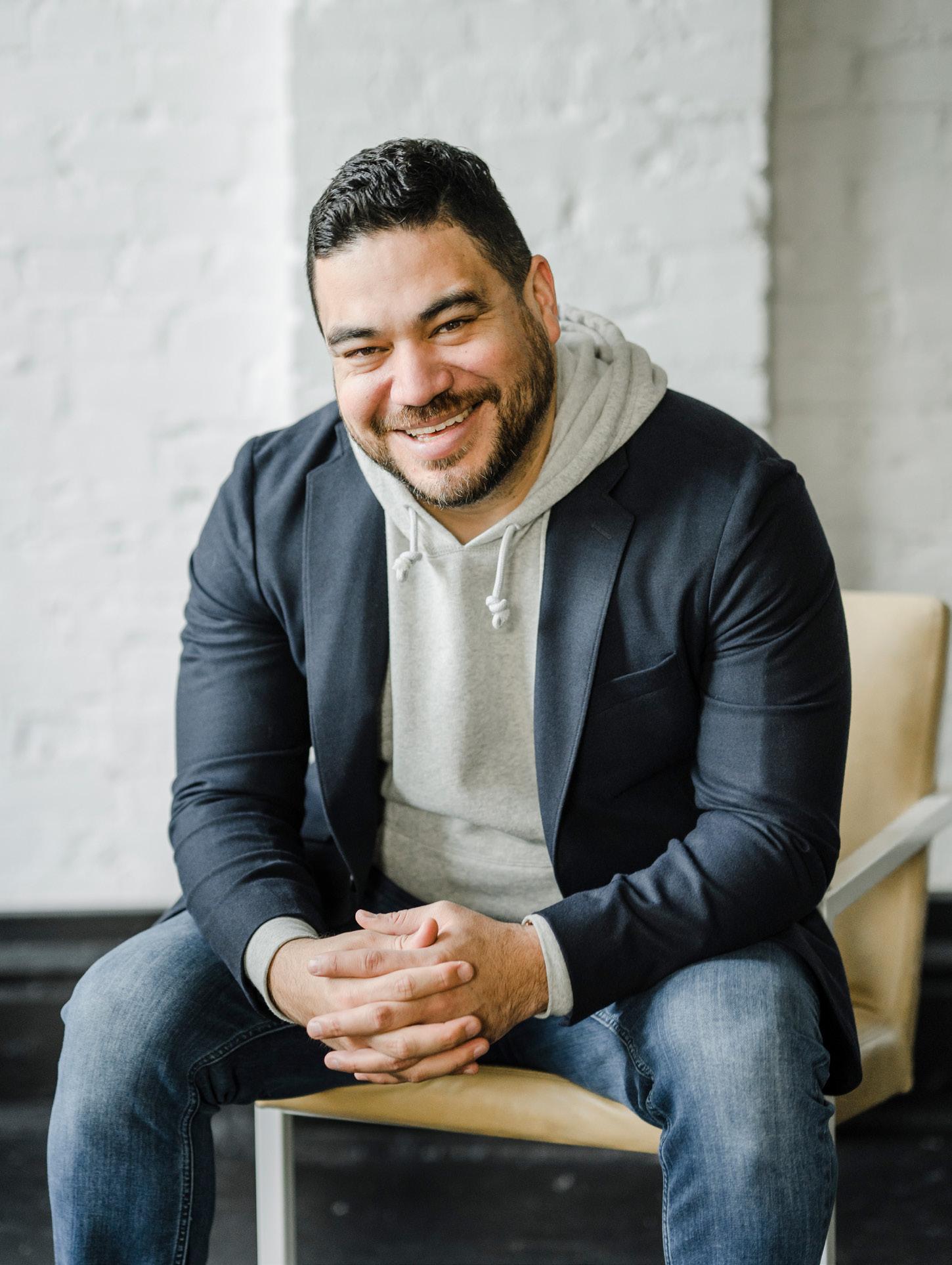
“They were basically signing up for catastrophic insurance,” he points out. “Not only were they paying several hundreds of dollars a month, but that $5,000 deductible meant they were paying for the first $5,000 of healthcare services. They get sick, they go to the doctor, and they get a bill for $250 and can’t negotiate. Then they think insurance is a scam. That’s because no one is taking the initiative to educate the community about these plans.”
While Zócalo Health is a new endeavor, it’s the culmination of Cardena’s life’s work, as he remembers long waits at community healthcare clinics as a child and interpreting for the doctor and his mother. There was also guilt over the cost of prescriptions and the fact that his mother had to take an unpaid day off to take him to a doctor.
Cardenas actually wanted to be a doctor but he wasn’t ready for that step in college. He started his career in healthcare and graduated from the University of Incarnate Word, but his story was very different from that of most healthcare entrepreneurs and his Amazon colleagues who had graduated from schools like Stanford and Harvard.
“I didn’t finish undergrad until I was an adult, but I didn’t need it to build a successful career in healthcare—I climbed the corporate ladder, demonstrating my ability to create value,” he says. “This is the first time where I get to work on something that is for me. I actually built something for that kid who had to wait in a community clinic for his parents who couldn’t navigate the system alone.”
Amanda Herald and Eli Velazquez explain how the blossoming partnership between the NFL and NBCUniversal Telemundo Enterprises is driving change across the sports world
BY BILLY YOST
HISPANICS ACROSS THE GLOBE ARE known for their passion for fútbol (soccer), but the community’s enthusiasm for athletics extends far beyond just that one sport. The National Football League (NFL) has made an effort to bring fútbol americano to a wider audience, growing its Latino fan base substantially over the past decade.
The biggest event for the football world is, of course, the Super Bowl, which has been aired on Spanish-language cable networks in previous years. But such networks can only reach so many members of the global audience, which is why, for the 2022 Super Bowl, the NFL decided to make a change: it partnered with Telemundo to air the game on a Spanish-language broadcast network for the first time in history.
The Telemundo broadcast—which featured a dedicated Spanish-language
announcing team and multiple crews that conducted culturally relevant interviews, along with an array of other Latino-relevant content—became the highest-rated Spanishlanguage non-soccer sports event in over a decade. Telemundo’s broadcast eclipsed the viewership of previous Spanish-language Super Bowl executions. It was the mostwatched NFL game in Spanish-language history, registering a record-setting average of 1.9 million total viewers.
Super Bowl LVI also registered big wins online. It delivered the most-streamed NFL game on Telemundo and was the number-two social telecast across all television, second only to NBC’s English-language telecast of the Super Bowl.
It’s an incredible achievement, and a milestone in the partnership between the NFL and Telemundo. The two companies have


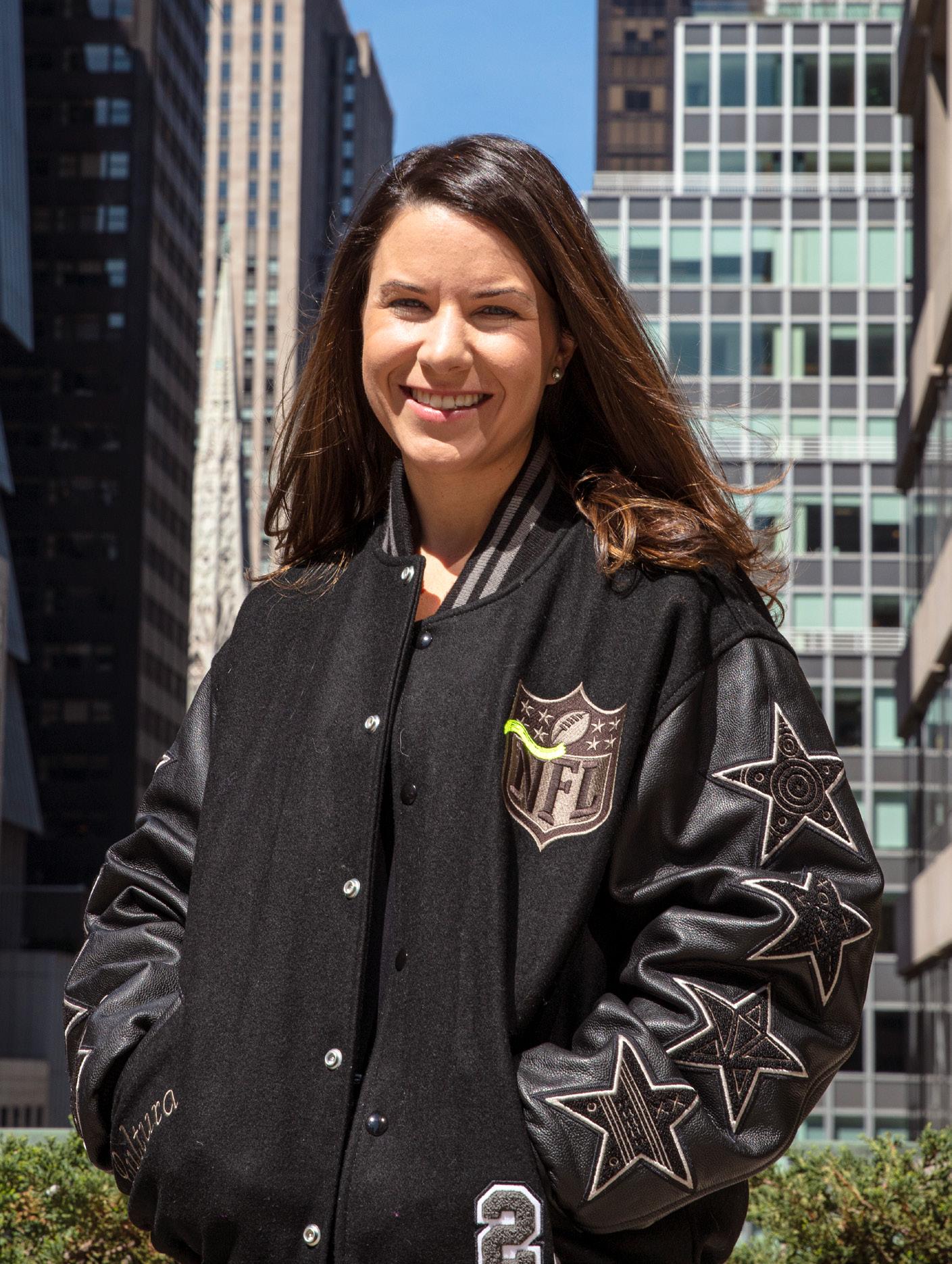
“I knew in my first week at the NFL that I wanted to make the Super Bowl and other games as accessible to Spanish speakers as possible.”
—Amanda Herald
Amanda Herald VP of Marketing Strategy, Insights & Planning NFL
already decided to continue partnering on football-related content events—Telemundo will serve as the home for Spanish-language broadcasts of Sunday Night Football and NBC playoff games for the next decade—and have a host of other plans in the works.
Amanda Herald—vice president of marketing strategy, insights, and planning at the NFL—and Eli Velazquez—executive vice president of sports content at NBCUniversal Telemundo Enterprises—are two of the principal architects of this successful partnership. While their journeys differ, both executives possess a deep passion for finding new ways to serve a Spanish-speaking audience—and as well as a deep commitment to their respective sports fandoms.
Growing up in Miami, Herald followed all things related to the Miami Hurricanes, the Miami Dolphins, and the Miami Heat. She attended any sports event she could get her parents to bring her to. Her grandmother, however, was more concerned about her granddaughter’s Spanish-language skills. A former public school Spanish teacher, Herald’s grandmother worked hard to perfect her granddaughter’s pronunciation and always chided Herald for her inability to “roll her Rs,” less commonly known as an apical-alveolar trill.
Herald went straight to the NFL when she graduated from college and has stayed there for the last thirteen years of her career, earning numerous promotions along the way. “I knew in my first week at the NFL that I wanted to make the Super Bowl and other games as accessible to Spanish-speakers as possible,” Herald says. “I always think about my grandmother, who didn’t have access to much Spanish-language content growing up.”
Velazquez, on the other hand, was born and raised in the Bronx. But his NYPD police officer father soon tired of the winters in the Northeast, and when Velazquez was fourteen,
Eli Velazquez EVP of Sports Content NBCUniversal Telemundo Enterprises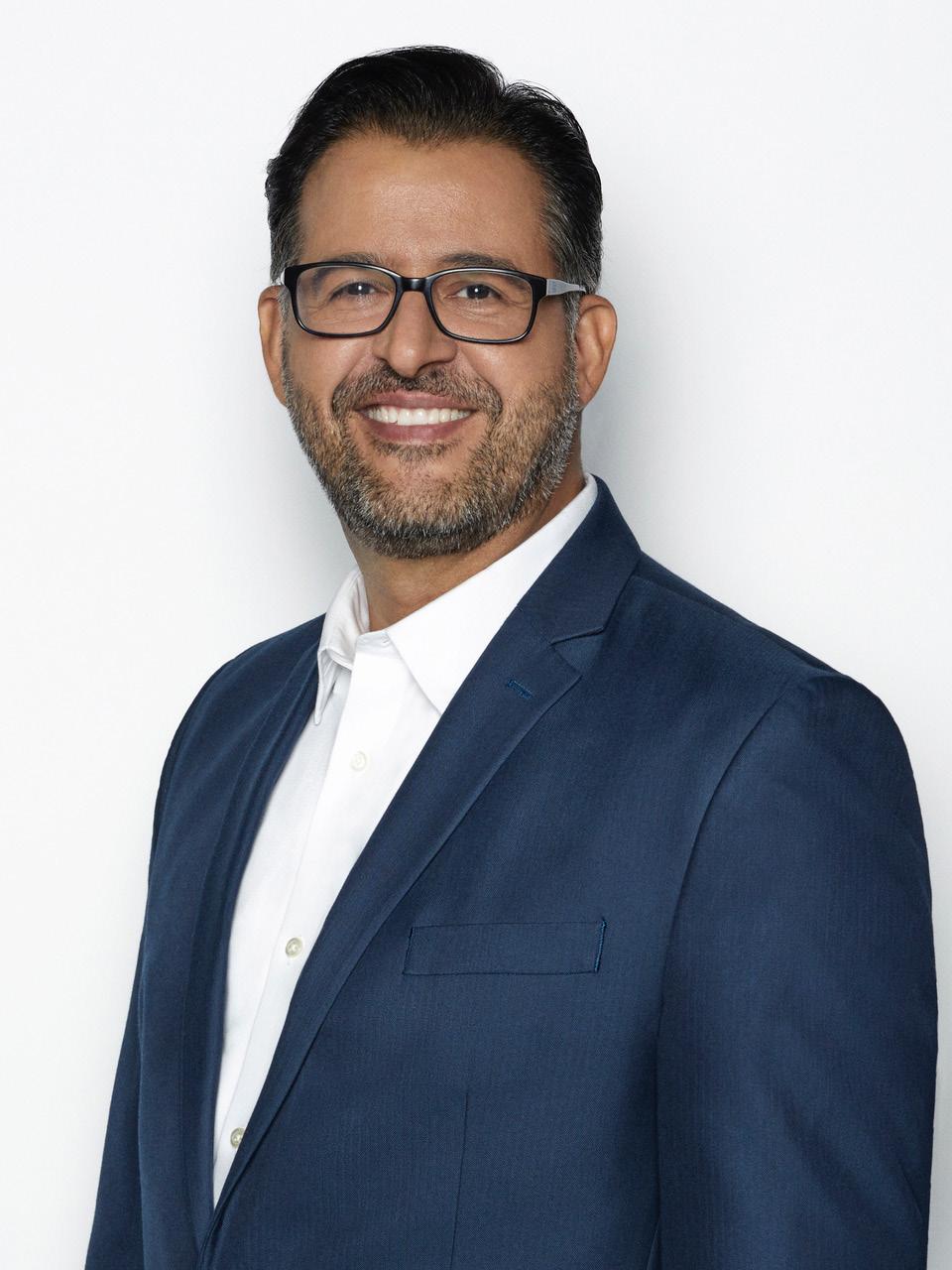
his father moved the family back to his and his wife’s home country of Puerto Rico.
Though he felt like an outsider, Velazquez was determined to fit in. It was that same attitude and gumption that inspired the young sports fan’s professional dreams. Velazquez was intent on becoming the “Hispanic Chris
“There’s so much more we can do. I know that I’m looking forward to what will be a long and fruitful relationship.” —Eli Velazquez
Berman”—he not only appreciated Berman’s signature style and energy, but aspired to have an impact as a Latino in the sports media industry.
Instead, Velazquez found success on the other side of the camera. He spent seven years as a sports producer and editor at Univision before joining the team at Telemundo, where he’s worked for the last twenty-three years. “Like Amanda, I always wanted to make sure that my efforts were facilitating a great experience for Spanish-speakers like all of the people on that Caribbean island where I spent so much time,” he says. “This partnership is the epitome of why I set out to do what I do and why I want to have an impact on this community.”
While Spanish-language content is important on a personal level to executives like Velazquez and Herald, the business case for that content cannot be ignored. As Velazquez points out, the median age of Hispanics in the US is twenty-nine years old, making Hispanics the youngest multicultural group in the country. “This is a demographic that spends 113 hours a week on their mobile devices,” he explains. “They’re already early technology adopters. If you don’t speak to them in both Spanish and English, you’re not addressing the future of your business.”
“That’s exactly why we’re growing our international programs as well,” Herald chimes in. “Along with our broadcasts, we’re partnering with our players and our thirtytwo clubs to help promote growth across the world. From Mexico to Spain, we have deeply passionate pockets of growth that are growing exponentially.”
Many NFL teams are investing in developing international fan bases: in Mexico alone, nine NFL clubs are launching fan development and commercial efforts.
As both executives emphasize, this cross-border approach is also an opportunity
to unite more people who have shared experiences in the language of their choice. And by the language of their choice, they don’t just mean content with closed captions or voice-overs. “It’s about full, custom production that’s focused on what will be fun and informative for the audience,” Herald says. In fact, that’s exactly what Telemundo and NBC Sports did with the Super Bowl: they established broadcast locations all over LA to provide Spanish-language pregame and postgame content in addition to the game itself.
“It was great to see feedback from people who speak both languages who were torn about which broadcast they wanted to watch,” Velazquez says. “We always think of our ‘200 percenters:’ the portion of our audience that considers themselves 100 percent American and 100 percent Hispanic. They exist in both worlds, and it’s the kind of reaction you really love to hear.”
While the partnership between NFL and Telemundo has already led to great success, Herald says it’s a foundation for other much-needed changes in the sports world. According to her, 17 percent of NFL fans identify as Latino—but Latinos only account for 10 percent of viewership.
“Through this partnership, we have the opportunity to deepen and expand our relationship going forward, and it’s truly for the benefit of growing fans everywhere,” Herald says.
Velazquez agrees, and lauds Telemundo Deportes President Ray Warren for continuing to find new ways to serve the company’s audience.
“Ray was instrumental in ensuring this partnership was connected at all levels of the organization,” Velazquez says. “As Amanda continues working with their thirty-two clubs, and we work with all the stations and network programming divisions, there’s so much more we can do. I know that I’m looking forward to what will be a long and fruitful relationship.”

“What I love about this collaboration is the ‘Yes and’ inclusive mentality Eli Velazquez and Amanda Herald took to realize the outcome. Many companies try to segment people out, and through what feel like noble efforts, end up excluding people.
“Velazquez’s insight into the 200 percent (those who are 100 percent Latino and 100 percent American) is such a game-changing way to look at our world. It celebrates both cultures and provides an opportunity to embrace nuance to grow a global audience. I’ve seen that firsthand in the jerseys for the Mexico City Rams, Chiefs, and other NFL teams and can say their hard work is paying off.”
—Keith Hernandez, Launch Angle
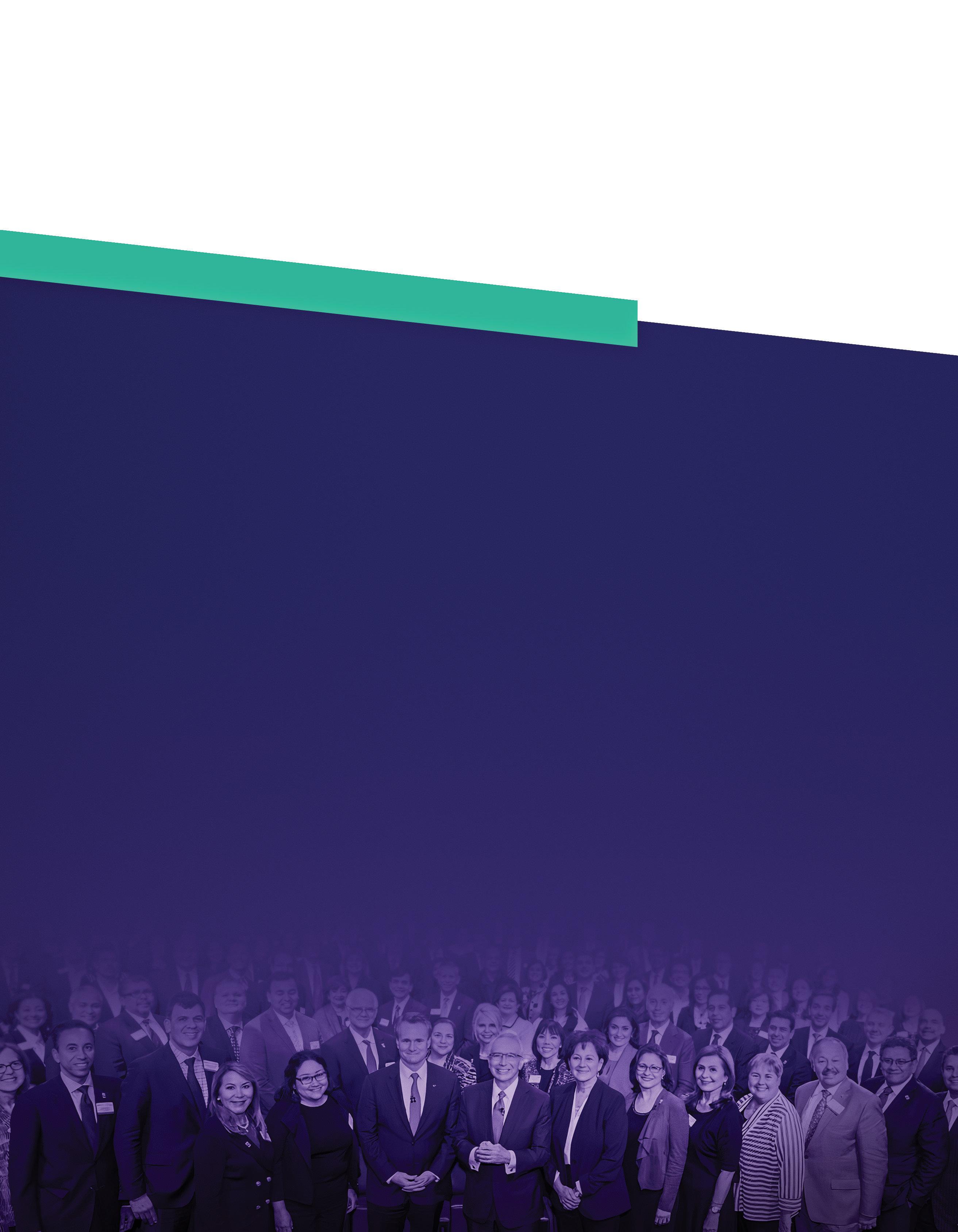
The philosophies of innovative leaders have the power to inspire and spark change. Read on for thought-provoking insights from successful executives.
166. Jorge Grau, SBA Communications 172. Erik Garza, ABS Group 176. Raphael Valencia, Fujitsu 178. Rosaleen Pizarro, BARK 183. Raul Taveras, General Motors 186. Monica P. Navarro, The Freudenberg Group 190. Castor Armesto, Spire 196. Indhira Arrington, Ares Management Corporation 199. Yolanda Garcia, Handcraft 202. Jose Castro, Paramount 212. Ruben Soto, Partners Pharmacy 214. Norman Barbosa, MicrosoftSBA is one of the world’s biggest players in wireless infrastructure. CIO Jorge Grau’s tech plan has helped the tower leasing company reach new heights.
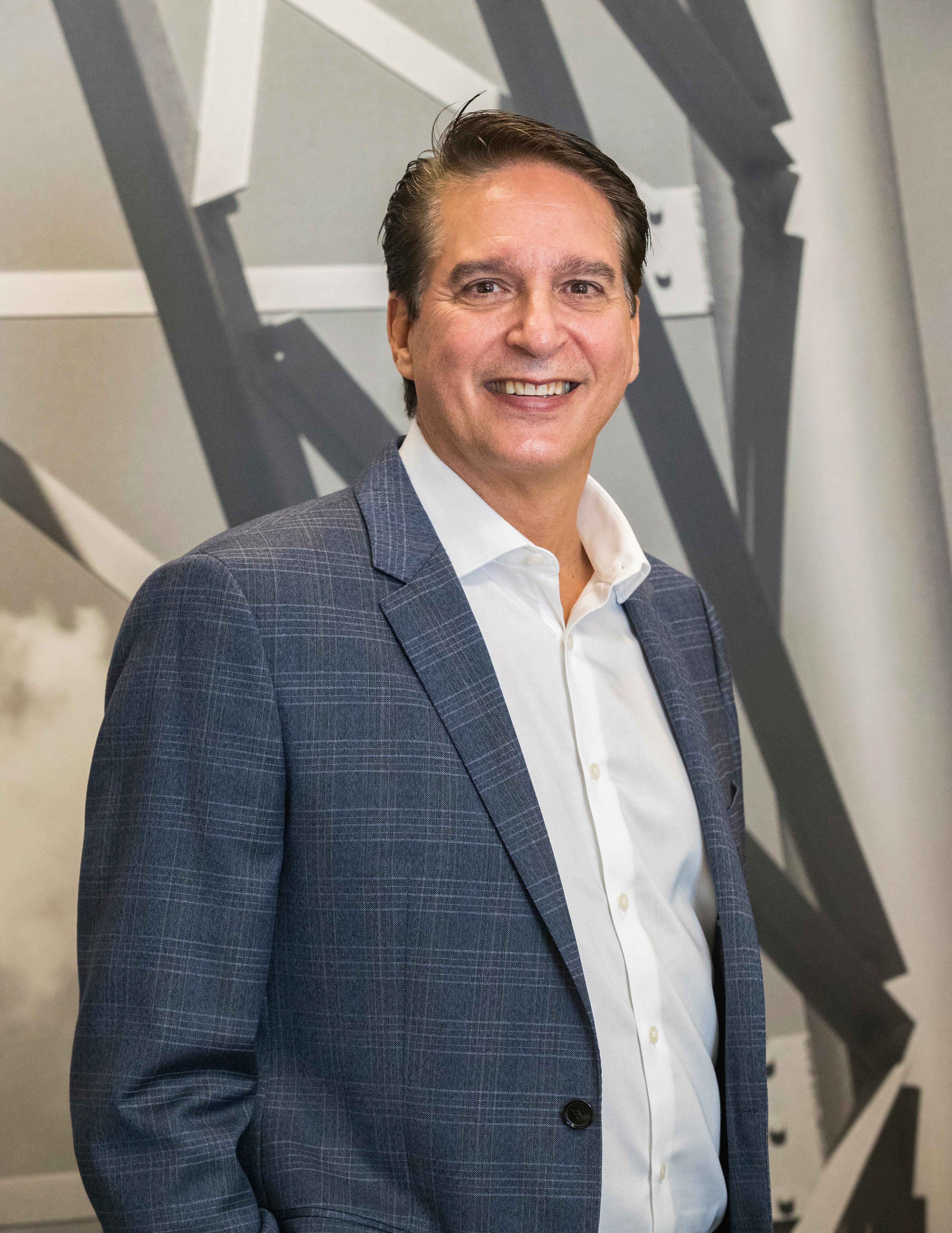
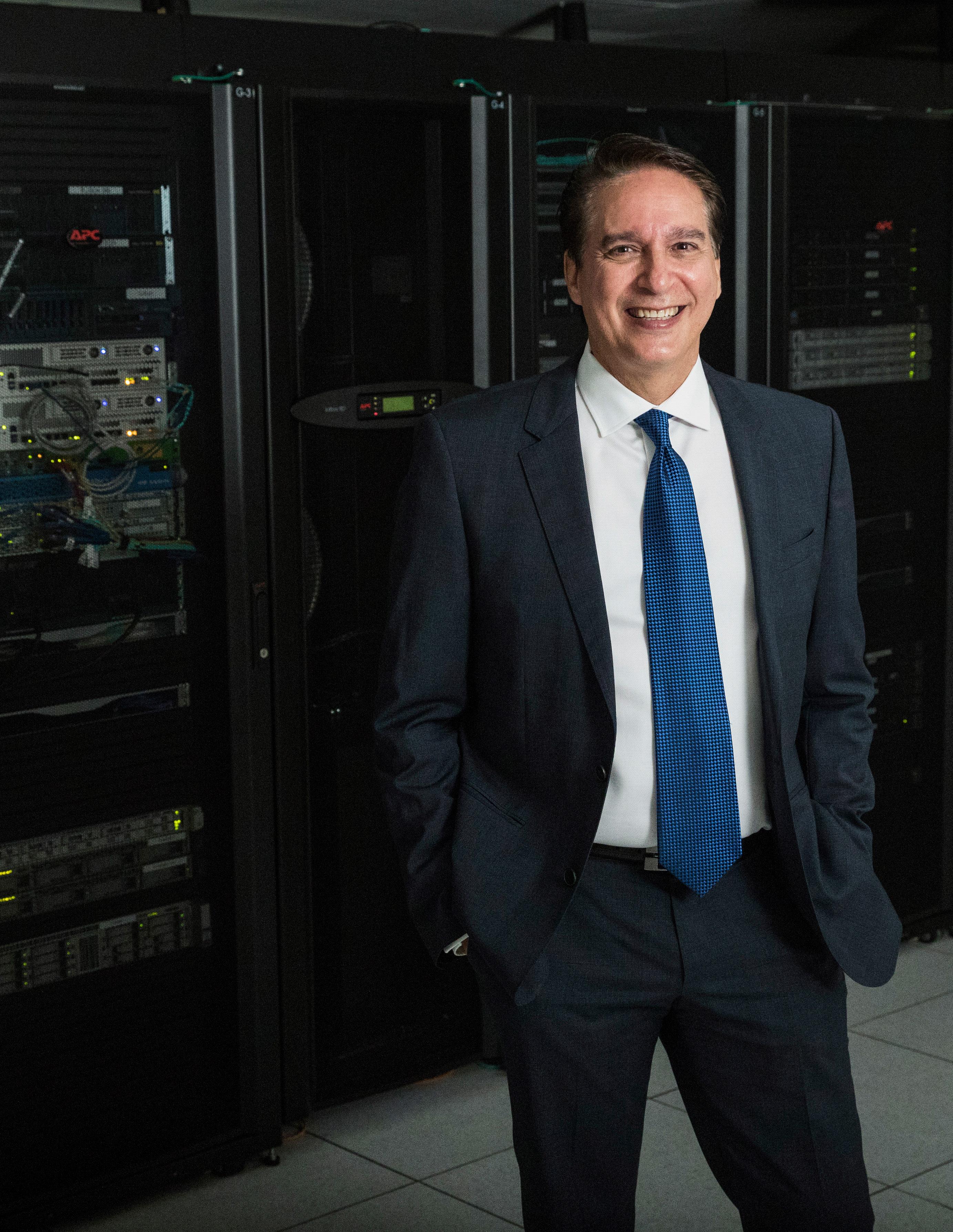
THE WORLD
MORE

and every day. An increasing number of people use an increasing number of devices and apps to email, talk, text, shop, and access content. As this frenzied consumption increases, telecom service providers are rushing to expand their networks and meet their mobile customers’ shifting demands. The nation’s biggest companies accomplish it by building cell towers and placing antennas in the sky.
SBA Communications started in 1989 to help companies boost their signals. Now, the publicly traded company operates in sixteen markets worldwide and has built itself into one of the most well-known wireless communications infrastructure companies in the world. SBA operates as a real estate investment trust (REIT) and leases antenna space on multi-tenant towers and other structures so that wireless providers can beam their signals to customers.
It’s big business. As major companies pursue 5G connectivity, industry insiders say global subscriber numbers will approach six billion by the end of next year. Those numbers represent a huge opportunity for SBA, and in order to capitalize on it, the company has to stay agile and continue its legacy of innovation. Fortunately, innovation is at the core of everything SBA does. Senior Vice President and Chief Information Officer Jorge Grau has been charged with strengthening that commitment to innovation and driving the tech strategies that power the business.
Grau’s journey to the top of his industry is nothing short of remarkable. His parents were already working on an exit plan to flee Fidel Castro’s Cuba when he was born in 1962. Grau, however, threw that plan into disarray when he arrived two weeks early. The family scrambled for passports and obtained documents for everyone but Grau’s father, a government accountant who had no choice but to stay behind while his family went ahead to Miami.
They were reunited a month later, but money was scarce. Grau’s father had just enough cash for bus tickets to Atlanta and a motel room for one night. He got a job washing dishes near the station, and the family slowly built a new life in the United States.
When Grau was fifteen, the family returned to Florida. As a young man, Grau considered studying psychology—until he learned that some of his relatives had become trusted business partners for IBM, developing apps and digital tools for car rental and real estate management companies. That set Grau on a new path. “I saw early on that technology would bring new opportunities. And to someone who experienced family struggle early in life, it represented a challenging and stable career,” he says.
In 1985, Grau became the first student at Florida International University to receive a scholarship in Management Information Systems. There, he completed a BBA, majoring in MIS and Computer Science. He also went on to complete his MBA with a specialization in Computer Information Systems at the University of Miami.
Prior to joining SBA, Grau perfected his coding skills in the family business and worked for bigger employers like Baxter Systems, Fresh Del Monte, and Miami Children’s Hospital. At Miami Children’s, he implemented cohesive tech solutions across the entire enterprise, which was once fragmented. Later on, Grau completed a thirteen-year stint at Bentley’s Luggage & Gifts, where he implemented merchandising management systems as well as point-of-sale and warehouse and logistics management solutions. After his stretch at the nation’s largest luggage and gifts retailer, he held a similar role at Vision Care Holdings.
In 2003, Grau joined SBA to help align their tech plan and overall strategic vision. The company needed to reemerge after the dot-com bubble burst, and Grau knew he was up for the challenge. “IT can only make a real impact when leadership embraces it as a way to add value, and I had the support I needed to make a difference,” Grau says. At one time, SBA’s IT program did little more than keep the lights on—but that was about to change.
SBA entered a new era. The company divested itself of eight hundred sites and shifted its business model. Instead of primarily building towers for mobile carriers, it would expand upon the building of its own structures and lease space on these structures. The plan led to an acquisition spree that essentially never stopped. Grau says SBA has completed more than 1,100 deals during his tenure. In that time, he’s worked as SVP and CIO to absorb all acquired data, programs, and financial structures into their systems without maintaining legacy applications.
In fact, all parts of the SBA tech infrastructure came online under Grau’s tenure as he worked to match IT with the company’s new vision. He’s led a talented team to build and develop three different variants of a property management database that Grau calls the “lifeblood of the entire organization.” The system tracks every one of the thirty-six thousand cell towers SBA owns in sixteen different markets. With it, project managers and other employees can access precise information regarding leases, fees, maintenance schedules, and contracts, and all data is integrated into various company-wide systems.
Additionally, Grau implemented a contract life-cycle management (CLM) system complete with
portals that clients use to submit applications. The CLM draws from hundreds of possible templates and routes each contract through SBA’s approval process while pulling all deal information allowing for the most up-to-date information for decision-making. These contracts represent about 98 percent of SBA’s revenue. Grau’s system reduces data entry errors and streamlines integrations to various systems, thereby improving accuracy, timeliness, and visibility—in some instances, it reduced turnaround time to twenty-eight days (from as much as seventy days previously).
As 5G networks expand, Grau is pushing for more innovation. He’s looking to harness the power of robotic process automation, business intelligence, machine learning, and drone technology. Last year, SBA started flying drones to monitor thousands of
towers in rural areas around the world, capturing video and imagery that can be processed through AI to determine equipment, maintenance requirements, and colocation requirements—potentially reducing expensive and time-consuming in-person inspections. SBA is also opening new lines of business; the company is providing innovative wireless solutions to serve venues, adding energy solutions at tower sites, and expanding its footprint in the Data Center space.
A decision to empower IT as a true strategic partner has unlocked significant growth at SBA.
When Grau arrived, the company had a little over five thousand sites and was generating $400 million in the US market. Now, SBA has over thirty-six thousand sites in sixteen markets and is projected to generate over $2.4 billion in revenue in 2022.
“I saw early on that technology would bring new opportunities. And to someone who experienced family struggle early in life, it represented a challenging and stable career.”
WHILE MANY LATINOS OF HIS GENERATION
were the first in their families to attend college, Erik Garza was not. In fact, his parents, who were both the first in their respective families to attend four-year universities, have a total of four university degrees between them. Garza’s mother has bachelor’s and master’s degrees in education; his father started his career as a pharmacist and later went to medical school. They placed a premium on education while Garza was growing up in South Texas and their journeys inspired him to pursue an advanced degree: after graduating from Texas A&M University, he earned a JD from Seton Hall University School of Law. Today, Garza is vice president and general counsel at ABS Group of Companies, Inc. (ABS Group).
ABS Group provides the technical services that marine and offshore oil, gas, chemical, industrial, and government clients rely on to assess and verify the quality, safety, and effi-
ciency of their most critical assets and operations. It is a subsidiary of the American Bureau of Shipping (ABS), one of the world’s oldest and largest classification societies. ABS is a not-for-profit technical society that produces rules, standards, and specifications for ships, vessels, and other marine and offshore assets.
Leading the legal department of ABS Group, the for-profit consulting subsidiary of ABS, is an important job that requires specialty expertise, which Garza has developed over more than two decades of practicing law. Prior to making a move to go in-house at ABS, he spent twelve years in private practice at two Houston firms—the first of which remains one of the oldest firms in Texas and one of the most prominent maritime law firms on the Gulf coast.
That firm’s expertise grew after one of the biggest industrial disasters in US history: In 1947, two ships loaded with ammonium nitrate exploded, injuring 3,500 people
and killing 581. The firm’s named founders handled many of the resulting lawsuits for the shipowner. The many complex marine litigation cases handled by Garza throughout his years in private practice serve to underscore the unusual legal issues that arise in the niche admiralty and maritime area.
Garza became more interested in the subject matter, becoming a Proctor in Admiralty and key part of the small legal community devoted to admiralty laws governing marine matters. In addition to serving as a past president of the local Federal Bar Association chapter, Garza has served as skipper of the Houston Mariners Club, a director of the Southeastern Admiralty Law Institute and Houston International Seafarers Center, and is a standing member of the Houston Marine & Energy Insurance Conference Planning Committee.
Garza’s work over the years has covered a myriad of incidents and activities that
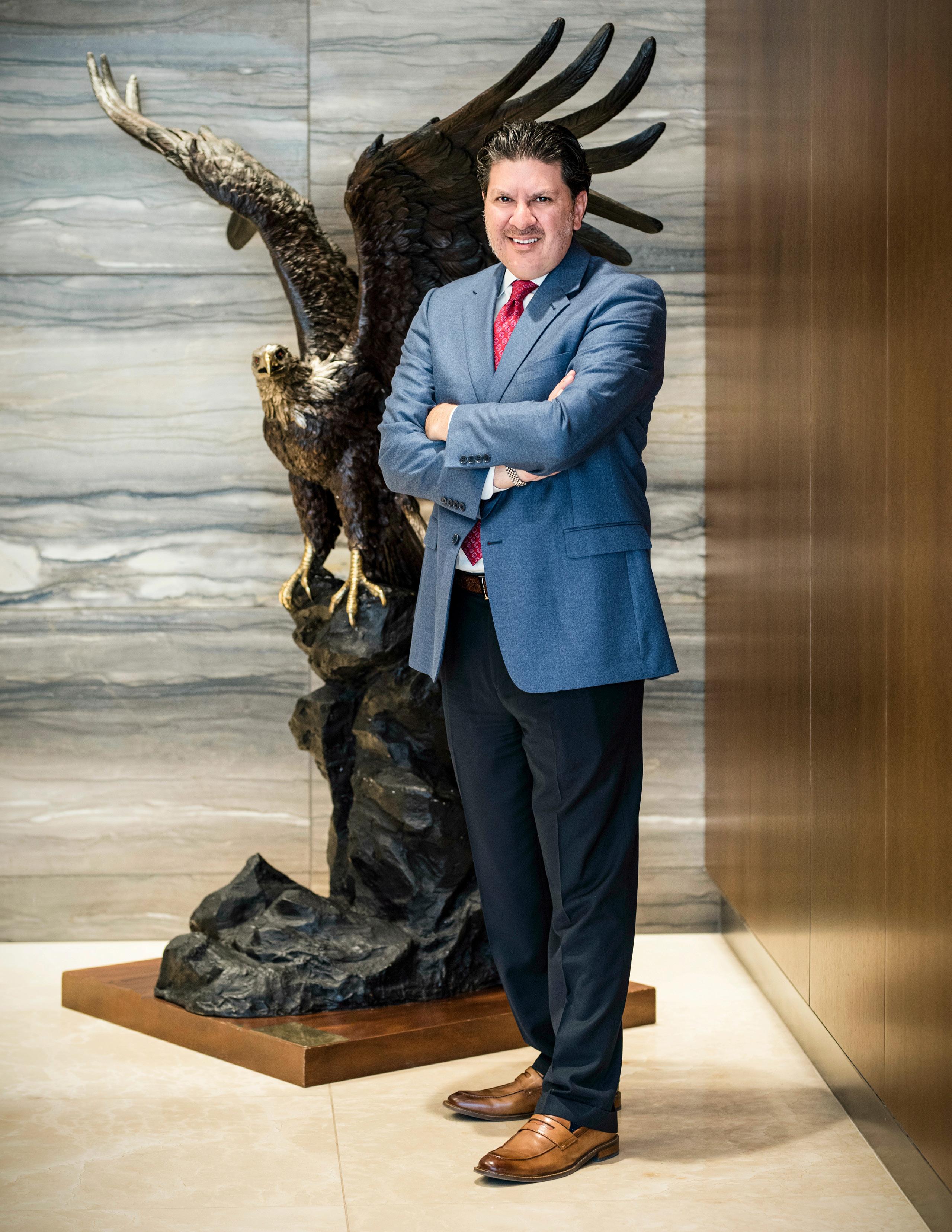
occur on the seas and oceans, including the handling of cases involving ship allisions and collisions, pollution, cargo, personal injury, ship finance, chartering, and even stowaways. “It’s fascinating work that requires one to delve deep in a unique area, and I enjoy it most because the lawyers practicing maritime law are an honorable and close-knit group,” Garza says.
While he enjoys being a member of the maritime bar, Garza is also a proud member of another important group—Hispanic lawyers. “Houston is one of the most diverse cities in America and seeing the success of other minorities has been an inspiration because it’s shown me what is achievable as I advance in my own career,” he says, adding that he’s grateful for the mentorship Judge David Medina has given him, beginning when Medina was a state district court judge and Garza was a summer associate. Medina later served as general counsel to then-governor Rick Perry and also sat on the Texas Supreme Court.
Throughout his private practice career, Garza developed other close personal and professional relationships with attorneys like Johnny Garza, who is now a partner at Adame Garza. “I have known Erik for twenty years, since he was a young associate at a prestigious
law firm. He is a true professional with excellent communication skills,” Johnny Garza says. “Erik quickly analyzed legal issues and maneuvered his cases with superb intellect. His work ethic and leadership allowed him to rise in the legal field and today, Erik has become a true leader in the industry. I am proud to know him and be his colleague.”
After building maritime experience at his first firm, Garza joined a boutique firm focused on complex energy and insurance litigation, where he gained key exposure to new industries and insurance markets in both New York and London. That exposure, combined with his advancing maritime practice, made him the perfect fit for ABS, and Garza joined as associate general counsel in 2014.
ABS hired Garza to support its Classification operations for the Americas, including assisting with company litigation. He later added oversight to other areas, including risk management, before taking on the enterprise-wide insurance function for both ABS and ABS Group. In 2021, Garza was promoted to VP and general counsel of ABS Group. He’s now leading a full-service and high-volume department that supports its risk management consulting operations around the globe and handles a wide variety of transactional matters, including client,
vendor, employee, and supplier agreements, as well as leases worldwide. Garza’s team also advises internal clients, oversees litigation matters, supports human resources, and engages with Group’s marketing and communications department.
After more than twenty years, Garza is still passionate about the work he does. “I continue to find maritime law supremely interesting,” he says. “ABS Group is the right place for me because I can see how my work makes an impact supporting a safer world, as safety, risk, and integrity management are at the core of the services we provide.”
ABS Group is a global provider of technical services that better enables its clients to operate safely, reliably, efficiently, and in compliance with applicable regulations and standards. The company also values safety internally and, as of this writing, has gone more than 2,300 days without a lost time incident. While COVID-19 and other events had a major impact on the marine and energy industries in 2021, shipbuilding is rebounding as cleaner fuels and sustainability push further into the mainstream and major energy projects are coming back online as the price of oil continues to increase, and Garza says his team is ready for big things in 2022 and beyond.
“It’s fascinating work that requires one to delve deep in a unique area, and I enjoy it most because the lawyers practicing maritime law are an honorable and close-knit group.”
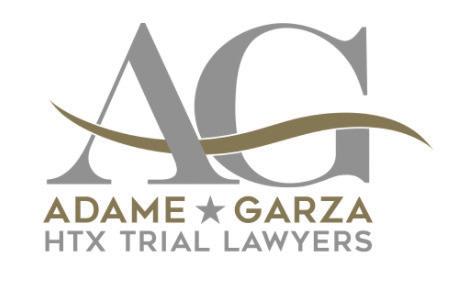

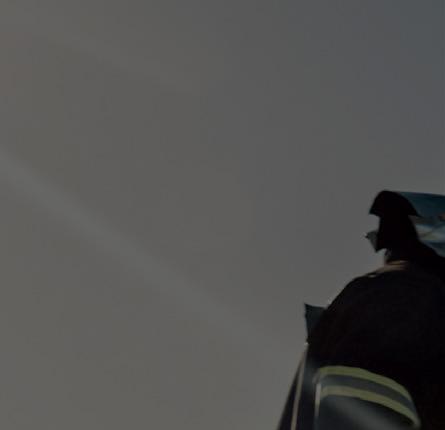



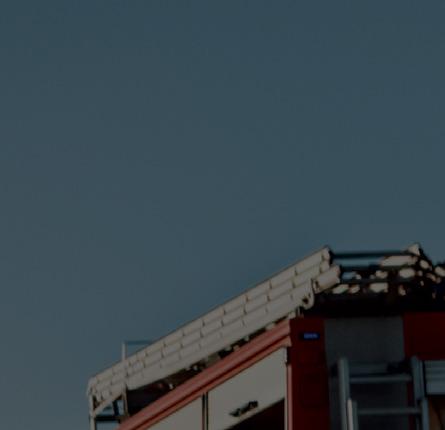



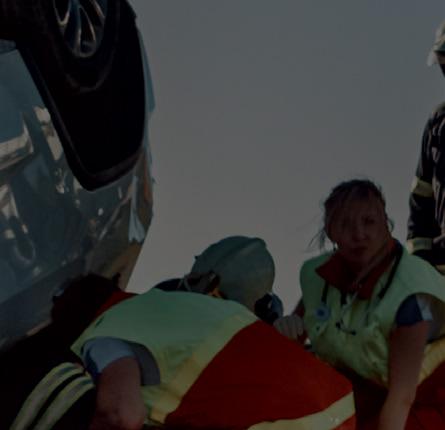
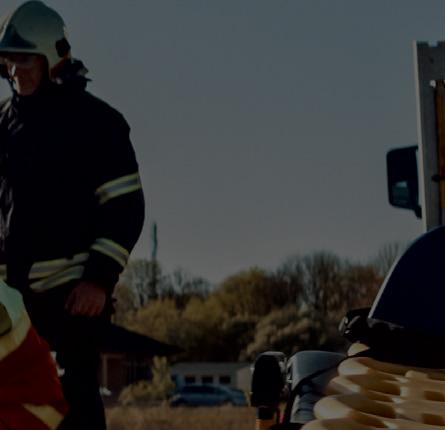
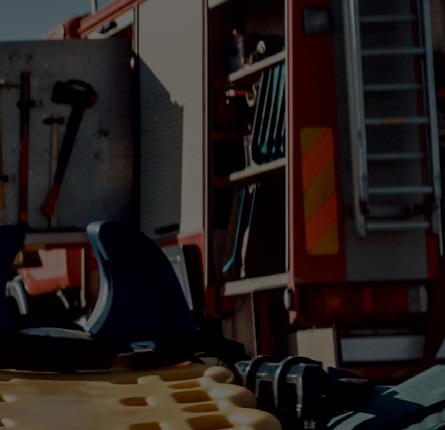







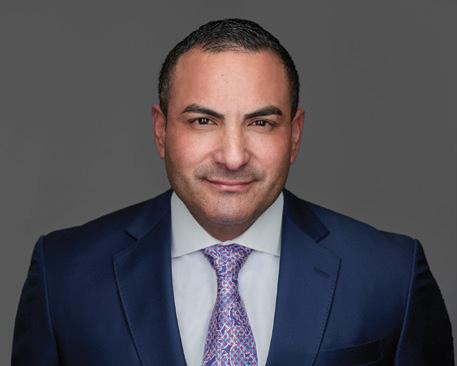









FUJITSU HAS CELEBRATED MANY milestones and achievements since it opened its doors in 1935. The company began by making equipment to support telephone networks, then mass-produced phones and helped restore Japan’s infrastructure after World War II.
Fujitsu continued to evolve in the following years. In 1954, the innovative company unveiled Japan’s first computer, the FACOM 100, and later grew into the region’s top computer manufacturer. Fujitsu quickly became known for word processors, servers, and personal computers.
Next, its scientists, inventors, and engineers rolled out semiconductors, memory chips, circuit boards, plasma displays, and other accessories while the company started moving across Asia and into Europe and the United States. Today, the company is focused on computing, networks, artificial intelligence, data, and digital technologies. It
As Fujitsu continues to innovate, Patent Counsel Raphael Valencia works to safeguard the company’s intellectual property
“A good patent portfolio is important because it protects the technology in everything we do.”
has 126,000 employees worldwide and ¥3.5 billion in annual revenue.
Fujitsu’s purpose is “to make the world more sustainable by building trust in society through innovation.” Doing so takes a huge commitment. In fact, the company spends ¥113.8 billion in research and development each year.
Protecting that investment is a top priority, and part of the job goes to Raphael Valencia.
The first thing people often notice about Valencia is his mellow disposition. He’s careful and precise and even a bit soft spoken. But don’t let the façade fool you—underneath the calm exterior lies a fierce defender of valuable intellectual property (IP).
As a patent counsel at Fujitsu, Valencia is responsible for a key Japanese business unit that includes laptops, scanners, and hard drives, and is also a critical member of a patent center that files about eight hundred patents per year in the US alone. There is a major strategic element to the job, as Valencia often decides whether to file patents or keep inventions under wraps as valuable trade secrets.
Valencia joined Fujitsu in 2010 as the company was bringing patent lawyers in-house to reduce costs associated with using highpriced outside firms. “A good patent portfolio is important because it protects the technology in everything we do, and having this team in-house gives us a competitive advantage,” he says.
Everyone in the patent center follows the Fujitsu Group’s overall policy of filing patent applications in step with global business strategy. That means Valencia and his team of three lawyers must work diligently to not only file patents but also review the portfolio and assert granted patents if and when third-party infringement occurs.
In addition to writing, filing, and asserting patents, Valencia is always looking to add value to the company. His team prepares patent applications and offers opinion work for other Fujitsu businesses, and he has also begun teaching his counterparts in Japan about US patent law as the company has developed global standards. Lastly, Valencia and his colleagues look to open new revenue streams by cross-licensing internal IP or even selling unused patents to other companies.
After more than a decade at Fujitsu, Valencia has developed a reputation for his top-quality work product. He has been in the field since his second year in college, and has spent time as a patent searcher, patent examiner, and patent clerk. While at Hunton, he also worked on MercExchange’s patent dispute against eBay, which eventually went to the Supreme Court.
That extensive experience helps Valencia thrive in his current role and has also enabled him to help Fujitsu respond to emerging trends and changing consumer behavior. Valencia and his team moved to a full work-from-home model in November 2021, and Fujitsu is positioning itself to help companies manage the borderless offices and smart working set-ups that come with that digital transformation. In doing so, the company is pivoting from physical products to an array of services and solutions that reduce costs and increase efficiency. It’s an uncertain time, but Valencia and his colleagues are standing by to protect Fujitsu as the iconic company steps into the future.
Raphael Valencia was born in New Jersey to Colombian immigrants and strongly encourages other Latinos interested in the legal profession to consider following in his footsteps. “All Latinos need to be well prepared because we are underrepresented as a whole,” he notes, “but patent law can lead to a great career.” In fact, Valencia says that his Spanish language skills have been a strong asset to his own career in patent law.
Maschoff Brennan is proud to partner with Raphael Valencia and his Intellectual Property team at the Fujitsu Patent Center. We are honored to support them in their efforts to use innovation to build a more sustainable, digital, and global society. Congratulations to Raphael on this well-earned recognition for his exemplary contribution to the legal industry.Accounting expert and Afro-Latina trailblazer Rosaleen Pizarro leads by example at BARK
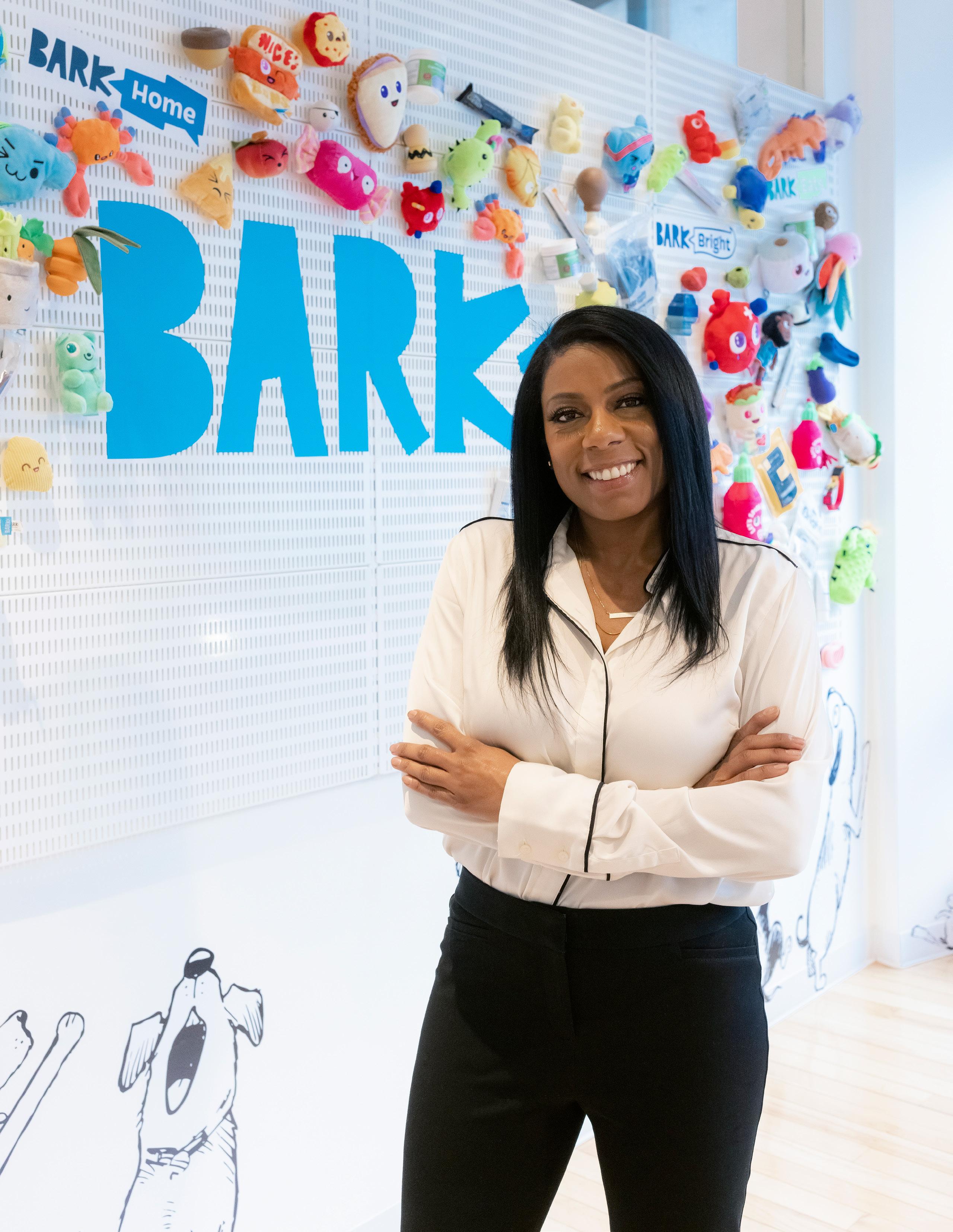
THE FIRST TIME SHE WENT TO THE BARK office, Rosaleen Pizarro couldn’t find the door. She was on her way to a pitch with her team, and they passed the nondescript entrance several times before identifying it. Once they made it inside, a surprise awaited them.
“No one’s around, and then all of a sudden, we see this little dog, no leash, coming out of a door,” Pizarro says. “And this dog comes over and says hi to us.”
That warm welcome was a sign of good things to come. A few months later, Pizarro joined the BARK team as vice president of accounting. Since then, she has applied her accounting expertise to guide the company through its initial public offering (IPO) in 2021 and its continued upward growth trajectory as a leading dog-oriented subscription service. From navigating complex operations to developing her team, Pizarro is proving that she has what it takes to succeed, all while making a case for greater Afro-Latina representation in corporate finance.

After getting her start at Big Four accounting firm PricewaterhouseCoopers, Pizarro transitioned into an internal audit role at USI Insurance Services, an insurance brokerage firm. Over the next several years, she moved up within the business and delved into operational accounting and general ledger matters under the mentorship of USI’s chief financial officers.
Pizarro later gained exposure to the corporate tax function as director of accounting at intermodal container lessor TAL International, then accepted an assistant controller role at Rakuten Marketing, a US subsidiary of Japanese ecommerce company Rakuten. “I wanted to be at a place where I could lead a team in a deeper way,” she explains. “My role at Rakuten offered exactly that. A team was in place, but I really got to mentor and grow them. I took on a lot more as a leader there because it wasn’t just about the everyday
work; it was about figuring out how to help the team.”
Pizarro’s next challenge was taking a company public. She left Rakuten for another assistant controller role in the technology sector, this time at Yext, which was gearing up for its IPO. Shortly thereafter, she turned her attention to project-based consulting at accounting advisory firm CFGI, where she remained until her client relationship with BARK yielded a job offer.
“Who can say no to dogs?” Pizarro says jokingly of her decision to come on board at BARK. “The founders understood what the accounting and finance teams needed to look like for them to achieve their goals, and they understood the importance of what was needed. It’s so great to be at an organization where you can get down with the mission, the vision, and the culture.”
When Pizarro joined the company in August 2019, BARK had a fairly minimal accounting team. She has taken pride in growing this team as the company itself has scaled. “I was excited about building a team—mentoring them, teaching them, and
BUILD



LONG-TERM SUCCESS WITH CFGI AN ESTABLISHED LEADER IN ACCOUNTING ADVISORY SERVICES

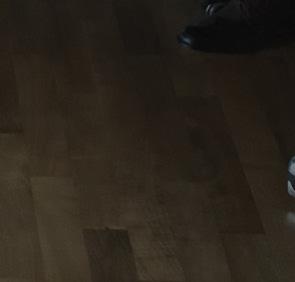



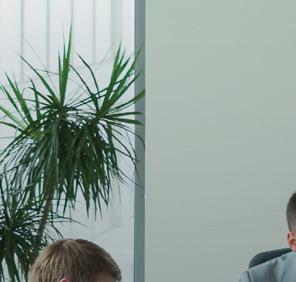
Our solutions-based approach brings technical accounting and operational finance expertise to our clients.


SERVICE OFFERINGS:
Accounting Advisory, Tax, Operational Finance, Capital Markets, Transaction Advisory, Risk Advisory, IT Risk & Cybersecurity Advisory, Valuation, Restructuring, Interim Management.
“If a leader is perfect or has all of the answers, I would question the type of leader they are. For me, leadership means leading by example, and leading by example means that I have to show how I’m serving the team.”
ensuring that every time I brought someone in, there was a career path for them to follow,” she elaborates. “When BARK decided to go public, the team was ready.”
As a leader, Pizarro strives to foster a sense of cohesion across her team and to ensure each member feels appreciated for and challenged by their work. “If a leader is perfect or has all of the answers, I would question the type of leader they are,” she says. “For me, leadership means leading by example, and leading by example means that I have to show how I’m serving the team. I’m there to support them and give them the resources they need.”
Pizarro has continued to support both her team and BARK as a whole in the wake of post-IPO expansion. These days, her role entails balancing tactical and project-based work alongside required SEC, Sarbanes-Oxley, and other annual and quarterly filings. “One of the things we’re really focused on is inventory,” she notes. “We have all of these dog toys and dog treats, and it takes a lot of time and effort to handle the physical counts. My team is collaborating with our operational team to ensure that we’re properly accounting for everything.”
Pizarro also highlights BARK’s diversity and inclusion initiatives, including executive sponsorship of employee resource groups, as a critical aspect of the company’s agenda. The initiatives reflect a broader cultural shift that she believes dovetails with the transformation of the CFO role she has witnessed during her time in corporate finance. “The CFO used to be the person in charge of all accounting and finance, but they now have the ability to be much more involved in the company’s plan and growth,” she says. The resulting proliferation of the chief accounting officer (CAO) role has opened new doors for people like her. “It’s allowed everyone to aspire to different paths,” she agrees. “You can now aspire to be either a CFO or a CAO.”

Pizarro sees Latinas as major drivers of the future of accounting and finance, and she plans to leverage her position at BARK to usher in the next wave of diverse talent. “I want to continue to pave the way for Afro-Latinas and show them that it can happen. It takes a lot of dedication and some really tough skin, but you can get there,” she says.
Pizarro speaks not just from personal experience: her network is full of Afro-Latina and other minority leaders. “In my circle, it’s not the exception. It’s the norm,” she explains. “But the world doesn’t see it like that yet, so we’ll continue to do what we do, continue to empower one another, and continue to help other people see it as a possibility for themselves.”
Editor’s note: At the time of press, Rosaleen Pizarro had departed BARK.
True Partners Consulting: “It has been my pleasure to work with someone who is technical, fair, and trustworthy—like Rosaleen. She has championed the tax department, developed a wonderful team, and manages many outside consultants; all with professionalism and compassion. She is very deserving of this recognition—congratulations Rosaleen!” –Kristina Stibrich, Managing Director
and his family moved from his birthplace in the Dominican Republic to the United States. He spent the next five years here, becoming a US citizen and falling in love with the country. But at eight years old, he went back to the Dominican Republic and studied at a bilingual school.
“During my time in the Dominican, I always wanted to be a lawyer,” Taveras recalls. “I did debate at school and gravitated towards that, so in my later high school years, I looked at my options for making that happen.”
Taveras narrowed those options down to two choices—coming back to the US to study or stay where he was and navigate the challenges. Because the laws in the Dominican Republic are very different than in the US, returning to America was his ultimate goal. Still, he chose the former to remain closer to his family.
“At the same time, I had a passion for computer science and software engineering, so I decided to do that instead, and went for my computer science degree,” Taveras explains.
When he finally came back to the US and began his job search, he started in New
York City, but was overwhelmed. He moved to Boston, which he enjoyed much more. And within three weeks of moving there, Taveras had taken an entry-level IT gig to help rollout desktops for a company in contract with a law firm.
That opportunity proved to be very fortuitous because suddenly, Taveras had his foot in the door in his dream industry: law. “The lead person couldn’t get the process going, and lucky enough for myself and the team, I was given the shot of trying it, and it worked,” he says. “So, what was supposed
to be a one-week job became a three-month job. At the end of that, the firm asked me to come on board, and it started off my legal technology career—combining my two passions.”
Within the first six months, the company promoted Taveras and he started training attorneys on different software. Over the course of the next decade, he was promoted numerous times, working on business analysis and project management until he was eventually recruited by the litigation group to manage its technology portfolio.
“I am very much a vision person, I will always challenge whatever’s put in front of me and typically when something is presented to me, besides being a cheerleader for them, I’ll try to challenge to say, ‘What would this look like if you had no barriers? What would you do?’”
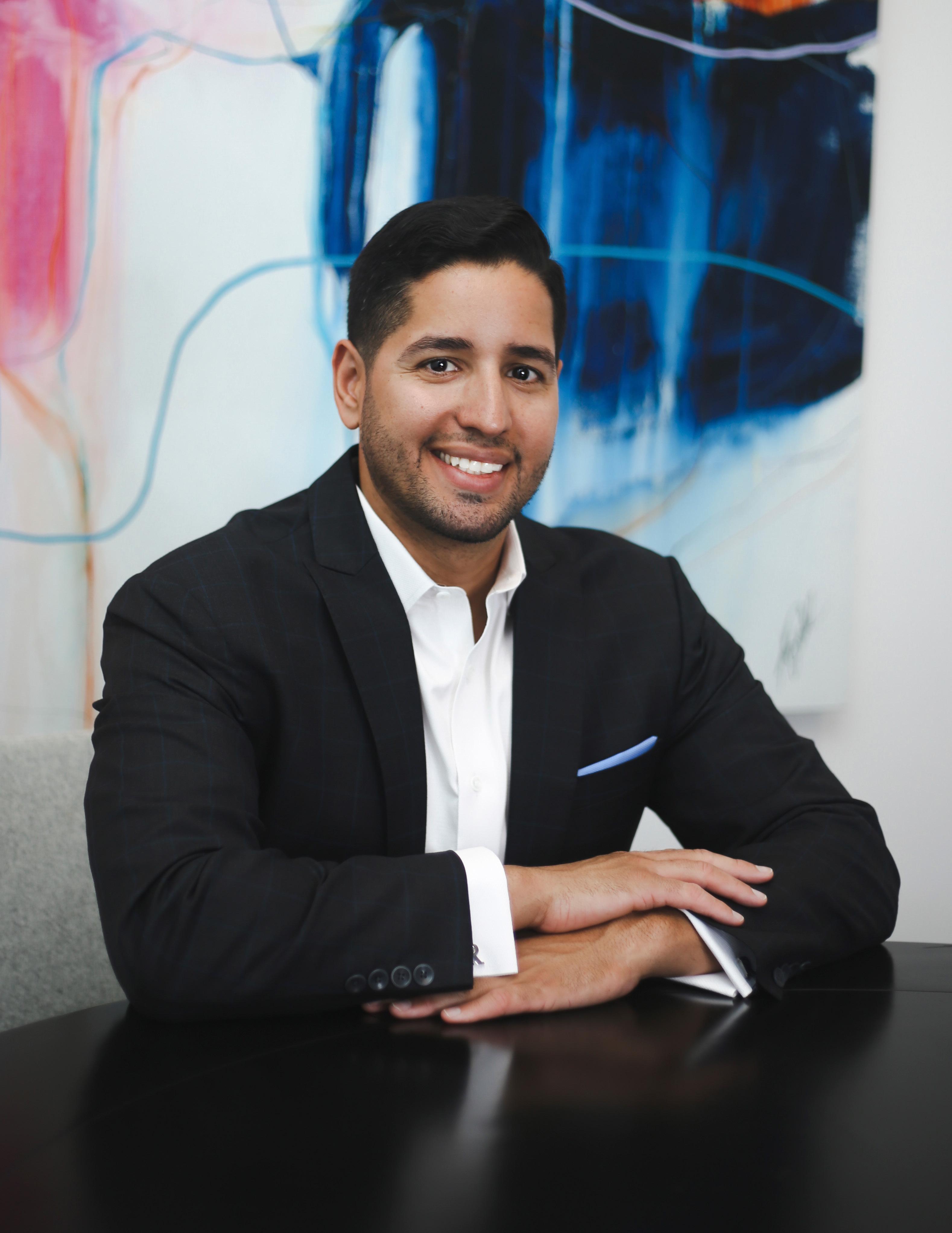
“That allowed me to really see the business of law a lot more than I did on the IT side,” he notes. “I was able to partner with attorneys and work on very meaningful projects, helping them with their day-to-day case work to make them more efficient.”
In 2017, General Motors (GM) came knocking. Taveras had been recommended by someone who had been at the firm, and he joined the company as a director of legal business systems, focusing on the technology portfolio for a legal department of almost three hundred attorneys and staff across the globe.
Given that the legal operations team at GM was fairly new, Taveras’s experience from his firm days was key to helping the department be named one of the most innovative legal departments in North America in 2019 according to the Financial Times He’s now director of legal operations and information management, and he describes his job to those outside the business in two parts, with a 60/40 percent split.
“Sixty percent of my day is spent doing legal operations work, which is beyond the technology,” he says. “I also manage the team that does financial and outside counsel management for the legal department, as well as the communications aspect. The second part of my job involves the information management side, and it spans across the company. It’s a record retention division and my role there is to meet with leaders in different business units who have technology projects with data retention questions.”
Taveras is currently working on a couple of key projects, including rolling
out a new workflow automation tool, which he believes will change the way attorneys do work. “It’s a hot industry topic, and I think we are on the leading edge with that,” he explains.
“We already have over forty different use cases of particular workflows or processes identified and have documented that we will be engaging our practice areas. We have also identified an ROI on how this workflow automation tool will help each of them.”
Another project Taveras is rolling out soon is a contract analytics program, which will centralize contract locations. More importantly, it will enable GM employees to analyze executed agreements and contracts and provide a risk profile based on metadata.

Taveras has a very diverse team and understands that everyone is at a different point in their careers and needs different support from him. He considers himself a great communicator and a savvy leader.
“I am very much a vision person,” he says. “I will always challenge whatever’s put in front of me and typically when something is presented to me, besides being a cheerleader for them, I’ll try to challenge and say, ‘What would this look like if you had no barriers? What would you do?’ Even if we can’t get to that ‘Holy Grail’ wish list item, it always lends itself to meet somewhere in the middle. We can always do a little better when we think beyond the normal constraints.”
Dataspace:
Congratulations to Raul Taveras on your well-deserved recognition as a thought leader in legal information management at General Motors. Dataspace has been proud to provide data engineering and analytics staff to support your goal of building an automated legal workflow with a diverse and inclusive data team.MONICA P. NAVARRO WOULD LIKE you to flip the script—or maybe even tear it up. The assistant general counsel for the Americas at The Freudenberg Group moved from her native Colombia to pursue a legal career at eighteen, and she has repeatedly learned how often people are underestimated because of their accents.
As a fully tenured professor at Western Michigan University Cooley Law School, Navarro received an anonymous student evaluation written in all caps that said only: “SPEAK ENGLISH.”
“This wasn’t an isolated incident,” Navarro admits wearily (in very clear and precise English). “Those kinds of experiences can make people settle into becoming the expectations others create for them. It can lead them to blaming these biases for their station
in life. I call it the Script of Discontent. I tell people you have to do your own thing and do it well. Rip up that script.”
Navarro’s desire to help Latinos rise above stereotypes and low expectations has played out both in her professional life and in her dedication to volunteering her time with multiple organizations.
Navarro wrote her own script, becoming the first lawyer in her family and building a career in healthcare law—a field that she barely knew existed in law school. Healthcare law would provide the entry into corporate and business law that would lead Navarro to The Freudenberg Group, a leading international conglomerate that manufactures everything from automotive, aerospace, and other industrial materials and components to medical devices.
Freudenberg’s wide portfolio and global presence drew Navarro to the company, where she was hired as senior counsel in 2016. Her success in that role led to her recent promotion to assistant general counsel for the Americas, where the lawyer’s purview will extend to the better part of the Western Hemisphere.
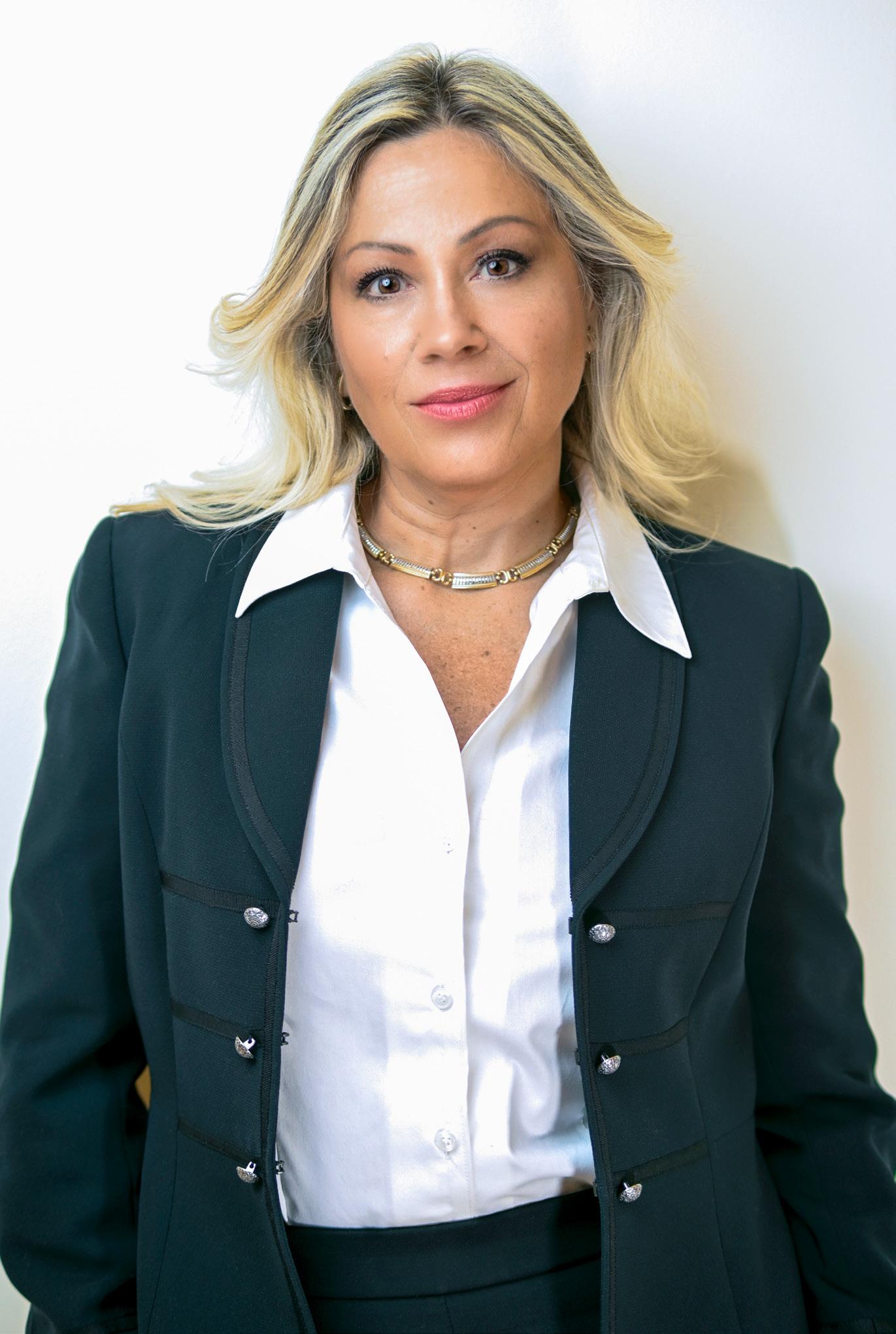
“That breadth of work has always been an attraction for me,” Navarro explains. “But there are two other reasons that have made Freudenberg a good match for me.”
Navarro adds that the company’s commitment to both DEI and sustainability are perfectly aligned with her own personal mission. From a diversity perspective, the lawyer says, it just makes good sense that a global company would value diversity at such a high level. She describes Freudenberg as a great example of a company that recognizes
“I tell people you have to do your own thing and do it well. Rip up that script.”
Monica P. Navarro Assistant General Counsel, Americas
The Freudenberg Group
her cultural competence, her language skills, and her international orientation as differentiators to an already outstanding legal skill set.
“I work at a place where people from all backgrounds are welcome and embraced,” Navarro says. “It’s real and measurable in a way that’s reflected in the respect that people exhibit toward each other here.”
Additionally, Navarro says, Freudenberg’s continuing path towards broader sustainability is one that she’s committed to supporting. The company is operational in more than sixty countries and is committed to complying with the most stringent of environmental standards. Freudenberg aims to be climate-neutral by 2045 and its extensive sustainability efforts are evident via Freudenberg’s website. By reducing the energy consumption and emissions of its products, the company can have a two-fold impact on its sustainability efforts both from within the company and beyond.
That impact is important to Navarro, because it’s precisely what she personally aims to accomplish outside her day job as well as in it. She’s been involved with an impressive list of organizations, including the State Bar of Michigan, the Oakland County Bar Association, the American Bar Association, and the Hispanic Bar Association of Michigan (HBAM). Through HBAM, she is helping promote diversity in the legal profession: the fact that only a small percentage of Latinos become attorneys is yet another script Navarro wants to flip.
“Lawyers are the policymakers,” Navarro explains. “If you have underrepresentation in the policy-making space, that has huge social justice implications for Hispanics.”
Navarro says HBAM is engaged on multiple fronts, both directly and indirectly. The organization funds scholarships for Hispanic students

while also mentoring Latino students from high school all the way through their law school graduation. The organization is conducting a moot court competition for high school students in Detroit, giving them a chance to interact with Hispanic lawyers.
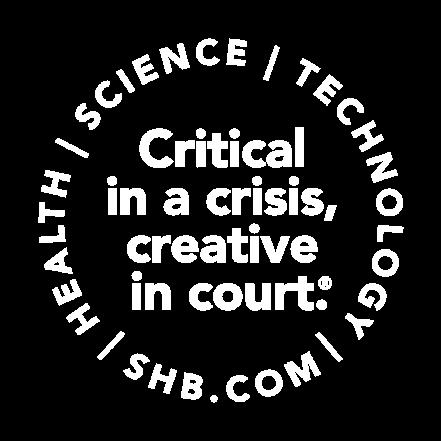

“These are kids who have maybe never thought about law school or their futures at all,” Navarro explains. “It’s a chance for us to be of service to our Hispanic community and hopefully be a mentor for the next generation of leaders.”
Navarro aspires to help Latinos live up to the potential she sees for them. “I look at my ethnicity as my superpower,” she says. “It’s what made me hungry to succeed and what has allowed me to be successful in a global company. Recognize your own secret power. Those things that make you unique can make you an asset. Don’t get bitter. Get better.”
Shook, Hardy & Bacon LLP: “Monica understands the importance of collaboration and routinely provides us her industry knowledge and prospective. Together, we find creative solutions. Her dynamic personality and communication prowess contribute to an enviable relationship as we maneuver and stay ahead of business and legal challenges.” –Jennise W. Stubbs, Partner
“I look at my ethnicity as my superpower. . . Those things that make you unique can make you an asset.”
Castor Armesto thrived in private practice, but the allure of industry proved too strong. Today, he is helping Spire become one of the nation’s leading natural gas providers.
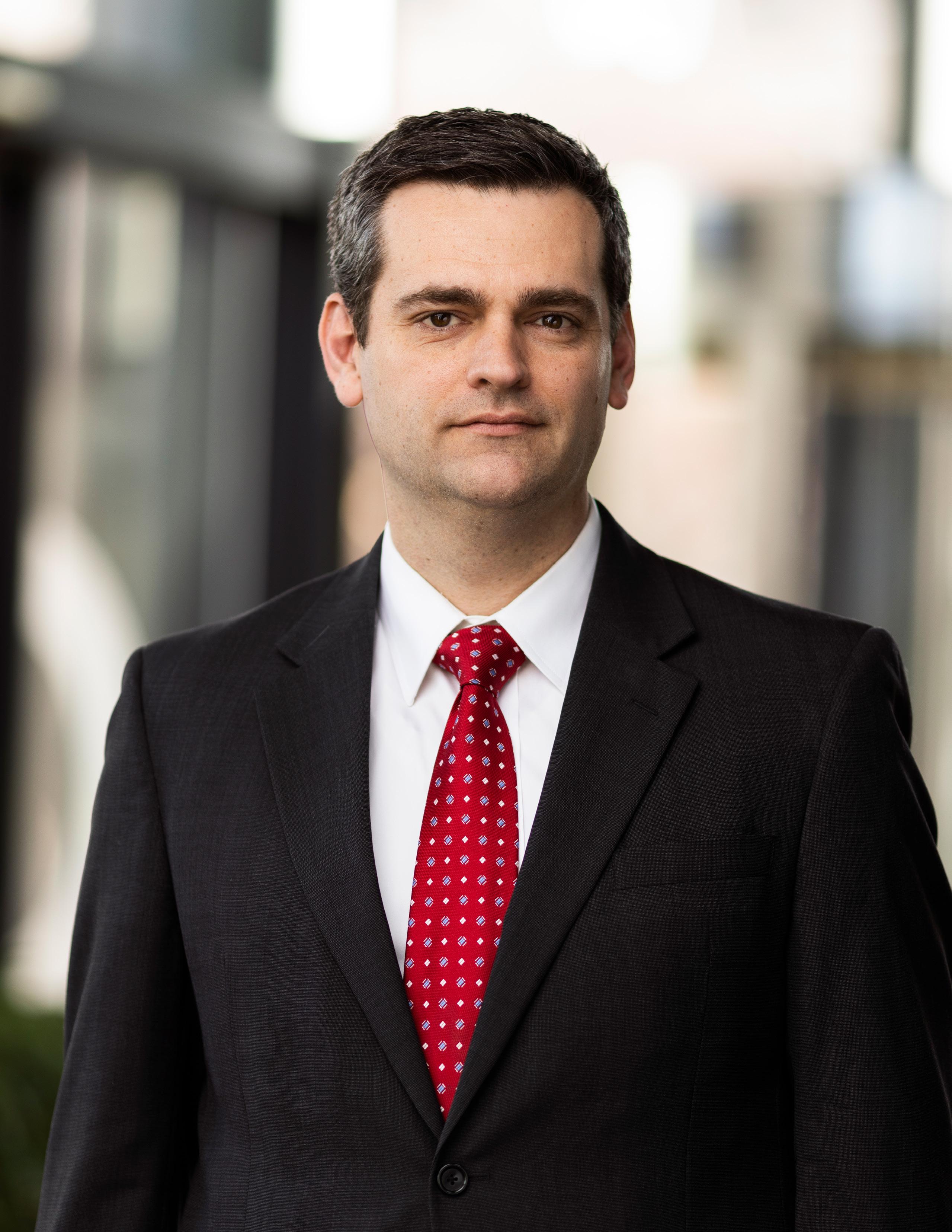
CASTOR ARMESTO LEFT ONE OF THE largest law firms in the country right after making partner. Although he was flourishing in private practice, the young lawyer had big ambitions. He wanted to advise a business, drive growth, and witness the direct impact of his contributions on one organization. When he found an opening at a fast-growing energy company, Armesto made the leap in-house and never looked back.
With 1.7 million customers and 3,600 employees, Spire is the fifth-largest publicly traded natural gas company in the United States. It serves families and businesses in Alabama, Mississippi, and Missouri through companies known as Spire Alabama, Spire Mississippi, and Spire Missouri. What started as Laclede Gas Light Company to bring light to the streets of St. Louis in 1857 has grown consistently over the last 165 years and now has total assets topping $8 billion.
Armesto joined the Spire legal team in 2014. Although the move from a big firm into the corporate world required him to pivot, learn, and acquire new skills, Armesto had been through life transitions and career changes before. His father came to the US from Cuba at age fourteen. While he was supposed to return after six months, the elder Armesto remained in his new country and kept his return ticket as a souvenir. He moved
to Chicago, met his American wife, and eventually raised his son in the nearby suburbs.
After discovering an interest in technology, Armesto studied computer science at Iowa State University and started his career at Procter & Gamble. He spent two years as an internet marketing manager in Cincinnati, where he led online strategy and execution for well-known hair care brands. The assignment caused Armesto to rethink both his passions and strengths and led him to law school at Washington University in St. Louis.
As a law student, Armesto cultivated a growing interest in business and transactional matters. He landed a job at Stinson and settled into life as an associate at a respected firm with a dozen offices across the nation. As Armesto climbed the ranks, he gained experience forming joint ventures, crafting commercial arrangements, advising start-ups, and supporting massive companies. He accepted secondments to Bunge, ADM, and Koch Industries. By 2014, Armesto was handling $500 million deals and thriving as an M&A attorney. “I loved being exposed to the business world because watching the changes and transformations happen firsthand was exciting, and I always had a dream of being directly involved in a business,” he explains.
Spire gave Armesto the chance to pursue that dream more fully. The energy company
“The Hispanic community is small, but growing quickly in St. Louis, and networking is critical. We want people to build long-lasting relationships so they can stay in this region and thrive.”
hired him to help the CEO and leadership team execute a growth plan based on a series of strategic acquisitions. In his first few years on the job, Armesto advised Spire’s natural gas fueling station and gas marketing businesses. In 2016, he became general counsel to Spire STL Pipeline to handle permitting, lead land acquisition strategies, and negotiate contracts for a $260 million interstate pipeline.
Since 2020, Armesto has served as general counsel for Spire Alabama & Mississippi, natural gas utilities providing service to over 600,000 homes and businesses in those two states. Through his time at Spire, Armesto has led M&A activities, including two major acquisitions: the $340 million deal for EnergySouth and the $1.5 billion acquisition of Alabama Gas. Those deals have helped Spire triple in size over the last eight years.
Armesto’s time in private practice at Stinson prepared him to lead these critical projects well. “Being at a firm gave me a great preview of what in-house practice would be like because I was interacting with big clients and senior leaders,” he says. “That helped me understand how to

communicate with businesspeople and find real ways to add value.”
Today, Armesto pushes this approach with the attorneys and paralegals on his team. He’s also emphasizing work/life balance, compassion, and communication. Those on his team collaborated to come up with some unwritten rules they all try to follow. They don’t have early morning meetings, they ask for help when they need it, and they put mental well-being on par with physical health.
Mental health issues in the workplace and in the Hispanic community are of particular interest to Armesto, who is a board member at St. Louis Counseling, a nonprofit organization that provides mental health services throughout the St. Louis metro area.
It’s just one of many ways he is giving back to the local community. Armesto also uses his time to help those in the Latino population find new professional opportunities in the region—he cofounded the Hispanic Leadership Institute. The program, focused on young, Hispanic professionals, offers a nine-month intensive training program that covers leadership style, personal branding, communications skills, business etiquette, and
A history of advising leading companies on their most complex and important transactions.
other important topics. Participants go through the courses together in a cohort to deepen their connections. “The Hispanic community is small, but growing quickly in St. Louis, and networking is critical,” he says. “We want people to build long-lasting relationships so they can stay in this region and thrive.”
Now, Spire continues to execute on its plans to grow through acquisition, innovation, and infrastructure. The company is upgrading its infrastructure, expanding its footprint, and improving its services. Armesto and his colleagues in the high-performing legal department are keeping pace and are ready to play a central role as they continue to deliver positive outcomes.
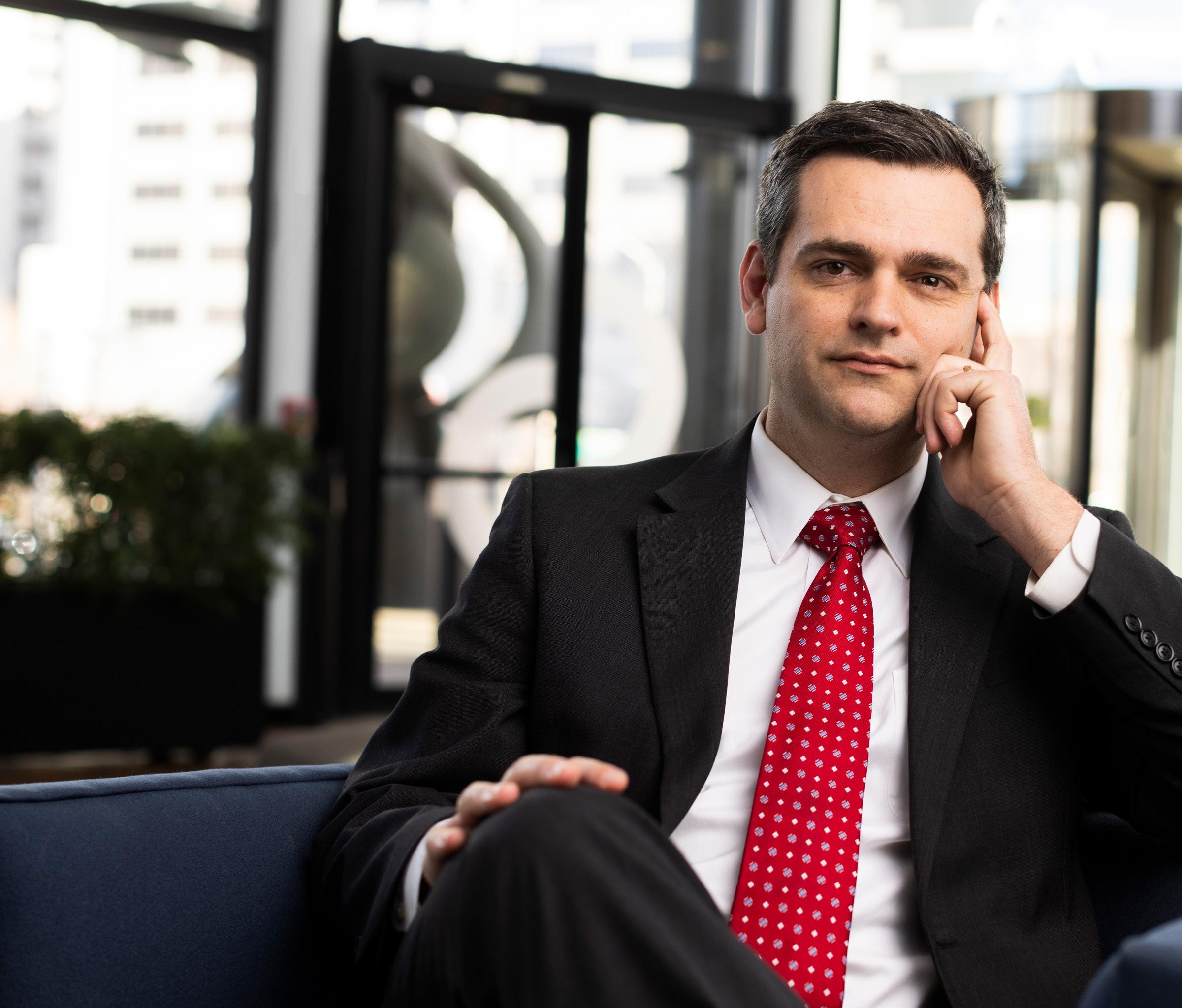
“I loved being exposed to the business world because watching the changes and transformations happen firsthand was exciting, and I always had a dream of being directly involved in a business.”




Indhira Arrington joined Ares Management Corporation a year and a half ago to head up its diversity, equity, and inclusion (DEI) efforts: she knew she could make a difference. The managing director and global chief DEI officer says that there was a big opportunity to enhance DEI at the global alternative investment manager with over $310 billion in assets under management.
“I chose to join an asset management firm because when it came to diversity, it was one of the sectors in finance that was the furthest behind. There was also a strong willingness from the leadership here that was committed to facing this challenge. I knew that together with the firm’s leadership team, I had the white space to really build something great.”
The executive says while there’s plenty left to do, her tenure so far proves what can be accomplished when an organization is truly committed to not just sourcing more diverse talent, but also creating the structure that will nurture and cultivate future leaders.
Arrington’s own life experiences— personal, professional, and some that combine the two—inform her work in the DEI space.
“I positioned myself for my first HR and diversity role by telling the business that they needed someone who had experienced every micro-inequality and micro-aggression that you can imagine,” she recalls. “And they needed someone who understands what will and won’t work within the context of the business.”
Arrington has two young sons and doesn’t want them to experience the inequality and resulting imposter syndrome her generation faced. Her efforts at Ares Management to transform the business landscape are ensuring that things will be a better for generations to come.
When Arrington talks about her accomplishments at Ares, she often refers to her collaborations with company leaders, including cofounder and CEO Michael
Arougheti, Head of Human Resources
Jessica Dosen, and Head of Philanthropy
Michelle Armstrong, who have helped drive progress in DEI. One person alone cannot tackle systemic inequity without the dedication of an entire organization. Keeping this in mind, Arrington joined forces, and as a result, managed to drive meaningful changes throughout the organization.
Take, for example, AltFinance, a collaboration between Ares and fellow investment management companies Apollo Global Management and Oaktree Capital. Over the course of ten years, the trio will invest $90 million in a program to attract talent from historically Black colleges and universities. The effort helps students gain exposure, mentorship, and hands-on experience in the alternative investment management space.
“We wanted to start where we had the biggest gap,” Arrington explains. “We’re looking for students who we can sponsor, upskill, and open doors to internships and opportunities in the investment management industry.”
Indhira Arrington says she wouldn’t be where she is today had it not been for organizations like INROADS and the Consortium for Graduate Study in Management, nonprofits that exposed her to the written and unwritten rules of corporate leadership, as well as providing her sponsorship and mentorship.
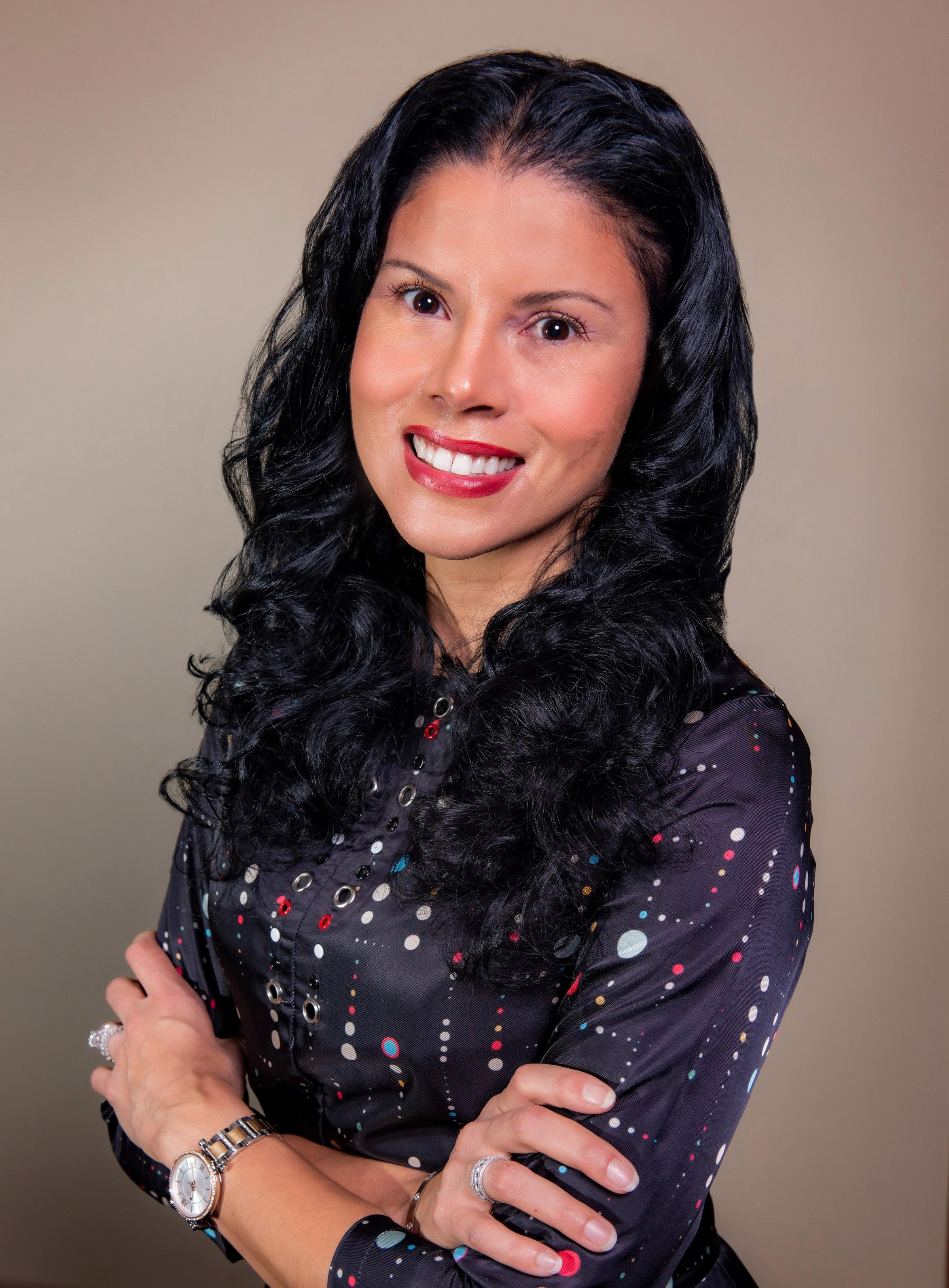
“No one makes it on their own. As an immigrant, these organizations took me in and helped harness my drive and hard work and showed me how to focus it in the right direction,” she says. “Latino mentors are imperative in helping change the numbers in terms of representation. I now feel a responsibility to find those that I can help and lift them up. As the saying goes, ‘To whom much is given, much will be required.’”
Director

uncle started more than seventy-five years ago
Irwin Mizrahi values hard work and a family-friendly corporate culture. His own father and uncle started the company in 1946, and since then, he’s helped it become one of the nation’s best-known manufacturers of children’s socks and underwear.
In Handcraft’s early days, its founders loaded heavy sample cases onto trains at New York’s Grand Central Station and crisscrossed the region to make sales. They sold handkerchiefs door-to-door. Mizrahi spent his summers in the Manhattan factory, worked a series of odd jobs, and officially joined the family business after college. Along the way, he realized that his colleagues at Handcraft adopted the tone his relatives set from the top. “We search for and keep a certain type of person here,” he says. “It’s a family business, and we like people who value that.”
One of those people is Yolanda Garcia. While it’s not uncommon to hear of long-tenured employees at Handcraft, she’s been part of the team longer than almost anyone who doesn’t carry the Mizrahi name. Garcia came to the organization in 1977, when it had a factory along Observer Highway in
Hoboken, New Jersey. As an entry-level worker, she counted and folded finished handkerchiefs before separating them into plastic bags for shipping.
Garcia took the job because it was close to her apartment. She didn’t want to leave her children home alone, but she could see her building from the factory window. Garcia instructed her kids to hang a red towel from the window when they got home from school each day. She kept an eye on the window as she worked, always checking to ensure everything was okay at home.
Mizrahi says Garcia’s seemingly endless energy and unshakable work ethic caused leaders to notice her. “She never waited to be asked or told to do something, she just did it,” he recalls. “And that’s how she’s always been.” Garcia earned a quick promotion to the head of a small production team and never looked back.
After sales of just one product led to slow growth, Handcraft expanded from handkerchiefs to socks and underwear, which brought new licensing opportunities in 1992. Today, the company’s products feature characters from Marvel, Disney, Nickelodeon, Warner
She might not share their last name, but Handcraft president Irwin Mizrahi says long-tenured employees like Yolanda Garcia are the lifeblood of the company his father and
“We search for and keep a certain type of person here. It’s a family business, and we like people who value that.”
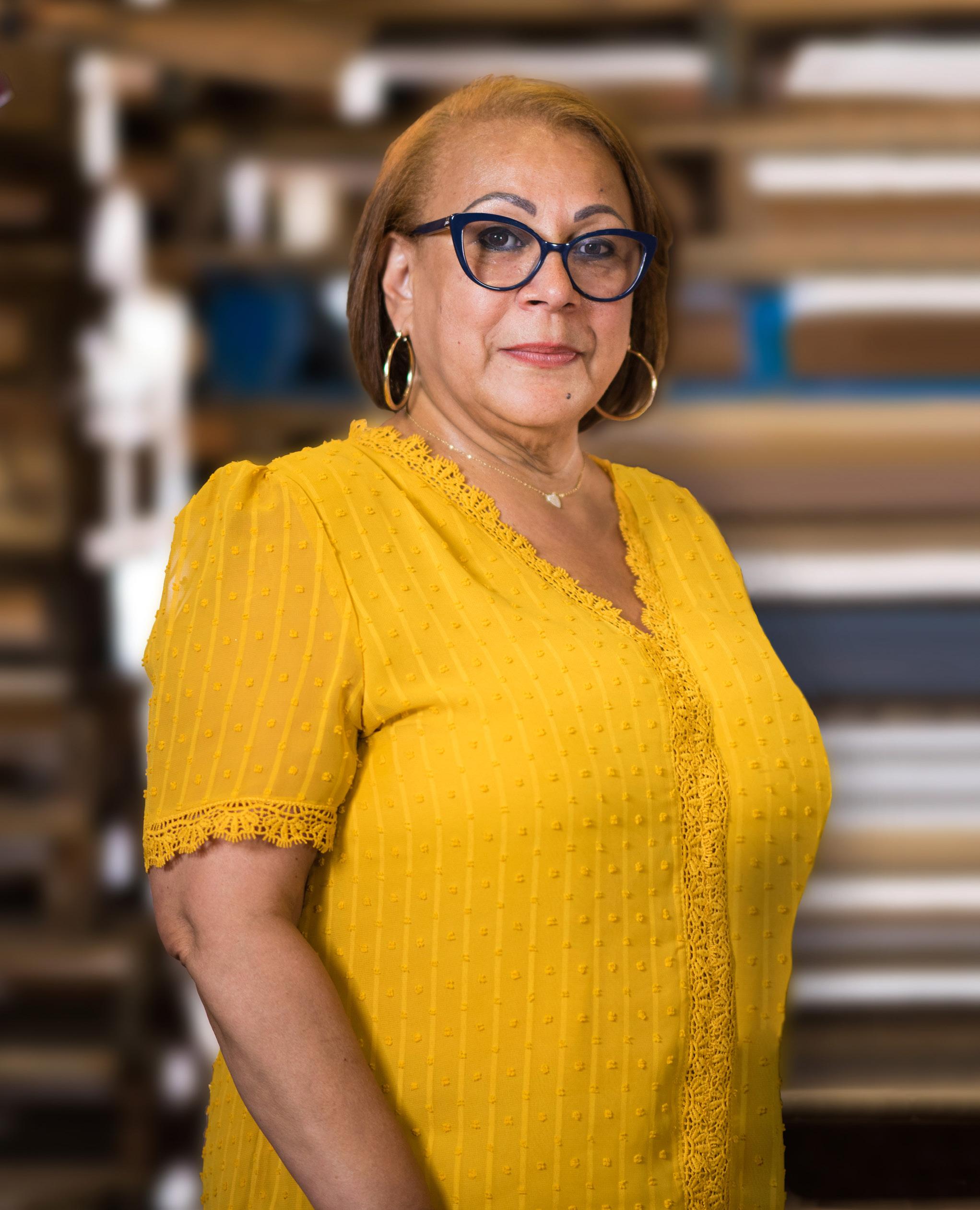
Brothers, and others, and can be found at nearly every major retailer.
Garcia has grown in step with the company, and forty-five years after she started packing Handcraft products, she works alongside its leaders in their New York office. “Everyone knows they can come to her with any need, large or small. She is part of what makes this a place where people want to be each day,” Mizrahi says.
The reputation has earned her many endearing nicknames in the office. At home, her sons Giovanni and Ariel Ramos call her the Mayor. “She can’t go outside without being stopped and talking to people,” they say. “Whether it’s a neighbor, grocery store employee, someone sitting on a bench, or the usual suspects during her morning commute, Yolanda will make friends. She is kind-hearted and compassionate, but she’s also no pushover. There is some bulldog in her and she’ll let it out if needed.”
Working at Handcraft has become a Garcia family tradition: both Giovanni and Ariel had summer jobs within the organization when they were in high school, and this past summer, Garcia’s seventeen-year-old granddaughter also became part of that tradition.
Before the heyday of the personal computer, slick pitch decks, and flashy three-dimensional design elements, Garcia used to hand-cut socks and underwear shapes for big presentations. She’s held formal positions as a supervisor and informal roles as party coordinator and pot-luck cook. Today, she’s officially the office manager, but there’s not really a job at Handcraft she doesn’t do.
Domestically, Handcraft has offices in New York, New Jersey, and Arkansas. The company’s overseas facilities include those
in China, Bangladesh, and the Philippines. Altogether, it has about a hundred employees and now has licensing deals in place for about seventy properties.
Despite this growth, the company has retained its family culture. Mizrahi says the credit for that goes to his family members and employees like Garcia. “We don’t have extras here. We don’t just pack bodies in offices. Each person is important. Each person has to contribute, and Yolanda always does. We can’t do it without her,” he explains. Buyers at big retailers like Walmart, Target, Kohl’s, and Costco know they’re going to get personal attention from Handcraft—a company built on quality, service, and creativity.
One of Garcia’s colleagues started with the company in 1972 and just celebrated her fiftieth work anniversary. Those employees and their loved ones are happy to be welcomed into the Mizrahi family. “It’s been a long journey but worth it, because she feels grateful, proud, and blessed to be part of this company,” Giovanni says. “To watch it grow over the past forty-five years makes her feel that she, in one way or another, has contributed to the great company it is now.”
It’s a growing company with a bright future. Mizrahi has now handed daily operations over to his two sons, who run the business. But for him, employees like Garcia are part of the family as well.
“Each person is important. Each person has to contribute, and Yolanda always does. We can’t do it without her.”
Jose Castro rallies a high-performing team on the top of the Paramount mountain while helping fans connect to their content with innovative merchandise offered both online and in-person
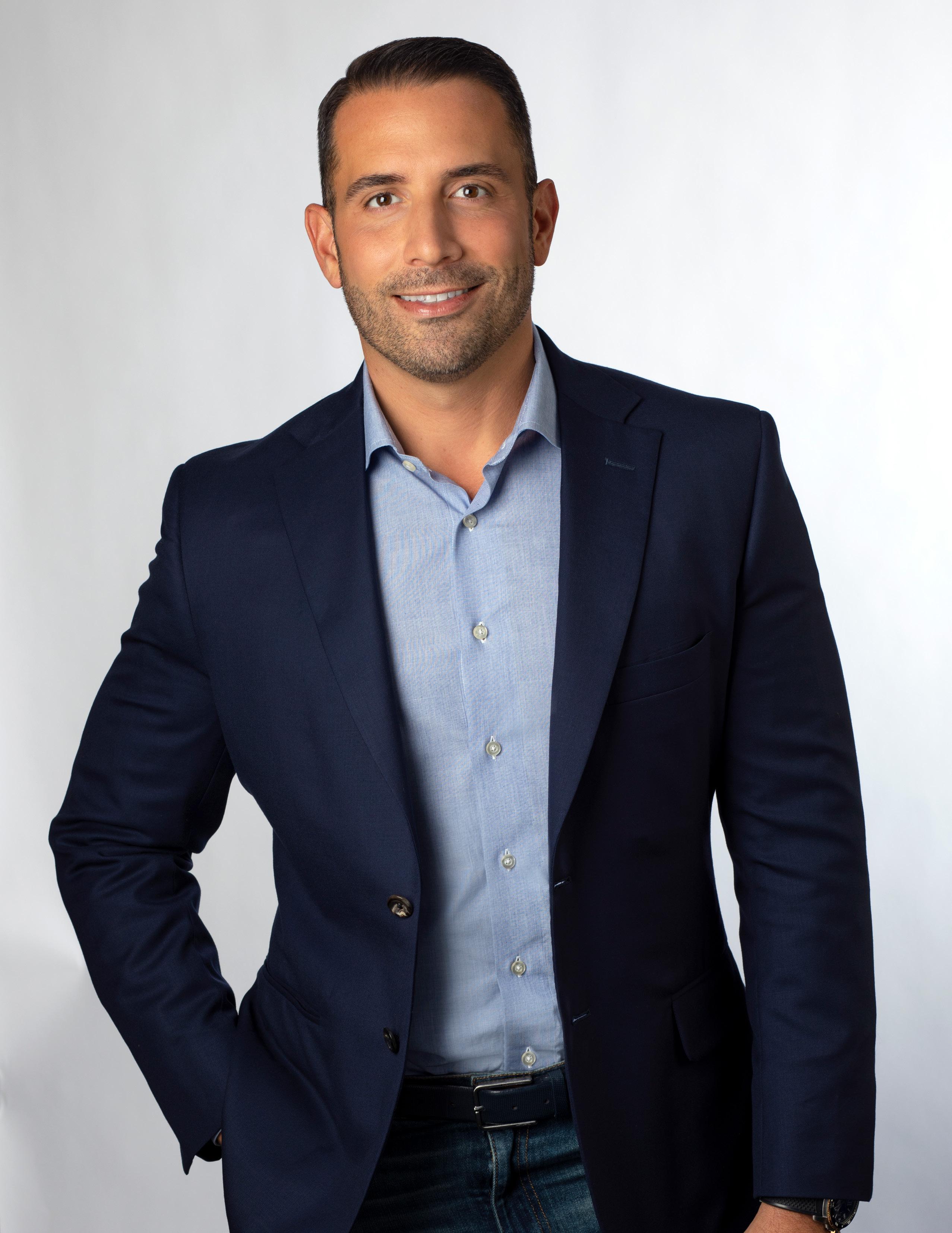
The Paramount Pictures logo seems like it’s been around since before movies were even invented. It’s a mountain peak we’ve always wanted to climb, despite only really appearing at the beginning of movies like The Godfather, Chinatown, Top Gun, Transformers, Coming to America, and Kung Fu Panda
When ViacomCBS announced on February 16, 2022, that it would be changing its name to Paramount (Paramount Global, in fact, but the entertainment giant continues to be referred to by its more recognizable name), the company—which boasts a sizable list of film, television, streaming, music, and other properties—came full circle in its long evolution. The name change is an acknowledgement of just how much power that mountain peak has in the minds and imaginations of its consumers. And Jose Castro is helping keep that magic alive.
Castro, senior vice president of soft lines, global fashion collaborations, and specialty retail at Paramount Consumer Products, has been part of Paramount’s journey since
2003, or approximately three name changes ago. The son of a Cuban father and Lebanese mother grew up in Miami, but his love for the entertainment world drew him to New York, where he helped a company then known as Spike TV build out its network roster. His next move was to a consumer products role at Nickelodeon.
“I didn’t specifically know about consumer products and licensing, but I knew enough about marketing,” Castro remembers. He’d have to grow into the role, but it was one that would eventually elevate him to C-suite in a global entertainment powerhouse.
Castro’s passion for his role is unwavering. His stories are the kind that you always hope to hear from Hollywood execs: stories about passionate people who listen to their fan bases, sometimes working a step ahead and sometimes playing catch-up. His job is to try to anticipate which characters and properties are going to be a hit with audiences and make
A snow-covered mountain peak, encircled by stars. For even the most casual of film fans, it’s a welcome sight.
sure the right time, energy, and strategy have been put into merchandising and licensing efforts for increasingly niche fan communi ties. He then collaborates with manufacturers to bring these products to life.


One manufacturer and distributor Castro’s team works with is footwear compa ny ACI International. “We have had the plea sure of working with Jose for nearly twenty years and have seen him grow into the incred ibly smart, strategic, and supportive executive he is today,” says Steve Jackson, CEO of ACI International. “We’re proud to have partnered with him for these many years to build and grow Nickelodeon’s footwear business.”




In the event of unexpected fandom, it’s Castro’s job to pivot and give those charac ters or properties their time in the sun. This pivot is perfectly illustrated by the case of a perpetually stoned talking towel from the long-running animated series South Park “Towelie” was never a front-and-center star of South Park, but between metrics and instinct, Castro was able to tell fans were craving

something a little edgier from a well-established edgy show.
“This was always a background character, but we knew there was something there,” Castro says, laughing at both the absurdity and success of the entire affair. “We launched a Towelie collection along with an Adidas partnership last year on 4/20, and it turns out that Towelie is now one of the best-selling character from the entire show.”
Paramount also works with Handcraft, an undergarment apparel company that produces underwear featuring popular characters seen on Disney, Nickelodeon, and in the Marvel universe. “Throughout our thirty-year partnership with Paramount, we have watched as Jose has grown into the SVP and leader that he clearly is,” says Marshall Mizrahi, VP of Handcraft. “His lovable personality— coupled with his ability to strategize, connect, and communicate with his licensees—makes him an unbeatable problem-solver and a true leader in the industry.”
While brick-and-mortar retailers remain key for the company, Castro has helped bypass the traditional shopping experience through online venues. E-commerce essentially offers “endless shelf space,” he explains, but the company has to work hard to understand what its audiences will want from a product. Historically, those decisions were made based on gut predictions, but Castro says Paramount has been able to incorporate more data and research into the decision-making process over time.
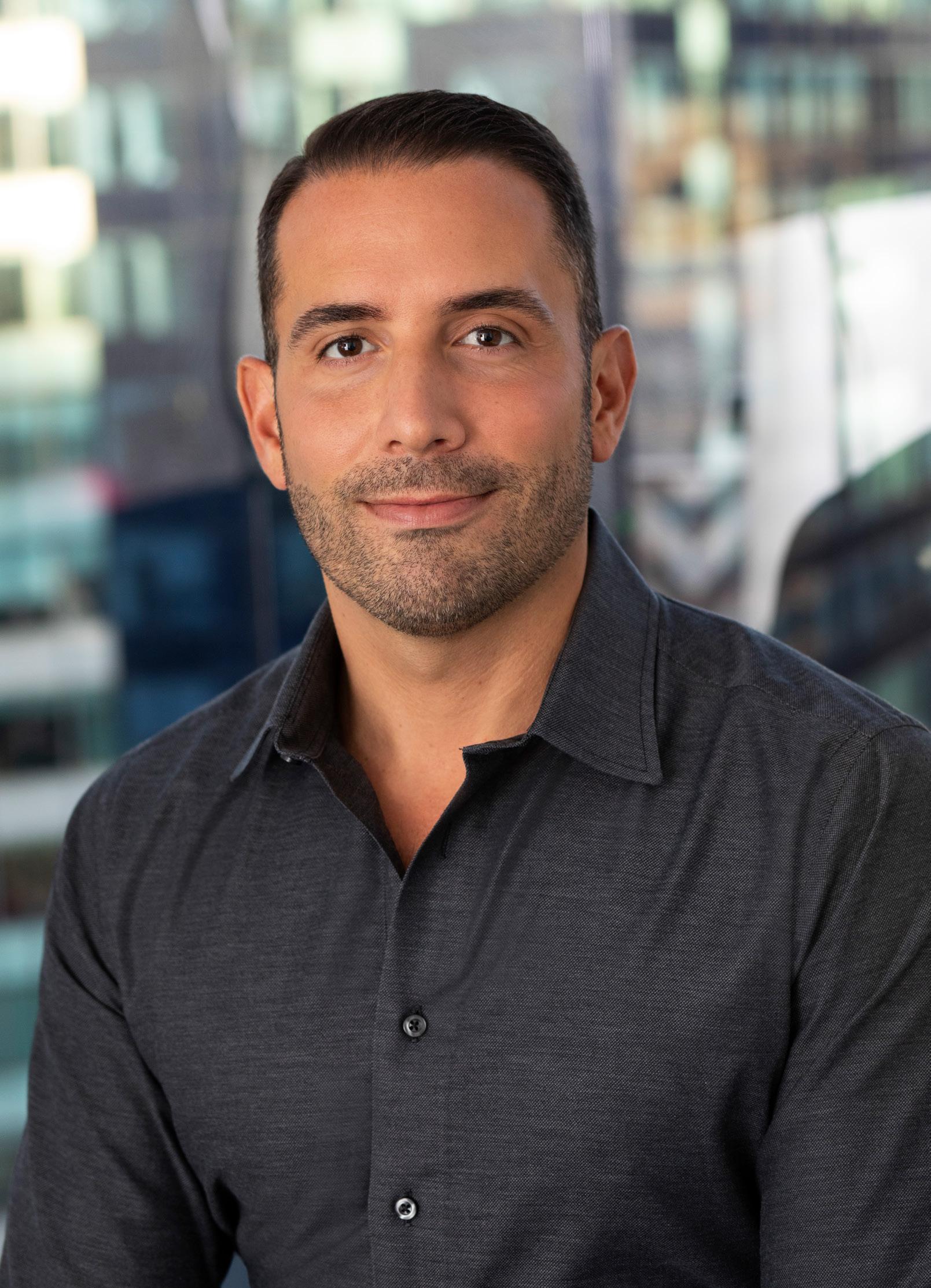
“Our audience is diverse, so our content should be diverse, and our products should be diverse. We would be at a disadvantage if we didn’t think that was the case.”
We are proud to partner with and Paramount and congratulate him for his recognition by Hispanic Executive.



FAMILY

















75 years of quality products & lifetime partnerships.



















































Since our founding in 1946 we have grown from a small handkerchief company to America’s leading provider of children’s character underwear. Handcraft also has a wide portfolio of baby, toddler, kids, ladies and men’s apparel & accessories. Follow us on Facebook and Instagram and visit us at www.handcraft.com


















Castro’s leadership extends beyond his job description. The SVP is one of the executive cochairs of SOMOS, the employee resource group for those who share an interest in the Latinx experience at Paramount.
“Our CEO continues to talk about the importance of diversity in every aspect,” Castro says. “For one, it’s the right thing to do. But it’s also good for business. Our audience is diverse, so our content should be diverse, and our products should be diverse. We would be at a disadvantage if we didn’t think that was the case.”
The SVP says that SOMOS and other ERGs have proven especially important as informal focus groups, helping Castro’s team make sure that their products are respectful in their representation of diversity on the screen. At a company where countless types of content are being created at a lightning pace, these ERGs can serve as a vital touchpoint to make sure the tone, approach, and intent of that content are delivering as intended.
Castro says that Paramount is also working to source new diverse
“We have this new identity, this new name to rally around, and this year is shaping up to be an incredible one.”
WE ARE HONORED TO KNOW AND WORK WITH YOU JOSE CASTRO. YOUR MANY CONTRIBUTIONS HAVE CHANGED THE BUSINESS LANDSCAPE.
Accessory Innovations celebrates our client and friend Jose Castro for his remarkable career.





Jose, it is our honor to work with you and Paramount, and we look forward to continued future achievements.











partners in the manufacturing space for its products. “Whether it’s an up-and-coming company, one run by a diverse group of people, or [a company with] BIPOC leadership, we want to give new players an opportunity to be in our licensing base,” the SVP explains. “Our goal is to keep finding new partners and introduce them to our business. And while they grow in the business, they can help us identify if we’re serving products to every single diverse group of people who would want to buy them.”


We are an industry leading home textiles manufacturer, trusted by well-known global brands around the world. Creating products that bring our customers’ homes, dreams, and journeys to life since 1942.







With global o ces across the US, UK, and China servicing top global, national, and regional retailers, we are committed to setting the industry standards for quality and design.



Our diverse and dedicated team o ers something for every fan at every price point and every age.

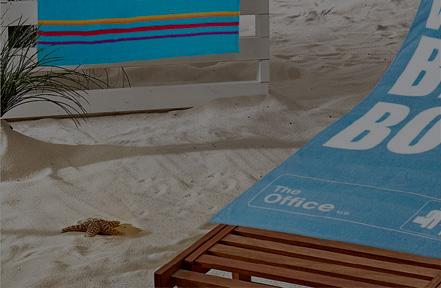
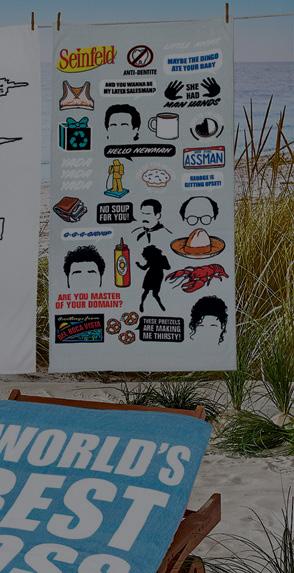



www.jfranco.com















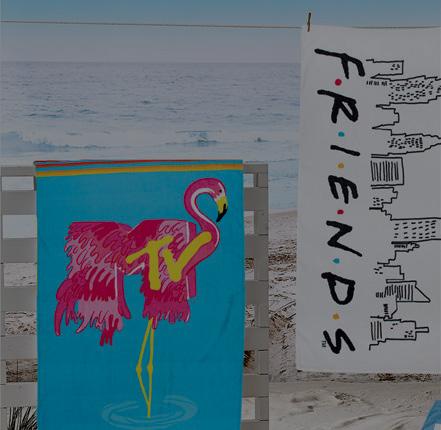






While the COVID-19 pandemic hit the entertainment business hard, Castro has nevertheless been able to find silver linings during one of the most challenging times the industry has ever faced—particularly when it comes to intellectual property (IP), which his team has been working with more than ever before. In fact, just halfway through this year, Paramount determined that Castro’s team had done more business during that period than it had during the previous two years, all while working remotely.
“This team has worked so hard, and I am so proud of them,” Castro says. “We have this new identity, this new name to rally around, and this year is shaping up to be an incredible one.”
A family business well into our third generation, Handcraft continues to be proudly recognized as the market leader in children’s character underwear. From the beginning seventy-five years ago, we believed in building partnerships that last a lifetime and we still uphold the same traditions that our company was built on, to “provide the customer with superior quality, comfort, and design while bringing joy to everyday moments.” For over thirty years our partnership with Paramount/Nickelodeon has brought to life characters from Dora the Explorer™, Sponge Bob™, and Teenage Mutant Ninja Turtles™ to Paw Patrol™, JoJo Siwa™, and so many more.

It is a privilege and pleasure to work with you and Paramount

FOR OVER TWENTY YEARS PARTNERS Pharmacy, headquartered in Springfield Township, New Jersey, has provided medication management for nearly fifty thousand residents in more than five hundred long-term care, assisted living, and skilled nursing facilities for fifteen states. Washington, DC-based Partners Pharmacy is one of the top three largest long-term care pharmacy companies in the US, a business that will no doubt continue to grow as baby boomers age into their golden years.
In 2018, Partners announced the launch of its new sister company, Avantum Hospice Pharmacy, extending its care to those at the end of their lives.
“We are so excited to announce the launch of Avantum,” said Anthony Spero, president of Avantum in the statement. “Avantum provides a great opportunity to expand our pharmacy service line. As the healthcare industry continues to evolve at a rapid pace, Avantum ensures the best service to meet patients’ hospice pharmacy needs.”

For an organization whose success depends on innovative technology to build cost-effective medication management, the chief information officer role is a critical one. That role was taken on by Ruben Soto in 2020.
The former IT and security officer at Partners Pharmacy has been with the company since 2014, and his promotion is clearly the result of what he was able to accomplish in his former role.
While serving as IT and security officer, Soto orchestrated a portfolio of large-scale projects and was charged with supplying strategic and tactical leadership. Soto shaped and led a ten-member help desk to provide technical support around the clock.
In the role, Soto was able to decrease operating costs by 30 percent while providing better reliability, uptime, data availability, and security. Soto and his team also unified the wireless network access control and security through a partnership with Cisco.

During his tenure, Soto was able to accomplish half of the company’s entire recovery plan and extensive data center project while also performing risk and facility assessments for potential acquisitions, some merely proposed and others approved. The executive was also able to seamlessly relocate four pharmacies while still ensuring data security.
Soto’s success is well deserved. He grew up in an underserved neighborhood in New Jersey in a home where he shared a bed with his three brothers. He learned Spanish from his grandmother, who took care of him, but this also delayed his learning English for a number of years.
Early in his career, Soto was working as a night manager at a call center, but after a late night of studying at college, he became interested in another student working on a computer. It was motivation enough to take a technology class, and he even took a pay cut as a technician to get more experience in the area.
Just two months after being promoted to the CIO role, the pandemic hit. Soto has been successful in navigating the work-from-home environment for his people, moving data centers, and tackling a data breach.
Soto’s focus on empowerment and morale has helped make a challenging adjustment a successful one. He and his team of twenty-six continue to aid Partners Pharmacy by being proactive and efficient and adapting. Soto’s team are true partners at Partners.
Protecting customer privacy while working with governments to track cybercrime is no easy task. But for Microsoft’s Norman Barbosa, it’s all in a day’s work.
THE HEADLINES SERVED AS A WARNING to cybercriminals around the world—Russian hacker Track2 was sentenced to twenty-seven years in prison for crimes that caused more than $169 million in damage to banks and business owners. It took a dedicated team of federal agents and prosecutors to find, apprehend, and convict Track2, whose real name is Roman Seleznev. Norman Barbosa acted as lead trial counsel for the United States Department of Justice.
Today, Barbosa works at Microsoft and leads the tech giant’s global law enforcement and national security compliance and public policy efforts. As part of that role, he’s developing policies related to government access
to data, cybersecurity, and cybercrime. The fifteen years Barbosa spent as a prosecutor have given him the unique ability to understand all aspects of the many issues that come together where technology, business, law, and privacy collide.
After five years as an assistant regional counsel with the Social Security Administration, Barbosa worked as a special assistant United States attorney in the western district of Washington state, where he prosecuted social security fraud and identity theft. During that time, he convicted members of a conspiracy who used emerging card-printing technology to create counterfeit documents used to purchase millions of
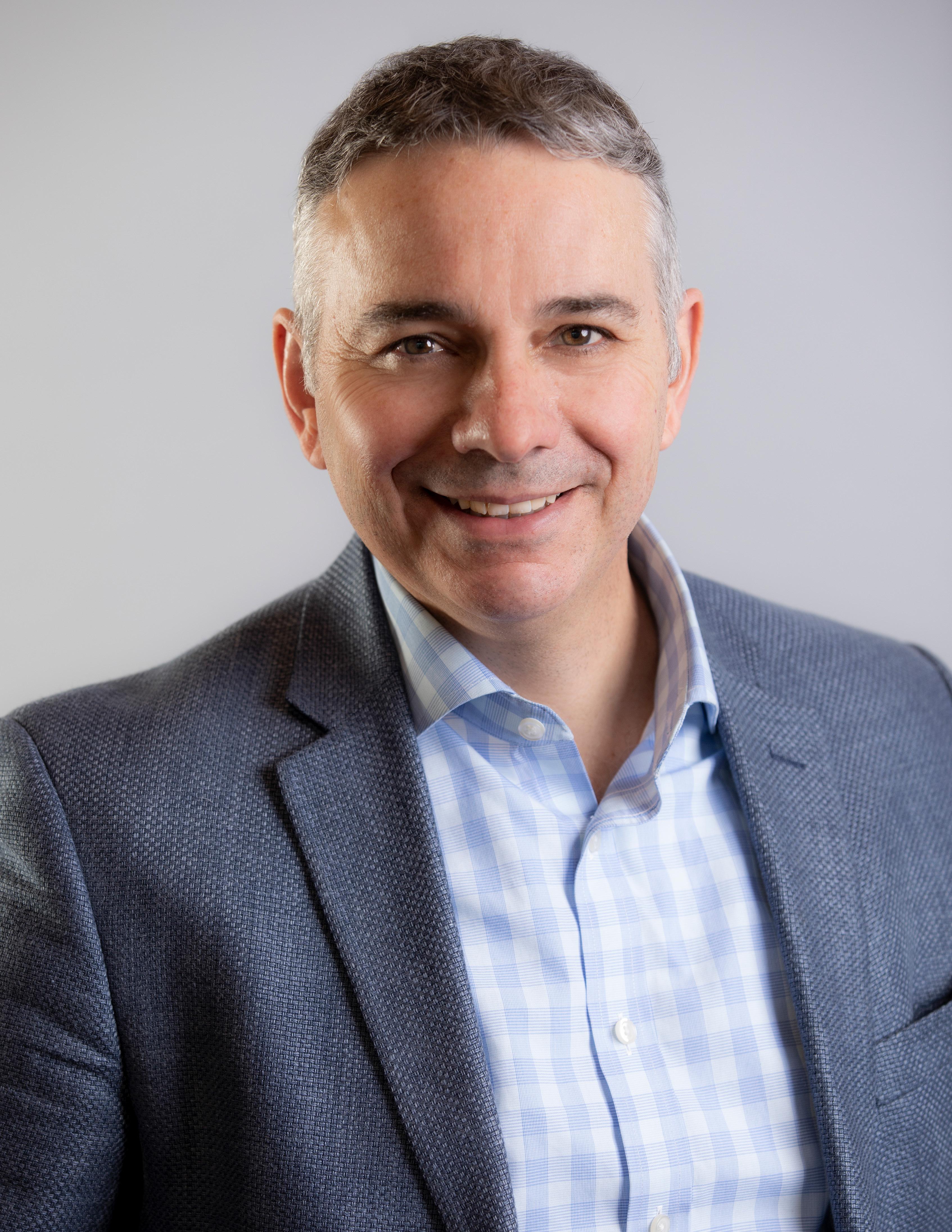
dollars worth of electronics they sold through online auction sites.
Barbosa managed bigger and bigger white-collar fraud investigations, and in 2008, he started to coordinate the district’s Computer Hacking and Intellectual Property Crimes program and act as a national security cyber specialist. Soon after Barbosa took the role, users around the world started reporting incidents of a computer worm attacking vulnerabilities in Microsoft Windows. The malware, known as the Conficker botnet, hit computers in nearly two hundred countries. Microsoft referred the case to Barbosa’s office, and his counterparts launched a wide-ranging investigation in cooperation with the FBI and several foreign law enforcement agencies.
In 2011, after a three-year investigation, they seized hundreds of servers, executed search warrants in Kiev, and arrested three Ukrainians. “Protecting companies, individuals, and governments from bad actors online is a huge team sport that spans all borders,” says Barbosa, who provided investigative support for the FBI’s investigation and prosecuted responsible parties.
Cybercrime increasingly became a bigger priority for the Department of Justice, and Barbosa says his colleagues were pursuing Seleznev (AKA Track2) for ten years before they finally caught him trying to pass through the Indian archipelago of the Maldives. Seleznev spent five years hacking into hundreds of retail systems to install malware and mine credit card numbers he used and sold on the dark web. At the time of his arrest, Seleznev was in possession of more than 1.7 million stolen credit card numbers, and his activities were linked to servers in Russia, Ukraine, and the United States.
Working these cases often required Barbosa to interact with leading tech companies. “Cybercrime investigations form arm’s-
length relationships between government and private industry because there are mutual interests,” Barbosa says. In interacting with Microsoft, he became impressed with the internal digital crimes unit and the company’s strong reputation for protecting its customers. In 2018, after resolving the Seleznev case, Barbosa joined Microsoft to coordinate data access compliance and balance law enforcement requests with commitments to customer privacy.
Barbosa is leveraging his experience and niche subject-matter expertise to help Microsoft answer complex questions related to how they respond to obligations placed upon the private businesses to produce records and information that may be in its data centers. He serves as a bridge between all interested parties, often engaging with customers to assure them Microsoft maintains an appropriate relationship with governments.
As the work gets more connected, Barbosa’s job gets more complex. He’s monitoring ongoing issues related to privacy and digital sovereignty. What happens when Europeans use American technology on the internet? Which laws apply, and how are companies and individuals impacted when global laws conflict? “There’s a lack of clarity,” Barbosa says. “People around the world want to know that their privacy and data are protected, and we are working to encourage governments to find multilateral solutions and an agreed set of principles going forward.”
After decades of unbridled innovation, Barbosa says the time is right for countries to regulate the internet to ensure citizens, corporations, and governments are using technology for good and not for evil. There’s a lot at stake. Microsoft’s mission is “to empower every person and every organization on the planet to achieve more.” That mission is impossible if people lose trust in technology.
“People around the world want to know that their privacy and data are protected, and we are working to encourage governments to find multilateral solutions and an agreed set of principles going forward.”
International businesses present unique challenges— and opportunities—for corporate citizenship in multiple countries. The executives featured here thrive in navigating cultural shifts worldwide.
218. Jesus Ponce, Acxiom 223. Francisco Hernandez-Castillo, DuPont 226. Teresa Barreira, Publicis Sapient 230. Daniel Garza, OneMain Financial 234. Jacqueline Aguilar, Procter & GambleEngineer-turned-executive Jesus Ponce practices inclusive leadership in his global role at Acxiom
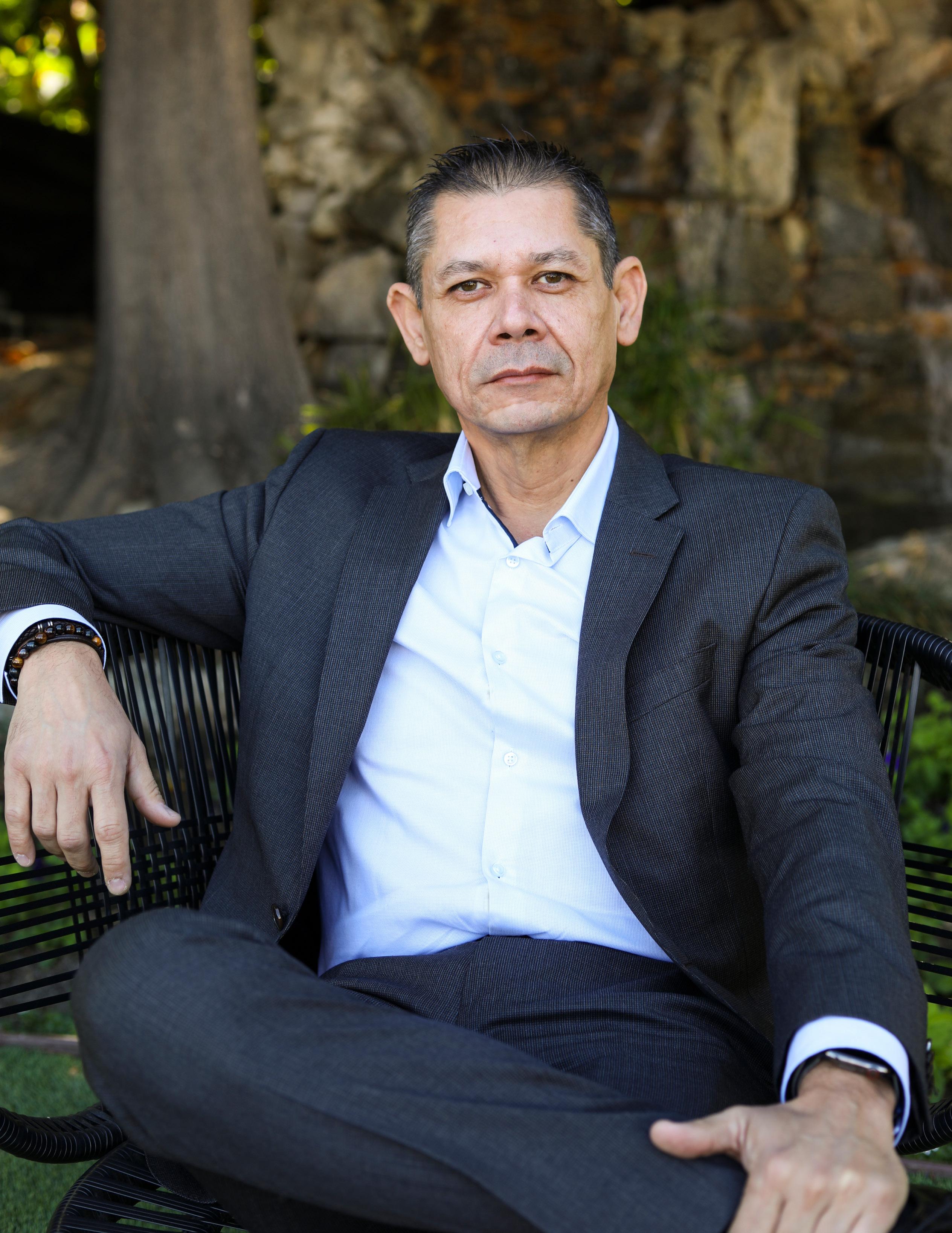
“When I was trying to decide what kind of field to pursue professionally, my father advised me to become a citizen of the world,” Ponce says. “I have taken as a mantra for myself that I want to understand the person sitting across from me. I always try to see things through their eyes or from their point of view.”
This mantra is critical to Ponce’s role as the vice president of client services at Acxiom, an Arkansasheadquartered customer intelligence company that provides data-driven solutions for marketers around the globe. Over his two-plus decades at the organization, Ponce has developed a leadership style centered on inclusivity, collaboration, and trust. Between these values and his father’s advice, he has positioned himself—and Acxiom—to help brands navigate consumer data today and in years to come.
For Ponce, who studied industrial and systems engineering at the undergraduate level, the journey to the executive suite began in his native Mexico. Then, he moved to the US to pursue a master’s degree in the field and began working on public and private sector projects spanning the US and Latin America.
His master’s thesis advisor connected Ponce with a small company that Acxiom went on to acquire. “That’s how I became part of Acxiom,” he explains. “I started as an industrial engineer looking at the implementation of database marketing environments. My background helped me look for solutions to problems that focused not only on the tools themselves but also the broader scope of data infrastructure and use case enablement for clients.”
His problem-solving expertise and big-picture mindset paved the way for Ponce to transition from engineer to executive, with Acxiom tapping him to create his own team. “We started out focusing on solutions for the US market but quickly expanded to responsibilities globally. When that transition happened, I became the voice of the team,” he says. “I was interacting with clients and prospects and other executives, listening to them, and trying to find solutions to complex problems.”
Since stepping onto that global stage, Ponce has become even more conscious of his father’s advice. “All of those interactions with team members around the world helped me understand how people think and
Jesus Ponce may not have been able to predict the path his career has taken, but he has approached every step along the way with the same guiding principle in mind.
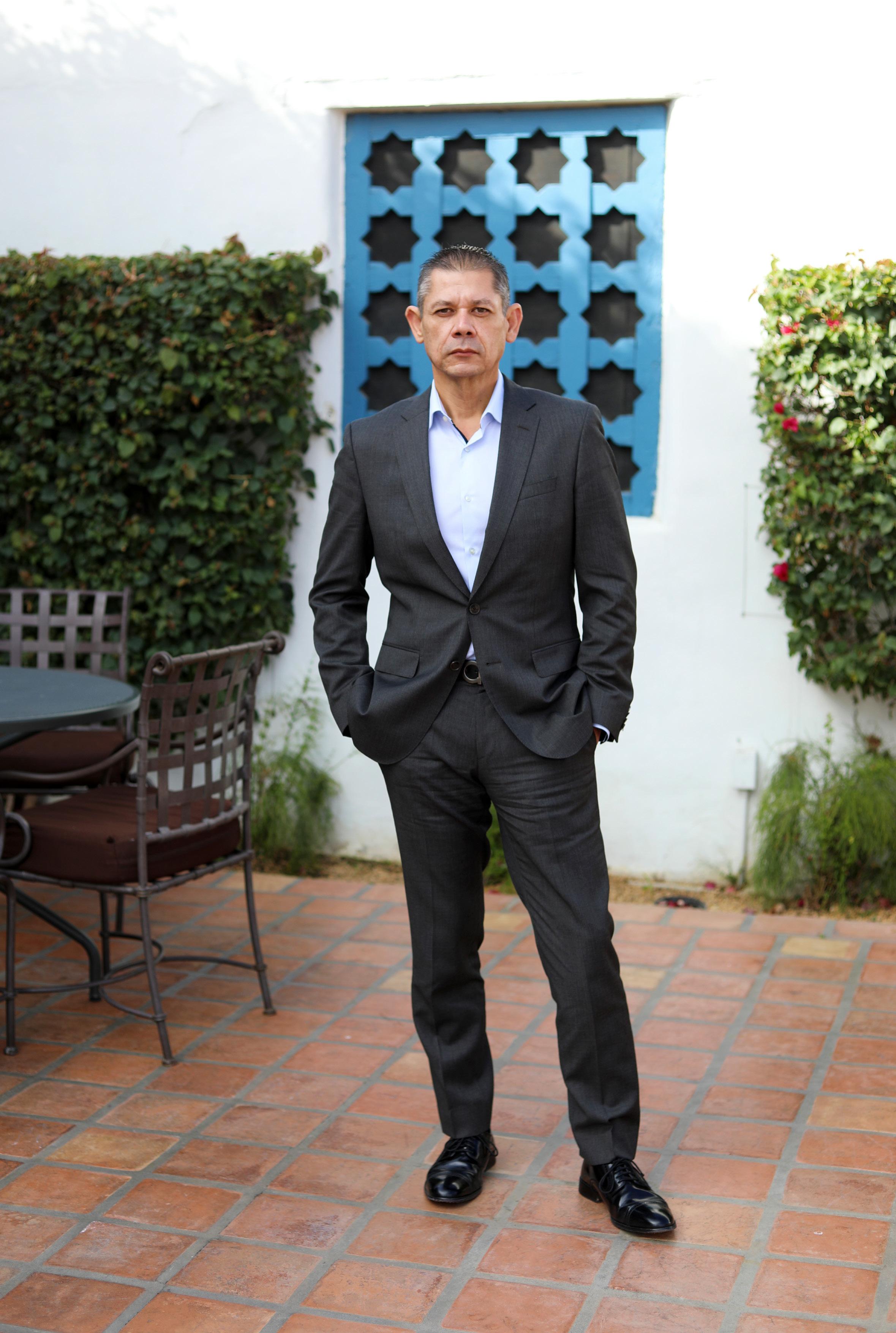
behave. Once you achieve that understanding, great things can develop. That’s what it means to me to be a citizen of the world,” he says.
Ponce strives to incorporate cultural understanding into all aspects of his leadership. He actively supports the diversity and inclusion initiatives underway at Acxiom as a sponsor and cofounder of SOMOS, the company’s Hispanic business resource group. “We are trying to raise up our Hispanic community so that every voice is heard, and all of our members see and take advantage of the opportunities the company has to offer for continuing to expand their careers,” he says of the group.
From a business standpoint, Ponce believes the best solutions come from a place of listening to and collaborating with individuals of diverse perspectives. “Acxiom has provided an environment that I consider borderless, in that the brands we work with are multinational. That has allowed me to create multinational teams, be part of those multinational teams, and look at solutions to problems both locally and globally,” he elaborates. “Leadership boils down to inclusivity. We have to consider and incorporate multiple points of view in every single thing we do.”
Without those varied points of view, Ponce’s work on projects like the large-scale delivery of multicountry marketing platforms, the real-time enablement of marketing offers for consumers, and the deployment of multi-country analytical environments would not be possible. “We’re very proud of our ability to enable any particular brand to establish marketing platforms across countries,” he adds. “We take the same principles of marketing and make sure that those principles are painted, if you will, with the regulations that prevail for that particular geography in terms of the ethical and permissible use of data.”
Given the high stakes of data collection and management, Ponce emphasizes the importance of establishing and maintaining client trust. “At Acxiom, we want the brands we do business with to see us as a trusted advisor that will guide them through the process of enabling an environment in a manner that is compliant with existing laws and regulations. We basically become the custodian of their data, their marketing messages, and the way they’re interacting with people,” he says.
As the industry evolves, Ponce hopes brands will continue to come to Acxiom with questions about their
position and new market developments. “I see a world where customers will drive companies’ behaviors,” he predicts. “All marketing communications for brands will be precisely tailored to individuals, who will be in control of what messages they’re receiving and when they’re receiving them.”
When it comes to Acxiom specifically, the future is bright. “Acxiom will continue to play a pivotal role in the industry as the ethical custodian and trusted advisor of brands for consumer data, and we’ll continue to enable brands to leverage that data to market products and services to people on their own terms,” Ponce says. “A lot of companies will try to enable those things, but Acxiom is uniquely positioned to succeed.”
“My father advised me to become a citizen of the world. I have taken as a mantra for myself that I want to understand the person sitting across from me. I always try to see things through their eyes or from their point of view.”
WHAT DO TYVEK, KEVLAR, AND styrofoam all have in common? They are all DuPont brands. DuPont is a Delaware-based corporation with 24,000 employees that work in forty countries to deliver products in major categories such as electronics, advanced mobility, clean water, personal protection, and healthcare solutions.
Francisco Hernandez-Castillo, DuPont’s chief ethics and compliance officer, joined the organization in March 2021 to revamp and modernize key programs and lead enterprise risk management efforts.
It was an important era. In 2019, the company was established following the separation of the DowDuPont merger. Since that time, DuPont has applied an active portfolio management strategy that includes the November 2021 announcement that the company had entered into a definitive agreement to acquire Rogers Corporation for $5.2 billion. DuPont needed robust ethics and compliance programs to protect the company and safeguard its reputation.
That’s why its board turned to a veteran leader like Hernandez-Castillo. With more than twenty years of experience in managing legal and compliance risks around the world,
he was well-suited for the task at hand. “I was inspired by this company, which is a powerhouse of innovation, and applying what I’ve learned in my career to support their leaders’ strategic vision was an obvious and natural fit,” he says.
Hernandez-Castillo was born and raised in Venezuela and remembers spending many hours reading through the art and culture section on his family’s encyclopedias. The reference books brought the world to his fingertips and sparked a passion for international travel and diverse perspectives. Hernandez-Castillo studied law at Universidad Católica Andrés Bello before finishing his education in Rome, Paris, and New York City.
After consulting on legal strategies, public affairs, and regulatory and compliance matters, Hernandez-Castillo spent twelve years at Tyco, where he built robust legal departments to navigate complex laws, legacy liabilities and minimize risk in the different countries where the company was active.
By the end of his tenure, Tyco was a $20 billion conglomerate with a stronger culture of ethics and a cleaner legacy litigation portfolio, and Hernandez-Castillo was leading legal and compliance efforts in Latin
America, Africa, India, and the Middle East transforming risk-averse perception into a proactive risk management culture.
Hernandez-Castillo later served as general counsel and chief compliance officer at publicly traded global chemical company Mexichem (now Orbia), which operates in forty-four countries. The experiences prepared him to enhance and integrate DuPont’s compliance program and enterprise risk management strategies into its overall operations.
The very nature of DuPont’s business model brings unique challenges. Since the company has a presence in forty countries, Hernandez-Castillo must develop a process that identifies and addresses all compliance requirements in each jurisdiction and considers global, regional and local risks that could elevate at enterprise risk level. He must also build his program in a responsive way that doesn’t limit DuPont’s innovation. “The ultimate goal for enhancing an enterprise risk management process is to help the company look at risks both on downside and upside,” he says. “We don’t just think about how to avoid bad things happening. We also need to foster the factors that could make a positive impact to our overall strategy.”
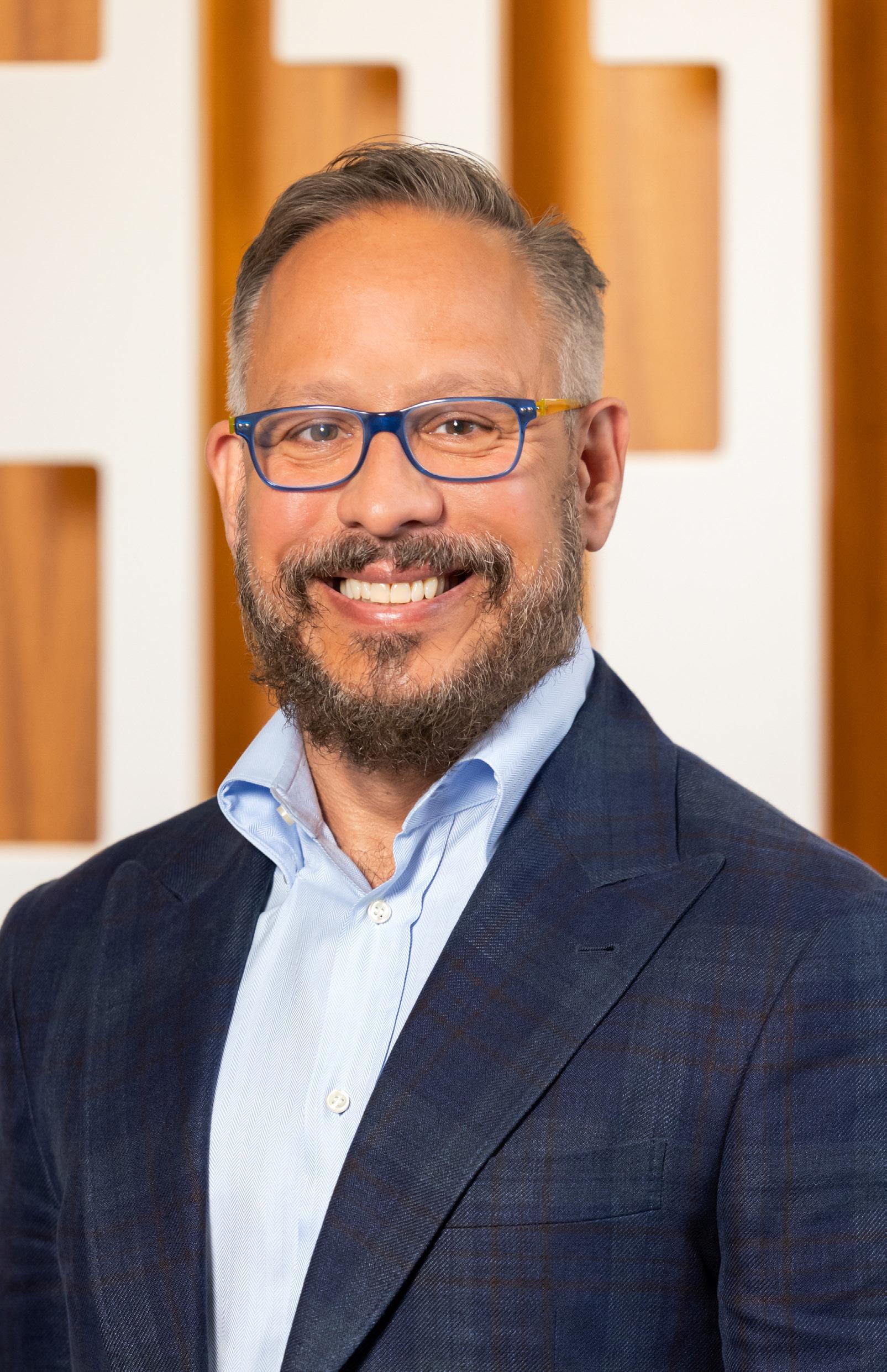
As DuPont strengthens its culture, the company is also renewing its focus on issues like sustainability and ESG (environmental, social, and governance). “There is no long-term value creation without sustainability, and there is no ultimate ethical behavior without sustainability.
Ethics and sustainability are inexorably intertwined,” says Hernandez-Castillo. The company is currently executing on its pledge to reduce greenhouse gas emissions and reach other sustainable benchmarks by the year 2030 as well as delivering carbon-neutral operations by 2050.
One of those goals is to become one of the world’s most inclusive companies. Today, 28 percent of DuPont’s workforce is female, and 29 percent is non-white. DuPont has enhanced parental leave policies and inclusive medical benefits, and its GOLD (Growth Opportunities Leading in Diversity) program helps scientists from underrepresented groups discover and pursue new professional opportunities.
Building teams and assembling programs at a multinational corporation takes time, but Hernandez-Castillo, who speaks five languages, leverages his unique background to drive results. “I have an ability to relate to people from various points of view, and that means I can build bridges with different functions and businesses dealing with different dynamics in different parts of the world,” he says. “I can find the common ground to facilitate good communication.”
The year 2022 started strong for DuPont. The company reported 2021 sales of $16.7 billion and announced some impressive new applications for its products. NASA engineers successfully used ultra-thin DuPont Kapton polyimide films to cool and protect the $10 billion James Webb Space Telescope in space. DuPont will continue to research and innovate, and HernandezCastillo will minimize risk and seize opportunities along the way.

Ajamie LLP is a unique, boutique litigation law firm with a proven track record of large recoveries for victims of financial fraud at trials and arbitrations as well as a long history of defending corporations in complex commercial litigation. The firm is also widely recognized for providing cross-border representation in complex business litigation matters and has the skills and resources to represent clients worldwide.

www.ajamie.com

“I was inspired by this company, which is a powerhouse of innovation, and applying what I’ve learned in my career to support their leaders’ strategic vision was an obvious and natural fit.”
TERESA BARREIRA IS A SENIOR marketing executive who’s spent the last twenty-five years leading global marketing and communications strategies for some of the world’s biggest companies. She’s revitalized and breathed life into beloved and struggling brands. Barreira says her success comes from understanding community and authenticity. Although she’s been trained at top universities and worked in powerful board rooms, her most important lessons came from a rural village in Portugal.
Barreira was born in the small town of Soajo in the northern part of the country, where most people lived off the land and shared what they produced. Sunday lunches and town square events gave her a deep appreciation of community and heritage that she carries into her personal and professional life. “The greatest gift of growing up there was a sense of belonging and of being a part of something bigger than yourself,” she says. “And I’ve tried to bring a piece of that to every team I’ve been a part of.”
Growing up on the Iberian Peninsula taught Barreira other skills she’s brought into her marketing career. While other children played after school, she worked at her family’s businesses. By age ten, she was negotiating prices, building relationships, interacting with customers, and operating her parents’ grocery store on her own. Today, Barreira is known for her ability to foresee clients’ needs and constantly innovate. She remains unfazed in uncertain situations and can pivot to make fast decisions. She traces those abilities straight back to her years in the markets and cafes of Portugal.
While her home country is rich in tradition, it once lacked robust career options for young women. The ambitious Barreira came to the United States, completed an undergraduate program, took the GMAT, and enrolled in business school, where she discovered a love for marketing. That passion, combined with her skill and tenacity, took her through the ranks at companies like Lotus, IBM, Accenture, and Deloitte. Along the way, she
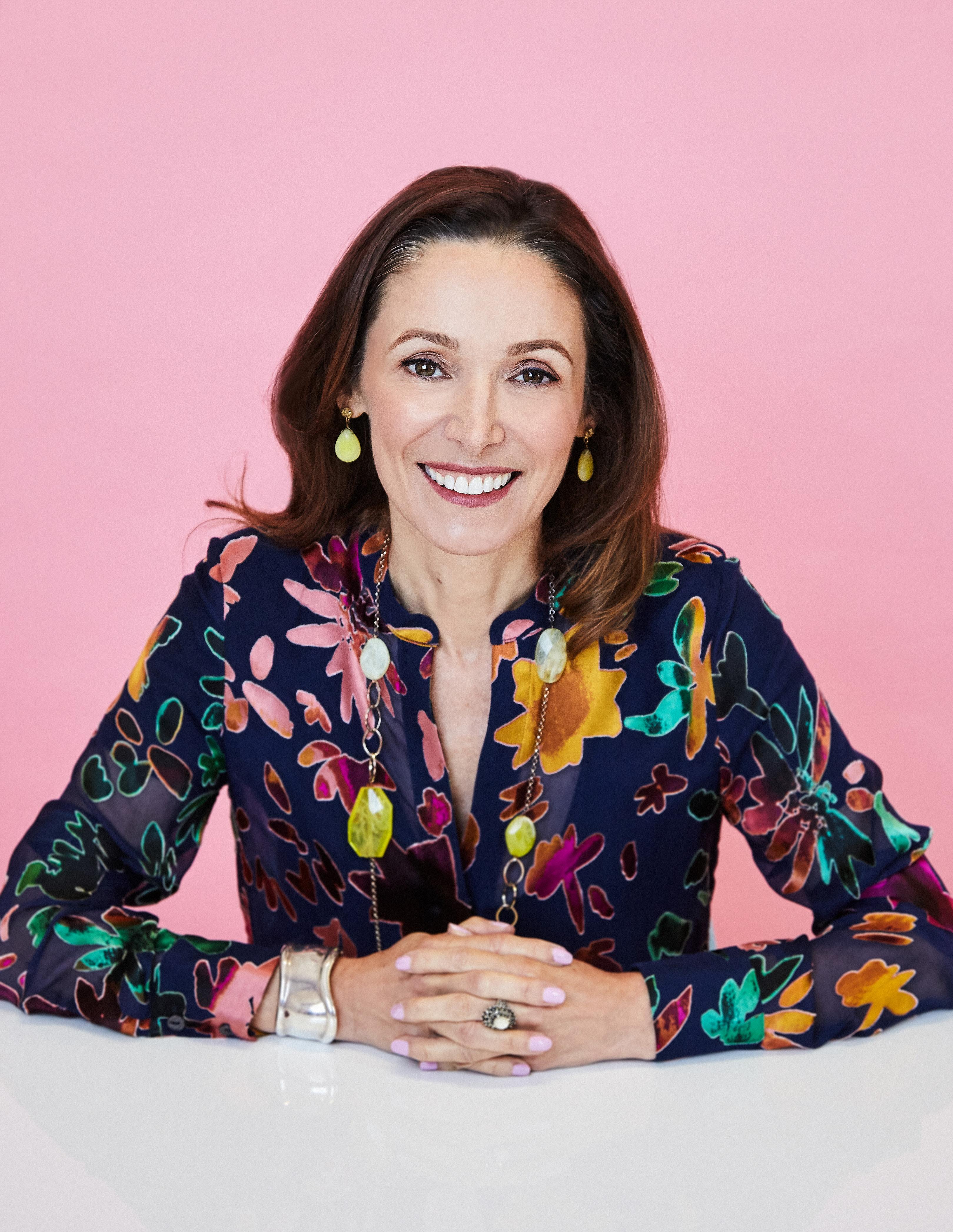

led teams, managed global regions, attracted major clients, and developed a reputation for her ability to create unique customer experiences that drive growth.
In 2018, Barreira joined digital consultancy Publicis Sapient for the chance to leverage her broad expertise and make a dramatic impact. The business was founded in 1990 as a technology company known as Sapient and grew through a series of about twenty acquisitions. Although the growth increased its strengths in consulting, design, engineering, and other services, the company had lost a bit of its brand identity. Barreira knew she could rebuild that and revitalize a purpose-driven brand.
Publicis Sapient’s stated purpose is to “help people thrive in the brave pursuit of next.” Barreira started making changes at the company by uniting disparate brands under that single purpose. But doing so took more than a simple pep talk or rebrand. “This wasn’t about slapping on a new logo, it was about getting everyone to work towards a global and unifying strategy,” she explains. Barreira was working behind the scenes to create synergy and reposition Publicis Sapient as a digital business transformation partner.
Barreira knew she had to help the company redefine what marketing looks like in a digital age, which starts with putting the right
team in place. She reorganized some veteran employees whose legacy knowledge and skills were critical to the company’s future and added a team of leaders of diverse genders, ethnicities, and professional backgrounds. Her marketing leadership team is 80 percent female and 50 percent non-white; neither of her first two hires had previously worked in marketing or even inside a corporation.
Next, she focused on building the right operating model to support the strategy. Recalling what she once learned about the value of community in Portugal, she introduced an agile “pod model” in which employees from specialized disciplines form pods as other specialists flow in and out as needed.
“Everyone has something important to offer the whole in this collaboration space that fosters ideation and innovation,” she says.
A commitment to data-driven strategies and a culture that favors speed over perfection anchors everything Barreira and her team set out to accomplish—and they are seeing big results in attracting major clients in every industry from retail to consumer goods to financial services to government to healthcare. They grew their marketing-influenced pipeline by 124 percent year-over-year from 2020 to 2021.
When a global quick-service restaurant chain wanted to find a new way to leverage
its customer data, its leaders engaged Publicis Sapient to create a Google Cloud Platform solution. The system uses machine learning and applies algorithms to data sets to better understand and predict customer behavior and preferences. The engineering team at Publicis Sapient moved quickly to deploy the program and showed that convincing loyalty program members to make just one more purchase per year could bring in up to $35 million in additional revenue.
The engineering team generated similar results for Walmart Canada by introducing new technologies to enable frictionless checkout. One Publicis Sapient solution known as Fast Lane lets customers scan items throughout the store and bypass long checkout lines.
As Barreira and her team build brand awareness globally for Publicis Sapient and attract new clients, she’s also focused on helping the next generation. “I’m the CMO of a multibillion-dollar global company, but I haven’t forgotten where I came from,” she says, adding that she’s passionate about making sure others have access to professional opportunities. Last year, she helped Publicis Sapient start an internship that exposes first-generation college students to careers in marketing. The internship program represents another way Barreira can give back and make an impact on the community.
“The greatest gift of growing up [in Soajo, Portugal] was a sense of belonging and of being a part of something bigger than yourself.”
 BY ZACH BALIVA
BY ZACH BALIVA
If you seek, you will find. Daniel Garza remembers his grandmother repeating the well-known proverb often. The Garza family came to the United States from Mexico in the early 1920s, and the family elders sacrificed to give Garza and his five siblings the chance to make a better life in their new country. Garza has made the most of each opportunity, and the veteran senior managing director today leads key strategic initiatives for OneMain Financial, the leading company in the United States offering responsible lending products to nonprime customers.
Garza has always lived by his grandmother’s mantra and hears her words ringing in his ears every time a challenge or opportunity arises. He remembers one summer when his father wanted the children to experience what it was like to be a migrant worker, so he loaded up the truck with the eldest siblings and traveled to Michigan to pick fruit and vegetables. The experience taught the young Garza the value of a dollar, the skill of manual labor, and the virtue of persistence and perseverance. “My grandparents inspired us, and my parents did a lot to pass their legacy on to us,” he says. “We all learned to work hard and to chase down what we want out of life and, most importantly, to never give up.”
When it came time to choose an academic path, Garza quickly picked finance and enrolled at the University of North Texas, where he grew more passionate about financial well-being. “The interest lined up with my upbringing and the things I was taught to really value in life,” he says.
How one simple motto inspired Daniel Garza to build a fulfilling career as a senior managing director and leader at OneMain Financial
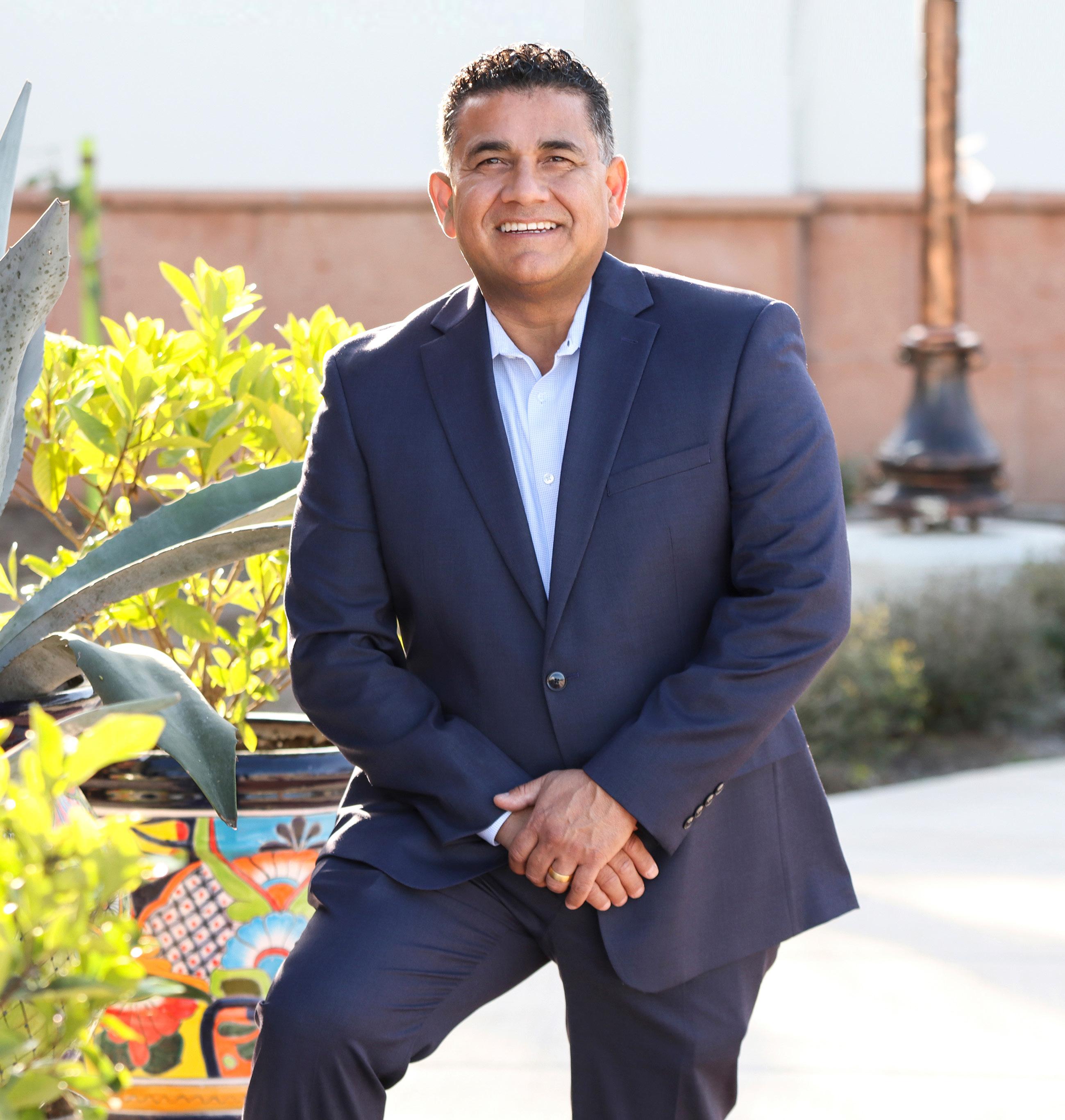
Those values drove him to pursue a career with OneMain (then known as CitiFinancial), helping customers who were turned away from traditional lenders like banks and credit unions due to less-than-perfect credit.
Garza previously held customer service and sales jobs in retail and the auto industry and ultimately worked his way into the finance and insurance department at CitiFinancial. It was 1993, and Garza learned all aspects of the company’s products and services while working in an entry-level sales and customer service role. He engaged with customers, listened to their stories and needs, and learned to analyze their financial situations while providing real solutions to real people. His goal was to grow and advance with the company, and soon he was moving up through management ranks.
systems as a president and business head in Puerto Rico. There, he managed a group of 980 employees and 91 field offices. The company created an efficiency hybrid distribution model that allowed it to streamline product and services delivery to customers around the island. In 2009, Garza began working with Citi’s corporate and local regulators to divest non-core business units that ultimately became part of Citi Holdings. Garza looks back fondly on these learning experiences; they taught him flexibility and sacrifice. “I moved four times during the first ten years of my career, but I did it because I was seeking the next opportunity just like my grandmother and parents taught me to do,” he says.
Garza’s duties progressed to international assignments, enabling him to step into leadership positions. In 2003, he moved to Mexico to replicate the US consumer success and use his experience to expand the branch network from 115 to 325 branches. Garza partnered with Citi-Banamex for treasury, HR, and facilities functions and created training and development programs to support the company’s hypergrowth strategy. Additionally, during his time in Mexico, they successfully launched credit card, private label business, and point-ofsale programs.
After three years, Garza took another assignment to upgrade and integrate all
It wasn’t always easy. Although his ancestors were from Mexico, Garza didn’t know anyone in Mexico City when he first arrived there with his wife, Anne, and their one-month-old baby. When they arrived in Puerto Rico with the addition of their second child, Garza didn’t know anyone there either. He relied on his Spanish skills and immersed himself in the business and the rich Latin culture in both locales. He quickly made friends, built a high-performing team, and enjoyed putting his experience to work while executing important strategies during both assignments.
Garza also leaned on mentors and advocates who helped him navigate challenges. “Accepting help from others and soliciting their advice as I learned made me a more effective and empathetic leader, and a better person, son, husband, and father,” he says.
Upon Citi’s divestment of the Puerto Rico business, Garza returned to the mainland to help the company integrate after it was sold to Springleaf.
Today, Garza is a senior managing director in the Dallas/Fort Worth area, where he manages twenty states in the middle and western parts of the US, with four hundred branches and sixteen hundred employees.
“My grandparents inspired us, and my parents did a lot to pass their legacy on to us. We all learned to work hard and to chase down what we want out of life and, most importantly, to never give up.”
After nearly thirty years, he still spends about 70 percent of his time out in the field.
“No matter what happens, the customer always has a seat at the table. It’s important for us to make decisions with the customer in mind, and I will always do that,” Garza says, adding that he will walk into a branch and occasionally run into customers he’s known for many years. “I really enjoy hearing their stories and the positive impact we have made on their lives, family members, and friends. Our business thrives on customer referrals.” The veteran leader also enjoys meeting with regional teams to reinforce the corporate mission, take questions, and solicit new ideas to improve the customer experience.
In addition to leading the business at the regional level, Garza advises OneMain’s leadership team on key strategic initiatives. The company launched its BrightWay and BrightWay+ credit cards in Garza’s region in 2021, and recently acquired Trim, a financial wellness fintech that will bring a new host of digital features to OneMain’s 2.2 million customers. The senior managing director is also excited about the new financial education program, Credit Worthy by OneMain Financial, which empowers students through credit education, financial basics, and college-career readiness and entrepreneurship.
At this stage of his professional life, Garza is engaging in board opportunities as well as local and national community engagement activities. Still, he’s always looking for new and innovative ways to give back to future leaders and the communities he represents. When not traveling or working, he spends quality time with his family and extended family. He’s passionate about his work and engaged in mentoring and sharing advice with students interested in a career in banking or finance. “Look for real ways to make an impact and improve the lives of hardworking Americans,” he says to young leaders. “When you seek that, you’ll find more than a job. You’ll find a career.”
Empowering people financially is a team effort.
OneMain is committed to building a culture of inclusion and respect, whether building our team, creating responsible personal loans and credit cards, or providing financial wellness tools. Let’s talk about how you can join our mission.
Jacqueline Aguilar has always sought out a place where she could use her background in business, tech, and the law to make a difference—and she’s found it at Procter & Gamble
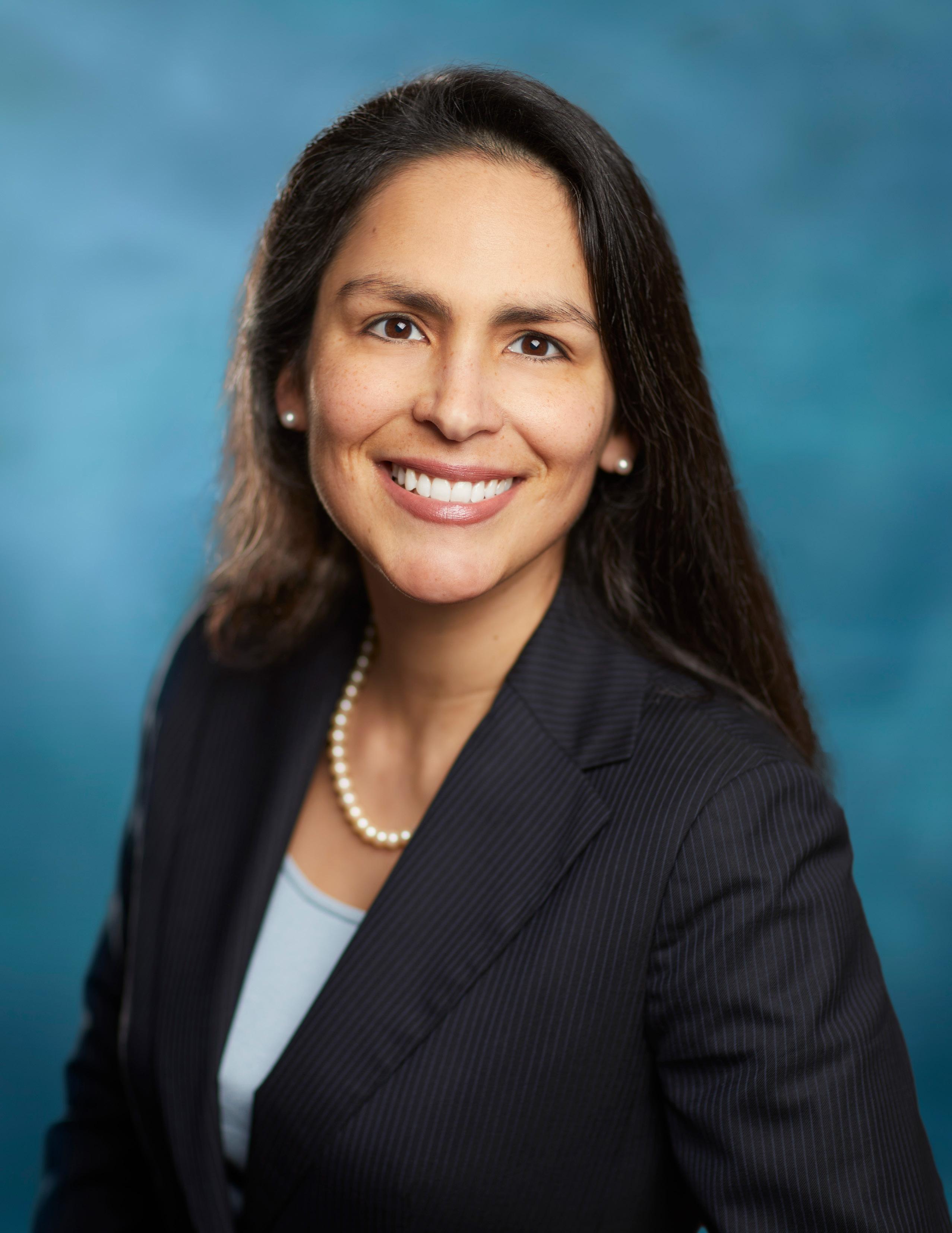 Jacqueline Aguilar Director of Global Transactions
Jacqueline Aguilar Director of Global Transactions
PROCTER & GAMBLE (P&G) HAS almost a hundred thousand employees and generates close to $80 billion in revenue. It provides consumer products through a wide variety of brands such as Tide, Pampers, Charmin, Olay, Always, Pantene, and numerous other leading brands in more than 160 countries around the world. It’s a place where someone like Jacqueline Aguilar can really make a difference.
That’s exactly what drew her to the organization ten years ago. “I chose a large corporation to make my mark because I could reach more people,” she says. “I felt that I could have a greater impact at P&G, whose purpose, values, and principles mesh with my own and inspire me to make a positive contribution every day.”
At P&G, Aguilar is director of global transactions, but she’s more than an in-house attorney. She majored in business management, minored in information technology, kept a perfect 4.0 GPA, and graduated first in her class at Xavier University.
It’s an impressive list of academic accomplishments for anyone, but for Aguilar, the achievement carries special significance. She is a first-generation Mexican-American, and she and her sister are the only two people in their family to obtain college degrees.
Aguilar began her career in human resources at Convergys Corporation before accepting an offer from Toyota in 2007. That set her on a new path and showed her how effective policies and sound practices could change workplaces, business strategies, outcomes, and even society at large. Aguilar was on a team that handled Toyota’s corporate compliance and ethics matters, including diversity and inclusion. Her mentor, the highest-ranking Latina in the company, had gone to Berkeley Law and was leading Toyota’s philanthropy work. “Our conversations ignited a spark in me,” says Aguilar. “That spark soon grew into a flame, and that flame strengthened my
hope that I could follow in her footsteps and create even more positive change.” Aguilar enrolled at Berkeley Law in 2010.
Leaving a career at the world’s largest auto manufacturer and moving across the country in the aftermath of a financial crisis was a bold move, but Aguilar credits her husband with providing the necessary support and encouragement. “Starting over in law school was a huge risk, but you have to take risks and work through your fear if you want to reach your potential and accomplish great things,” she says.
Aguilar knew a law degree would give her more tools to make a positive impact. She bet on herself, and the bet paid off handsomely when she landed a summer legal internship at P&G as a first-year law student. The company asked her to return the following summer and then extended a job offer that Aguilar happily accepted.
Her previous experience at global corporations gave Aguilar the skills she needed to succeed. At P&G, she was entrusted with assignments in different legal practice groups.
She was lead counsel for a billion-dollar brand franchise, led company-wide compliance and ethics programs, trained thousands of global employees, led numerous internal investigations, managed complex commercial transactions and M&A deals, and worked with business clients and suppliers all over the world.
Aguilar moved into P&G with an eye toward making immediate contributions. “I strive to add value wherever I can,” she says. “This can include solving a problem, developing a strategy, helping business clients achieve the company’s goals, providing practical solutions, improving business results, processes, and systems—all while promoting a culture of inclusion and integrity,” she says. This approach, combined with her experience in business and technology, has made her an indispensable partner.
As director of global transactions, Aguilar must be prepared to address international issues that affect the sales of any P&G brands. That means she works with every function in the company and deals with people at all levels and from various backgrounds. Her fluency
“I have earned a license to practice law, and I take that honor and privilege very seriously. We should use our law license for doing good, and representing economically disadvantaged clients pro bono is one of the best ways I can think of to do that.”



































in Spanish helps her navigate the important Latin American region, which represents nearly 10 percent of total P&G sales.
Additionally, Aguilar remains involved in corporate DEI initiatives and is a key driving force behind Latinovation, P&G’s biannual conference designed to showcase the innovative brand-building, organizational, and community contributions of Latino employees. The 2021 conference featured recordsetting attendance.
Each day, Aguilar is developing strategies, creatively solving problems, and helping business clients achieve their goals. She constantly looks to improve business processes, systems, and results through insight, counsel, and mediation. “The bottom line for me is that I love building meaningful relationships and adding value however and wherever I can,” she says.
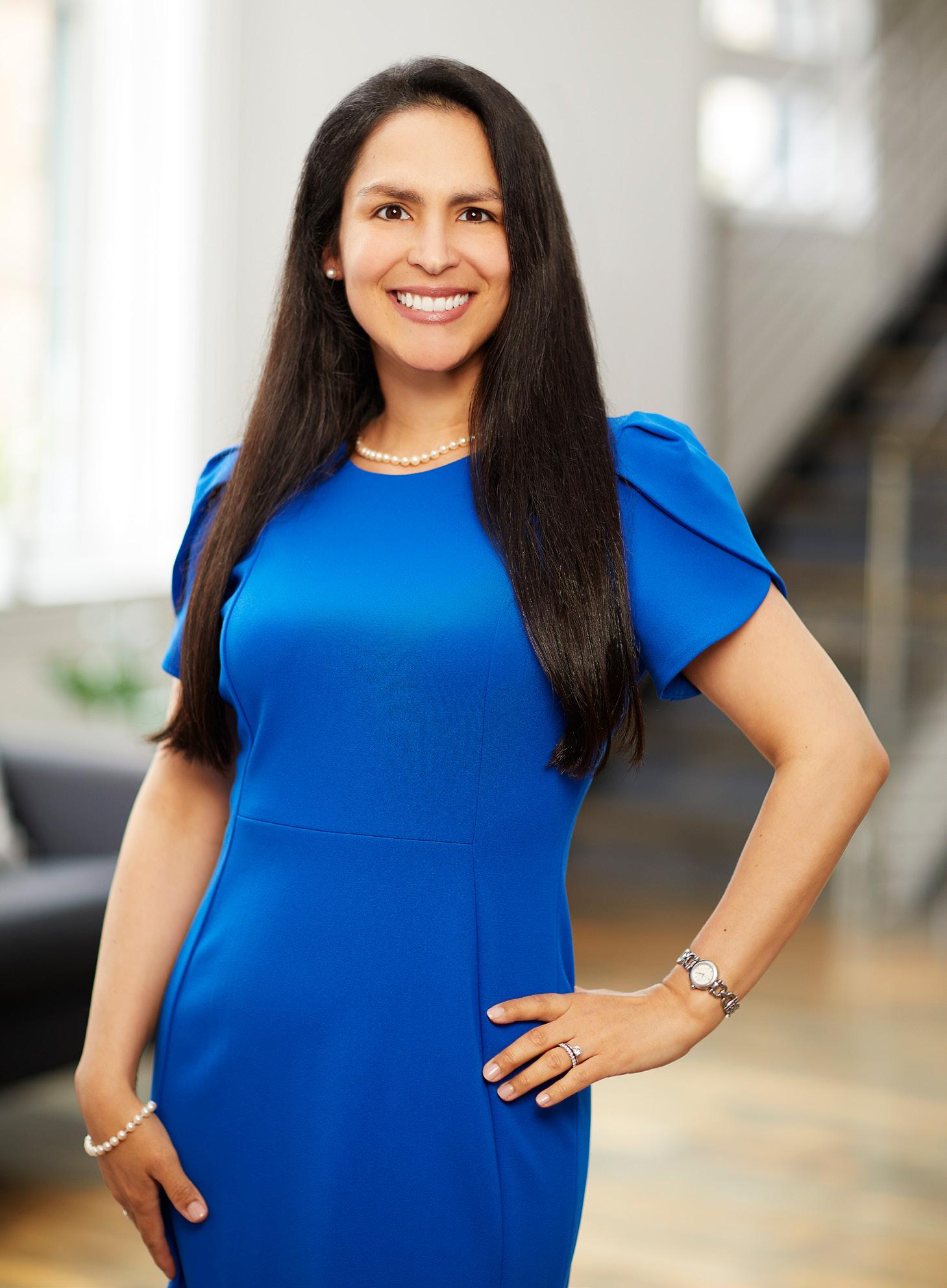
Sometimes that’s for her business clients, her company, or her colleagues. Other times, it’s for individuals and the community through her pro bono services and volunteer work. Aguilar sees these activities as both a privilege and an obligation. “I have earned a license to practice law, and I take that honor and privilege very seriously,” she says. “We should use our law license for doing good, and representing economically disadvantaged clients pro bono is one of the best ways I can think of to do that.” Aguilar works with a variety of nonprofit organizations to help the community, such as the Volunteer Lawyers Project through the Legal Aid Society of Greater Cincinnati, where she represents children and families from low-income households primarily in matters related to public education and housing.
Jacqueline’s efforts haven’t gone unnoticed. She has received numerous internal company recognitions for her outstanding work and is supported by P&G’s most senior leaders; in fact, “doing good” is part of the company’s stated purpose. As part of a “Lead with Love” initiative, the company is striving to create positive change for individuals, communities, and the planet. As the efforts move forward, Aguilar is working to develop a pipeline of skilled talent. She’s mentoring both students and professionals, seeking out the next generation of business-minded, tech-savvy leaders whose aim is to make the world a better place through a leading global corporation.
Inspired by the change-making executives in this issue, we asked the Hispanic Executive team to share their stories. Just a few of their responses:
My whole life has taught me to embrace change, having come to the US from Puerto Rico at a young age and often living in areas where I did not see others like us. We Latinos are innately more adaptable because we straddle two worlds, two cultures, and for many, two languages every day.
The last couple of years transformed our society, and I believe it’s a time for grace. That’s why I strive to lead with presence, reflection, and patience. As a new mom, I am also open and vulnerable with my colleagues to strengthen our relationships. Relationships are the thread we weave to create the fabric of community. More than ever, comunidad es todo.”
“Had the last few years not completely altered my life–giving me more time, energy, and critical perspective–I may not have pivoted careers and landed my dream job. Whenever doubt creeps in, my Ecuadorian dad reminds me, ‘Pa’trás ni pa’tomar impulso.’”
We want to hear from our readers! What goals or plans do you envision in the coming months or year?
Share your goals with @HispanicExecutive on Instagram and tag #ChangeForTheBetter.

—MICHELE CANTOS GARCIA, MANAGING EDITOR
“The last few years taught me the importance of family, health, and self-care. I was able to stay home with my daughter while working remotely at this job that inspires me and connects me to my roots. As a DREAMer, I take pride in these changes and who I am.”
—LAURA RESTREPO, CONTENT AND ADVERTISING MANAGER
—VIANNI LUBUS, VP OF HISPANIC DIVISION AND HEAD OF AUDIENCE & ENGAGEMENT


























The digital revolution has changed everything, except people need brands and brands need customers. Using data and technology, we turn digital chaos into customer common sense – powering brands to drive better experience, build trust, and grow. It’s what we call ethical customer intelligence, and that’s why our customers love us. We deliver. Always! www.acxiom.com
